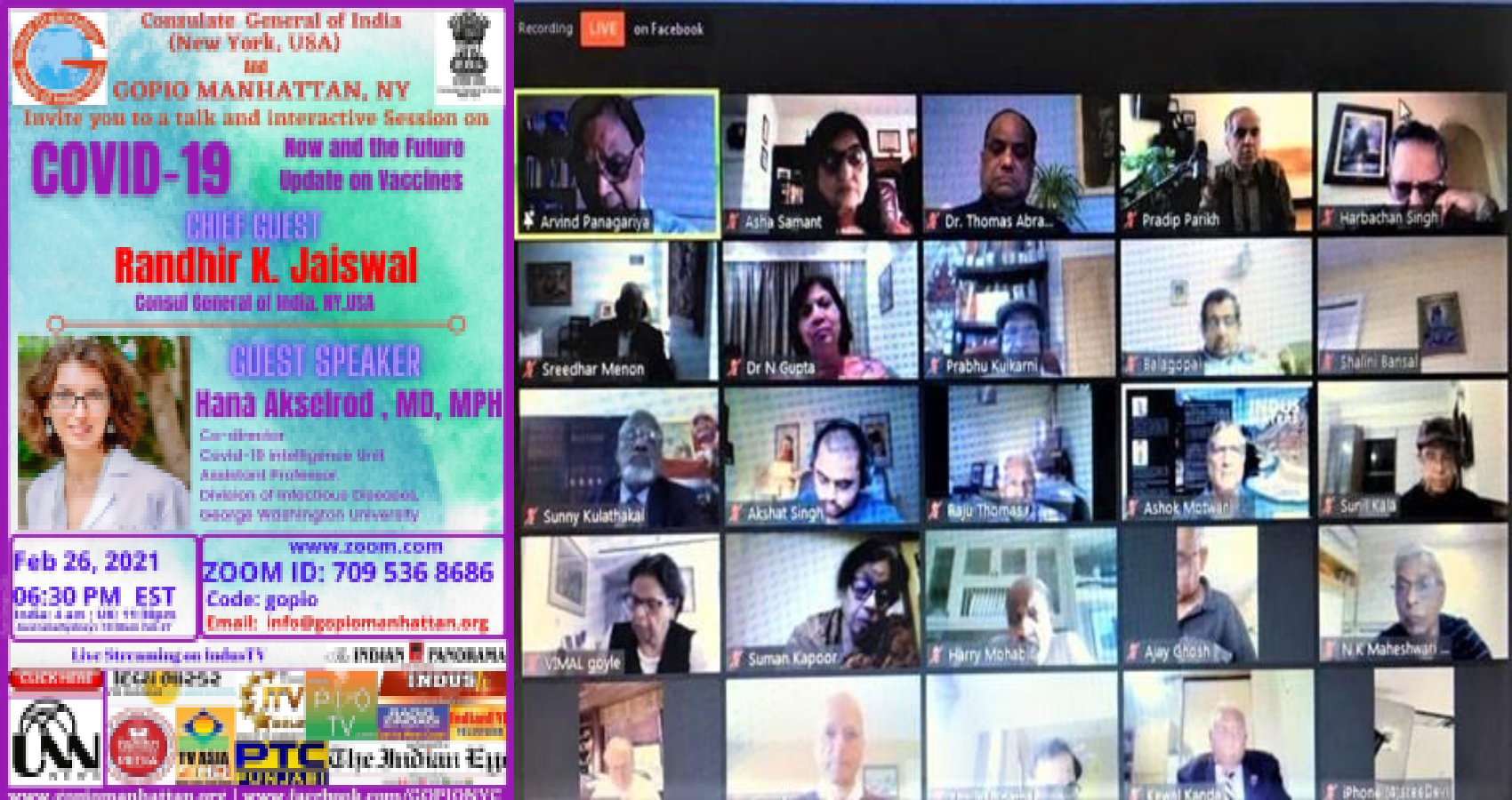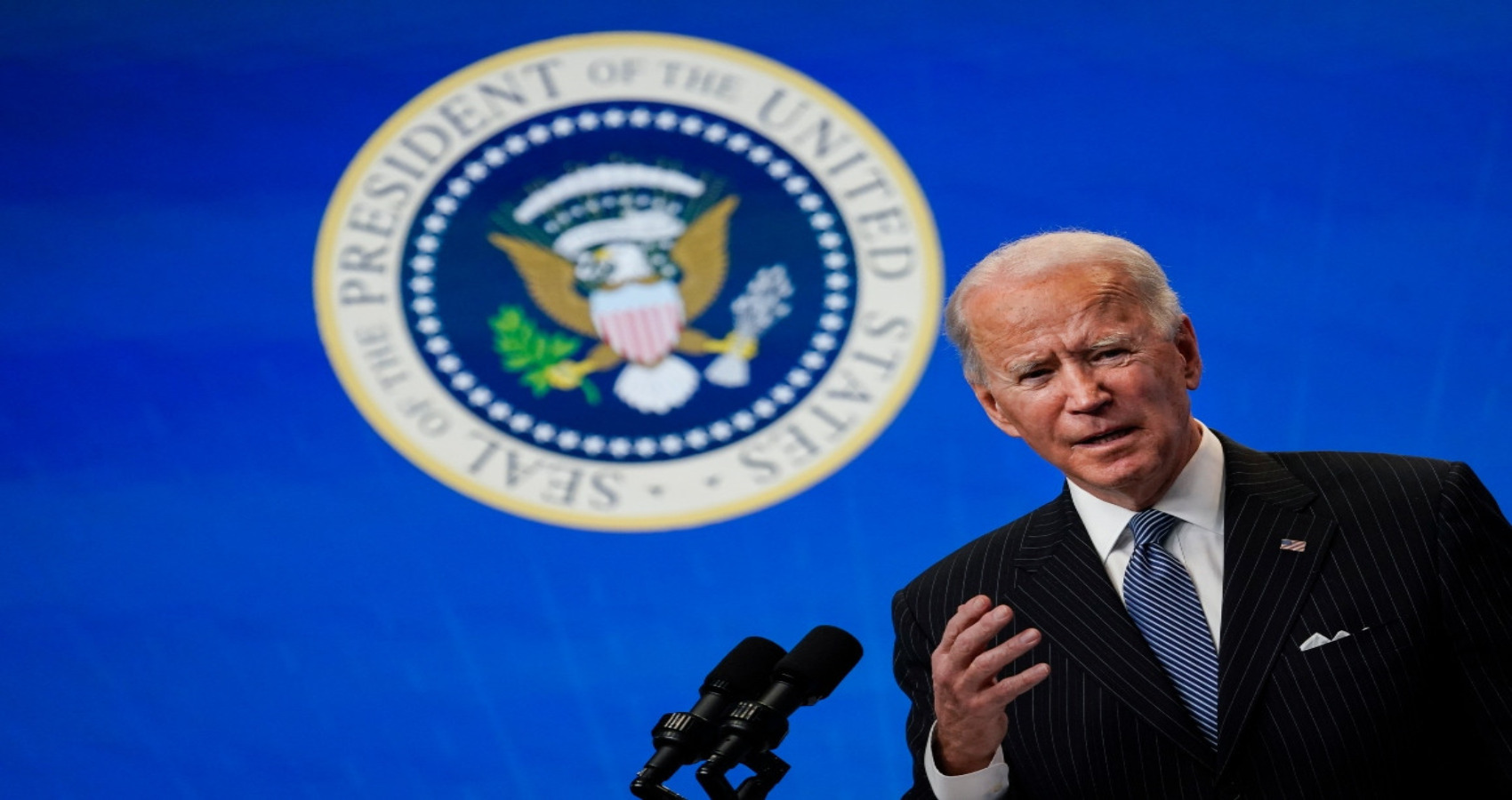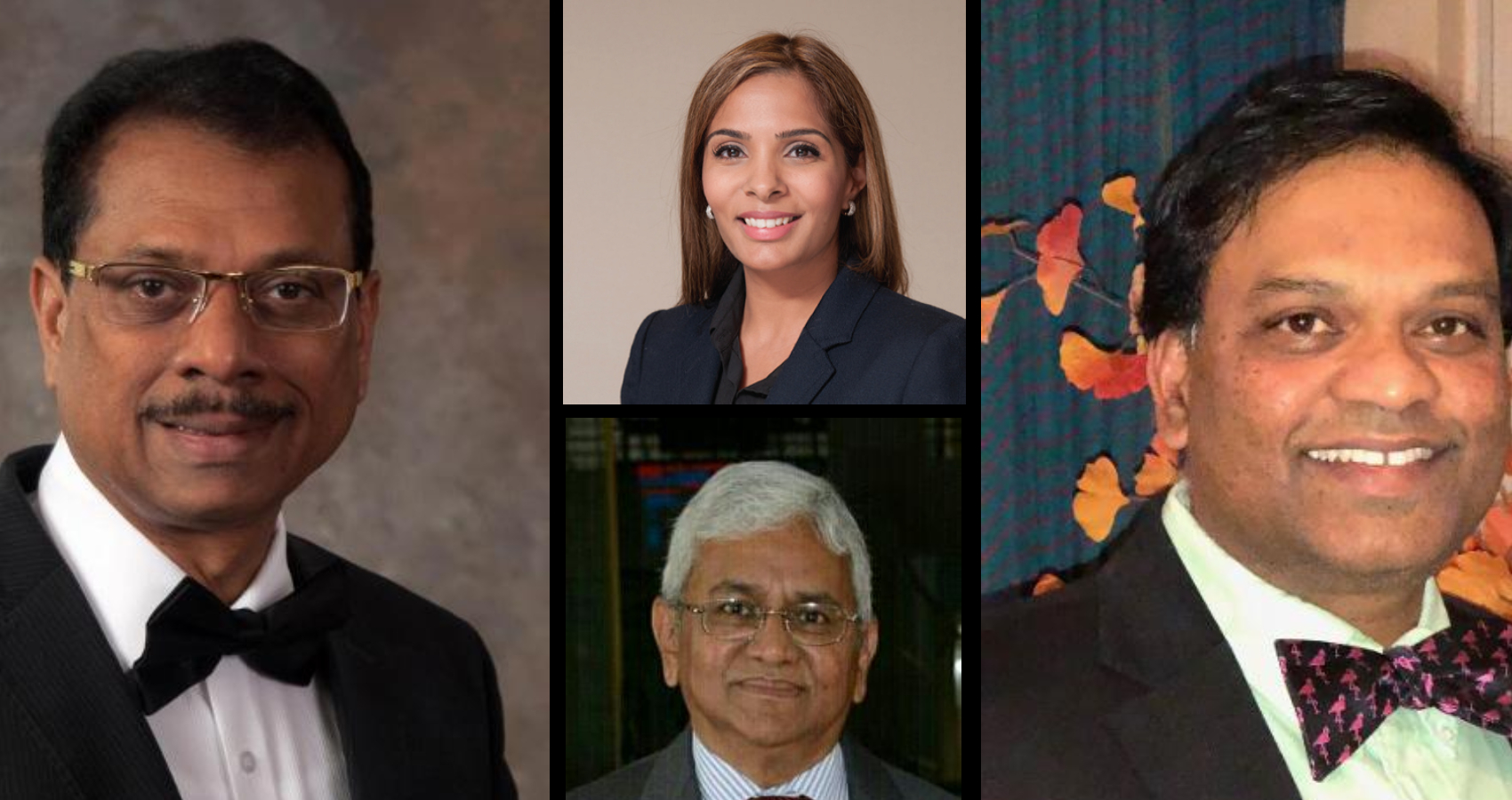On August 15th, 2022, as the nation celebrated its 75th anniversary of India’s Independence, a Letter was sent to the President of India, Droupadi Murmu, signed by 100 world renowned writers, journalists, creative artists, “to express our grave concerns about the rapidly worsening situation for human rights in India, specifically freedom of speech and creative expression, on the eve of India’s 75th anniversary of independence.”
Freedom of speech—the right to express opinions without government restraint—is a democratic ideal that dates back to ancient Greece. In the United States, the First Amendment guarantees free speech. When it comes to democracy, liberty of thought and expression is a cardinal value that is of paramount significance under our constitutional scheme.
However, this freedom of speech/expression, a fundament right enshrined in Article 19 of the Constitution of India is being eroded, more in the recent past. The many measures restricting freedom of expression, punishing and intimidating those who report corruption in the government, and the many evils prevalent in society have become a common practice for those in power at many state and federal levels.
The authorities in power have used and abused various sections of the Law to intimidate and punish those who criticize the people and policies of the ruling Party. Reporters Without Borders ranked India in 15-th place out of 180 countries in its 2022 World Press Freedom Index.
Human Rights Watch reported in 2022 that “Critics of the Bharatiya Janata Party (BJP)-led government in India including activists, journalists, peaceful protesters, and even poets, actors, and businesses increasingly risked politically motivated harassment, prosecutions, and tax raids. Authorities shut down rights groups using foreign funding regulations or allegations of financial irregularities. ”
The Indian authorities routinely use vaguely worded, overly broad laws as political tools to silence and harass critics, Human Rights Watch said in a report. The government should repeal or amend laws that are used to criminalize peaceful expression, it stated. “India’s abusive laws are the hallmark of a repressive society, not a vibrant democracy,” said Meenakshi Ganguly, South Asia director at Human Rights Watch. “Putting critics in prison or even forcing them to defend themselves in lengthy and expensive court proceedings undermines the government’s efforts to present India as a modern country in the Internet age committed to free speech and the rule of law.”
In addition to banning various authors and publications, “Charges of sedition have recently multiplied in India as a way to curb free speech and to intimidate government critics,” writes Mira Kamdar at the Pacific Council on International Policy. “India has become a dangerous place to be a journalist,” and adds, “India’s media has become increasingly concentrated in the hands of powerful. High-profile journalists whose views do not toe the new line have been pushed out or quit their jobs. Self-censorship by journalists is a growing problem. Those who do speak out regularly face harassment and threats.”
The Columbia Global Freedom of Expression pointed to the Supreme Court of India’s ruling that an indefinite suspension of internet services would be illegal under Indian law and that orders for internet shutdown must satisfy the tests of necessity and proportionality. The highest court in India ruled that “Restrictions under Section 144 of the Code of Criminal Procedure could not be used to suppress legitimate expression and are subject to judicial scrutiny.”
Romila Thapar, who has specialized in the study of early Indian history and historiography, and is a Professor Emerita at the Jawaharlal Nehru University, New Delhi, aptly describes the state of India at 75: “Some Indians in authority, seem averse to India being a secular democracy. Therefore, poverty and unemployment prevail, nationalism is being replaced by religious majoritarianism, freedom of expression is increasingly disallowed, the rights of citizenship have faded, and the security implicit in being a citizen is denied. How do we fulfill the aspirations of the national movement for Independence? That is the question we should be asking.”
At independence, India offered a beacon of hope—a secular society choosing democratic governance and a Gandhian vision of inclusion and tolerance. Prime Minister Jawaharlal Nehru spoke of India’s ‘tryst with destiny,’ and the hope is that the country will live up to the dream of Nobel Laureate, Rabindranath Tagore: “Where the mind is without fear,‘…. ’into that heaven of freedom, let my country awake.”
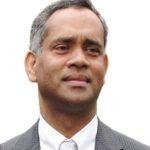
Ajay Ghosh
Chief Editor, The Universal News Network
India Is A Global Player
As an Indian American, who had left India more than 40 years ago, it makes me extremely proud to see how my Motherland has progressed over the years, especially since 2014 when Prime Minister Modi took the helm of the country.
The Azadi Ka Amrit Mahotsav honors the advancement of India and the culture of our people. On Oct. 1st this year, Modiji launched 5G services in India! And he spoke of the common people of India adapting to new technology at a greater speed.
Not only is India the world’s largest democracy, but as The World Bank says, “Over the past decade, the country’s integration into the global economy has been accompanied by economic growth. India has now emerged as a GLOBAL PLAYER.”
Just a couple of weeks ago, India surpassed the United Kingdom to become the 5th largest economy in the world. And in terms of purchasing power parity, meaning how much a rupee can buy, it is the world’s third-largest economy, according to World Bank data.
India’s recent growth has been a significant achievement. And since independence, its agricultural revolution has made it self-sufficient and a net exporter of food!
Since 2001, India has built all-weather rural roads for millions of people living in 171,000 small villages and habitations around the country, so they can increase family incomes, reach markets, hospitals, schools and entertainment. It is building infrastructure like ports and ships, defense equipment, strategic alliances in the Indo-Pacific and elsewhere, space technology, the list is endless.
And Modiji’s “Make In India” initiative is strengthening the country towards economic growth and independence.
India has taken global leadership in areas such as health and climate change. During COVID, it has been manufacturing vaccines that can be distributed to countries in Africa and Latin America, and other parts of the world; it has been producing medicines for HIV, Rotavirus, and numerous diseases that are available at low prices so that poor can afford them around the world!
India has spread the message of Yoga for health, non-violence for a more peaceful world, and solar energy for a sustainable planet. Its space program is the epitome of what can be achieved by its people. Its scientists, engineers, doctors and entrepreneurs are the envy of the world.
And Prime Minister Modi plans to get to India 2.0, through his Atmanirbhar strategy of independence. His Azadi ka Amrit Mahotsav initiative which officially began on March 12, 2021 and ends August 15, 2023 – is the symbol of all that makes India into the vibrant and progressive country it is today.
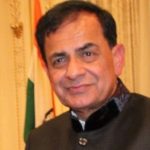
Sudhir M. Parikh, M.D.
Chairman & Publisher-Parikh World Wide Media; Chairman-ITV Gold (24/7 TV Channel)’; Chairman-Life Global; Chairman-Center for Asthma & Allergy; Secretary General of Global Association of Physicians of Indian Origin (GAPIO); Padma Shri Awardee 2010; Pravasi Bharatiya Samman Awardee 2006; Ellis Island Medal of Honor 2005
Changing Landscape Of India After 75 Years Of Independence
From being an education hub of the world in ancient times to becoming the IT hub of the world today, the Indian landscape has come a long way.
The Landscape of Education and Health.
In 1947 India had a population of 340 million with a literacy rate of just 12%. Today it has a population of nearly 1.4 billion and a literacy rate of 74%. The average life expectancy has also risen from 32 years to 70 years in 2022. Even though India has shown remarkable progress in terms of literacy rate, the quality of higher education is still a cause of major concern.
However, some other fields like health and education still seem to be lacking behind as compared to the other developed countries. The health sector is also lacking behind. The doctor to patient ratio is merely 0.7 doctors per 1000 people as compared to WHO average of 2.5 doctors per 1000 people.
At present 65% of medical expenses in India are paid out-of-pocket by patients as per a recent study. The main reason behind this is that the patients have no alternative but to access private healthcare because of poor facilities in public hospitals.
The Economic Landscape.
India’s economy has expanded significantly in the 21st century. Under the Prime Ministership of Mr Narendra Modi many significant changes have taken place like the scraping of section 370, strengthening of the defense system, creating a startup-friendly environment, and much more.
In addition Mr. Modi’s administration launched several programs and campaigns, including ‘Make in India’, Digital India and the Swachh Bharat project. Today India is the fifth largest economy in the world with 147 lack crore GDP, accounting for 8% of the global GDP.
The Landscape of Defense Sector.
The Indian military is one of the largest Defense systems in the world because of the defense research and development organization established in 1958. In summary, analyzing the different landscapes of India we find that we have come a long way in our journey but still there is a lot to be done if we want to make India a superpower. A lot will depend on our people’s willingness to change, ensuring the equal participation of women in the workforce, including marginalized communities in our economic growth, and last, but not least is having a liberal and progressive and unbiased mindset.
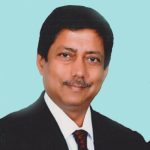
Gautam Samadder, M.D
Past President, AAPI
Nurture Democracy To Be A World Leader
India Proudly celebrates Azadi Ka Amrit Mahotsav!
India @75 has emerged as the world’s largest sustainable democracy. A growing power with an aspiration to be the third largest economy after US and China.
For me, India’s biggest asset or strength is its constitution which talks about Unity in Diversity, which gives strength to live in an inclusive way in a diverse society and helps its people to rise not just at the national but international level.
Swami Vivekanand had rightly said: “The land where humanity has attained its
highest towards gentleness, towards purity, towards calmness – it is India.”
No doubt India has evolved since the Britishers left but it will be essential for India to stay focused on reducing inequality, nurture and value democracy, focus on proper education, and yes, check the growing population, which at present is 1.38 billion and will surpass China in 2023.

Ritu Jha
Chief Editor/Publisher, Indica News
I Am Proud Of India And I Am Proud As An Indian Immigrant.
Hearty congratulations to all Indians for a grand celebration of 75 years of independence!
India has achieved a lot during the last 75 years, especially during the last 25 years. India has become a world leader of Pharmacy and information technology. India has become one of the richest countries of the world. Infrastructure, Airline, Health, and travel industries have grown tremendously during the last 25 years.
India has produced some of the best Physicians, company CEOs, and great thought leaders.
Indian immigrants have done extremely well in several countries including the USA.
I am proud of India and I am proud as an Indian Immigrant!
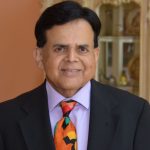
Subrahmanya Bhat, MD, FCCP, FACP, DNBPAS
Board member, Georgia Composite Medical Board; Trustee, Clayton State University
Past President of the Association of Kerala Medical Graduates
This Century Belongs To India
August 15th, 1947! A day to remember all those who fought, laid their precious lives for us to enjoy this happy occasion.
Today is the day not to forget why they sacrificed their lives, their mission & purpose of the long struggle.
A day to reflect on what we can do so that each of our fellow citizens live a life of respect dignity and prosperity.
In 75 years, we have achieved a lot.
At 75, India is full of energy, realizing it’s true potential, retaining its culture, and yet going modern. More needs to be done in the coming years so that India @ 100 will be a fully developed nation, the most powerful nation in the world and a Vishwa Guru.
This century belongs to India. In the coming years, India is going to be the manufacturing Hub . Also being the country with the youngest population, English Speaking population, and skilled labor, India is unstoppable. India will be the powerhouse of development. India@ 100 will be top three Economies in the world.
Vande Mataram! Happy Independence Day!
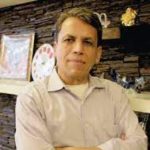
Jagdish Sewhani
President, The American India Public Affairs Committee
India Has A Rich History Engrossed With Thousands Of Years Of Civilization
I was born years after India gained independence. But so much have I heard from my grandfather, who was a freedom fighter too. He used to repeat that Gandhiji, Nehru, Netaji, Vallabhbhai Patel, and many others united the Indian people and fought to get India’s independence from the British. Later on, in school, it was the history of heroic stories of India. Looking back today, I am proud to be an Indian because India has a rich history engrossed with thousands of years of civilization and culture, absorbing and rise of religions and empires, British Rule, Revolution, Independence, and, no doubt, now emerging as a world power.
The world’s largest democracy and second-most populous country in this 21st century, India is a dynamic nation with a thriving economy, made up of a variety of beliefs and peoples united under one flag.
If small nations, like Japan could meticulously attain a leading position, India, with its large population and vast resources, could have emerged as number one by this time. For this world’s largest democracy, it is highly advantageous to remember that with British rule, English is the most important language for national, political, and commercial communication, and we can have instant contact worldwide.
The country has gone from having a GDP of just Rs 2.7 lakh crore at the time of Independence to now sitting close to Rs. 150 lakh crore. India is now a healthcare hub with exporting affordable medicines worldwide. Indian students are flying off to all developed countries for higher education in engineering, advanced medical research and the latest information technologies.
The new plans and projects are changing INDIA, its roads, railways, and digital telecommunication, with solar-powered airports of the highest qualities across the nation, and have multiplied the image and status of the New emerging INDIA.
Though we beat our trumpets a lot on our achievements, India appears to be suffering from a stinking bureaucracy and corruption among the administration and high political leaders. Whereby the country’s resources are underutilized or exploited. We must revive its democratic syncretic and inclusive credentials to be on the top list. We need to trim or eliminate all weeds that eat up tender growths.
India is not that India that the British left on 1947. With its incredible progress, India’s present history continues to be the most enviable topic for developing countries globally. As an Indian American, I am proud to see India making hope- step- and jump each day to become a leading nation in the world, while celebrating Azadi ka 75th Amrit Mahotsav
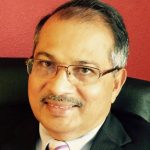
Dr. Mathew Joys, Author, Writer
BOD Member, Indo-American Press Club
Editorial Board Member, The Universal News Network
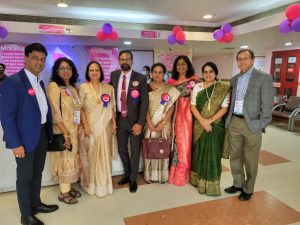
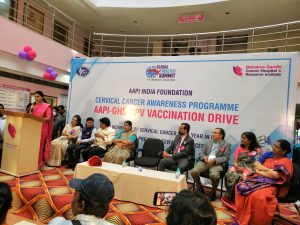
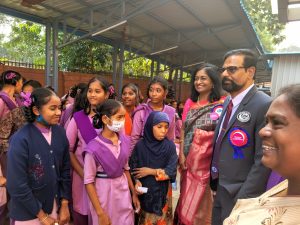

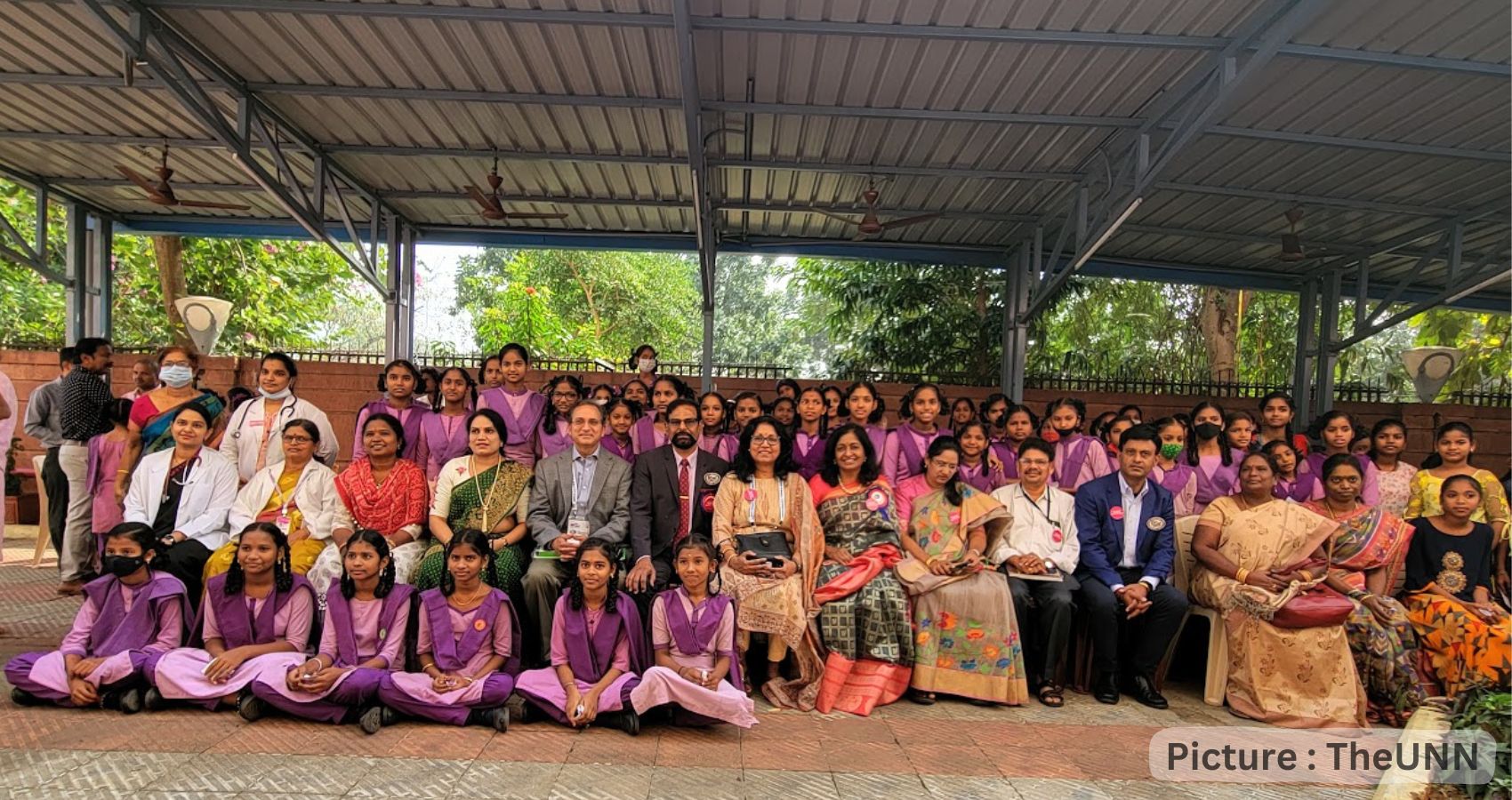
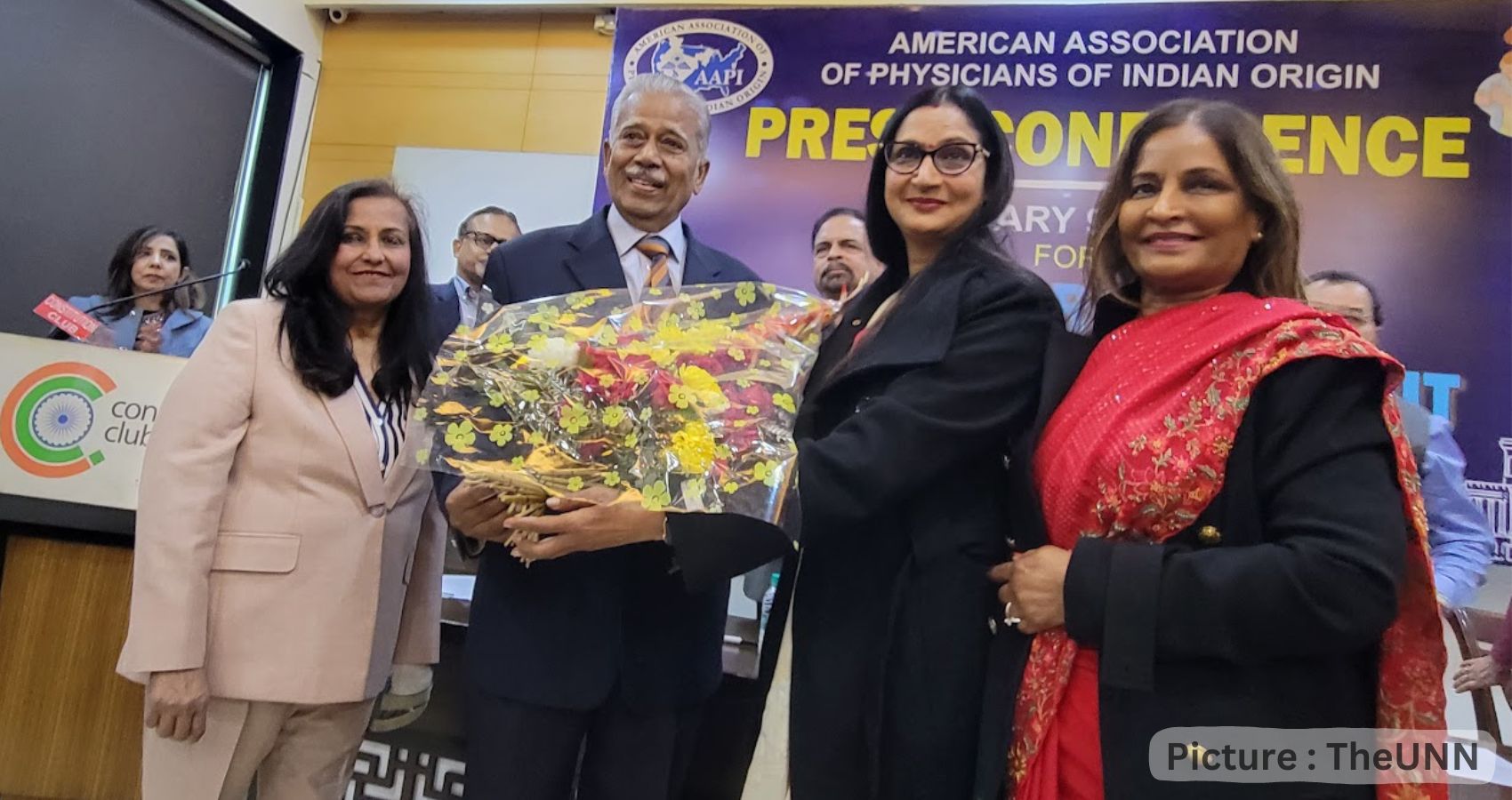
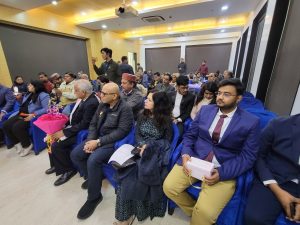
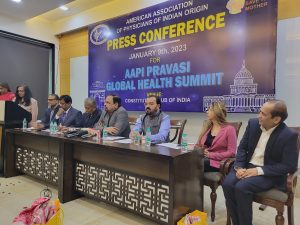
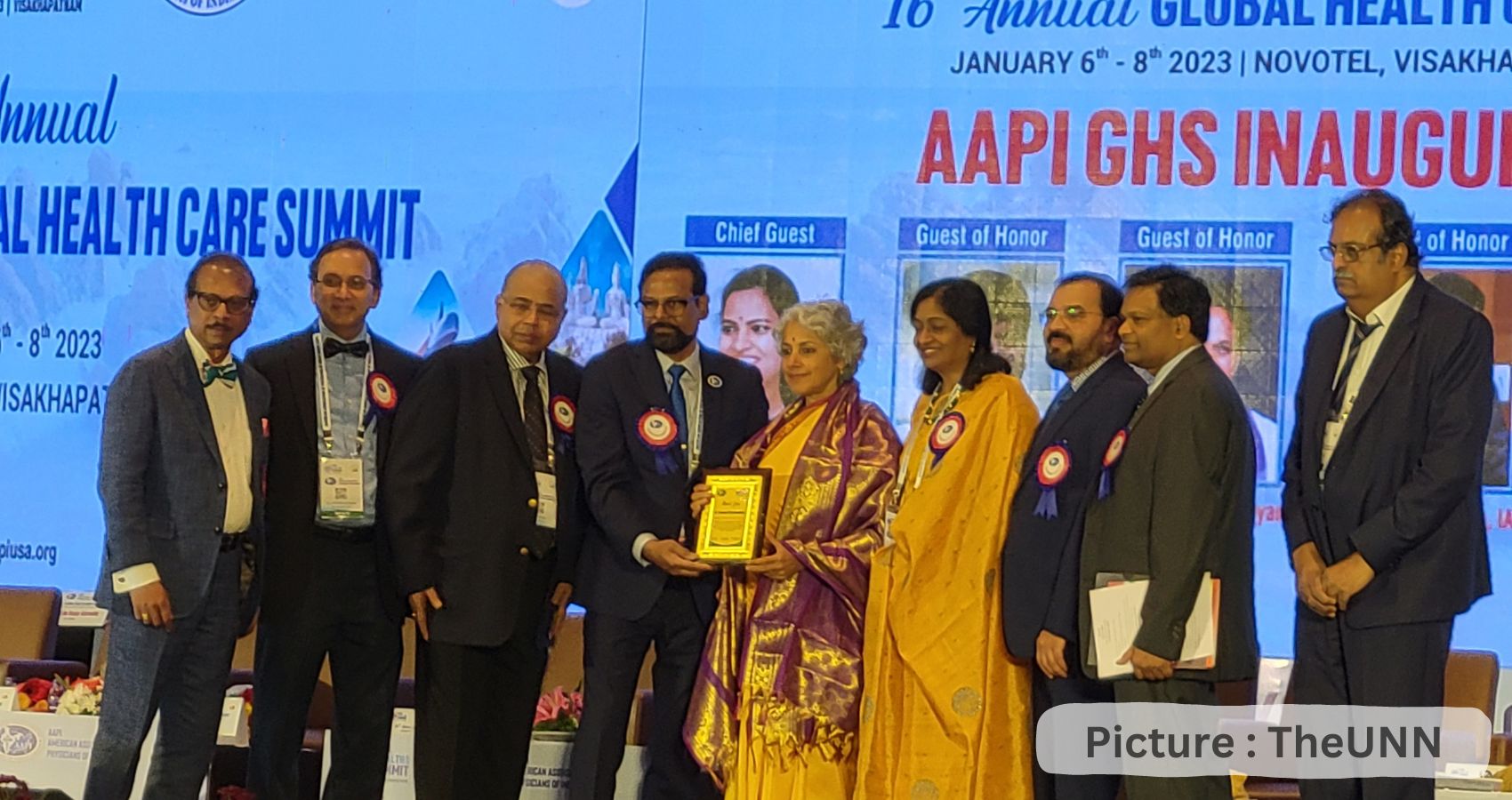
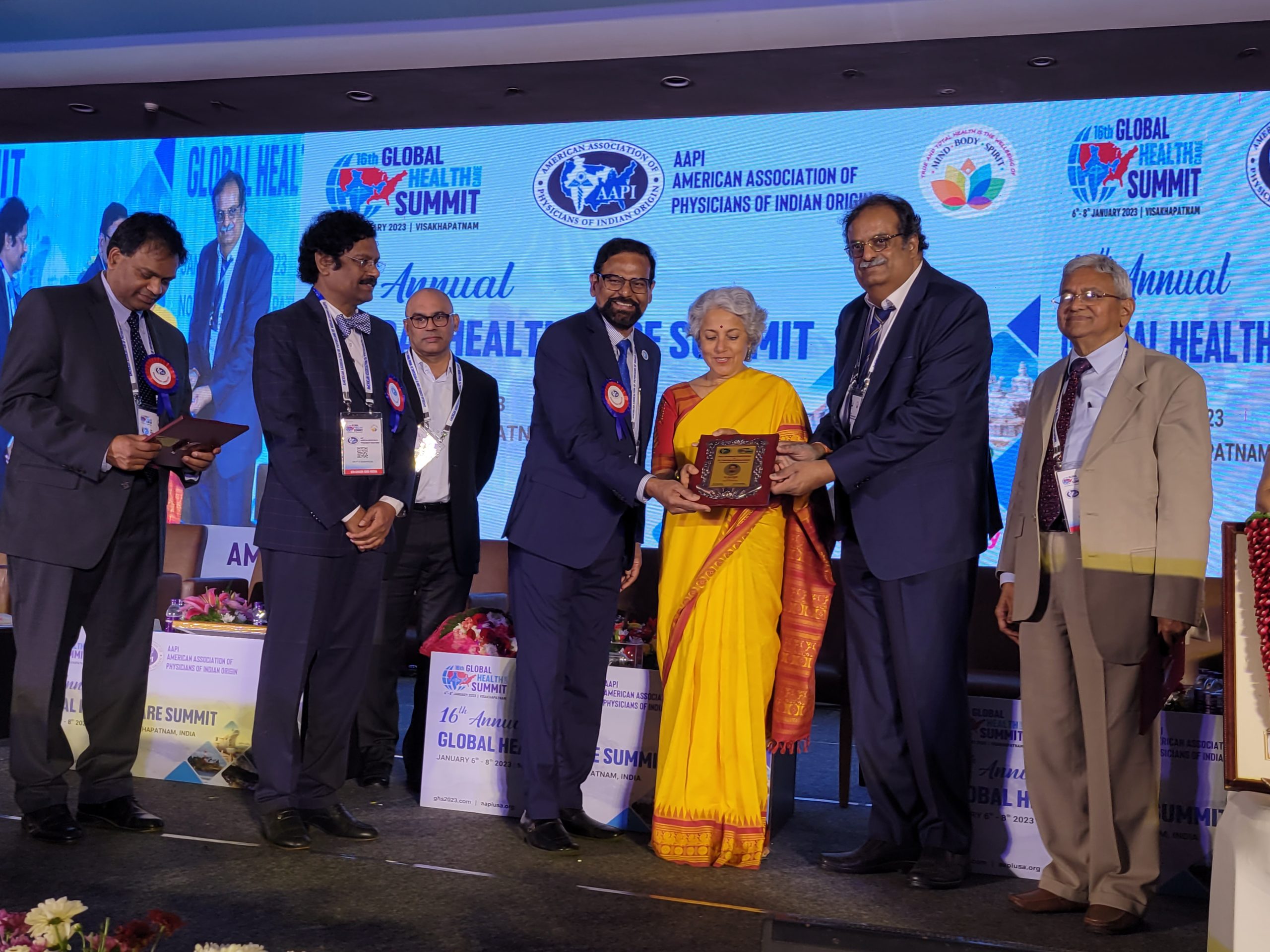
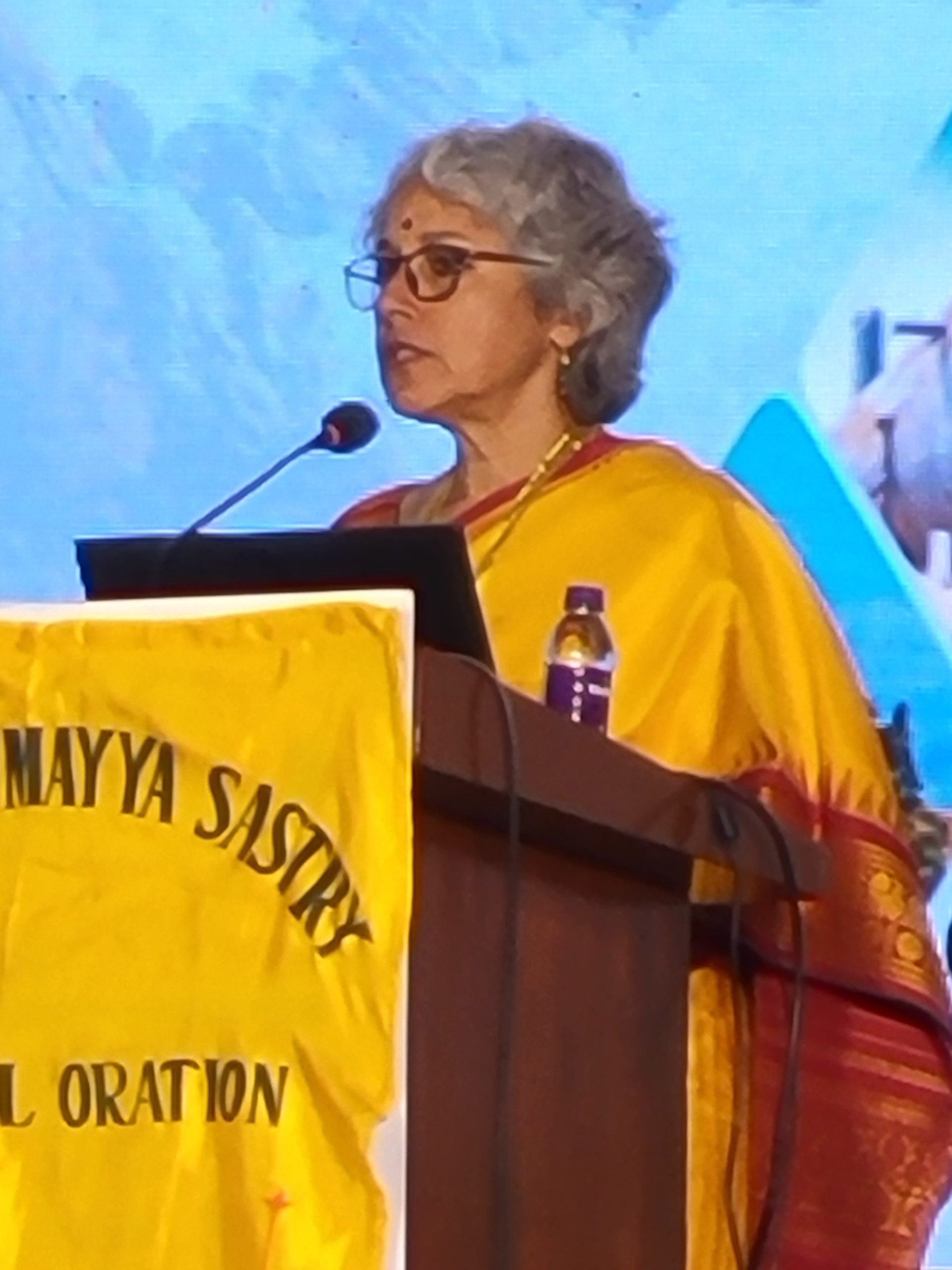
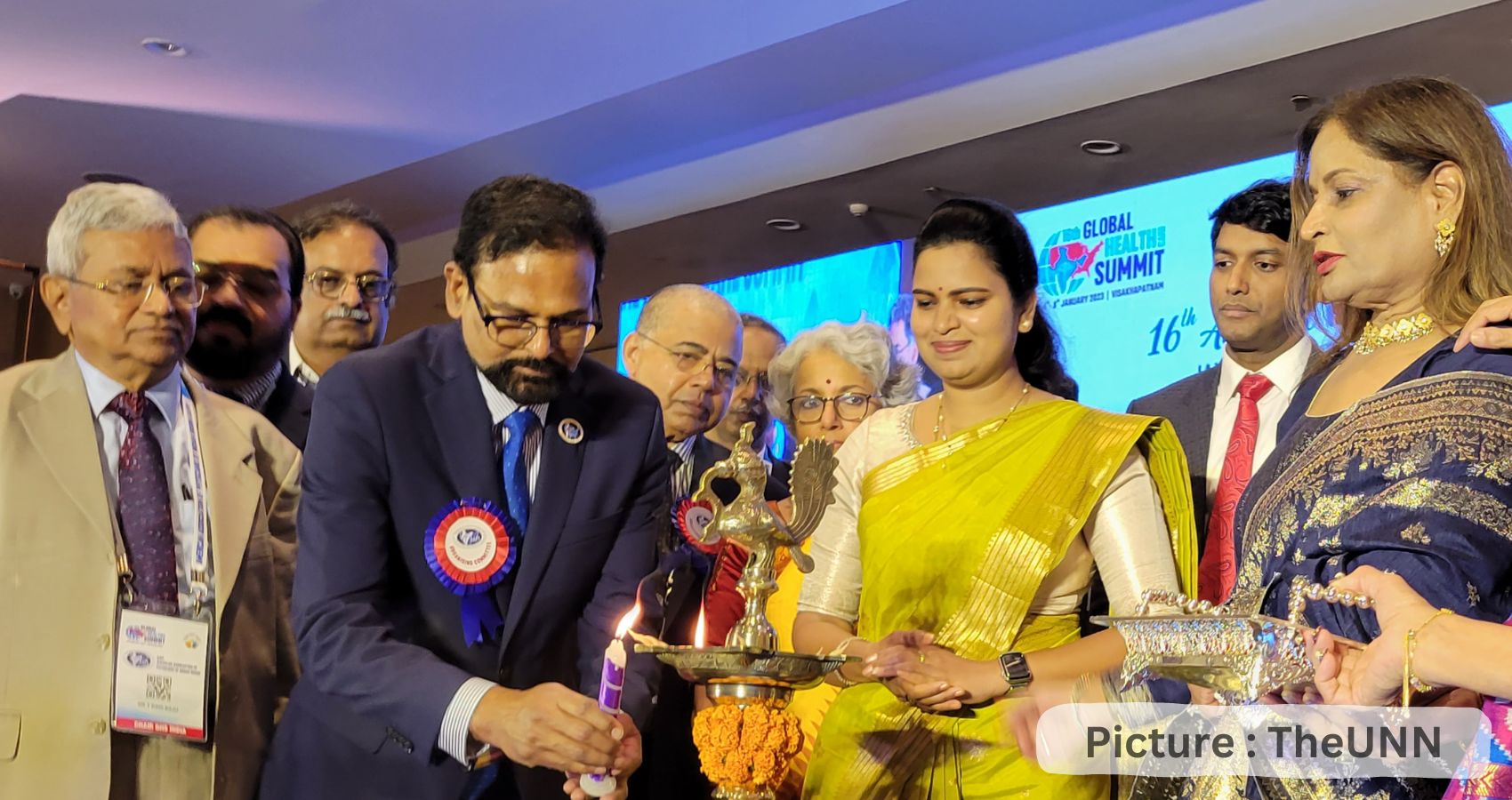
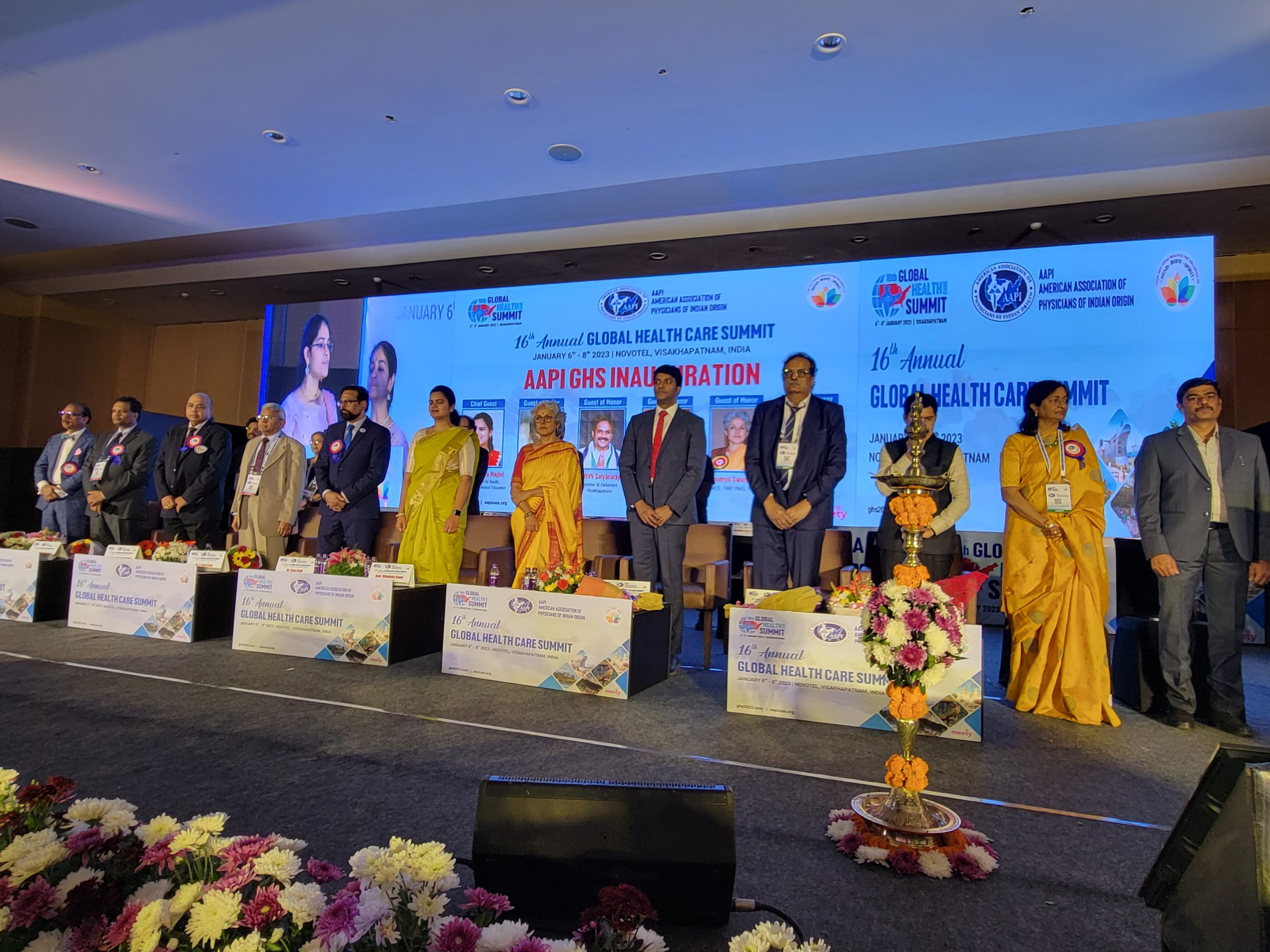
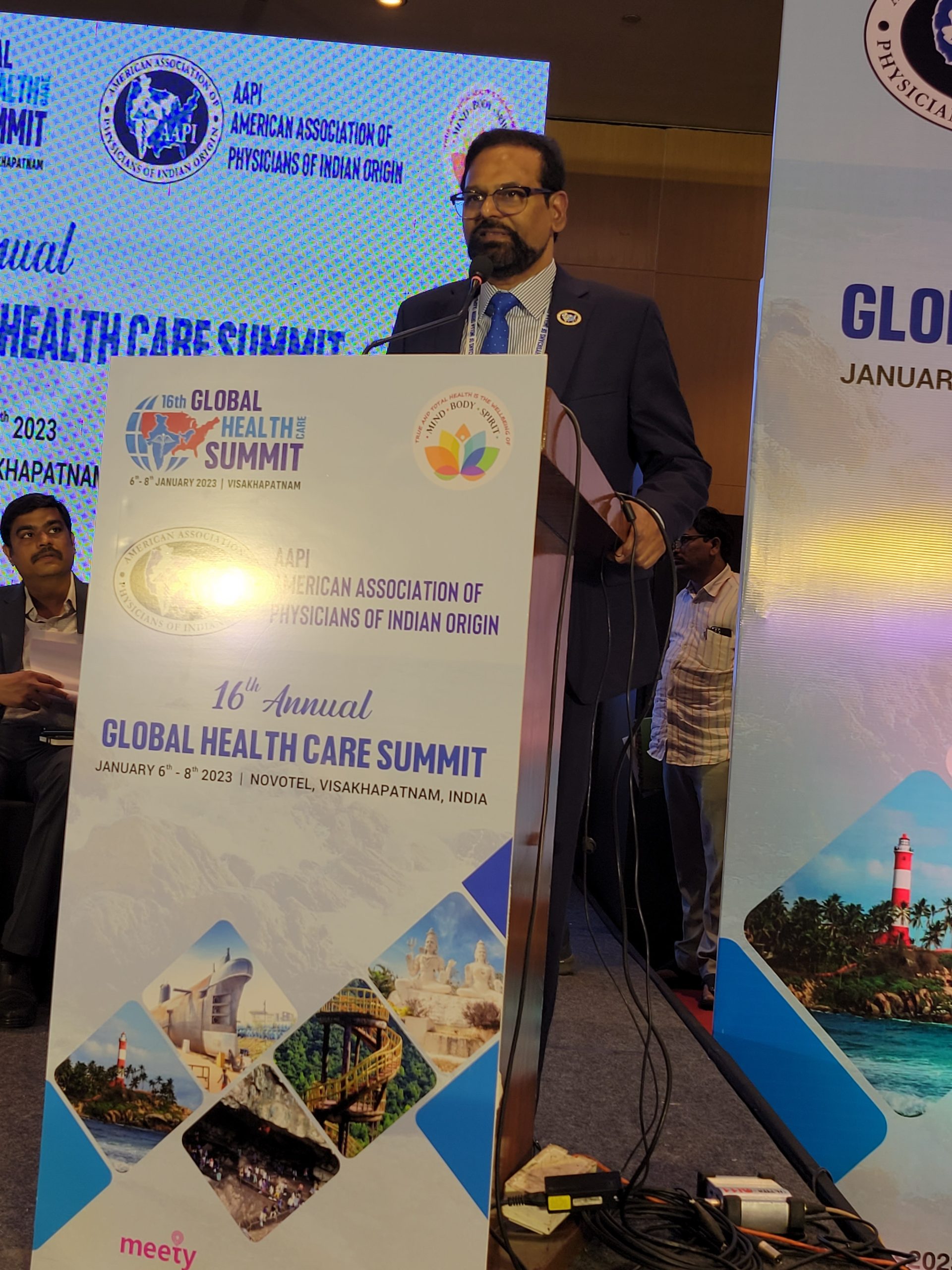
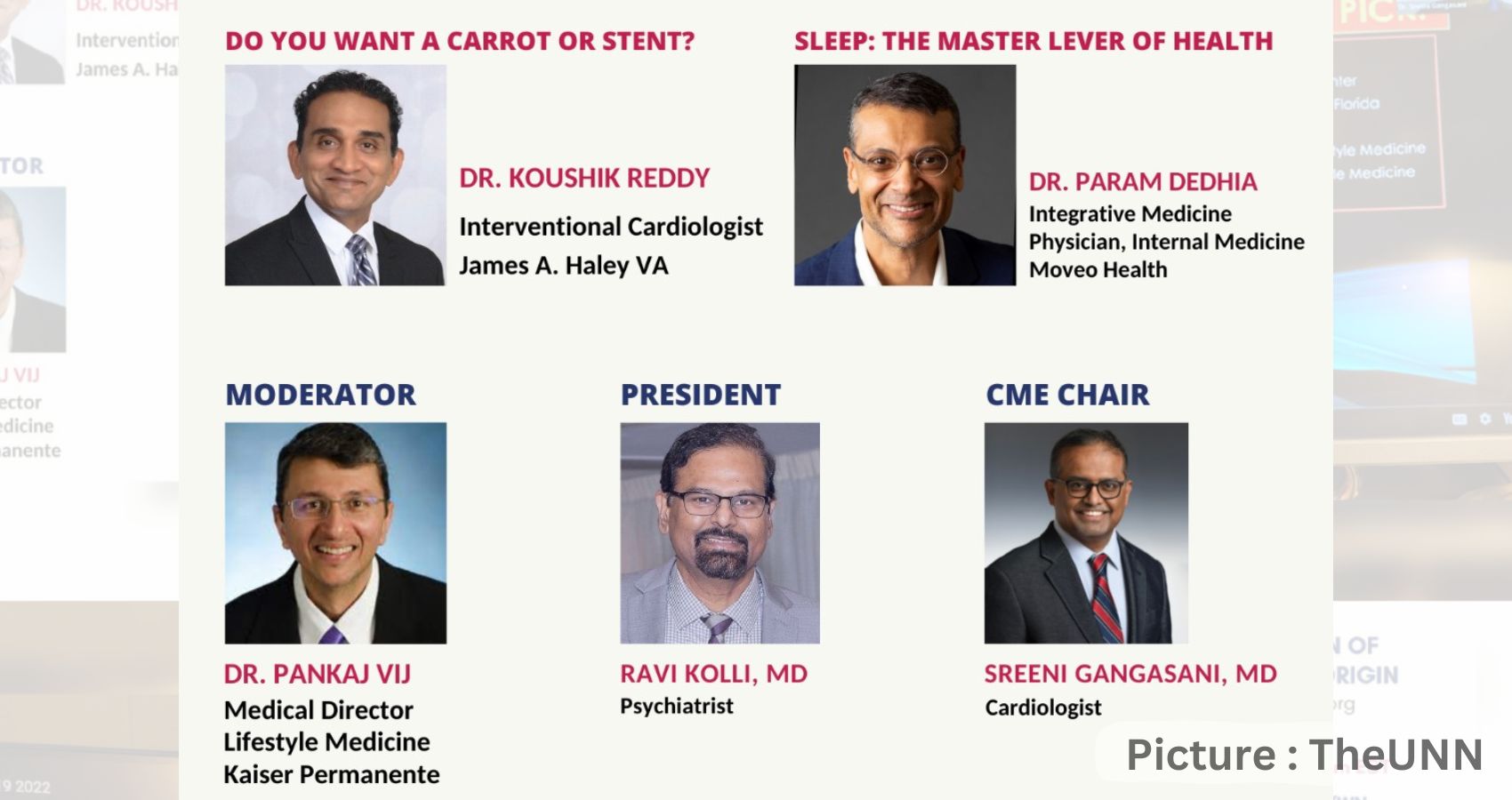
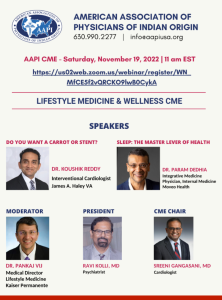
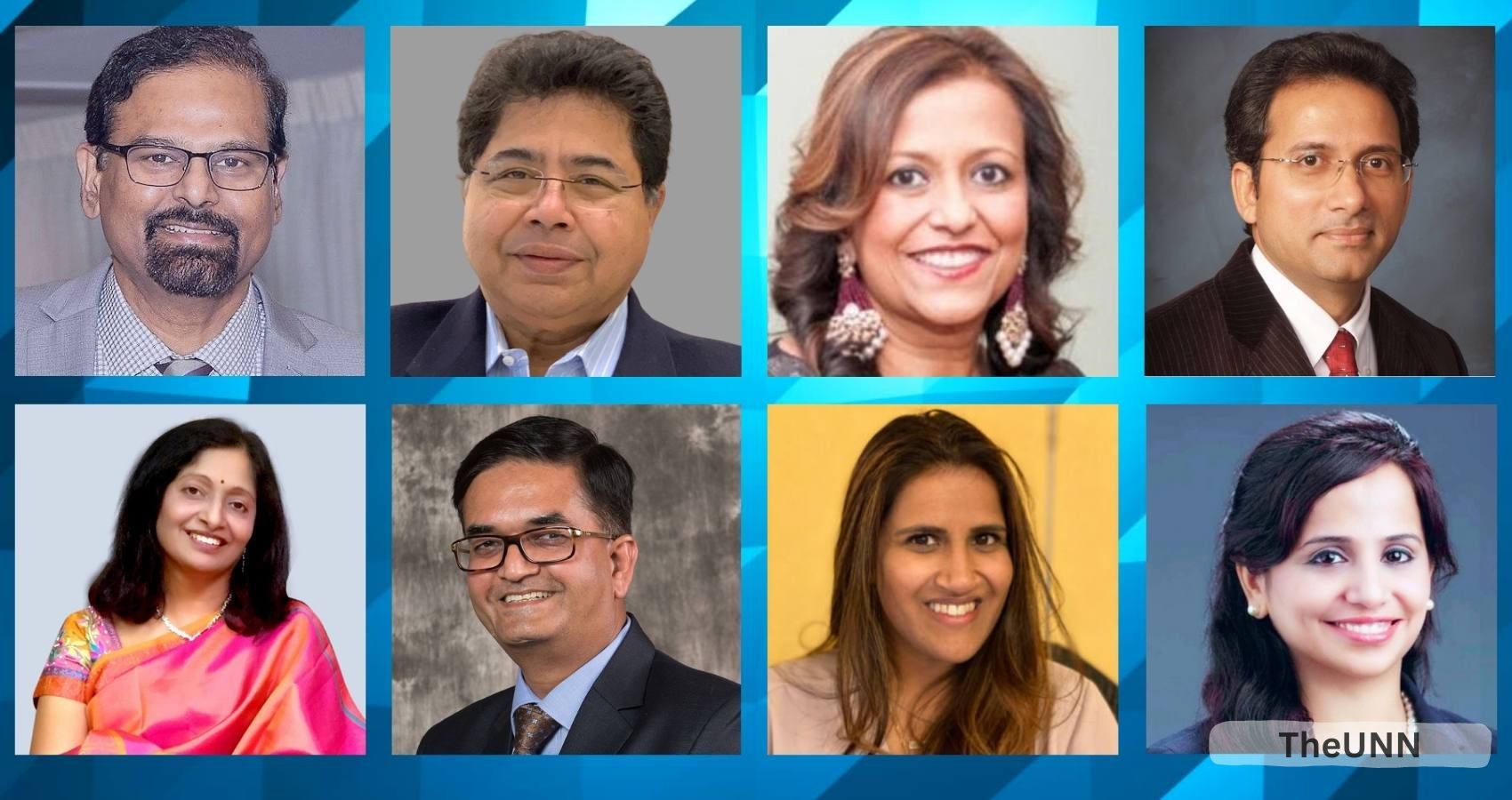
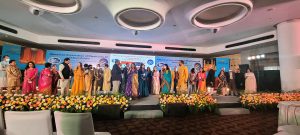
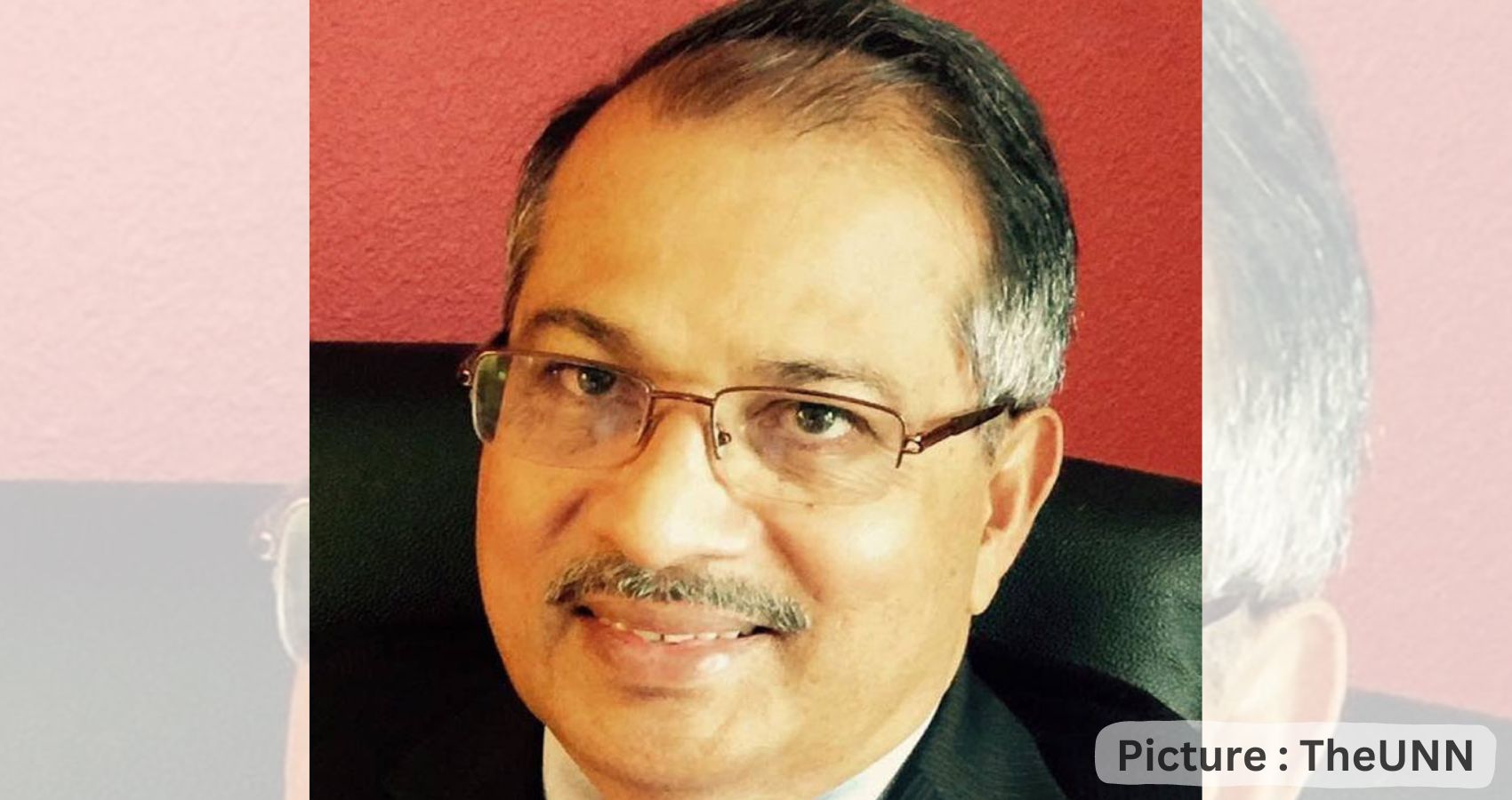
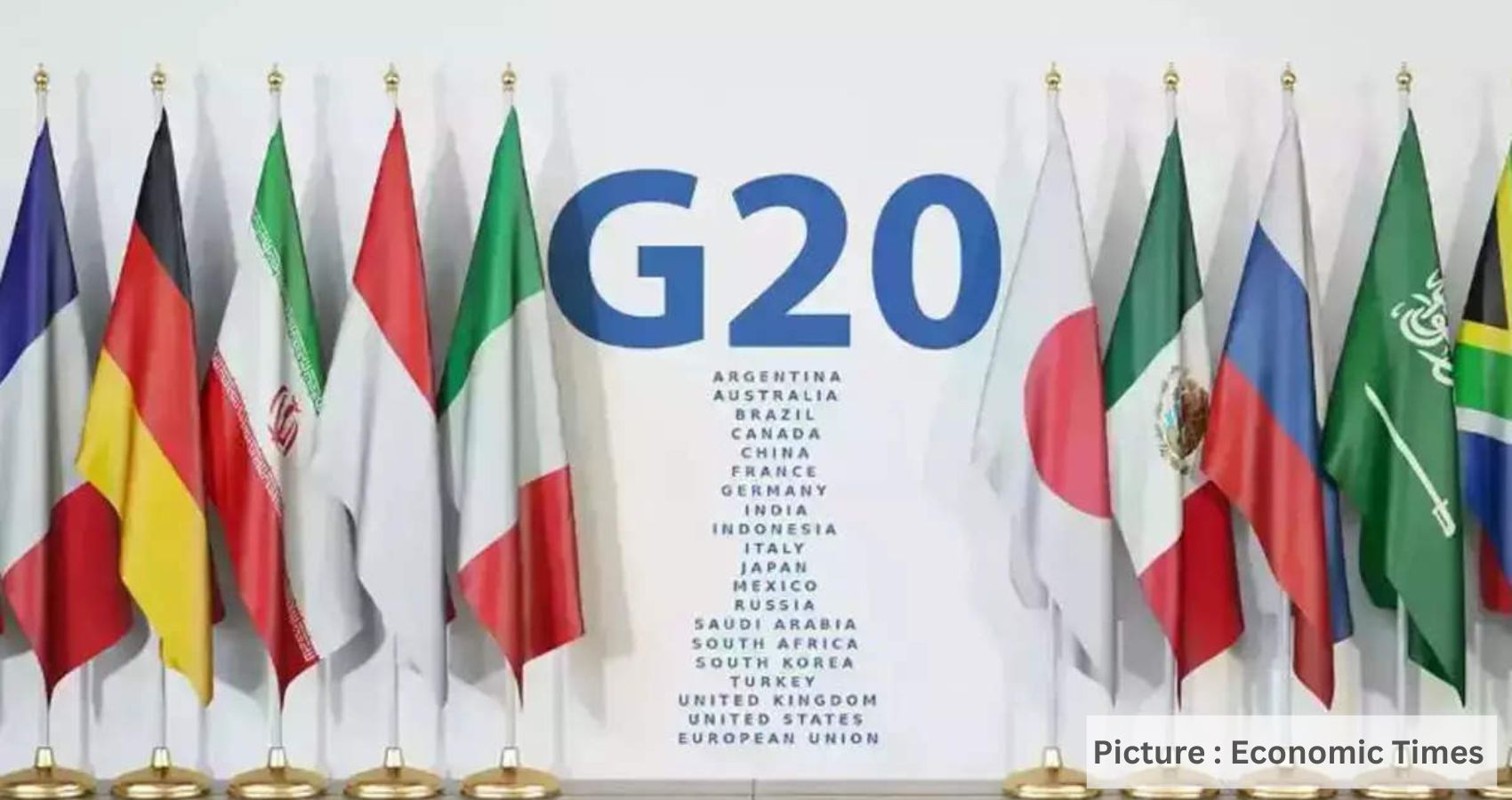
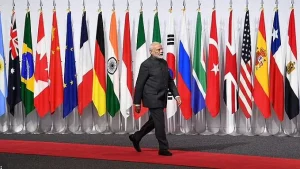
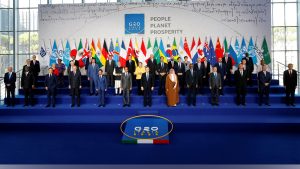
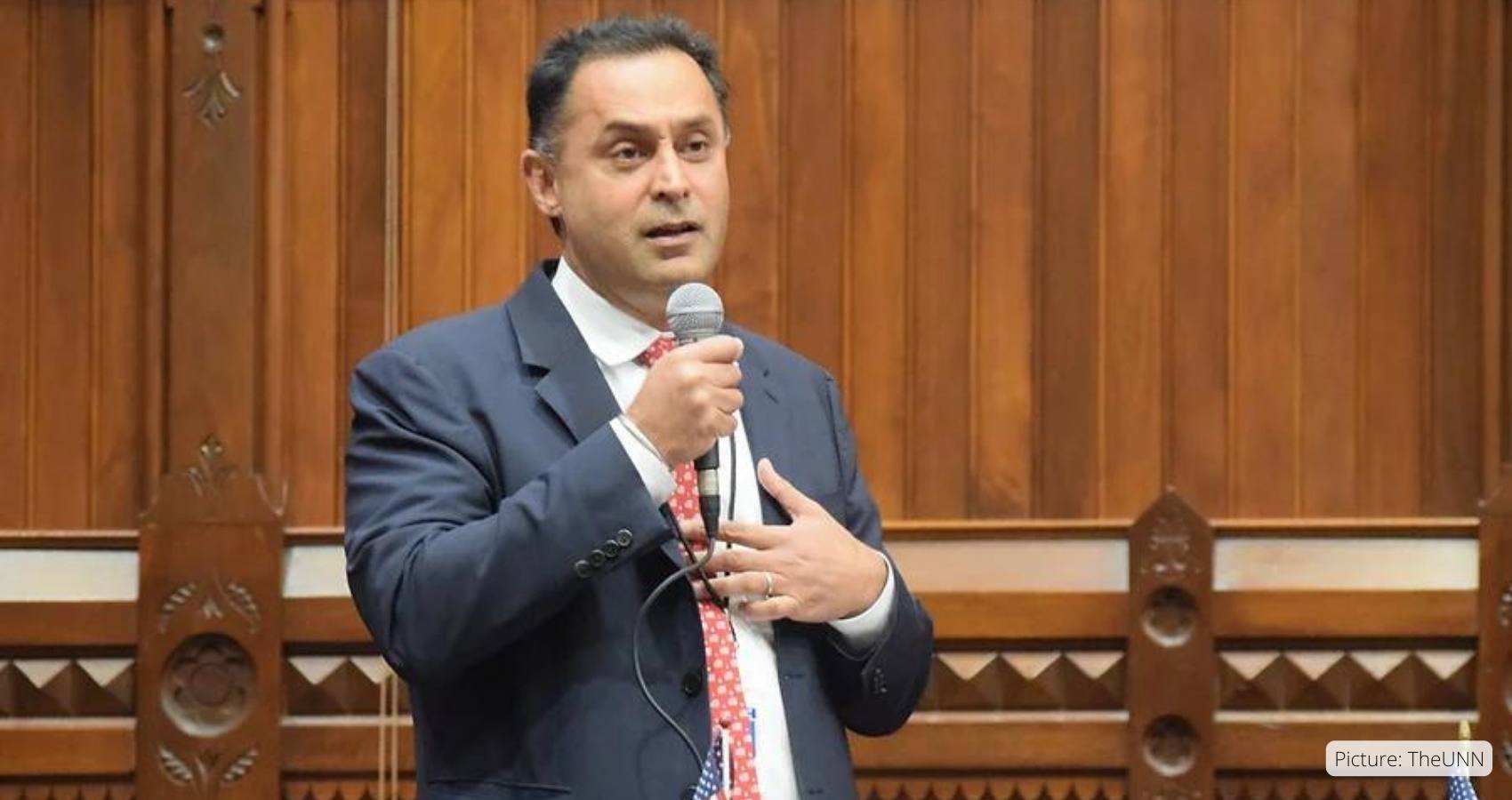
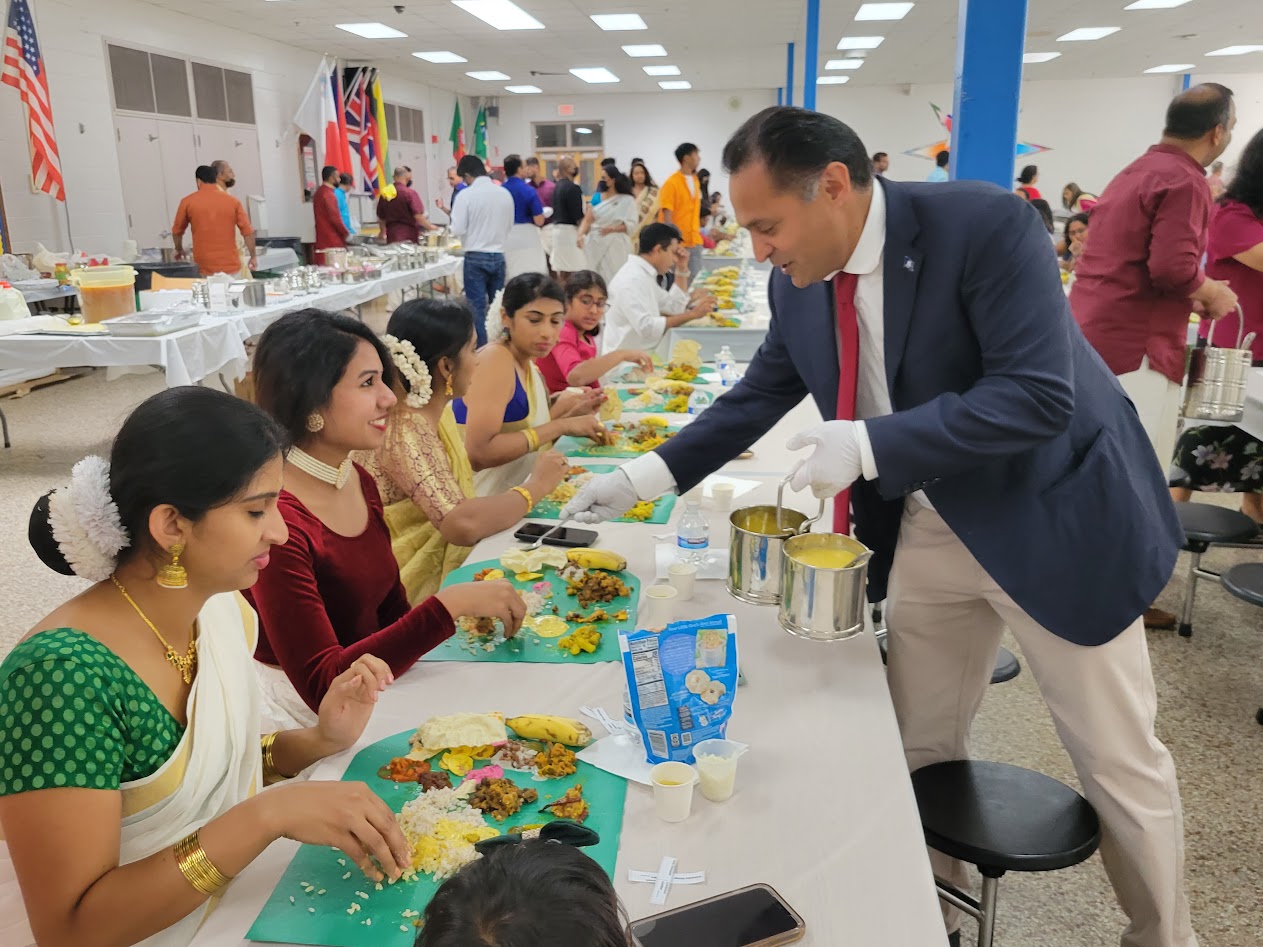
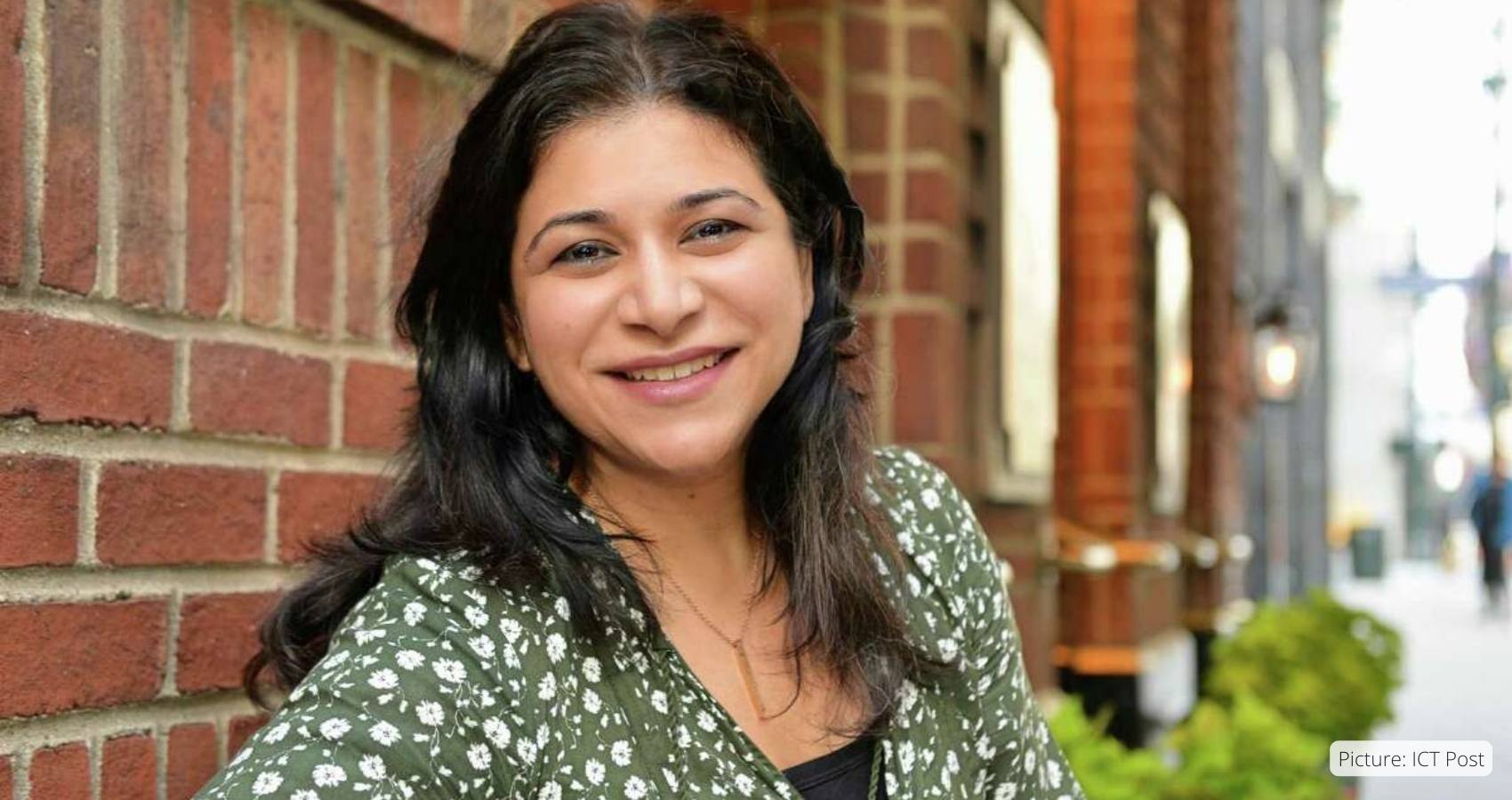
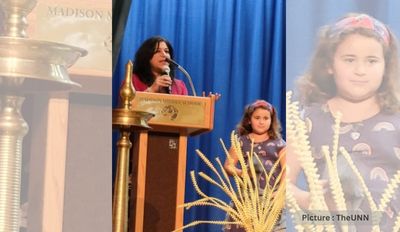
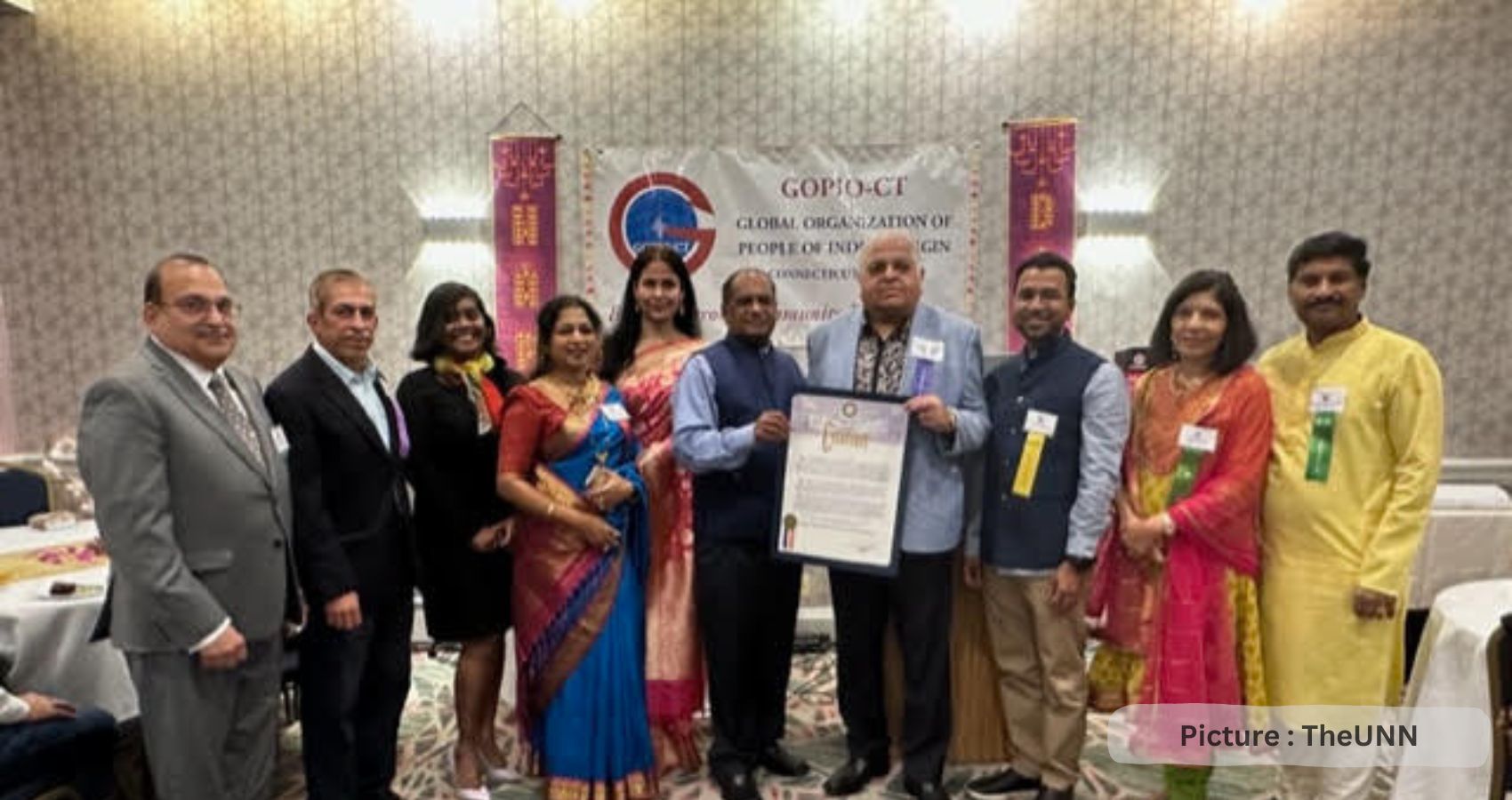
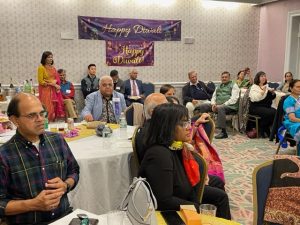
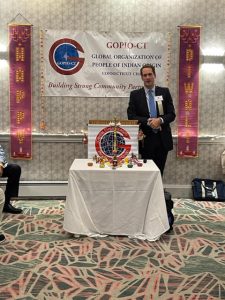
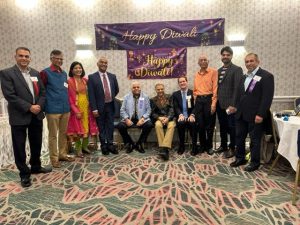
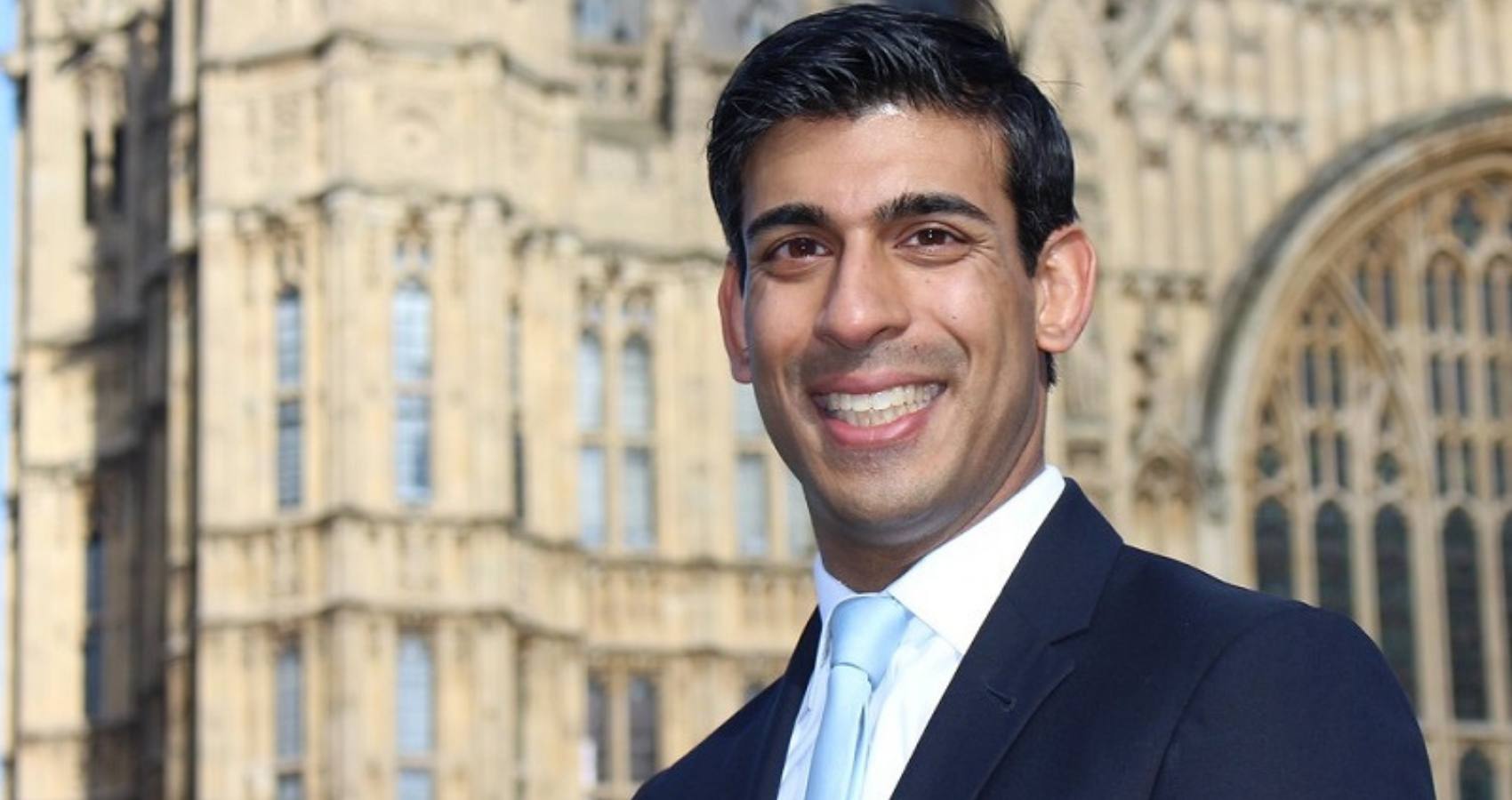
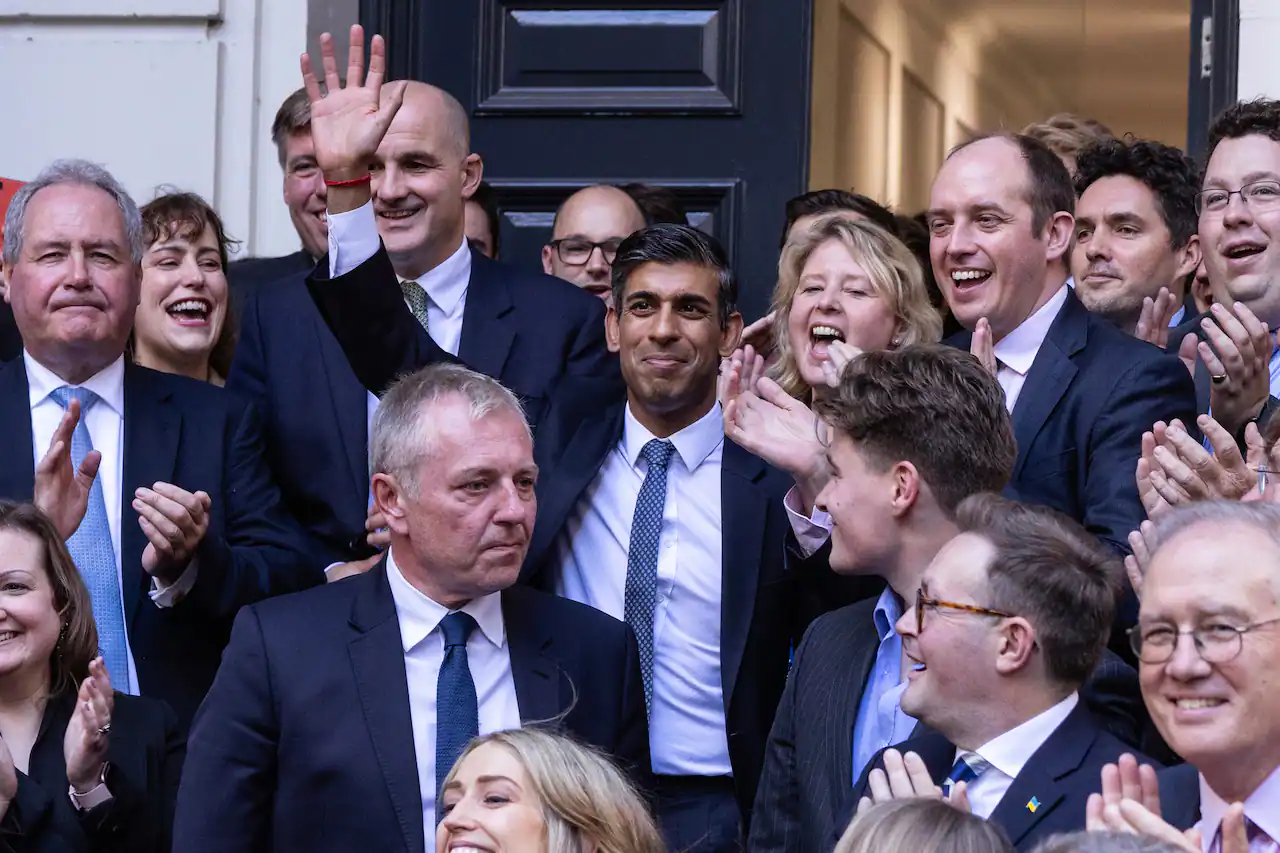 “This decision is a historic one and shows, once again, the diversity and talent of our party,” Ms Mordaunt said in a statement as she withdrew from the race just minutes before the winner was due to be announced. “Rishi has my full support.”
“This decision is a historic one and shows, once again, the diversity and talent of our party,” Ms Mordaunt said in a statement as she withdrew from the race just minutes before the winner was due to be announced. “Rishi has my full support.”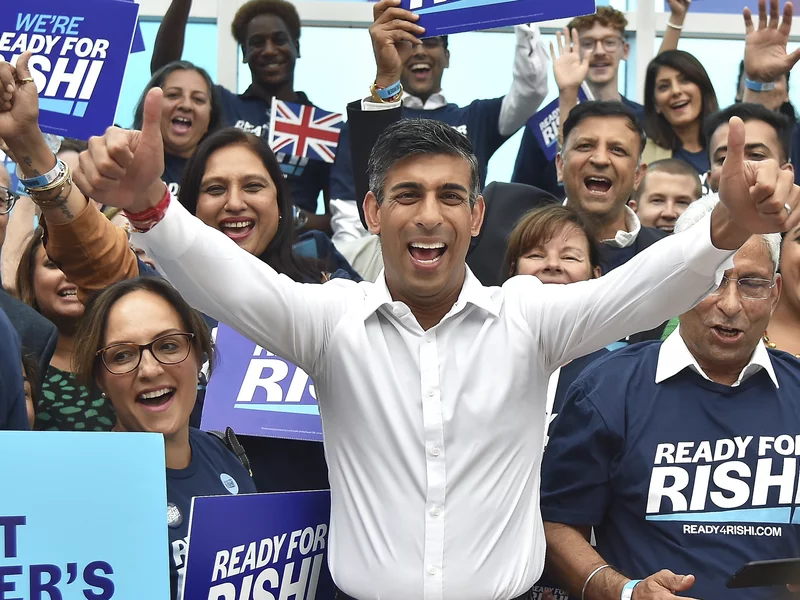 Bronwen Maddox, the chief executive of the London-based think tank Chatham House, says that one silver lining amid all the chaos of recent weeks is that it “has forced someone with economic competence to the top of the Conservative field, and it has also forced Labour, the main opposition party, to put together a platform based on a claim to financial coherence, competence, things that Labor hasn’t always been associated with in the past.”
Bronwen Maddox, the chief executive of the London-based think tank Chatham House, says that one silver lining amid all the chaos of recent weeks is that it “has forced someone with economic competence to the top of the Conservative field, and it has also forced Labour, the main opposition party, to put together a platform based on a claim to financial coherence, competence, things that Labor hasn’t always been associated with in the past.”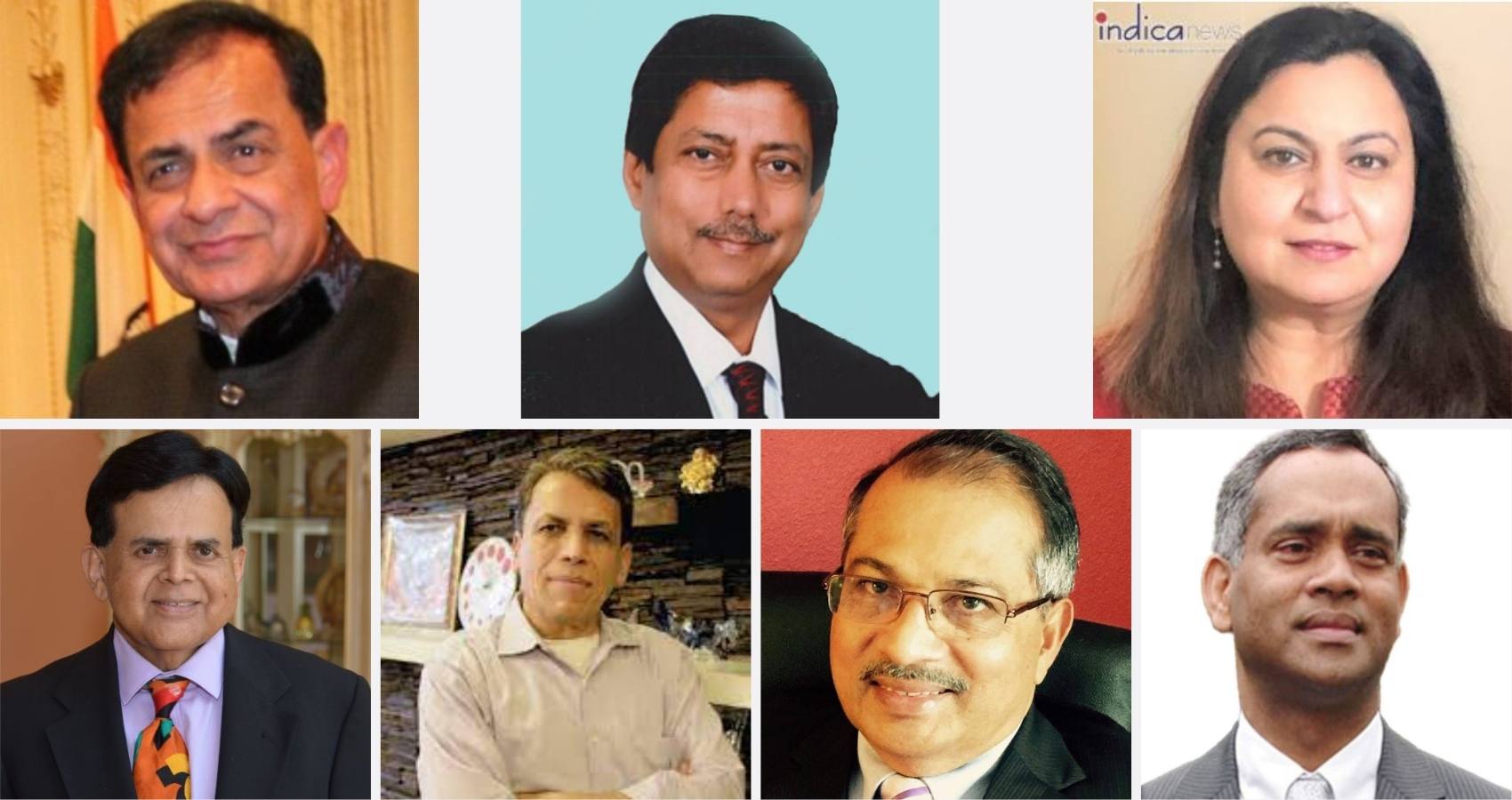











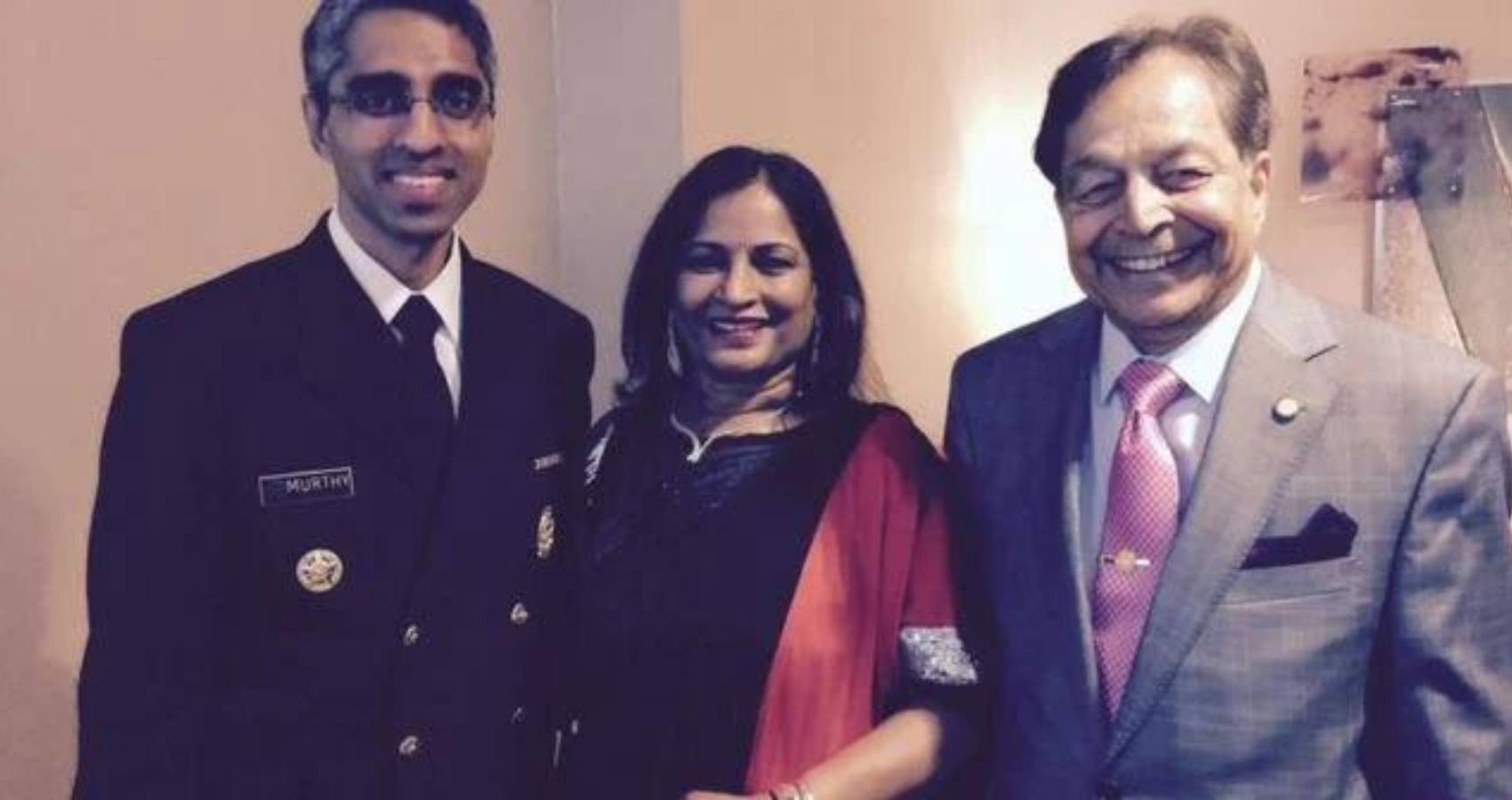
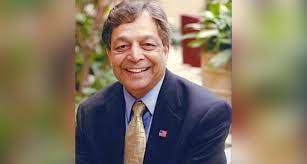 “He has taken an active role in efforts to promote suicide awareness and prevention, particularly those efforts related to postpartum depression awareness and treatment,” the press release said. In addition to his time on the Board of Mental Health, Shivangi previously served on the Mississippi State Board of Health. From 2005 to 2008, he served as Advisor to the US Secretary of Health and Human Services in the President George W. Bush administration. He is the founding president of the American Association of Physicians of Indian Origin in Mississippi and is the past president and chair of the India Association of Mississippi.
“He has taken an active role in efforts to promote suicide awareness and prevention, particularly those efforts related to postpartum depression awareness and treatment,” the press release said. In addition to his time on the Board of Mental Health, Shivangi previously served on the Mississippi State Board of Health. From 2005 to 2008, he served as Advisor to the US Secretary of Health and Human Services in the President George W. Bush administration. He is the founding president of the American Association of Physicians of Indian Origin in Mississippi and is the past president and chair of the India Association of Mississippi.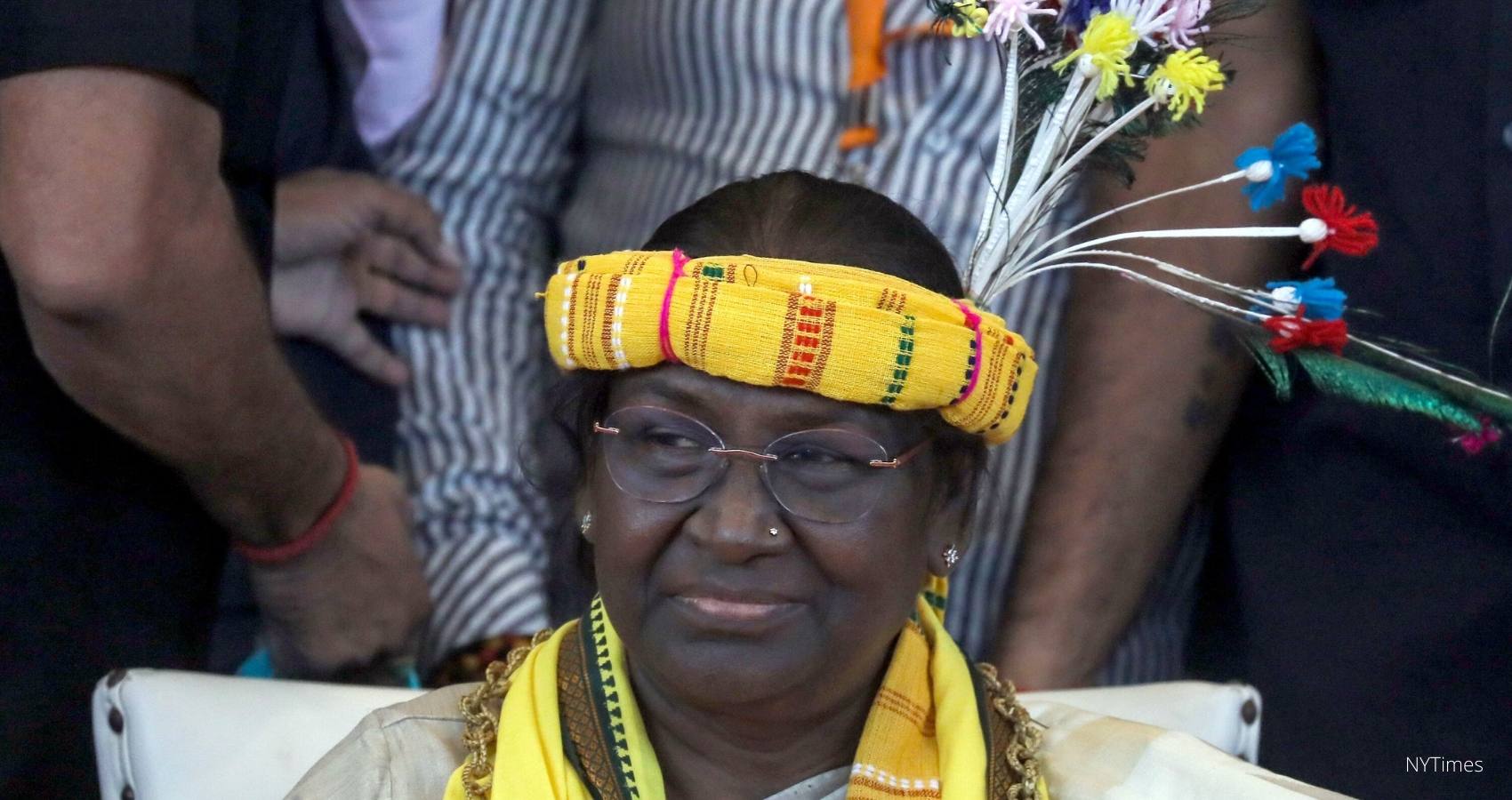
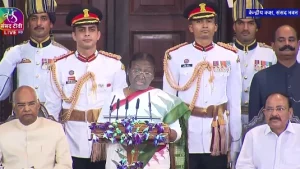 India, a country with 1.4 billion people and the largest democracy in the world, has a constitutional framework of India is parliamentary, which is led by the elected representative and overseen by the first person of the country, the President of India.
India, a country with 1.4 billion people and the largest democracy in the world, has a constitutional framework of India is parliamentary, which is led by the elected representative and overseen by the first person of the country, the President of India.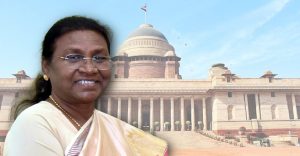 Murmu said that she started her journey of life from a small tribal village in Odisha in the eastern part of the country. From the background that she came from, it was like a dream for her to get elementary education, she said. Her election to the top constitutional post proves that in India, the poor can not only dream but also fulfill those aspirations, she added.
Murmu said that she started her journey of life from a small tribal village in Odisha in the eastern part of the country. From the background that she came from, it was like a dream for her to get elementary education, she said. Her election to the top constitutional post proves that in India, the poor can not only dream but also fulfill those aspirations, she added. 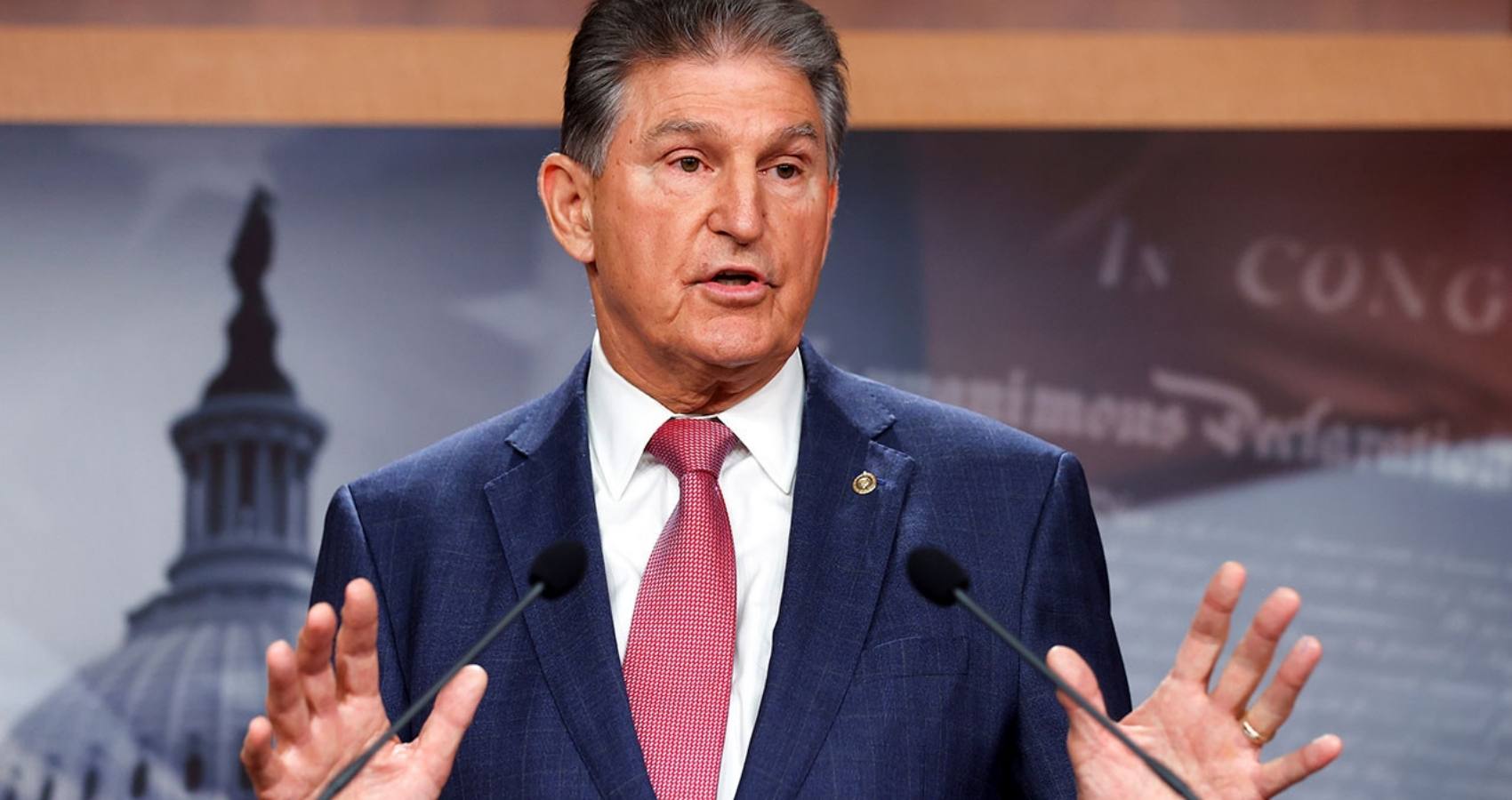
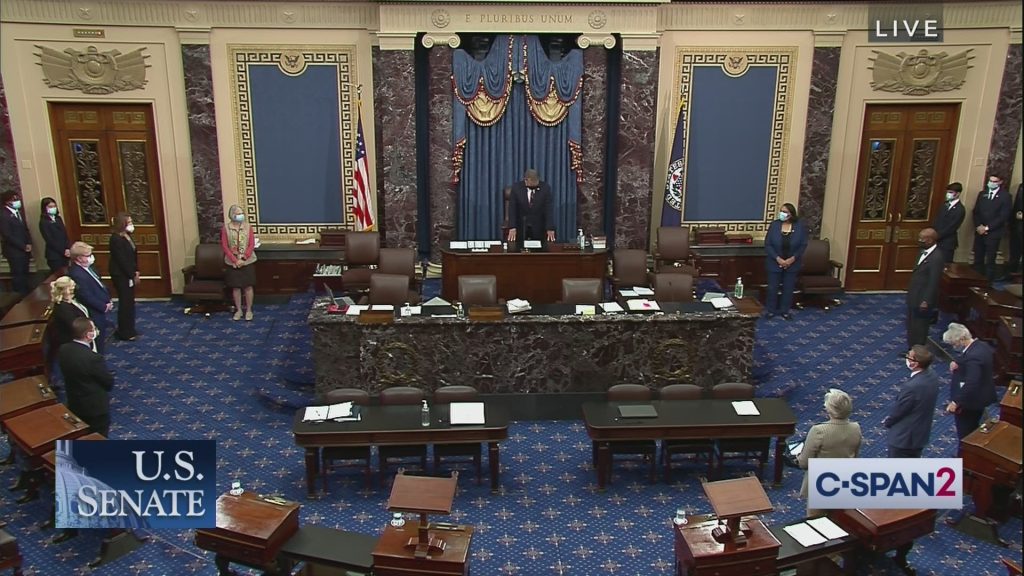 Senator Joseph Manchin III, representing the state of West Virginia in the US Senate since 2010, is a politician and businessman. A member of the Democratic Party, he was the 34th governor of West Virginia from 2005 to 2010 and the 27th secretary of state of West Virginia from 2001 to 2005. As per his website, Senator Manchin currently serves as the Chairman of the Senate Energy and Natural Resources Committee, and also serves on the Senate Committee on Appropriations, the Senate Committee on Armed Services, and the Senate Committee on Veterans’ Affairs – four critical committees that tackle the important work of addressing our nation’s energy needs, overseeing discretionary spending, standing up for our Veterans, and defending our nation.
Senator Joseph Manchin III, representing the state of West Virginia in the US Senate since 2010, is a politician and businessman. A member of the Democratic Party, he was the 34th governor of West Virginia from 2005 to 2010 and the 27th secretary of state of West Virginia from 2001 to 2005. As per his website, Senator Manchin currently serves as the Chairman of the Senate Energy and Natural Resources Committee, and also serves on the Senate Committee on Appropriations, the Senate Committee on Armed Services, and the Senate Committee on Veterans’ Affairs – four critical committees that tackle the important work of addressing our nation’s energy needs, overseeing discretionary spending, standing up for our Veterans, and defending our nation.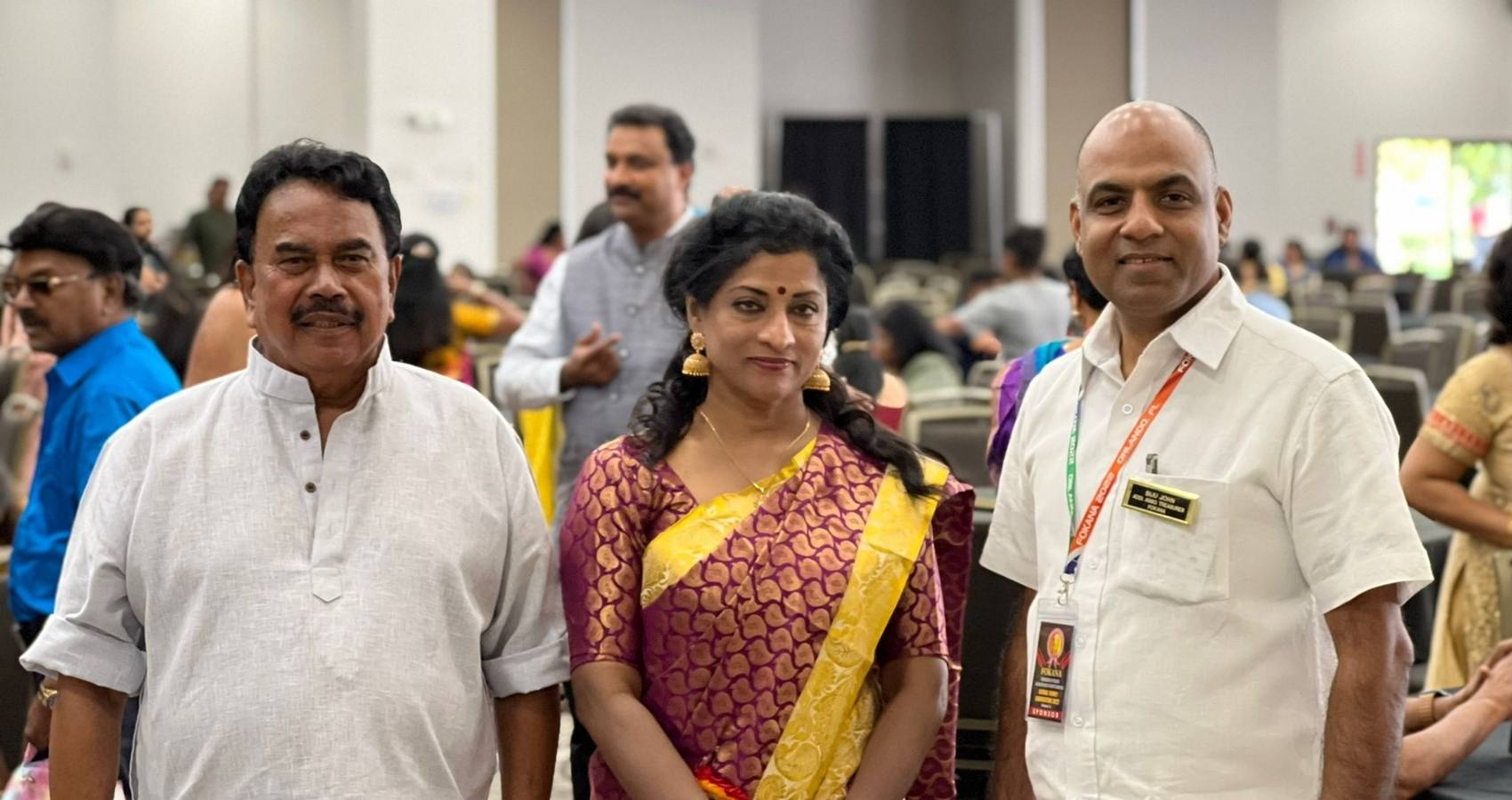
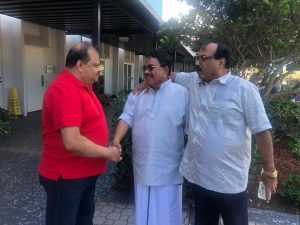 An accomplished organizer, outstanding businessman, journalist and political activist, Dr. Babu Stephen is quite well-known among the Indian American community for his social volunteering activities and organizational abilities.
An accomplished organizer, outstanding businessman, journalist and political activist, Dr. Babu Stephen is quite well-known among the Indian American community for his social volunteering activities and organizational abilities. 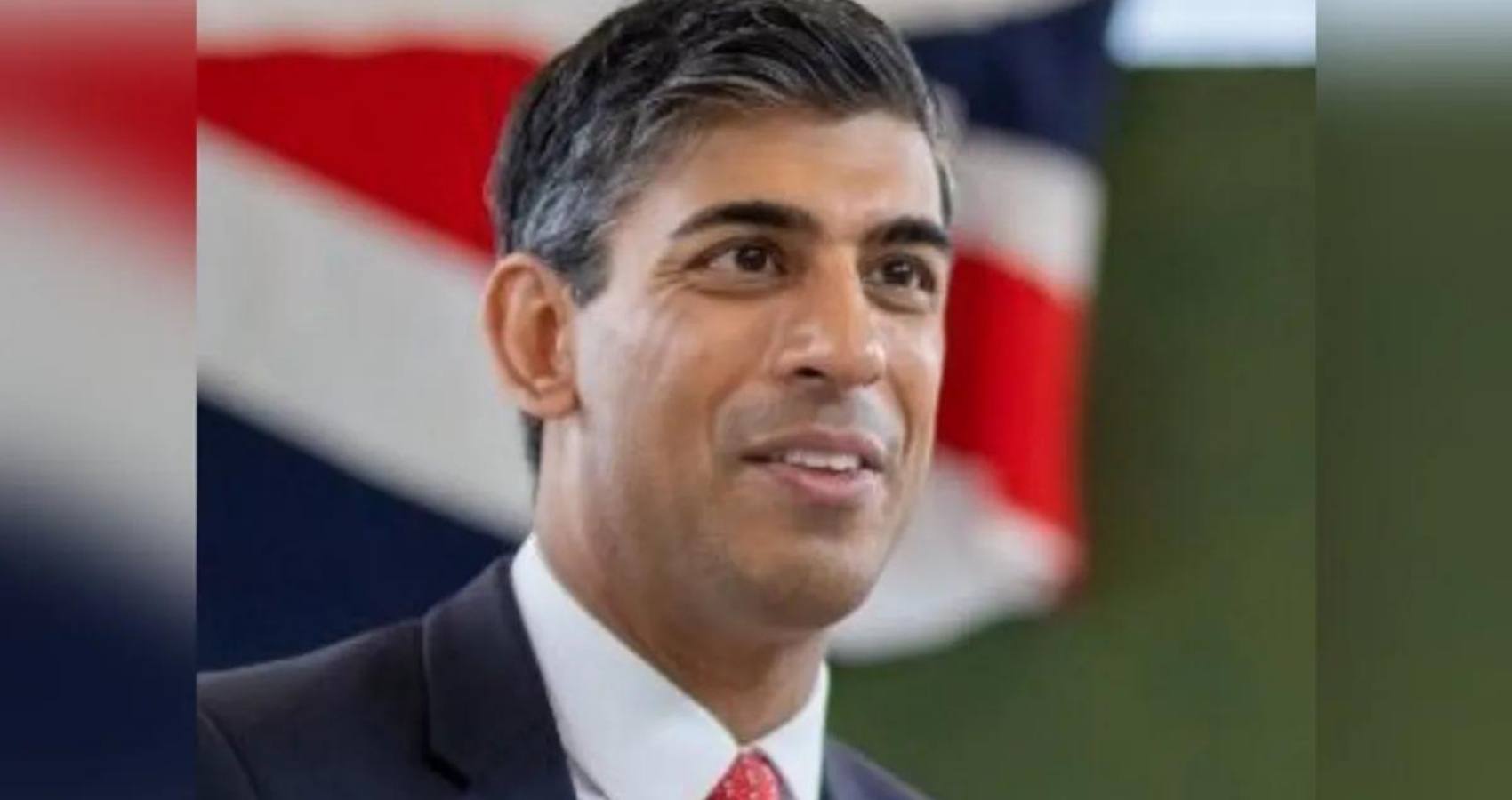
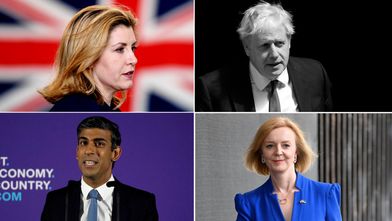 The son-in-law of Infosys co-founder Narayana Murthy, Sunak has faced criticism for not giving enough cost-of-living support to households, his wealthy wife’s non-domiciled tax status and a fine he received, along with Johnson, for breaking Covid-19 lockdown rules. His tax-and-spend budget last year put Britain on course for its biggest tax burden since the 1950s, undermining his claims to favor lower taxes.
The son-in-law of Infosys co-founder Narayana Murthy, Sunak has faced criticism for not giving enough cost-of-living support to households, his wealthy wife’s non-domiciled tax status and a fine he received, along with Johnson, for breaking Covid-19 lockdown rules. His tax-and-spend budget last year put Britain on course for its biggest tax burden since the 1950s, undermining his claims to favor lower taxes.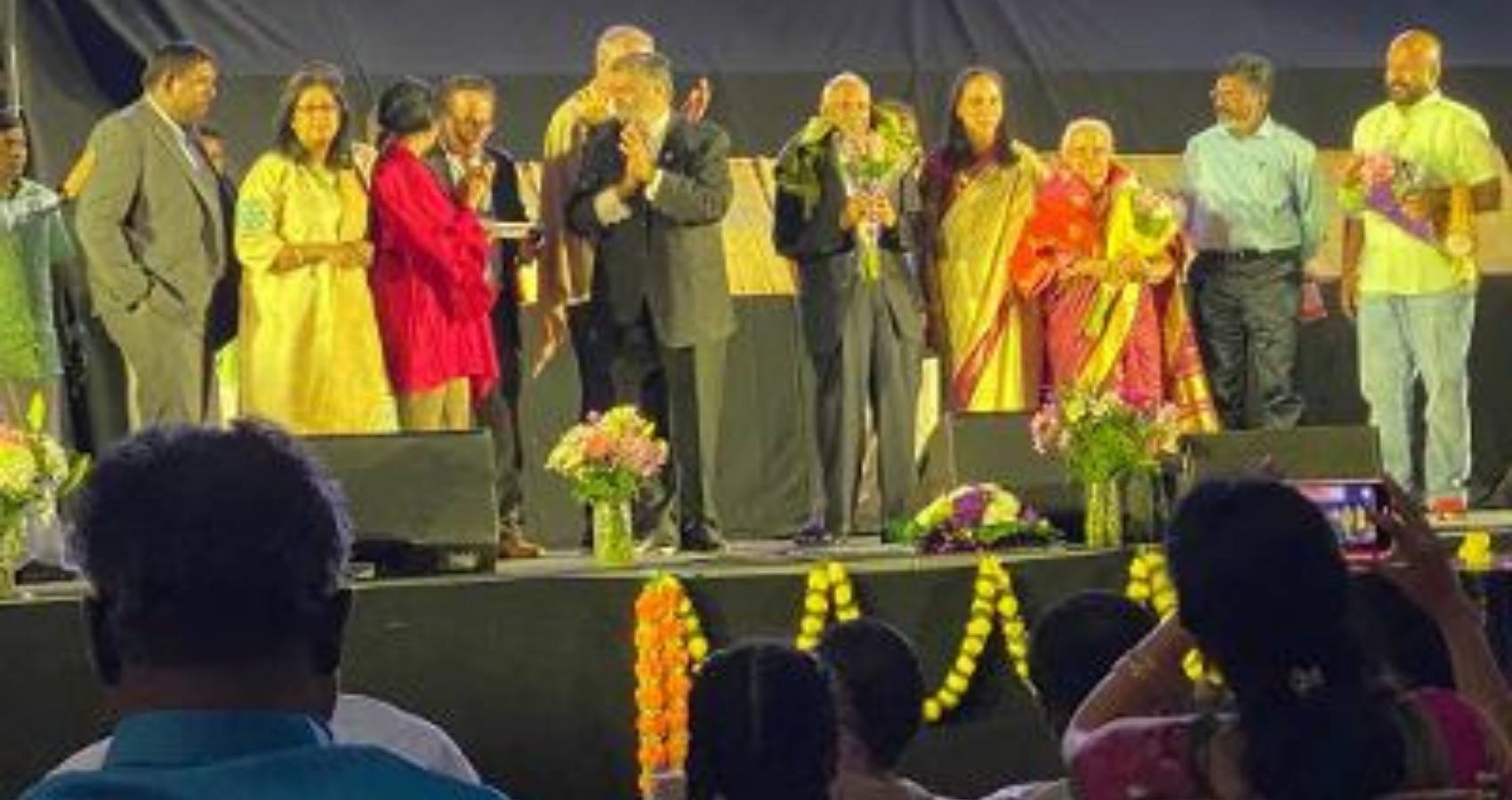
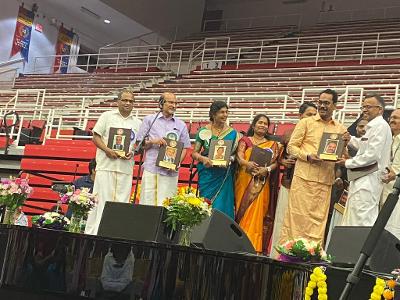 During the solemn ceremony attended by community leaders, diplomats, political leaders and hundreds of community members, including the President of FeTNA V. Caldwell, President-elect Bala Swaminathan, NYTS President Ram Mohan, NYTS leaders Ranga Purushothaman, K Kumaraja, The SA Times-Person of the year 2020 Ravi Bhooplapur, Eric Kumar, Anusuya, Amudha, and Anand Poola along with Nimmi and Kamlesh Mehta on the glittering stage of St. John’s University. The guest also includes Members of Parliament in India from Tamil Nadu. Over 1700 delegates attended the convention.
During the solemn ceremony attended by community leaders, diplomats, political leaders and hundreds of community members, including the President of FeTNA V. Caldwell, President-elect Bala Swaminathan, NYTS President Ram Mohan, NYTS leaders Ranga Purushothaman, K Kumaraja, The SA Times-Person of the year 2020 Ravi Bhooplapur, Eric Kumar, Anusuya, Amudha, and Anand Poola along with Nimmi and Kamlesh Mehta on the glittering stage of St. John’s University. The guest also includes Members of Parliament in India from Tamil Nadu. Over 1700 delegates attended the convention.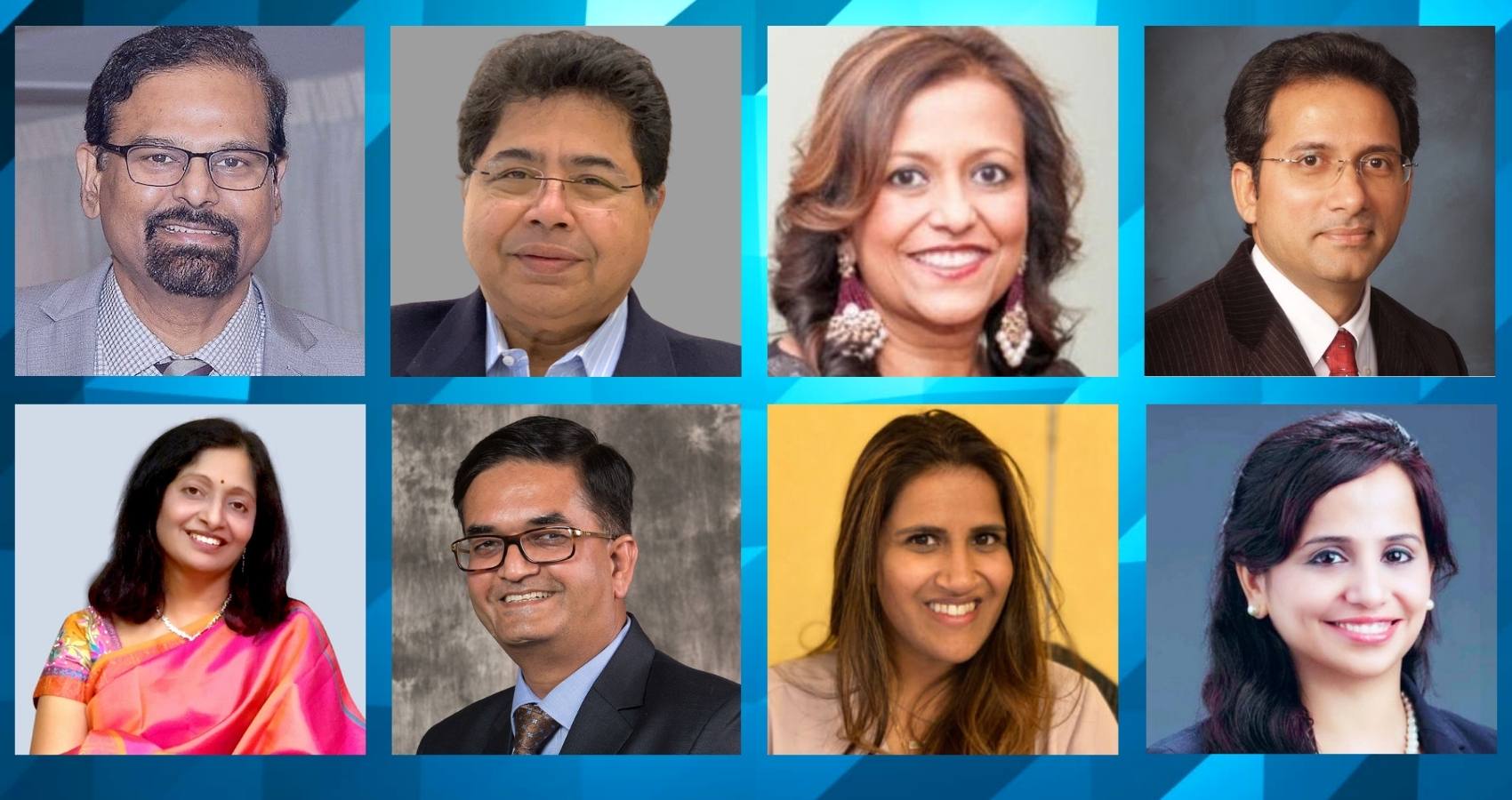
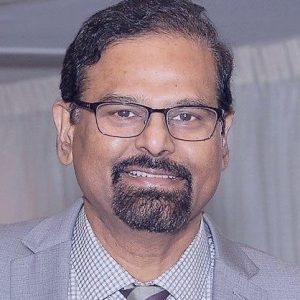 Dr. Ravi Kolli has a dynamic and diverse team comprising of Dr. Anjana Samaddar, President-Elect, Dr. Satheesh Kathula, Vice President; Dr. Meherbala Medavaram, Secretary; Dr. Sumul N. Raval, Treasurer; Dr. V. Ranga, Chair, Board of Trustees; Dr. Pooja Kinkhabwala, President of Young Physicians Section; and, Dr. Ammu Susheela, President of Medical Student/Residents & Fellows Section. Dr. Anupama Gotimukula will continue to guide AAPI as the Immediate Past President of AAPI.
Dr. Ravi Kolli has a dynamic and diverse team comprising of Dr. Anjana Samaddar, President-Elect, Dr. Satheesh Kathula, Vice President; Dr. Meherbala Medavaram, Secretary; Dr. Sumul N. Raval, Treasurer; Dr. V. Ranga, Chair, Board of Trustees; Dr. Pooja Kinkhabwala, President of Young Physicians Section; and, Dr. Ammu Susheela, President of Medical Student/Residents & Fellows Section. Dr. Anupama Gotimukula will continue to guide AAPI as the Immediate Past President of AAPI.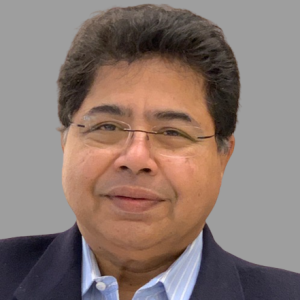 Dr. Vishweshwar R. Ranga, Chairman of Board of Trustees of AAPI is a practicing Internal Medicine Specialist from Las Vegas affiliated with multiple local area hospitals and has had more than 35 years of experience in the medical field. Dr. Ranga has been associated with AAPI since his early days as a Resident in New York. “Since moving to the United States to pursue my career as a physician I have been closely following the entire spectrum of health care in the world’s largest economy,” recalls Dr. Ranga.
Dr. Vishweshwar R. Ranga, Chairman of Board of Trustees of AAPI is a practicing Internal Medicine Specialist from Las Vegas affiliated with multiple local area hospitals and has had more than 35 years of experience in the medical field. Dr. Ranga has been associated with AAPI since his early days as a Resident in New York. “Since moving to the United States to pursue my career as a physician I have been closely following the entire spectrum of health care in the world’s largest economy,” recalls Dr. Ranga.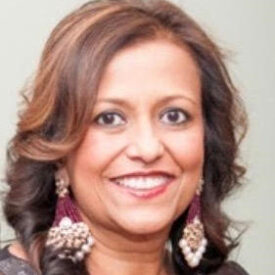 Dr. Anjana Samadder, President-Elect of AAPI, says, “In my role as the President-Elect, I would like not only to carry on the good work initiated and started by prior presidents, but also like to address health care practice issues facing our members both in private practice and in academia. I would like to get AAPI represented in the US National Health care committee by organizing strong lobbying efforts. I will also address physician burnout and establish a networking platform for young physicians. I will be open to suggestions from members in order to make our organization one of the strongest ethnic organizations in USA.”
Dr. Anjana Samadder, President-Elect of AAPI, says, “In my role as the President-Elect, I would like not only to carry on the good work initiated and started by prior presidents, but also like to address health care practice issues facing our members both in private practice and in academia. I would like to get AAPI represented in the US National Health care committee by organizing strong lobbying efforts. I will also address physician burnout and establish a networking platform for young physicians. I will be open to suggestions from members in order to make our organization one of the strongest ethnic organizations in USA.”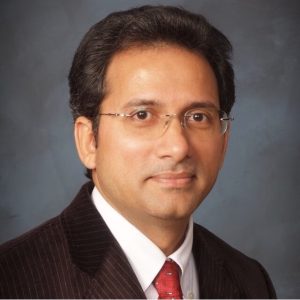 Dr. Satheesh Kathula, Vice President of AAPI assures that, “I will sincerely work for the betterment of our beloved organization, AAPI.” A board certified hematologist and oncologist from Dayton, Ohio, practicing Medicine for nearly two decades, Dr. Kathula is a clinical professor of medicine at Wright State University- Boonshoft school of medicine, Dayton, Ohio. He graduated from Siddhartha Medical College, Vijayawada, Andhra Pradesh, India in 1992. He has been actively involved in community service locally, nationally and internationally for the last two decades. He has been awarded with the “Man of the year-2018, The Leukemia and Lymphoma Society.
Dr. Satheesh Kathula, Vice President of AAPI assures that, “I will sincerely work for the betterment of our beloved organization, AAPI.” A board certified hematologist and oncologist from Dayton, Ohio, practicing Medicine for nearly two decades, Dr. Kathula is a clinical professor of medicine at Wright State University- Boonshoft school of medicine, Dayton, Ohio. He graduated from Siddhartha Medical College, Vijayawada, Andhra Pradesh, India in 1992. He has been actively involved in community service locally, nationally and internationally for the last two decades. He has been awarded with the “Man of the year-2018, The Leukemia and Lymphoma Society.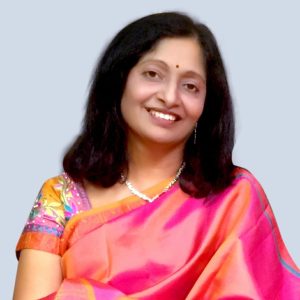 The Secretary of AAPI, Dr. Meher Medavaram is a Board Certified in Family Medicine and is a Fellow of Academy of American Physicians. A graduate of Osmania Medical College, she is serving as the Assistant Director at St. Elizabeth Hospital, Family Medicine Residency Program. Dr. Medavaram is the Medical Director of Mount Sinai Hospital, FAQH Center, and a Staff Physician Advocate at Good Samaritan Hospital as well as a Clinical Preceptor at UIC College of Medicine, Department of Family Medicine CMU School of Medicine and is the President of Naperbrook Medical Center.
The Secretary of AAPI, Dr. Meher Medavaram is a Board Certified in Family Medicine and is a Fellow of Academy of American Physicians. A graduate of Osmania Medical College, she is serving as the Assistant Director at St. Elizabeth Hospital, Family Medicine Residency Program. Dr. Medavaram is the Medical Director of Mount Sinai Hospital, FAQH Center, and a Staff Physician Advocate at Good Samaritan Hospital as well as a Clinical Preceptor at UIC College of Medicine, Department of Family Medicine CMU School of Medicine and is the President of Naperbrook Medical Center.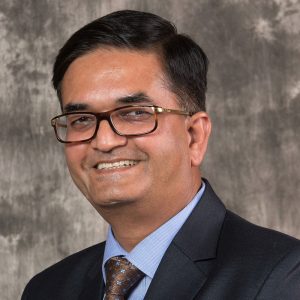 Dr. Sumul N. Raval, Treasurer of AAPI is a board-certified neurologist and world authority on brain tumors, and is among the very few neuro-oncologists in private practice in the USs. The founder and director of the David S. Zocchi Brain Tumor Center at Monmouth Medical Center – New Jersey’s first and most comprehensive facility specializing in brain tumors, Dr. Raval completed his neuro-oncology fellowship at Memorial Sloan-Kettering Cancer Center in New York. Dr. Raval is a humanitarian. “I believe, quality of life is just as important as battling the disease,” he says.
Dr. Sumul N. Raval, Treasurer of AAPI is a board-certified neurologist and world authority on brain tumors, and is among the very few neuro-oncologists in private practice in the USs. The founder and director of the David S. Zocchi Brain Tumor Center at Monmouth Medical Center – New Jersey’s first and most comprehensive facility specializing in brain tumors, Dr. Raval completed his neuro-oncology fellowship at Memorial Sloan-Kettering Cancer Center in New York. Dr. Raval is a humanitarian. “I believe, quality of life is just as important as battling the disease,” he says.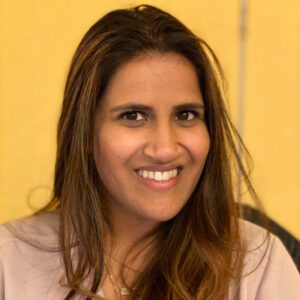 Dr. Pooja Kinkhabwala is a board certified Endocrinologist, currently practicing in Indiana. She graduated from Lake Erie College of Osteopathic Medicine in Erie, Pennsylvania, and has completed her Internal Medicine Residency from Hackensack Meridian Health Palisades in North Bergen, New Jersey and her Endocrinology Fellowship from Larkin Community Hospital in Miami, Florida. She uses a holistic approach with her patients and focuses on preventative medicine.
Dr. Pooja Kinkhabwala is a board certified Endocrinologist, currently practicing in Indiana. She graduated from Lake Erie College of Osteopathic Medicine in Erie, Pennsylvania, and has completed her Internal Medicine Residency from Hackensack Meridian Health Palisades in North Bergen, New Jersey and her Endocrinology Fellowship from Larkin Community Hospital in Miami, Florida. She uses a holistic approach with her patients and focuses on preventative medicine.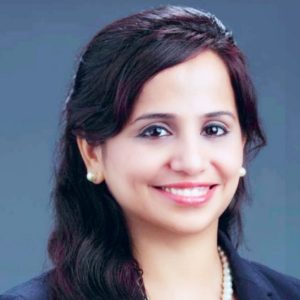 Dr. Ammu Thampi Susheela, President of the Medical Students, Residents and Fellows section of AAPI, is an incoming third-year Resident in Internal Medicine at Loyola-MacNeal Hospital, Chicago, IL. She completed a post doctoral research fellowship at Harvard Medical School-Beth Israel Deaconess Medical Center, Boston, MA. She co-founded a wearable Medtech company for patients with dementia. She is experienced in serving lead roles as vice chair of Harvard Medical Postdoc Association, task force member of Massachusetts Medical Society, national delegate of American Medical Association, and vice-chair of MSRF of Illinois State Medical Society. She is currently serving as a team lead for a reference committee section of the residents and fellows section to the house of delegates in the American Medical Association. She is dedicated to research, innovation, advocacy, and policy making. Over the years, she cultivated passion and enthusiasm to bring about policies and changes for the welfare of the medical students, residents, and fellows section.
Dr. Ammu Thampi Susheela, President of the Medical Students, Residents and Fellows section of AAPI, is an incoming third-year Resident in Internal Medicine at Loyola-MacNeal Hospital, Chicago, IL. She completed a post doctoral research fellowship at Harvard Medical School-Beth Israel Deaconess Medical Center, Boston, MA. She co-founded a wearable Medtech company for patients with dementia. She is experienced in serving lead roles as vice chair of Harvard Medical Postdoc Association, task force member of Massachusetts Medical Society, national delegate of American Medical Association, and vice-chair of MSRF of Illinois State Medical Society. She is currently serving as a team lead for a reference committee section of the residents and fellows section to the house of delegates in the American Medical Association. She is dedicated to research, innovation, advocacy, and policy making. Over the years, she cultivated passion and enthusiasm to bring about policies and changes for the welfare of the medical students, residents, and fellows section.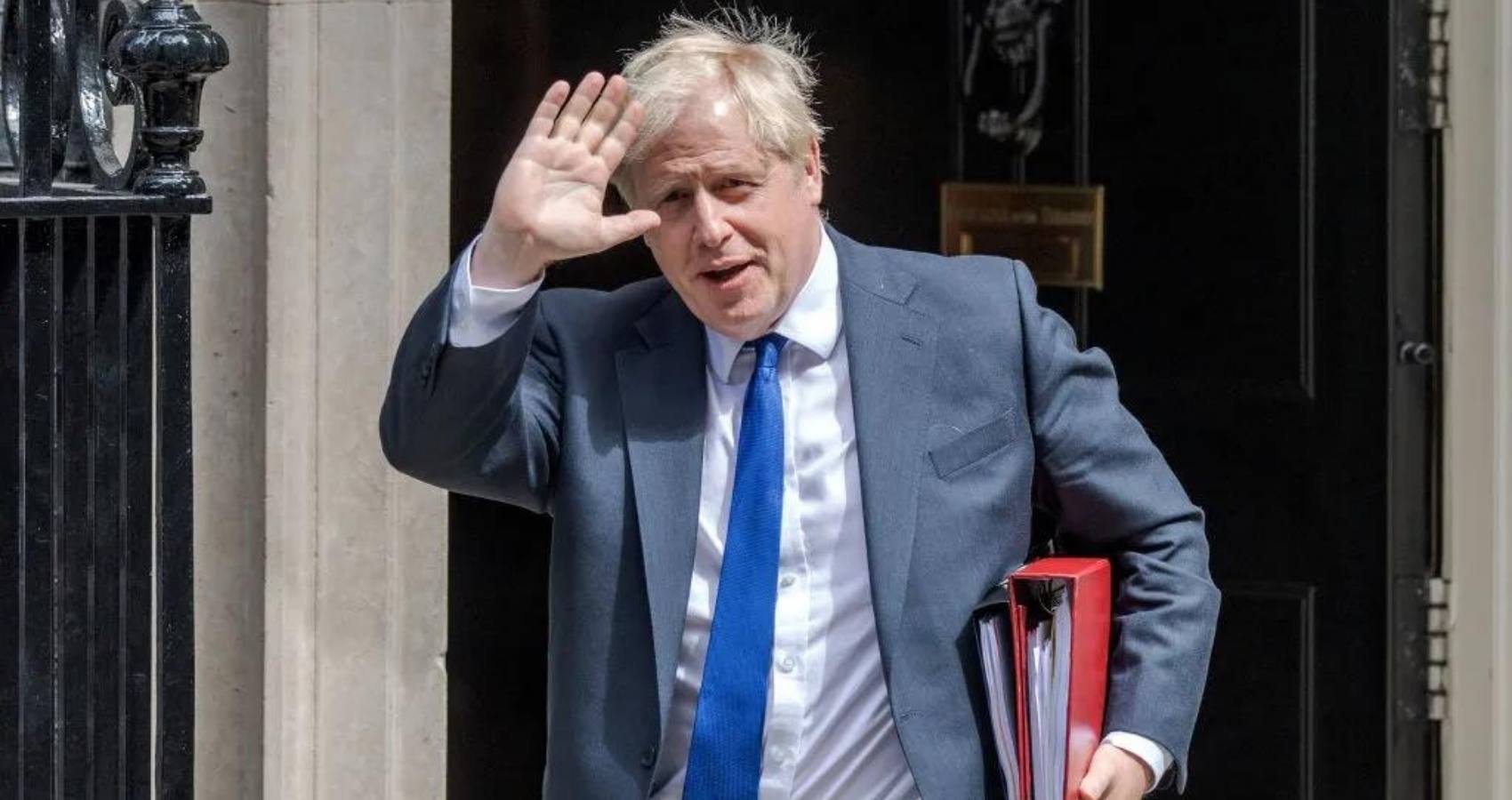
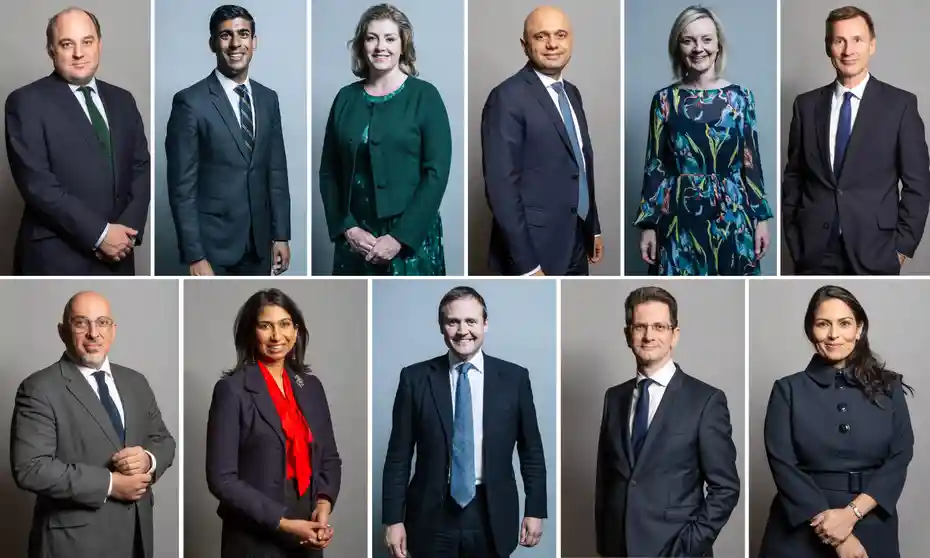 Johnson’s resignation came after Britain’s finance and health ministers resigned in quick succession on July 5, in moves that put the future of Prime Minister Boris Johnson in peril after a series of scandals that have damaged his administration.
Johnson’s resignation came after Britain’s finance and health ministers resigned in quick succession on July 5, in moves that put the future of Prime Minister Boris Johnson in peril after a series of scandals that have damaged his administration.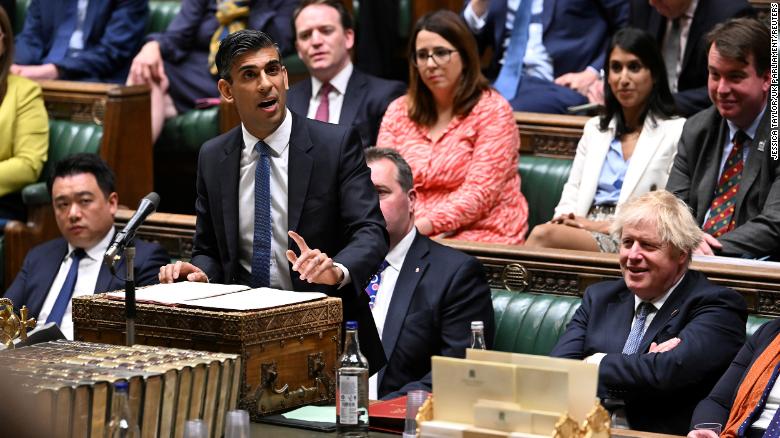
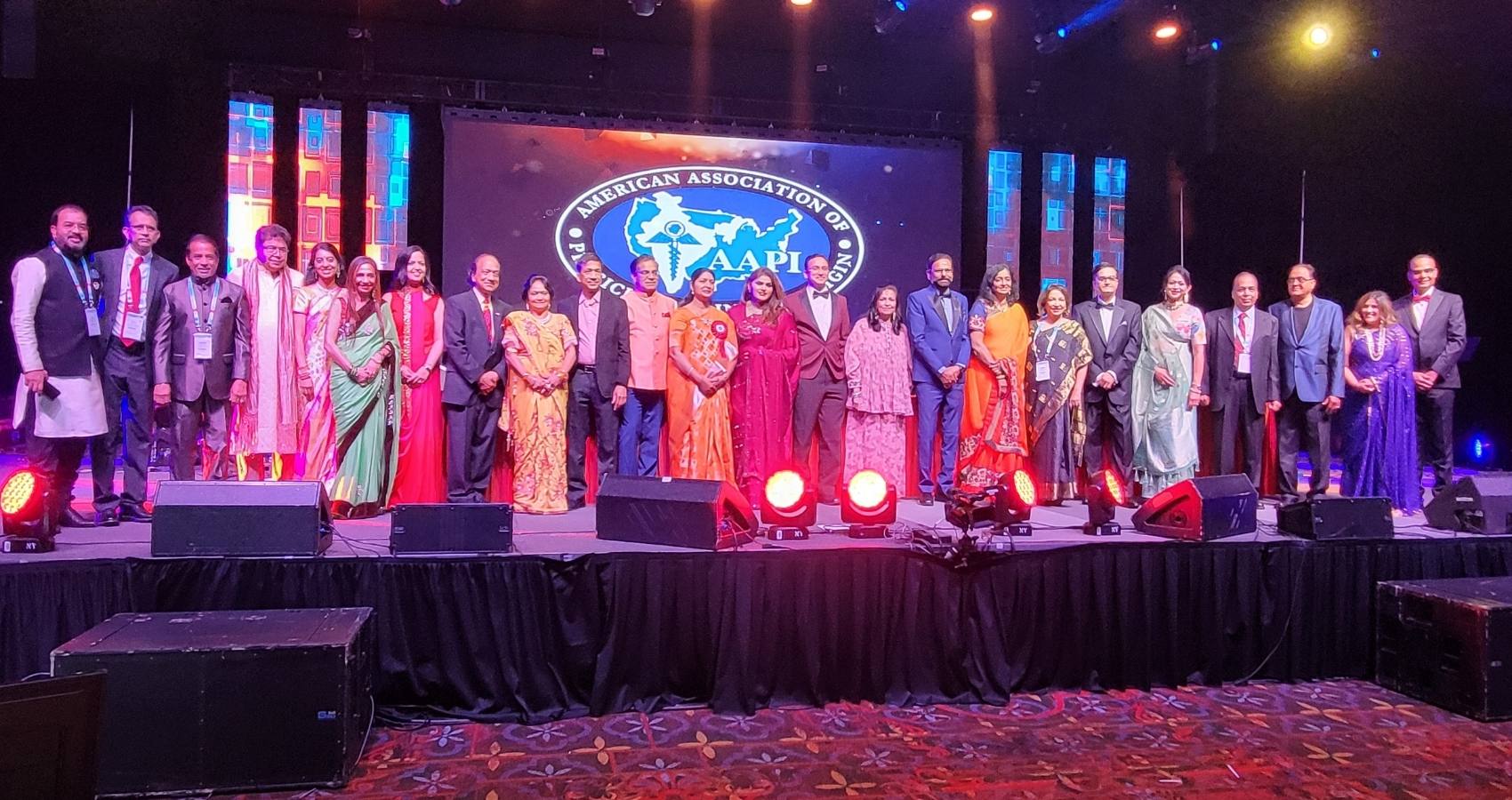
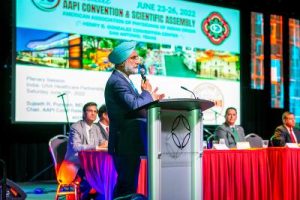 In his keynote address, Ambassador Taranjit Singh Sandhu lauded the several initiatves of AAPI over the past four decades and said, “Over the past four decades, AAPI has been doing an outstanding job in advocacy and health education. You play an important role, especially during the Covid Pandemic/” Speaking at length on the growing Indo-US relationship, the veteran diplomat said, “Over the last two decades, India and the United States have overcome the hesitations of history and fashioned a remarkable partnership, built on a bipartisan consensus in the U.S. and cross-party support in India.” Elaborating on the collaboration between India and the US, he said, “From the provision of active pharmaceutical ingredients to generic medicines that have lowered drug prices and created jobs and investments, India has demonstrated its reliability as a supply chain partner, especially as de-risking from single country supplies has become a priority.”
In his keynote address, Ambassador Taranjit Singh Sandhu lauded the several initiatves of AAPI over the past four decades and said, “Over the past four decades, AAPI has been doing an outstanding job in advocacy and health education. You play an important role, especially during the Covid Pandemic/” Speaking at length on the growing Indo-US relationship, the veteran diplomat said, “Over the last two decades, India and the United States have overcome the hesitations of history and fashioned a remarkable partnership, built on a bipartisan consensus in the U.S. and cross-party support in India.” Elaborating on the collaboration between India and the US, he said, “From the provision of active pharmaceutical ingredients to generic medicines that have lowered drug prices and created jobs and investments, India has demonstrated its reliability as a supply chain partner, especially as de-risking from single country supplies has become a priority.”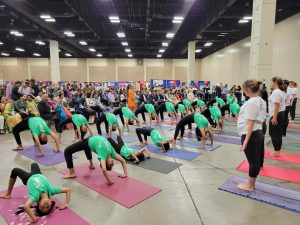
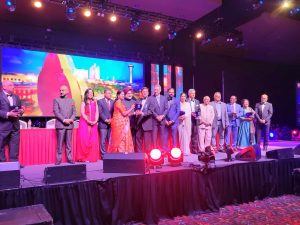 Dr. Anjana Sammadar, President-Elect , pointed out: “There was a sense of joy and relief on the faces of the over 1,000 physicians who have come together to celebrate their achievements, contributions, and to network and deepen their relationship even as the Covid Pandemic is waning and people are able to mingle freely and interact with one another cautiously.”
Dr. Anjana Sammadar, President-Elect , pointed out: “There was a sense of joy and relief on the faces of the over 1,000 physicians who have come together to celebrate their achievements, contributions, and to network and deepen their relationship even as the Covid Pandemic is waning and people are able to mingle freely and interact with one another cautiously.” 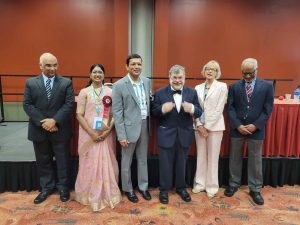
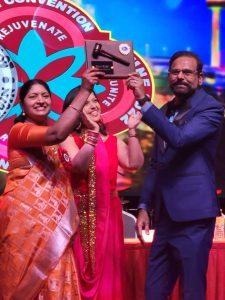
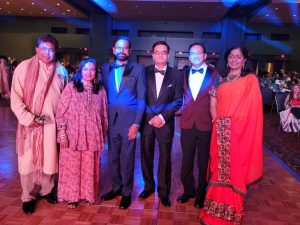 Dr. Jagan Ailinani was honored with Life Time Achievement Award. The Distinguished Physician Award was given to Dr. Vijay Yeldandi and AAPI’s Most Distinguished Award was given to Dr. Ravindra Nathan. AAPI’s Most Distinguished YPS Award was given to Dr. Sejal Hathi and the AAPI’s Most Distinguished MSRF Award was given to Aaiswariya Gulani. r. Gotimukula honored Dr. Udaya Shivangi, Dr. Sujeeth Punnam, Dr. Dwarkanath Reddy and AAPI’s Legal Advisor with Presidential Awards for their dedication and support during her presidency.
Dr. Jagan Ailinani was honored with Life Time Achievement Award. The Distinguished Physician Award was given to Dr. Vijay Yeldandi and AAPI’s Most Distinguished Award was given to Dr. Ravindra Nathan. AAPI’s Most Distinguished YPS Award was given to Dr. Sejal Hathi and the AAPI’s Most Distinguished MSRF Award was given to Aaiswariya Gulani. r. Gotimukula honored Dr. Udaya Shivangi, Dr. Sujeeth Punnam, Dr. Dwarkanath Reddy and AAPI’s Legal Advisor with Presidential Awards for their dedication and support during her presidency.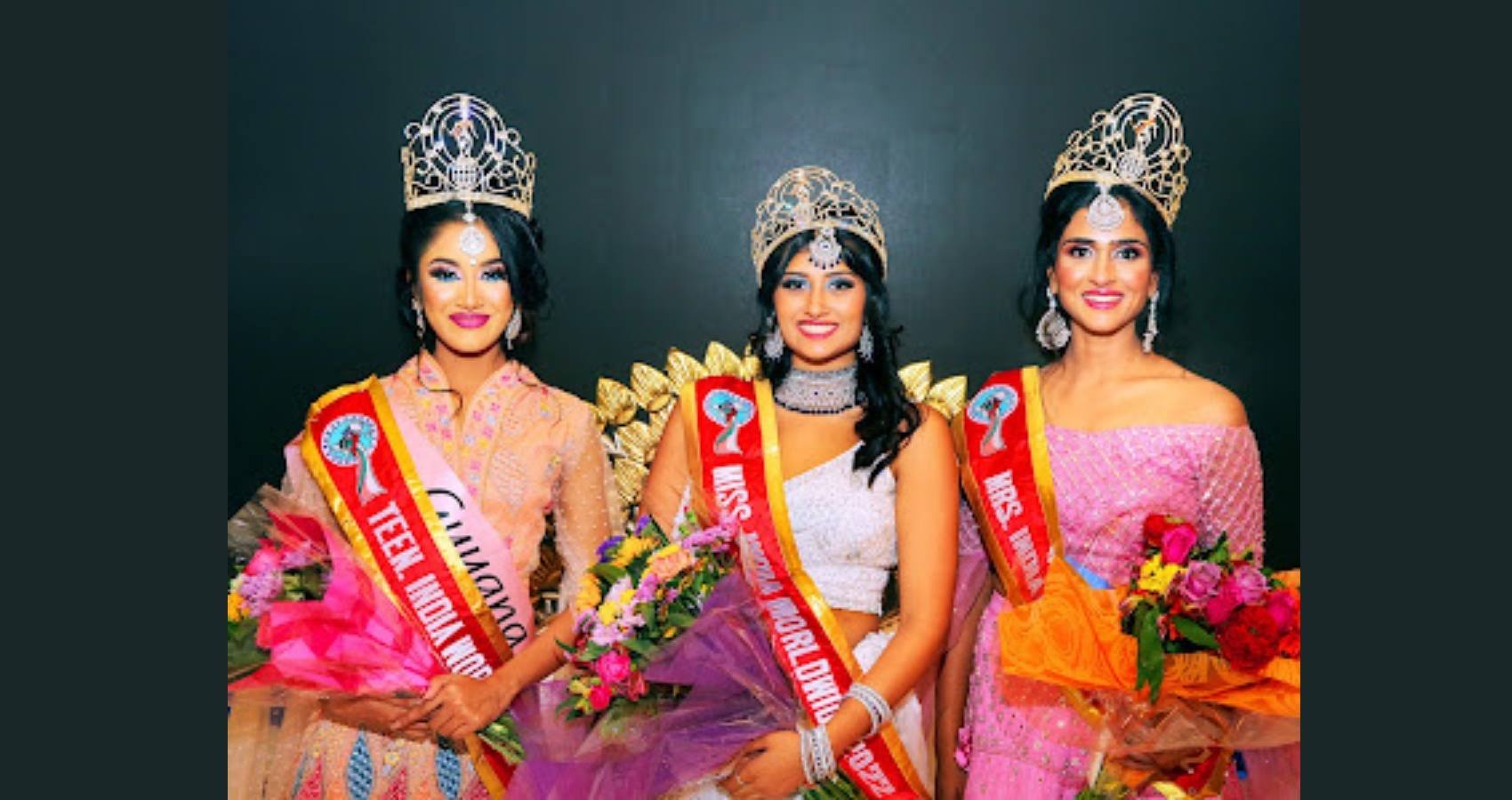
 The Miss Teen India Worldwide 2022 title went to Roshani Razack from Guyana, while Navya Paingol, a University of Michigan, Ann Arbor student was the first runner-up. The second runner-up award went to Chiquita Malaha of Suriname. School teacher Swathy Vimalkumar of Connecticut won the Mrs. India Worldwide title.
The Miss Teen India Worldwide 2022 title went to Roshani Razack from Guyana, while Navya Paingol, a University of Michigan, Ann Arbor student was the first runner-up. The second runner-up award went to Chiquita Malaha of Suriname. School teacher Swathy Vimalkumar of Connecticut won the Mrs. India Worldwide title.
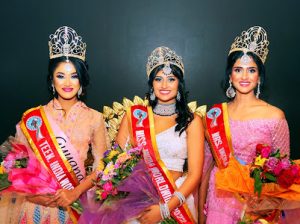 Saran has become an internationally well-known leader in promoting pageantry around the world. Support came from most unexpected quarters. Noted actress, social worker, feminist and leader, Shabana Azmi, who is known to blast all beauty pageants, endorsed Saran’s show as noble as it helped funds for the deserving children.
Saran has become an internationally well-known leader in promoting pageantry around the world. Support came from most unexpected quarters. Noted actress, social worker, feminist and leader, Shabana Azmi, who is known to blast all beauty pageants, endorsed Saran’s show as noble as it helped funds for the deserving children.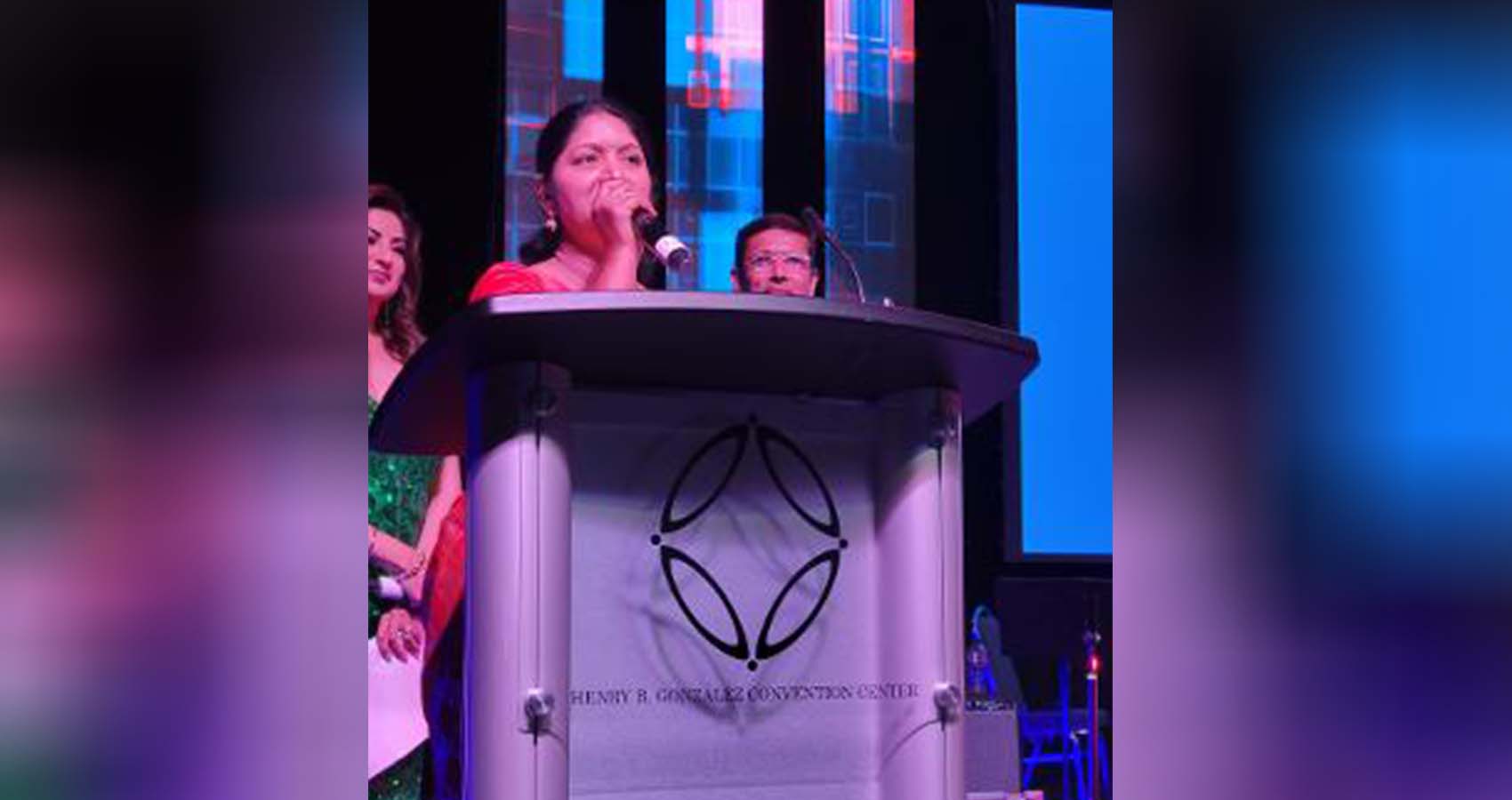
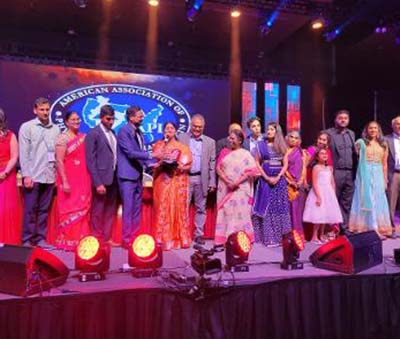 During a solemn ceremony, she handed over the presidency to Dr. Ravi Kolli as the next President of AAPI, the largest Ethnic Medical Organization in the United States, representing over 120,,000 physicians of Indian Origin, who have grown stronger and have become a powerful force and stronger voice in the United States making a unique identity for themselves. Dr. Gotimukula gave the gavel to Dr. Ravi Kolli during the presidential induction ceremony attended by over 1,000 AAPI delegates and distinguished guests.
During a solemn ceremony, she handed over the presidency to Dr. Ravi Kolli as the next President of AAPI, the largest Ethnic Medical Organization in the United States, representing over 120,,000 physicians of Indian Origin, who have grown stronger and have become a powerful force and stronger voice in the United States making a unique identity for themselves. Dr. Gotimukula gave the gavel to Dr. Ravi Kolli during the presidential induction ceremony attended by over 1,000 AAPI delegates and distinguished guests.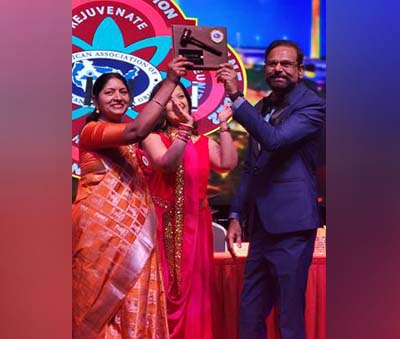 “Latte with Legislators” has been a new and pioneering program under Dr. Gotimukula’s leadership. Senator Dick Durbin, the High Ranking Senator from Illinois along with Rep. Mary Newman, Rep. Raja Krishnamoorthy, Rep. Danny Davis, Rep. Don Young, Rep. Alma Adams, and Rep. Frank Pallone addressed the AAPI members exclusively and answered questions on healthcare reforms and ways to make healthcare affordable, addressing the Medicare payment cuts for physicians, IMG issues of Green Card Backlogs, etc. Dr. Suresh Reddy and Dr. Sumul Raval organized these productive sessions for members.
“Latte with Legislators” has been a new and pioneering program under Dr. Gotimukula’s leadership. Senator Dick Durbin, the High Ranking Senator from Illinois along with Rep. Mary Newman, Rep. Raja Krishnamoorthy, Rep. Danny Davis, Rep. Don Young, Rep. Alma Adams, and Rep. Frank Pallone addressed the AAPI members exclusively and answered questions on healthcare reforms and ways to make healthcare affordable, addressing the Medicare payment cuts for physicians, IMG issues of Green Card Backlogs, etc. Dr. Suresh Reddy and Dr. Sumul Raval organized these productive sessions for members.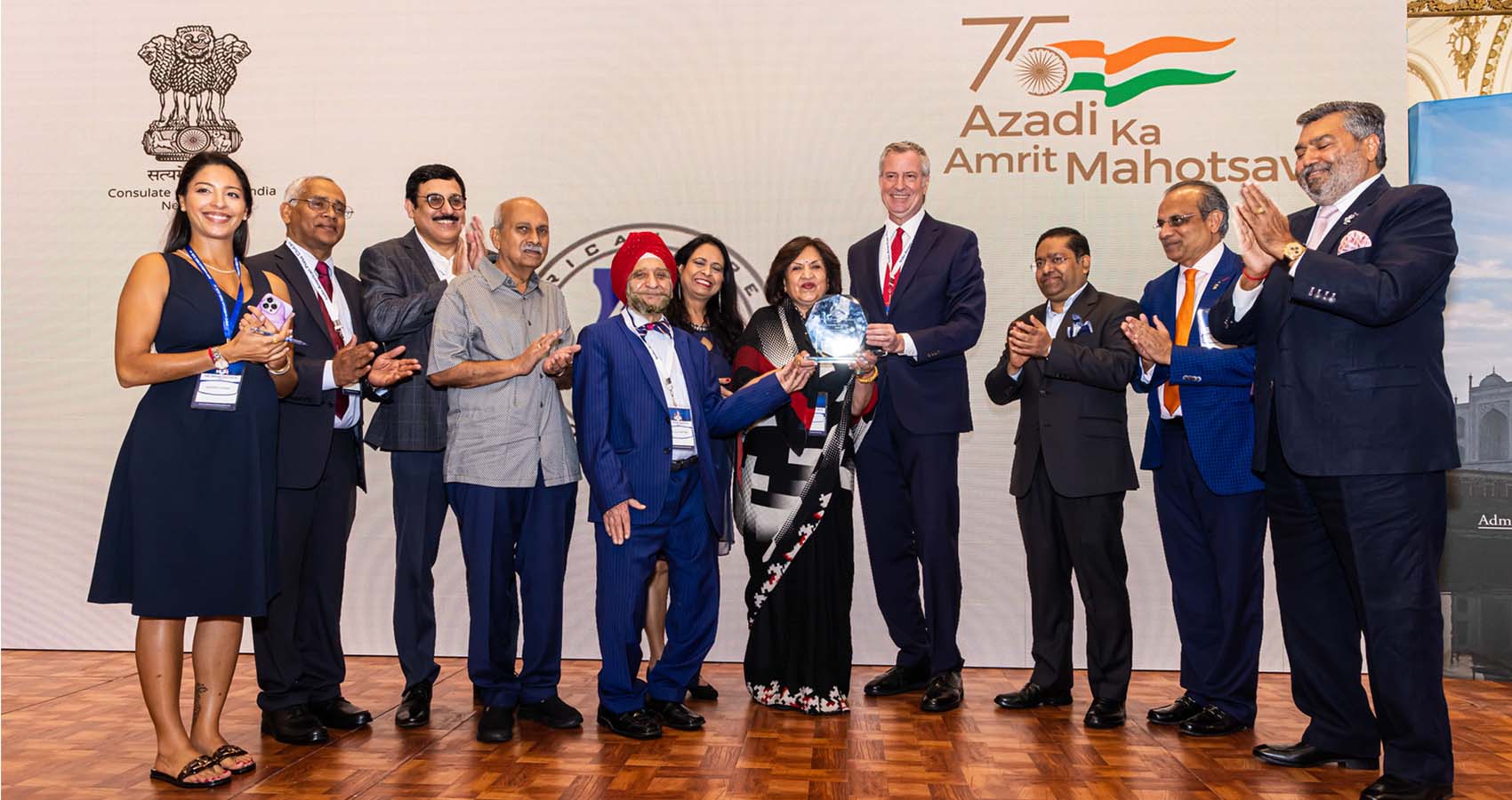
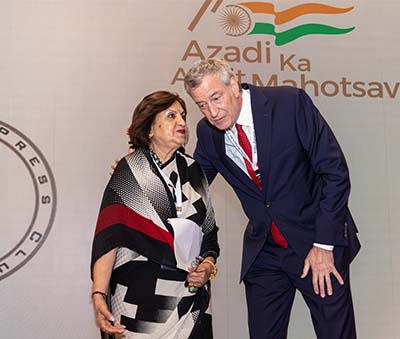 Calling her a “highly accomplished leader” Mayor Bill de Blasio praised her contributions to the larger American society and to the Indian American community. Mayor Bill de Blasio showered praises on Ms. Kwatra for taking up on herself a key role in his election campaign that no other individual has been able to do.
Calling her a “highly accomplished leader” Mayor Bill de Blasio praised her contributions to the larger American society and to the Indian American community. Mayor Bill de Blasio showered praises on Ms. Kwatra for taking up on herself a key role in his election campaign that no other individual has been able to do.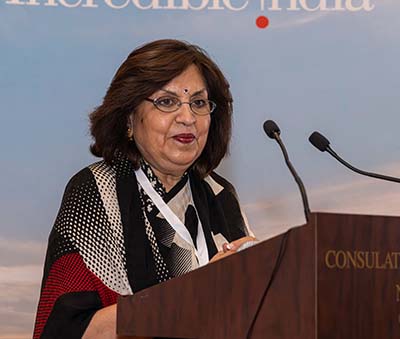 Ambassador Randhir Jaiswal, Consul General of India, who was the chief guest presented the award to the other awardees with the Lifetime Achievement Award, including Dr. Thomas Abraham, Dr. Sudhir Parikh, and Dr. Anupama Gotimukula, President of AAPI.
Ambassador Randhir Jaiswal, Consul General of India, who was the chief guest presented the award to the other awardees with the Lifetime Achievement Award, including Dr. Thomas Abraham, Dr. Sudhir Parikh, and Dr. Anupama Gotimukula, President of AAPI.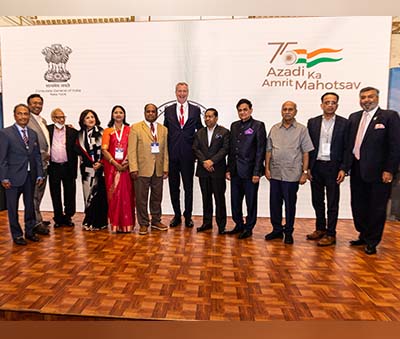 She called upon Media to play a very critical role, “especially in these challenging timers, as the world is faced with the once in a century health crisis with the ongoing pandemic. Organization such as the IAPC can play a major role in helping heal and unite the nation. Wishing you all the very best. Congratulations to all honorees today and best wishes to the new leadership of IAPC.”
She called upon Media to play a very critical role, “especially in these challenging timers, as the world is faced with the once in a century health crisis with the ongoing pandemic. Organization such as the IAPC can play a major role in helping heal and unite the nation. Wishing you all the very best. Congratulations to all honorees today and best wishes to the new leadership of IAPC.”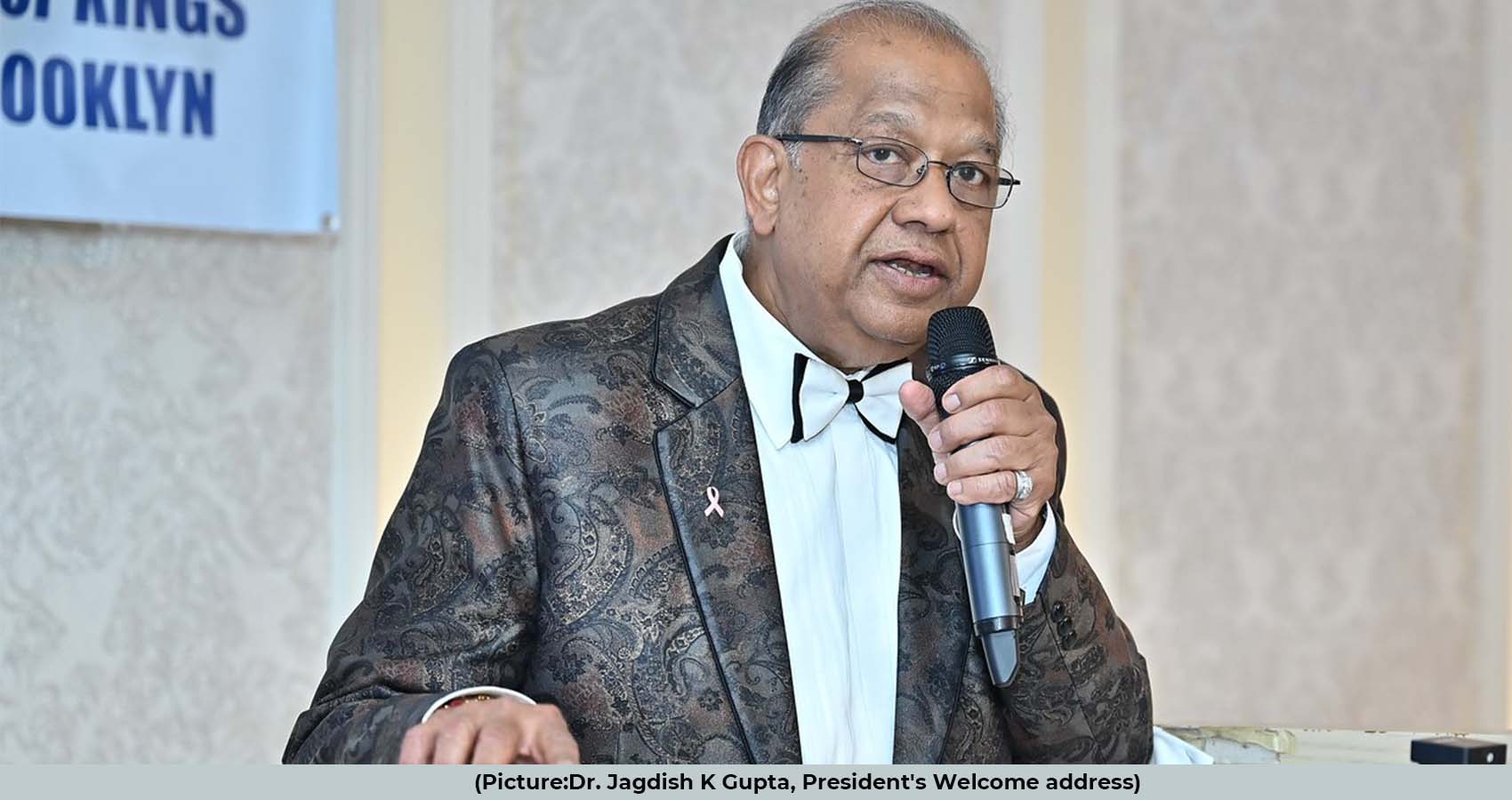
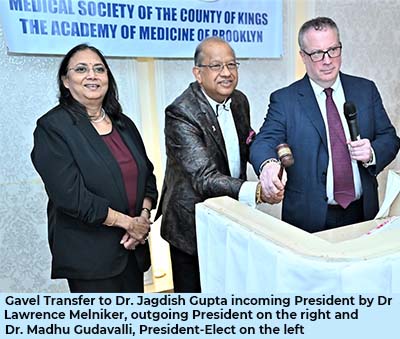 Dr. Gupta was addressing the delegates at the 201st Annual Stated Meeting of MSCK as a Bicentennial Event in person, after two years hiatus due to COVID Pandemic at El Caribe Country Club in Brooklyn, NY with full regalia. “The COVID-19 pandemic upended the rhythms of our personal and professional lives. Traditional workings of our medical society came to a screeching halt,” Dr. Gupta pointed out. “However, as an organization, we persevered, reimagined our operations, and implemented new strategies. Overall, the organization was renewed and brought into the 21st century.”
Dr. Gupta was addressing the delegates at the 201st Annual Stated Meeting of MSCK as a Bicentennial Event in person, after two years hiatus due to COVID Pandemic at El Caribe Country Club in Brooklyn, NY with full regalia. “The COVID-19 pandemic upended the rhythms of our personal and professional lives. Traditional workings of our medical society came to a screeching halt,” Dr. Gupta pointed out. “However, as an organization, we persevered, reimagined our operations, and implemented new strategies. Overall, the organization was renewed and brought into the 21st century.”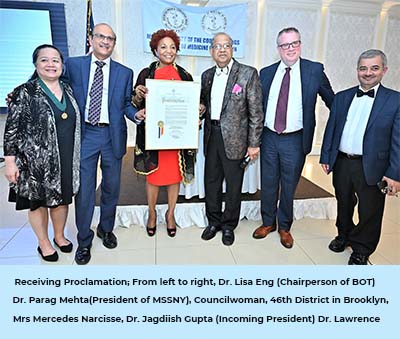 Dr. Sanjiv Chopra, Professor of Medicine and the past Faculty Dean for Continuing Medical Education at Harvard Medical School for 12 years, serving as a Marshall Wolf Distinguished Clinician Educator at Brigham and Women’s Hospital, and the author of more than 170 publications and ten books to his credit, was the keynote speaker at the gala. In his address, he pointed out to “The Two Most Important Days: Reflections on Lasting Happiness and Living with Purpose.” He received a full-throttled standing ovation from the audience. Dr. Chopra is Editor-in-Chief of the Hepatology Section of “UpToDate”, the most widely used electronic textbook in the world subscribed to by more than 1.5 million physicians in 195 countries.
Dr. Sanjiv Chopra, Professor of Medicine and the past Faculty Dean for Continuing Medical Education at Harvard Medical School for 12 years, serving as a Marshall Wolf Distinguished Clinician Educator at Brigham and Women’s Hospital, and the author of more than 170 publications and ten books to his credit, was the keynote speaker at the gala. In his address, he pointed out to “The Two Most Important Days: Reflections on Lasting Happiness and Living with Purpose.” He received a full-throttled standing ovation from the audience. Dr. Chopra is Editor-in-Chief of the Hepatology Section of “UpToDate”, the most widely used electronic textbook in the world subscribed to by more than 1.5 million physicians in 195 countries.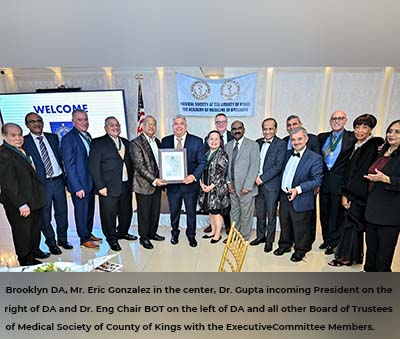 Among the several distinguished guests who joined in and addressed the celebrations were Brooklyn District Attorney Eric Gonzalez who spoke passionately about the need for Gun Control and on ways to prevent the violence in the City. Messages and proclamations were sent in by New York City Council Woman Ms. Mercedes Narcisse 46th Council District; Congresswoman Nicole Malliotakis from 11th District; President of SUNY Downstate Medical School, Dr. Wayne Riley who spoke about the contribution of Medical Society of County of Kings and Long Island College over 200 years; State Assemblyman Michael Tannousis; Dr. Ravi Kolli, President Elect, American Association of Physicians of Indian Origin- the largest ethnic physician organization in America; and, Multiple Citations for 50 years Medical School Graduates serving the Brooklyn Community.
Among the several distinguished guests who joined in and addressed the celebrations were Brooklyn District Attorney Eric Gonzalez who spoke passionately about the need for Gun Control and on ways to prevent the violence in the City. Messages and proclamations were sent in by New York City Council Woman Ms. Mercedes Narcisse 46th Council District; Congresswoman Nicole Malliotakis from 11th District; President of SUNY Downstate Medical School, Dr. Wayne Riley who spoke about the contribution of Medical Society of County of Kings and Long Island College over 200 years; State Assemblyman Michael Tannousis; Dr. Ravi Kolli, President Elect, American Association of Physicians of Indian Origin- the largest ethnic physician organization in America; and, Multiple Citations for 50 years Medical School Graduates serving the Brooklyn Community.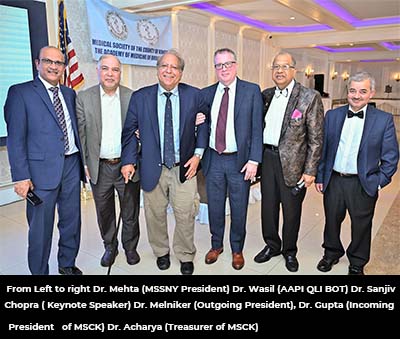 The Medical Society of the County of Kings (MSCK), the oldest scientific organization in Brooklyn, New York was established on March 2nd, 1822 by a group of doctors gathered at Auld Lang Syne Tavern on Fulton Street in Brooklyn Heights, with the lofty mission “to foster progress in the science and art of medicine and to promote, preserve and enforce the highest of standards of ethical and proficient medical care”. In 1900, the Society opened its grand new colonial revival building at 1313 Bedford Avenue, the geographical center of Brooklyn and It was headquartered there until 1996.
The Medical Society of the County of Kings (MSCK), the oldest scientific organization in Brooklyn, New York was established on March 2nd, 1822 by a group of doctors gathered at Auld Lang Syne Tavern on Fulton Street in Brooklyn Heights, with the lofty mission “to foster progress in the science and art of medicine and to promote, preserve and enforce the highest of standards of ethical and proficient medical care”. In 1900, the Society opened its grand new colonial revival building at 1313 Bedford Avenue, the geographical center of Brooklyn and It was headquartered there until 1996.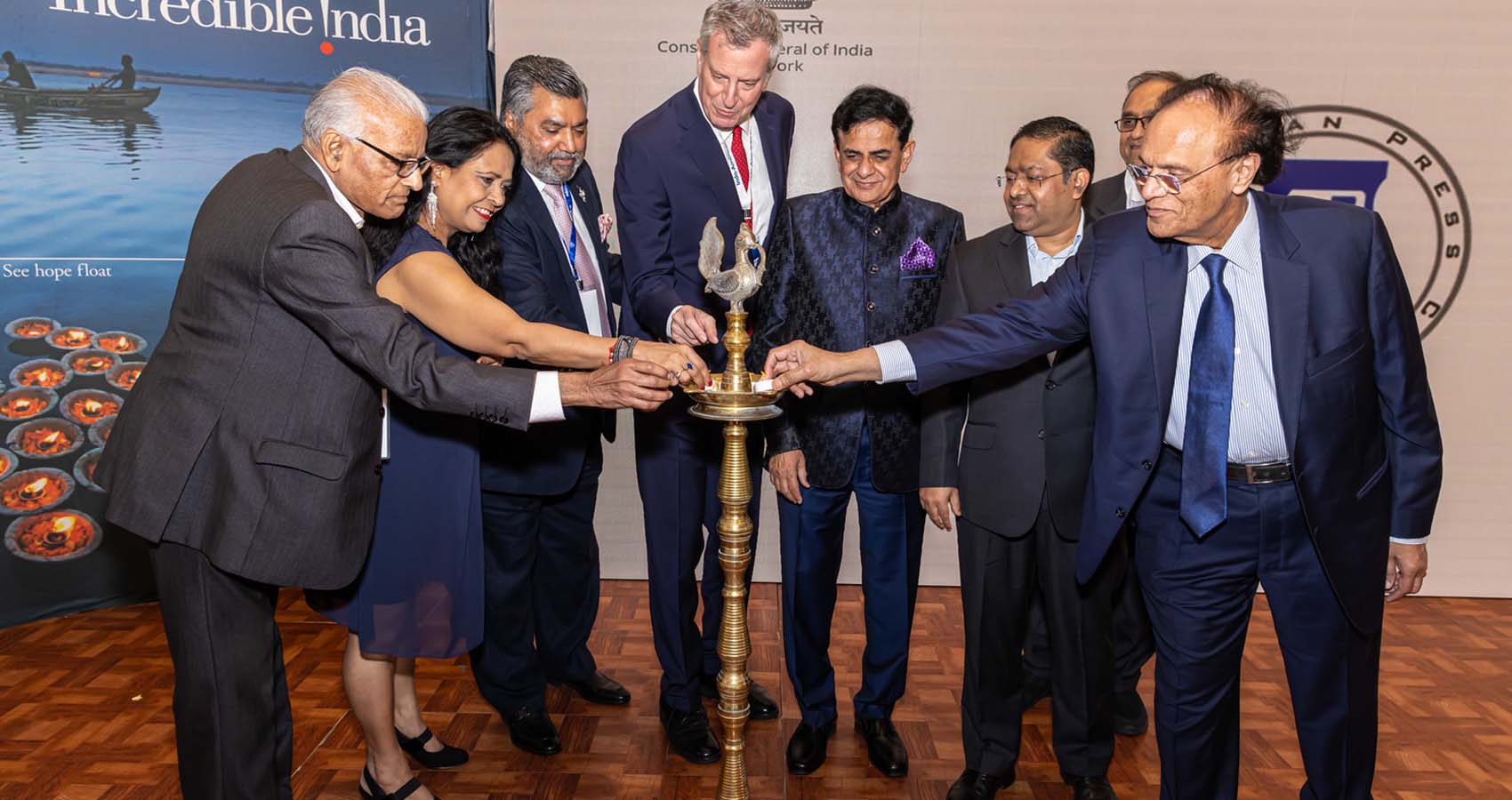
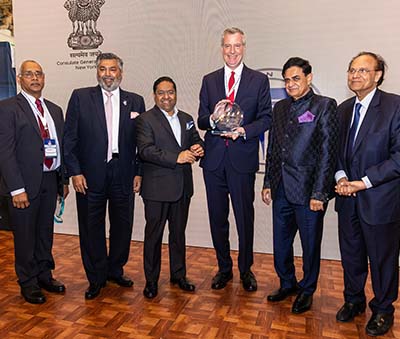 Four distinguished and accomplished community leaders/professionals were honored with the Lifetime Achievement Awards for their accomplishments and contributions to the larger society.
Four distinguished and accomplished community leaders/professionals were honored with the Lifetime Achievement Awards for their accomplishments and contributions to the larger society.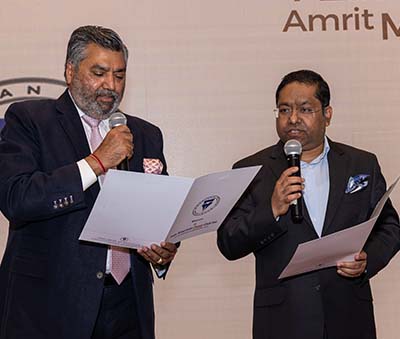 The other honoree whom IAPC recognized today was Sudhir M. Parikh, M.D., a physician by profession and currently the Chairman and Publisher of Parikh Worldwide Media Inc., the largest Indian-American publishing group in the United States, and Chairman of ITV Gold, a 24×7 TV news channel, and is one of the most honored Indian Americans with Padma Shri and Pravasi Bharatiya Samman, and the Ellis Island Medal of Honor.
The other honoree whom IAPC recognized today was Sudhir M. Parikh, M.D., a physician by profession and currently the Chairman and Publisher of Parikh Worldwide Media Inc., the largest Indian-American publishing group in the United States, and Chairman of ITV Gold, a 24×7 TV news channel, and is one of the most honored Indian Americans with Padma Shri and Pravasi Bharatiya Samman, and the Ellis Island Medal of Honor.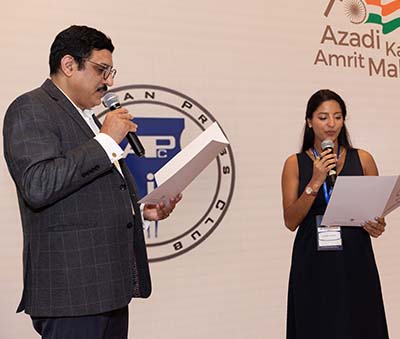 We look forward to their continued support to bring developments from India to the readers in the US and carry all the excitement from the United States to the people of India. I invite Indo American Press Club to join hands with us in celebrating India@75, our Azadi Ka Amrit Mahotsav. I wish the Club steady growth, progress and success,” he said.
We look forward to their continued support to bring developments from India to the readers in the US and carry all the excitement from the United States to the people of India. I invite Indo American Press Club to join hands with us in celebrating India@75, our Azadi Ka Amrit Mahotsav. I wish the Club steady growth, progress and success,” he said.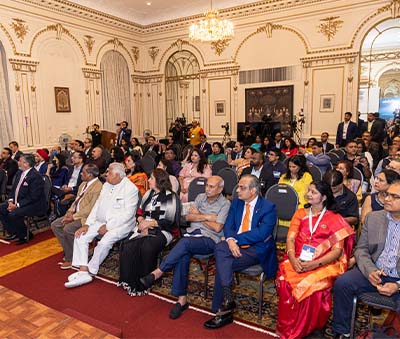 IAPC envisages its vision through collective efforts and advocacy activities through its nearly one thousand members across the US and Canada, by being a link between the media fraternity and the world at large. We will work together with dedication to enhance the working conditions of our journalists, exchanging ideas and offering educational and training opportunities to our members, aspiring young journalists and media professionals around the globe.”
IAPC envisages its vision through collective efforts and advocacy activities through its nearly one thousand members across the US and Canada, by being a link between the media fraternity and the world at large. We will work together with dedication to enhance the working conditions of our journalists, exchanging ideas and offering educational and training opportunities to our members, aspiring young journalists and media professionals around the globe.”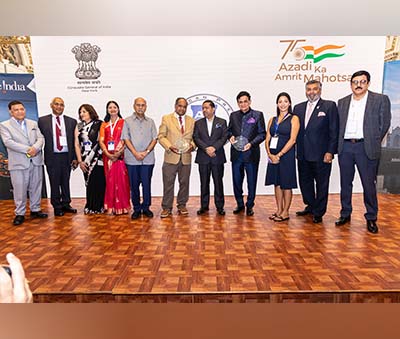 Providing the background to the formation of IAPC, Akay Ghosh, Founding President of IAPC said, “We as individuals and corporations that represent the media world, consisting of print, visual, electronic and online, realize that we have a greater role to play. We have been working in this field for decades and often stand alone in a large media world. As individual members of the media, our voice is often drowned in the very large world of multi-media. We lack a collective voice to raise our voice, to pool our talents together and work as a cohesive group to reflect and respond to the challenges of the modern world. IAPC was (IAPC), formed to fill this vacuum, and is committed to strive to be a common platform to raise the voice and explore the possibilities of helping shape the world to be a world that is fair, just and equitable for today and future generations.”
Providing the background to the formation of IAPC, Akay Ghosh, Founding President of IAPC said, “We as individuals and corporations that represent the media world, consisting of print, visual, electronic and online, realize that we have a greater role to play. We have been working in this field for decades and often stand alone in a large media world. As individual members of the media, our voice is often drowned in the very large world of multi-media. We lack a collective voice to raise our voice, to pool our talents together and work as a cohesive group to reflect and respond to the challenges of the modern world. IAPC was (IAPC), formed to fill this vacuum, and is committed to strive to be a common platform to raise the voice and explore the possibilities of helping shape the world to be a world that is fair, just and equitable for today and future generations.”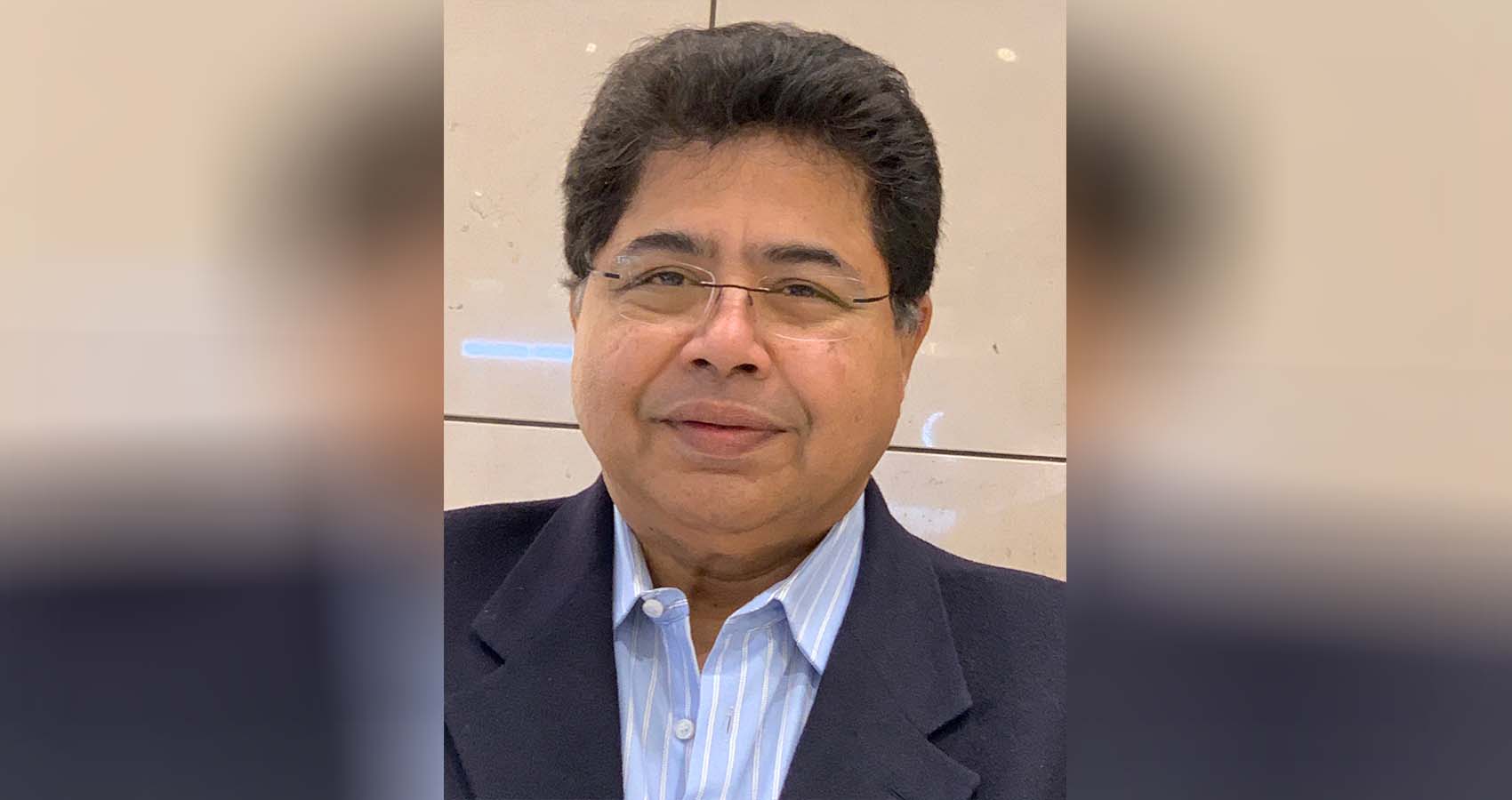
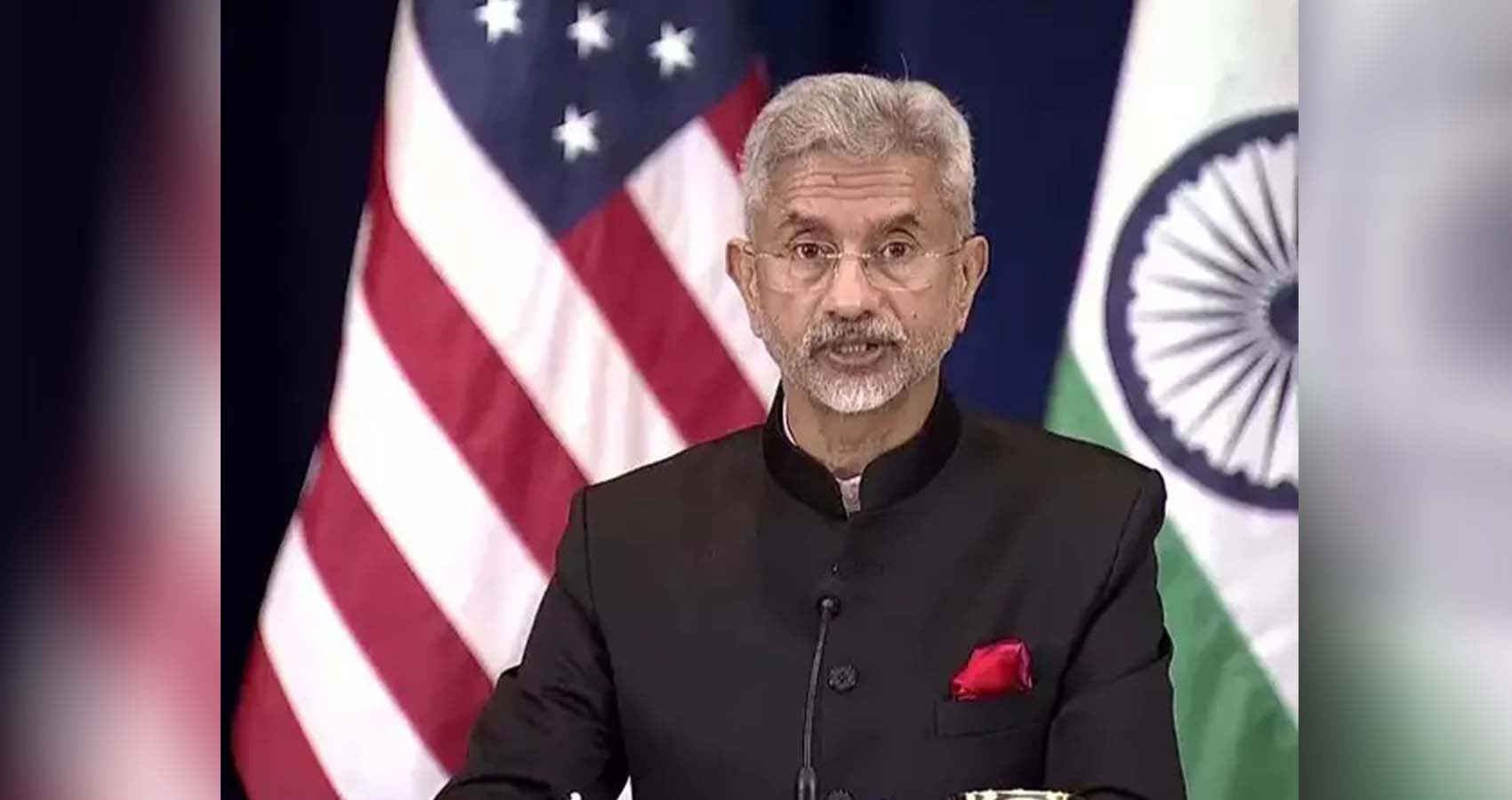
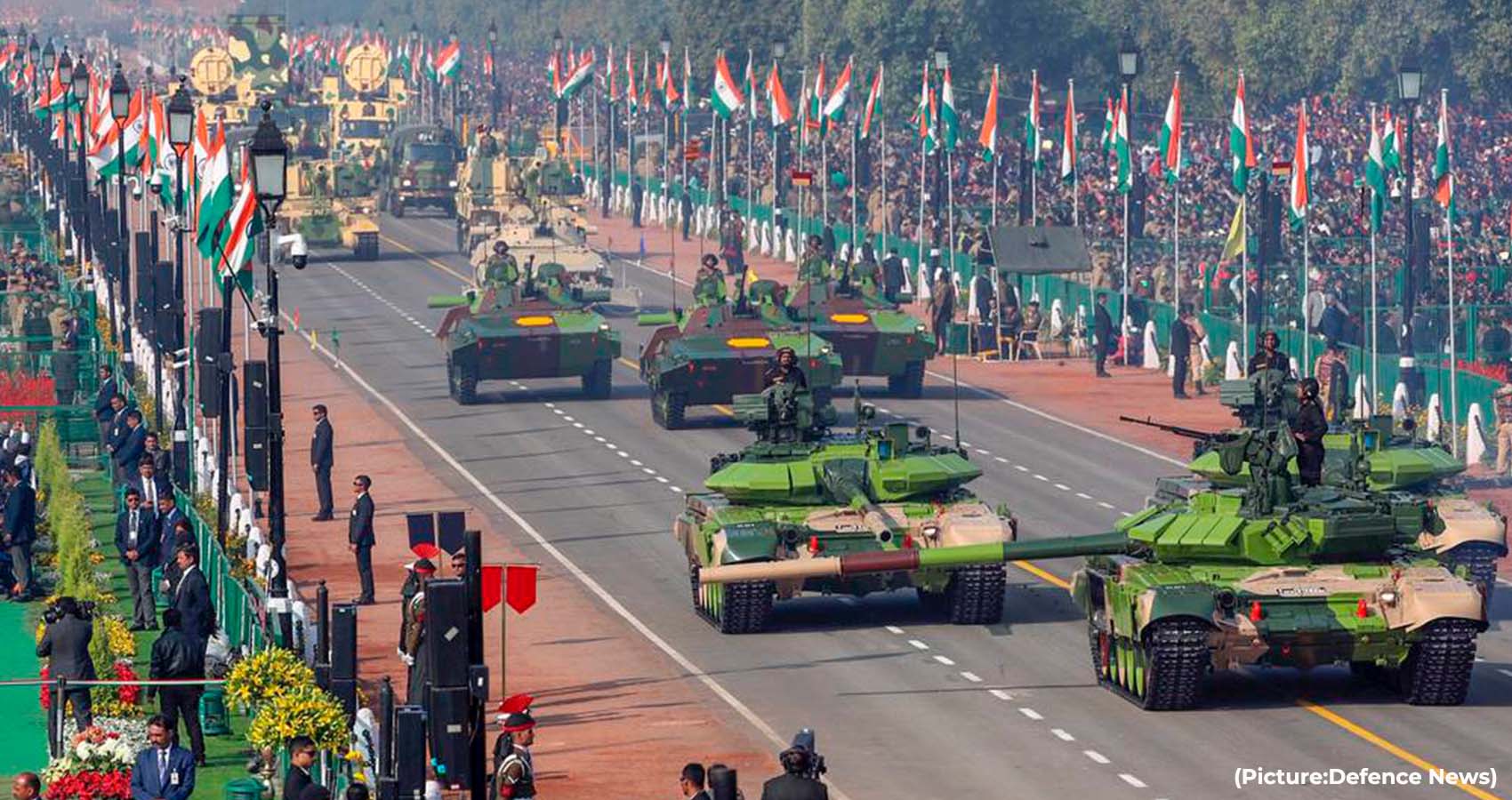
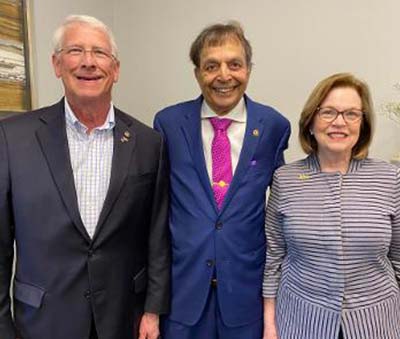 Dr. Shivangi is of the opinion that “It is apt time India should think alternative suppliers source. What can be a better source than US? We have a great opportunity here as our Senior Senator from Mississippi has been elected as a Ranking member of the US Armed Service Committee of the US Senate. With his assistance and good offices, especially after 2+2 summit, I hope and look forward to such increased collaboration with the successful Indo pacific QUAD treaty.
Dr. Shivangi is of the opinion that “It is apt time India should think alternative suppliers source. What can be a better source than US? We have a great opportunity here as our Senior Senator from Mississippi has been elected as a Ranking member of the US Armed Service Committee of the US Senate. With his assistance and good offices, especially after 2+2 summit, I hope and look forward to such increased collaboration with the successful Indo pacific QUAD treaty.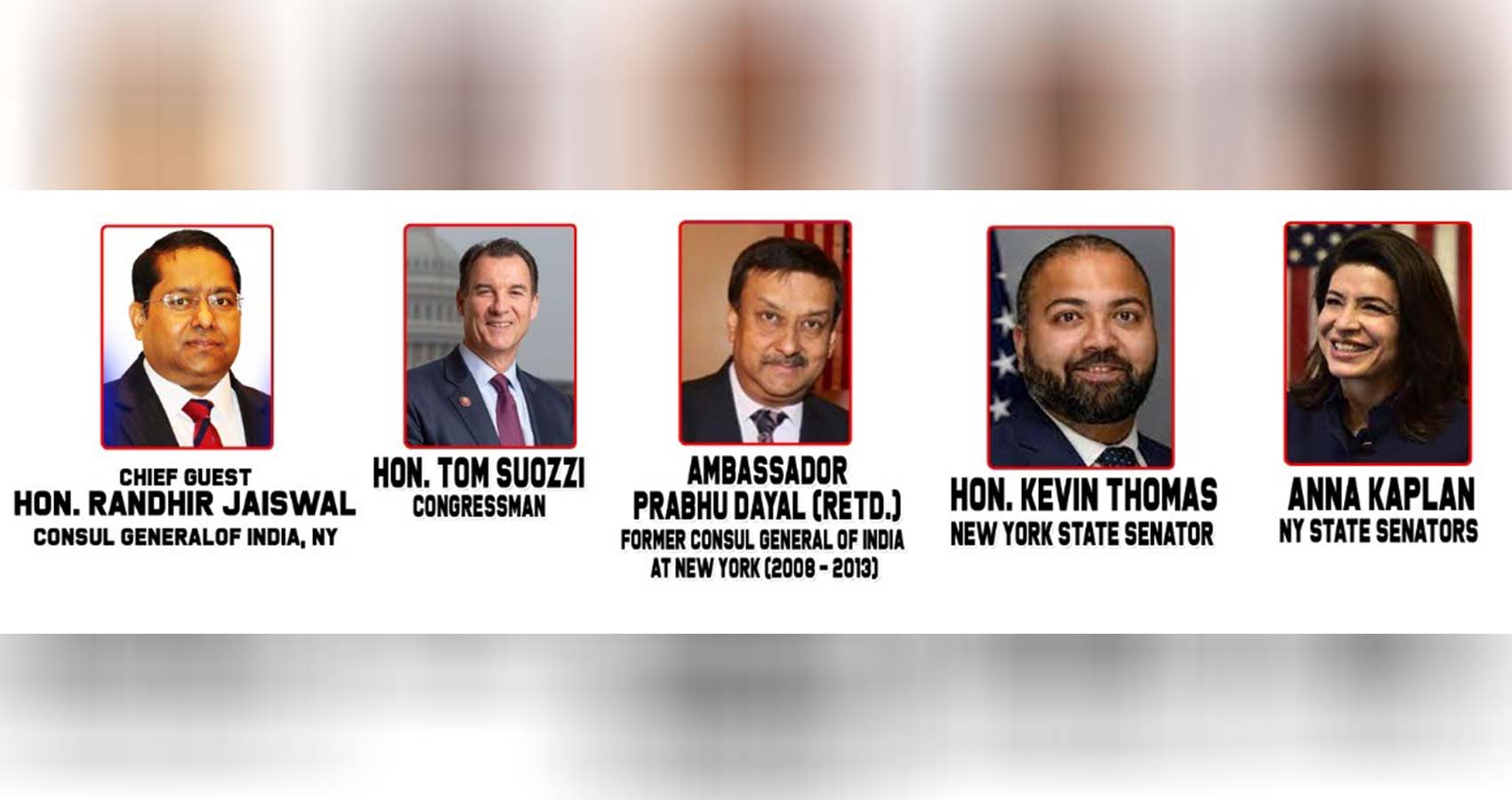
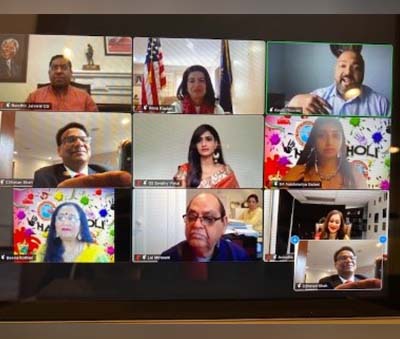 This message of unity in diversity was shared by the Chief Guest, India’s Consul General in New York, Randhirkumar Jaiswal during the annual Holi celebrations organized by GOPIO New York Chapter in collaboration with the Society of Indo-American Engineers Architects (SIAEA) in collaboration with the Consulate General of India In New York on Sunday, March 20th, 2022.
This message of unity in diversity was shared by the Chief Guest, India’s Consul General in New York, Randhirkumar Jaiswal during the annual Holi celebrations organized by GOPIO New York Chapter in collaboration with the Society of Indo-American Engineers Architects (SIAEA) in collaboration with the Consulate General of India In New York on Sunday, March 20th, 2022.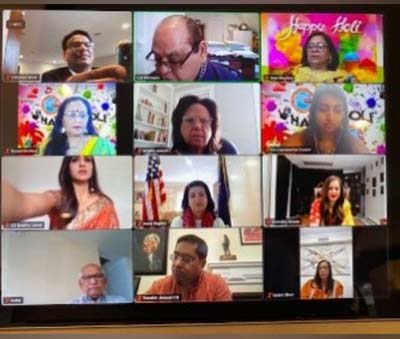 Congressman Tom Suozzi of Long Island, NY greeted the community with “Holi Mubarak” to all. Describing Holi as an exciting time for all, a great friend of India and the Indian American community, Rep. Suozzi said, “It’s great to be with you all to celebrate the festival of Holi, which reminds us of all that Spring is in the air as the flowers start blooming and we await new life and happiness. Thank you for your continued support, and I will do everything in my power to represent the Indian American community in Long Island at the US Congress and the interests of India.” Recalling his childhood as a first generation Irish American, he was taught to remember the 3 Is, Ireland, Italy, and Israel, and now, “There are for Is: Ireland, Italy, Israel and India.”
Congressman Tom Suozzi of Long Island, NY greeted the community with “Holi Mubarak” to all. Describing Holi as an exciting time for all, a great friend of India and the Indian American community, Rep. Suozzi said, “It’s great to be with you all to celebrate the festival of Holi, which reminds us of all that Spring is in the air as the flowers start blooming and we await new life and happiness. Thank you for your continued support, and I will do everything in my power to represent the Indian American community in Long Island at the US Congress and the interests of India.” Recalling his childhood as a first generation Irish American, he was taught to remember the 3 Is, Ireland, Italy, and Israel, and now, “There are for Is: Ireland, Italy, Israel and India.”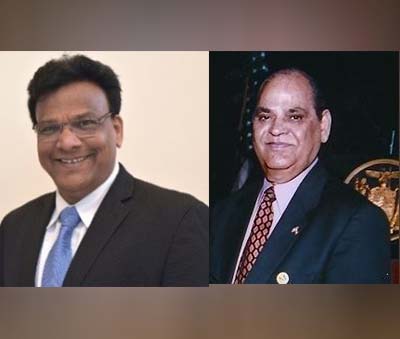 New York Senator Kevin Thomas shared with the audience how he has made it a point to bring Holi and other Indian festivals to the New York State Chambers, distributing Samosas and sweets to the members of the elected officials in Albany. He invited GOPIO to join him and other elected officials in Albany to celebrate Holi in person, after having to celebrate Holi virtually in the past 2 years due to Covid. “We hope, this is the last of all virtual celebrations,” he said, and hoped that “From now on, we can celebrate the festivities in person, meeting one another, joining our hands together,” he said.
New York Senator Kevin Thomas shared with the audience how he has made it a point to bring Holi and other Indian festivals to the New York State Chambers, distributing Samosas and sweets to the members of the elected officials in Albany. He invited GOPIO to join him and other elected officials in Albany to celebrate Holi in person, after having to celebrate Holi virtually in the past 2 years due to Covid. “We hope, this is the last of all virtual celebrations,” he said, and hoped that “From now on, we can celebrate the festivities in person, meeting one another, joining our hands together,” he said. Lal Motwani, Chairman of GOPIO New York and Executive Trustee of GOPIO International, and former president of the SIAEA, in his address, greeted Honorable India’s Consul General of New York, RandhirKumar Jaiswal and officials, members and the leaders of GOPIO from around the world who have joined virtually to celebrate the colorful festival of Holi.
Lal Motwani, Chairman of GOPIO New York and Executive Trustee of GOPIO International, and former president of the SIAEA, in his address, greeted Honorable India’s Consul General of New York, RandhirKumar Jaiswal and officials, members and the leaders of GOPIO from around the world who have joined virtually to celebrate the colorful festival of Holi.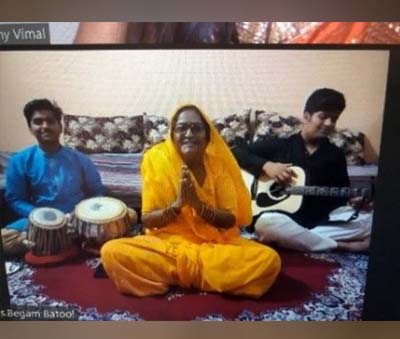 Ketan Shah, President of SIAEA served as co-emcee and introduced the speakers, executive team of GOPIO and SIAEA boards at the event and thanked the several sponsors who made the event successful by their financial support. Major sponsors among all are ICC (Grand Sponsor), Monpat Construction and Nadiad Construction (GOLD Sponsors), Amil Patel, SIAEA president-elect, Gary Wowk Founder of K Construction, Bina Sabapathy, Navneet Kothari, Dhiraj Ahuja were among the SILVER sponsors. Swathi and Aaishwariya Gulani, Miss India USA 2020 were master emcees who gracefully presented the cultural part of the program. Dharmatma Saran of the Miss India Worldwide Pageants coordinated the cultural extravaganza. Dr. Thomas Abraham, Chairman of GOPIO International in his greetings to the community on the occasion of Holi, complemented GOPIO New York and SIAEA for hosting the Holi celebrations.
Ketan Shah, President of SIAEA served as co-emcee and introduced the speakers, executive team of GOPIO and SIAEA boards at the event and thanked the several sponsors who made the event successful by their financial support. Major sponsors among all are ICC (Grand Sponsor), Monpat Construction and Nadiad Construction (GOLD Sponsors), Amil Patel, SIAEA president-elect, Gary Wowk Founder of K Construction, Bina Sabapathy, Navneet Kothari, Dhiraj Ahuja were among the SILVER sponsors. Swathi and Aaishwariya Gulani, Miss India USA 2020 were master emcees who gracefully presented the cultural part of the program. Dharmatma Saran of the Miss India Worldwide Pageants coordinated the cultural extravaganza. Dr. Thomas Abraham, Chairman of GOPIO International in his greetings to the community on the occasion of Holi, complemented GOPIO New York and SIAEA for hosting the Holi celebrations. Second-generation Indian Americans, including a 16-yr old Aditi shared with the audience their perspectives, experiences of celebrating Holi and what it meant for them. A beautiful Hindi poem on Holi composed and narrated by Anju and Sneha Singhi, a young artist was appreciated by one and all. Members of the dance troupe led by Staya Narayn Charka of the Ananda Ashram performed Kathakali, reliving the stories from the Indian Epic, Mahabharat. Navya Paingoal, Renu Kundem, and Michelle Sadat a fine vocalist also delighted the event with their beautiful singing.
Second-generation Indian Americans, including a 16-yr old Aditi shared with the audience their perspectives, experiences of celebrating Holi and what it meant for them. A beautiful Hindi poem on Holi composed and narrated by Anju and Sneha Singhi, a young artist was appreciated by one and all. Members of the dance troupe led by Staya Narayn Charka of the Ananda Ashram performed Kathakali, reliving the stories from the Indian Epic, Mahabharat. Navya Paingoal, Renu Kundem, and Michelle Sadat a fine vocalist also delighted the event with their beautiful singing.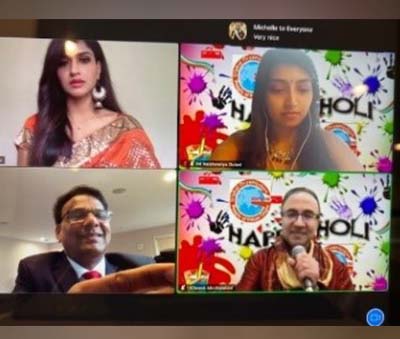 Miss Teen India Sidhya Ganesh from the state of Washington delighted the audience with a live Holi Dance. The Chander family consisting of Anil, Harish, Gopi Arti Raj presented a Bollywood Medley, mesmerizing the audience with their beautiful voice singing some of the very popular numbers from the evergreen Hindi movies. Dinesh Mirchandani, a founder, and CEO of Sargam Music Academy delighted the occasion with his classical vocal singing.
Miss Teen India Sidhya Ganesh from the state of Washington delighted the audience with a live Holi Dance. The Chander family consisting of Anil, Harish, Gopi Arti Raj presented a Bollywood Medley, mesmerizing the audience with their beautiful voice singing some of the very popular numbers from the evergreen Hindi movies. Dinesh Mirchandani, a founder, and CEO of Sargam Music Academy delighted the occasion with his classical vocal singing.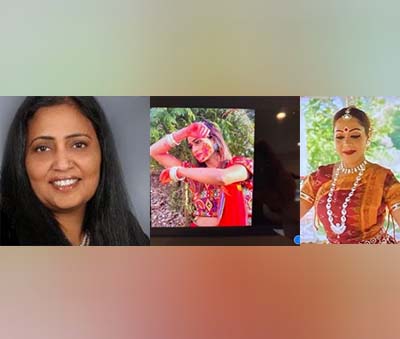 Beena Kothari, a prominent community leader and GOPIO – NY President poetically described the importance of Holi and served as an emcee of the event. Holi has become known as India’s most vivid,
Beena Kothari, a prominent community leader and GOPIO – NY President poetically described the importance of Holi and served as an emcee of the event. Holi has become known as India’s most vivid, 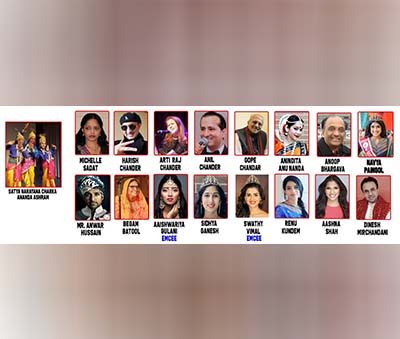 Participants, Viewers, Sponsors, and executive committees of both GOPIO-NY and SIAEA.
Participants, Viewers, Sponsors, and executive committees of both GOPIO-NY and SIAEA.
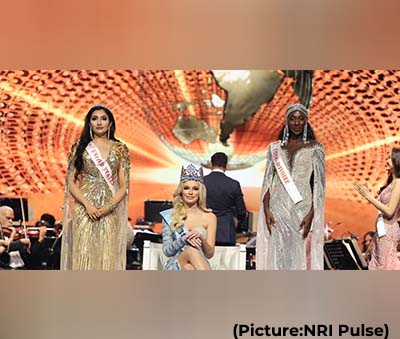 Toni-Ann Singh, Miss World 2020, also graced the event by performing a special number ‘The Prayer’ to show her support for Ukraine in the midst of its conflict with Russia. “Our current Miss World Toni-Ann Singh performs ‘The Prayer’ as we light candles around the world to stand with Ukraine. There wasn’t a dry eye in the house #mwcandlesforukraine.” tweeted from Miss World’s handle.
Toni-Ann Singh, Miss World 2020, also graced the event by performing a special number ‘The Prayer’ to show her support for Ukraine in the midst of its conflict with Russia. “Our current Miss World Toni-Ann Singh performs ‘The Prayer’ as we light candles around the world to stand with Ukraine. There wasn’t a dry eye in the house #mwcandlesforukraine.” tweeted from Miss World’s handle.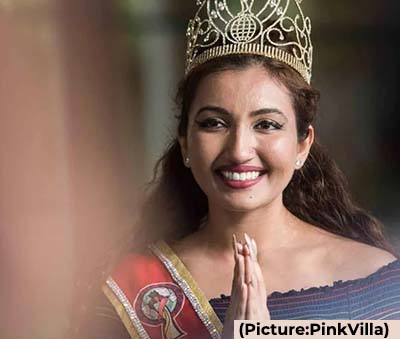 Before she left for Miss World earlier this month, Saini shared a “global message of hope and resilience” in which spoke about how she survived a “major rollover car accident that left my face with bleeding wounds” while she was still in university.
Before she left for Miss World earlier this month, Saini shared a “global message of hope and resilience” in which spoke about how she survived a “major rollover car accident that left my face with bleeding wounds” while she was still in university. Shree Saini has also been crowned Miss India Worldwide 2018 at a pageant held in the Fords City of New Jersey. “My dance journey began when I was only 3 years old, but a substantial part of my dance journey was filled with both physical and emotional hardships. When I was 12, I was diagnosed with a complete heart block. I had to get a pacemaker surgery. The average age of a pacemaker recipient is age 80. Cardiologists told me I could never dance again,” Shree had noted on her social media.
Shree Saini has also been crowned Miss India Worldwide 2018 at a pageant held in the Fords City of New Jersey. “My dance journey began when I was only 3 years old, but a substantial part of my dance journey was filled with both physical and emotional hardships. When I was 12, I was diagnosed with a complete heart block. I had to get a pacemaker surgery. The average age of a pacemaker recipient is age 80. Cardiologists told me I could never dance again,” Shree had noted on her social media.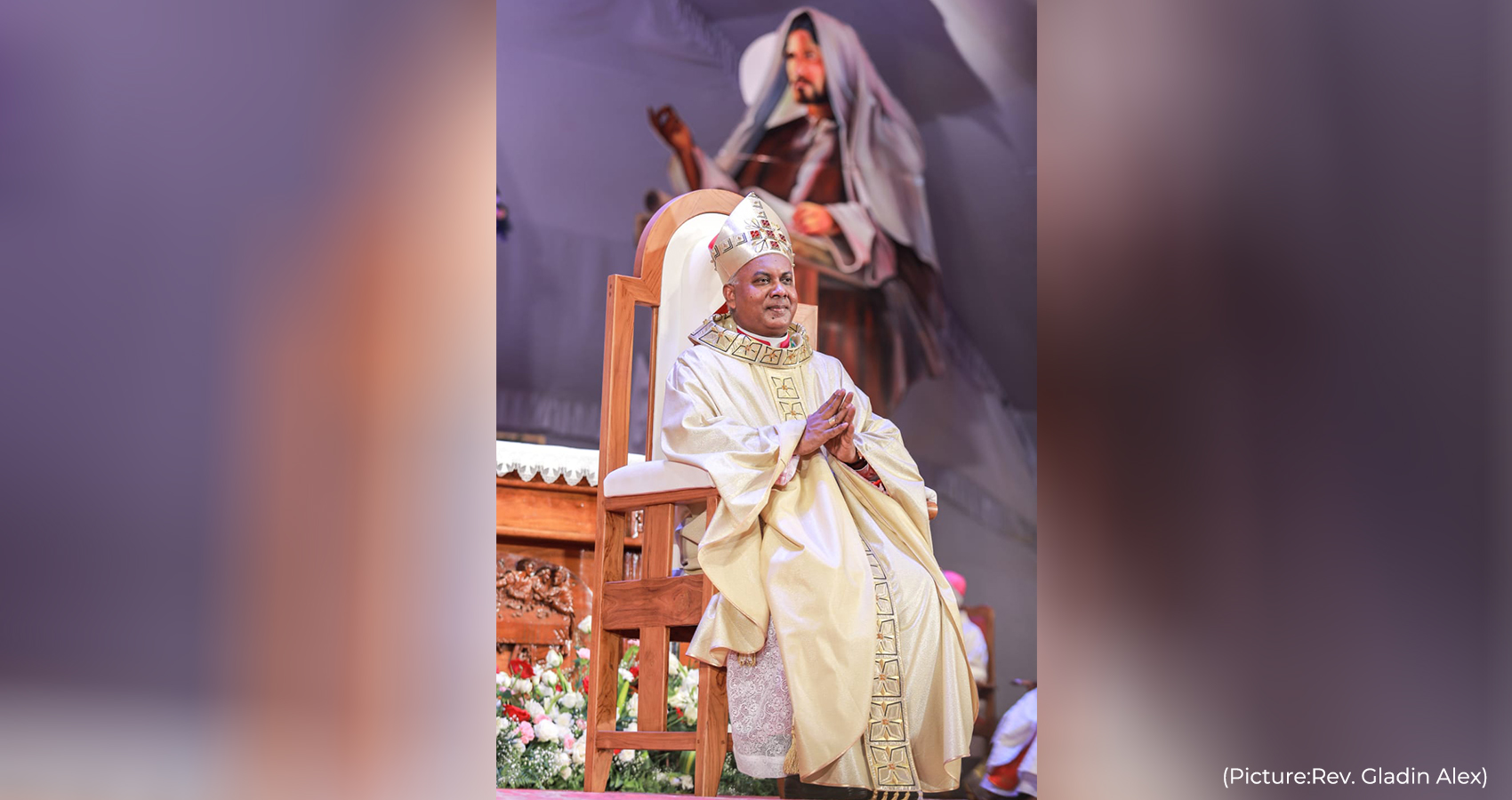
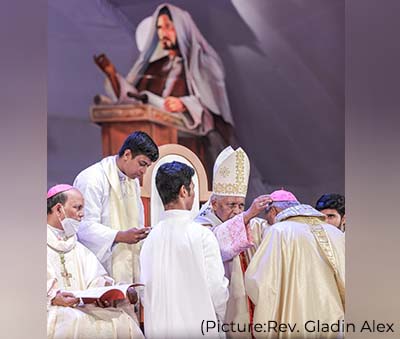 Known among his priest friends and the larger Catholic community in Kerala, the state with the maximum number of Christians in the country, having as many as 20% of the state’s population being Christian, the newly consecrated Archbishop Netto is known for his simplicity, goodness at heart, down to earth approach and cordial relationship with one and all.
Known among his priest friends and the larger Catholic community in Kerala, the state with the maximum number of Christians in the country, having as many as 20% of the state’s population being Christian, the newly consecrated Archbishop Netto is known for his simplicity, goodness at heart, down to earth approach and cordial relationship with one and all.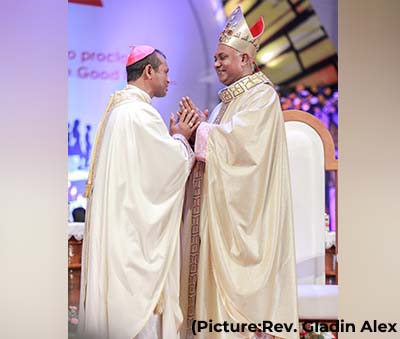 Delivering the benediction, Cardinal Baselios Cleemis Catholicos, Major Archbishop-Catholicos of Malankara Syrian Catholic Church, called upon the new Archbishop to lead the coastal population from the front for their rights and betterment. The benefactors of such efforts must not be the parishioners alone, but the entire community in the region. He also recounted the selfless deeds of the fisher-folks in rescuing those stranded in the floods of 2018.
Delivering the benediction, Cardinal Baselios Cleemis Catholicos, Major Archbishop-Catholicos of Malankara Syrian Catholic Church, called upon the new Archbishop to lead the coastal population from the front for their rights and betterment. The benefactors of such efforts must not be the parishioners alone, but the entire community in the region. He also recounted the selfless deeds of the fisher-folks in rescuing those stranded in the floods of 2018.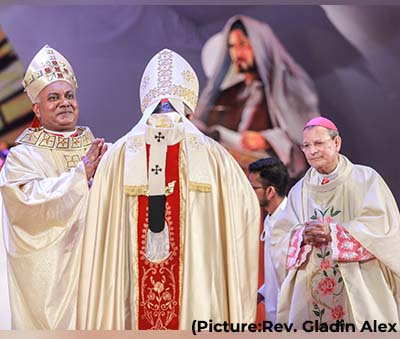 During his long pastoral ministry, serving the Church, Archbishop Netto has held the following offices: He was the parish vicar in Peringamala (1990-1991) and of the Cathedral of Palayam (1991-1995) and executive secretary for ecumenism and interreligious dialogue (1994-1995). He then served as parish priest in Pettah (1999-2003), and executive secretary for the Basic Christian Communities (2000-2004) and rector of Saint Vincent’s Minor Seminary in Trivandrum (2003-2010).
During his long pastoral ministry, serving the Church, Archbishop Netto has held the following offices: He was the parish vicar in Peringamala (1990-1991) and of the Cathedral of Palayam (1991-1995) and executive secretary for ecumenism and interreligious dialogue (1994-1995). He then served as parish priest in Pettah (1999-2003), and executive secretary for the Basic Christian Communities (2000-2004) and rector of Saint Vincent’s Minor Seminary in Trivandrum (2003-2010). The diocese of Trivandrum was established by His Holiness Pope Pius XI on July 1, 1937 through the Bull “In Ora Malabarica” with the four taluks of Neyyantinkara, Nedumangad, Trivandrum and Chirayinkeezh bifurcated from the diocese of Quilon.
The diocese of Trivandrum was established by His Holiness Pope Pius XI on July 1, 1937 through the Bull “In Ora Malabarica” with the four taluks of Neyyantinkara, Nedumangad, Trivandrum and Chirayinkeezh bifurcated from the diocese of Quilon.
 The two leaders discussed with Pope Francis issues covering a range of areas of interest, including COVID-19, general global perspectives and maintaining peace and tranquility. After the meeting, Modi tweeted, with pictures of him embracing the Pope, “Had a very warm meeting with Pope Francis. I had the opportunity to discuss a wide range of issues with him and also invited him to visit India.”
The two leaders discussed with Pope Francis issues covering a range of areas of interest, including COVID-19, general global perspectives and maintaining peace and tranquility. After the meeting, Modi tweeted, with pictures of him embracing the Pope, “Had a very warm meeting with Pope Francis. I had the opportunity to discuss a wide range of issues with him and also invited him to visit India.” Pope Francis and the Prime Minister then exchanged gifts. Modi gave the Pope a silver candlestick and a copy of The Climate Climb. Pope Francis gave Modi a bronze plaque with the inscription “the desert will become a garden,” and copies of the pope’s writings, including his encyclicals “Laudato Si’” and “Fratelli Tutti,” as well as the “
Pope Francis and the Prime Minister then exchanged gifts. Modi gave the Pope a silver candlestick and a copy of The Climate Climb. Pope Francis gave Modi a bronze plaque with the inscription “the desert will become a garden,” and copies of the pope’s writings, including his encyclicals “Laudato Si’” and “Fratelli Tutti,” as well as the “ “The meeting should not be seen merely as the one between two country heads, rather it was the head of the largest democracy and an ancient culture of the world meeting the head of the largest religious community in the world. This brings in hope for enhancing human fraternity and caring for the poor, because that’s what Christianity stands for. It would bring in positive efforts in India for a mutual trust and collaboration between people of different religious groups. It would also contribute to the very need for dialogues. We are very delighted that the Prime Minister has opened ways for a Papal visit to India,” the Cardinal Cleemis told the media.
“The meeting should not be seen merely as the one between two country heads, rather it was the head of the largest democracy and an ancient culture of the world meeting the head of the largest religious community in the world. This brings in hope for enhancing human fraternity and caring for the poor, because that’s what Christianity stands for. It would bring in positive efforts in India for a mutual trust and collaboration between people of different religious groups. It would also contribute to the very need for dialogues. We are very delighted that the Prime Minister has opened ways for a Papal visit to India,” the Cardinal Cleemis told the media.
 Dr. V.K. Raju, who was born in Rajahmundry, AP, India, is a Clinical Professor of Ophthalmology at West Virginia University, Fellow of the Royal College of Surgeons, Fellow of the American College of Surgeons, Director of the International Ocular Surface Society, Director of the Ocular Surface Research and Education Foundation, Chairman of Goutami Eye Institute in Rajahmundry and is the President and Founder of the Eye Foundation of America, a non-profit organization dedicated to realizing a world without childhood blindness.
Dr. V.K. Raju, who was born in Rajahmundry, AP, India, is a Clinical Professor of Ophthalmology at West Virginia University, Fellow of the Royal College of Surgeons, Fellow of the American College of Surgeons, Director of the International Ocular Surface Society, Director of the Ocular Surface Research and Education Foundation, Chairman of Goutami Eye Institute in Rajahmundry and is the President and Founder of the Eye Foundation of America, a non-profit organization dedicated to realizing a world without childhood blindness. Dr. Raju expressed gratitude to all the Board members of the Foundation in UK, particularly, Ashwini Misro, Radhika Misro, and Raj Koppada for their enthusiasm and generosity in helping realize the mission of the Eye Foundation in preventing and treating childhood blindness and beyond in Uzbekistan.
Dr. Raju expressed gratitude to all the Board members of the Foundation in UK, particularly, Ashwini Misro, Radhika Misro, and Raj Koppada for their enthusiasm and generosity in helping realize the mission of the Eye Foundation in preventing and treating childhood blindness and beyond in Uzbekistan.
 In this context, as part of an ongoing awareness and education campaign about high risk heart disease in South Asians, American Association of Physicians of Indian Origin (AAPI) the largest ethnic medical organization in the United States presented two eminent speakers and experts, Dr. Enas Enas and Dr. Amit Kera, discussing ways to create awareness on Heart Disease Among South Asians during a webinar on Saturday, October 16th, 2021.
In this context, as part of an ongoing awareness and education campaign about high risk heart disease in South Asians, American Association of Physicians of Indian Origin (AAPI) the largest ethnic medical organization in the United States presented two eminent speakers and experts, Dr. Enas Enas and Dr. Amit Kera, discussing ways to create awareness on Heart Disease Among South Asians during a webinar on Saturday, October 16th, 2021. Dr. Enas referred to several research/studies around the world, showing high prevalence of CAD among Indians. “Indians have a big problem with premature heart disease,” Dr. Enas said and pointed out that 185,000 people of South Asian origin die of heart disease per year as against 15,000 Whites die of the same health issue. While referring to Mitigating Risk Factors, Dr. Enas recommended Indians to follow the American Heart Association developed Life Simple 7 with additional requirement for exercise and maintaining sugar level below 140.
Dr. Enas referred to several research/studies around the world, showing high prevalence of CAD among Indians. “Indians have a big problem with premature heart disease,” Dr. Enas said and pointed out that 185,000 people of South Asian origin die of heart disease per year as against 15,000 Whites die of the same health issue. While referring to Mitigating Risk Factors, Dr. Enas recommended Indians to follow the American Heart Association developed Life Simple 7 with additional requirement for exercise and maintaining sugar level below 140. Dr. Amit Kera, a new rising star in Preventive Cardiology, built on that argument and presented genomic data to fill the gap and also pointed out that usual risk scoring has been done on Caucasians and cannot be extrapolated to south Asians. He advocated for the need for our own data base and especially genomic data to go beyond coronary calcium score and use “ Polygenic score,” which can predict even more accurately the risk of heart disease individually what he calls “Precision Medicine,” a futuristic concept, which he is working on as Associate Director at prestigious Broad institute affiliated with MIT and Harvard. Pointing to international studies that point to prevalence of Cardiovascular diseases high among South Asians, he said, Diabetes is diagnosed four times more among the Asians in comparison with Europeans.
Dr. Amit Kera, a new rising star in Preventive Cardiology, built on that argument and presented genomic data to fill the gap and also pointed out that usual risk scoring has been done on Caucasians and cannot be extrapolated to south Asians. He advocated for the need for our own data base and especially genomic data to go beyond coronary calcium score and use “ Polygenic score,” which can predict even more accurately the risk of heart disease individually what he calls “Precision Medicine,” a futuristic concept, which he is working on as Associate Director at prestigious Broad institute affiliated with MIT and Harvard. Pointing to international studies that point to prevalence of Cardiovascular diseases high among South Asians, he said, Diabetes is diagnosed four times more among the Asians in comparison with Europeans.
 Describing Domestic Violence as “a serious public health concern” Dr. Anupama Gotimukula, President of AAPI, in her welcome address said, “October is Domestic Awareness Month. Nearly one in four women and one in seven men in the U.S. have experienced physical violence at the hands of their domestic partners, according to the U.S. Centers for Disease Control and Prevention. The very important discussion today with an experts panel is aimed at helping AAPI members and the larger society to learn on ways to help promote healthy, respectful and nonviolent relationships.”
Describing Domestic Violence as “a serious public health concern” Dr. Anupama Gotimukula, President of AAPI, in her welcome address said, “October is Domestic Awareness Month. Nearly one in four women and one in seven men in the U.S. have experienced physical violence at the hands of their domestic partners, according to the U.S. Centers for Disease Control and Prevention. The very important discussion today with an experts panel is aimed at helping AAPI members and the larger society to learn on ways to help promote healthy, respectful and nonviolent relationships.” Dr. Preeti Saran, Domestic Violence Survivor and currently practicing Family Medicine & Obesity Specialist at RNJ Barnabas Hospital, New Jersey, pointed out that Domestic Violence is prevalent in all parts of the world. Sharing her own life’s challenges and abuses, Dr. Saran said, “Coming from very traditional society back in India, initially I thought it was happening to me because of my background.” Married to a dominant person, who was demanding, but suspicious and with trust issues, she had suffered immensely with insecurity and complexities of married life with intimidation and fearful for her own life. But she was able to turn her life around and has made a positive impact in the society. “Now, I am to reach out to other women who need support,” she said.
Dr. Preeti Saran, Domestic Violence Survivor and currently practicing Family Medicine & Obesity Specialist at RNJ Barnabas Hospital, New Jersey, pointed out that Domestic Violence is prevalent in all parts of the world. Sharing her own life’s challenges and abuses, Dr. Saran said, “Coming from very traditional society back in India, initially I thought it was happening to me because of my background.” Married to a dominant person, who was demanding, but suspicious and with trust issues, she had suffered immensely with insecurity and complexities of married life with intimidation and fearful for her own life. But she was able to turn her life around and has made a positive impact in the society. “Now, I am to reach out to other women who need support,” she said.
 The first female governor of the great state of New York thanbked the organiZers and leaders of the Indian American community: “I want to just thank Uma SenGupta for all you’ve done for us, and to your family, your mother, and the influence of your late father – you are the reason why we celebrate today, people like you who came to this country humbly, not sure of what the future would bring, but you always had that deep rooted faith in your traditions and to know that Diwali followed you to this country, that you had this light within your heart that you could bring to America and let shine and let all of us gather here in honor of the Goddess Lakshmi. Many of the traditions honor the male gods but this is one that’s dedicated to women so I think this is particularly special as well. Dr. Sumita Sengupta, I want to thank you as well. Randhir Jaiswal, the Consul General, is here as well. Dr. Hari Shukla, I want to thank him for making me feel so welcome, the founder of South Asians of New York.”
The first female governor of the great state of New York thanbked the organiZers and leaders of the Indian American community: “I want to just thank Uma SenGupta for all you’ve done for us, and to your family, your mother, and the influence of your late father – you are the reason why we celebrate today, people like you who came to this country humbly, not sure of what the future would bring, but you always had that deep rooted faith in your traditions and to know that Diwali followed you to this country, that you had this light within your heart that you could bring to America and let shine and let all of us gather here in honor of the Goddess Lakshmi. Many of the traditions honor the male gods but this is one that’s dedicated to women so I think this is particularly special as well. Dr. Sumita Sengupta, I want to thank you as well. Randhir Jaiswal, the Consul General, is here as well. Dr. Hari Shukla, I want to thank him for making me feel so welcome, the founder of South Asians of New York.”
 Shri Muraleedharan, who officially took charge as Minister of State for External Affairs and Minister of State for Parliamentary Affairs in May 2019, is visiting the United States to address the United Nations. He took the opportunity to travel to Connecticut to “listen” directly to the Diaspora and address their concerns. “I’ve been in charge of the External Affairs Ministry for the last 2 years. I was feeling that there is a need for interaction with the Diaspora. And this forum is a place where people have an opportunity to share their problems and concerns,” he told the audience. While assuring the community that he has listened to the concerns of the Diaspora, he will address each one of them and find an amicable solution.
Shri Muraleedharan, who officially took charge as Minister of State for External Affairs and Minister of State for Parliamentary Affairs in May 2019, is visiting the United States to address the United Nations. He took the opportunity to travel to Connecticut to “listen” directly to the Diaspora and address their concerns. “I’ve been in charge of the External Affairs Ministry for the last 2 years. I was feeling that there is a need for interaction with the Diaspora. And this forum is a place where people have an opportunity to share their problems and concerns,” he told the audience. While assuring the community that he has listened to the concerns of the Diaspora, he will address each one of them and find an amicable solution. Among others who attended the Reception and the Interactive Session with the Honorable Minister Shri V. Muraleedharan, included, Deputy Consul General of Indian in New York, Dr. Varun Jeph; Consul for Community Affairs at the Indian Consulate Mr. A.K.Vijayakrishan; CT Assemblyman Harry Arora, several community organizations including Milan cultural Association President Suresh Sharma; Past President of the Federation of Indian Associations of New York, New Jersey and CT, Andy Bhatia; CT Tamil Sangam President Shivakumar Subramaniam and past president Uma Sekhar; CT Telugu Association Past President Rao Yelamachali; Malayalee Association of Southern Connecticut President T.P. Sujanan; GOPIO Media Council Chair Nami Kaur; Sabinsa Corporation President Dr. Asha Ramesh; and former Provost and Vice President of Academic affairs of GOPIO, Dr. Rupendra Paliwal.
Among others who attended the Reception and the Interactive Session with the Honorable Minister Shri V. Muraleedharan, included, Deputy Consul General of Indian in New York, Dr. Varun Jeph; Consul for Community Affairs at the Indian Consulate Mr. A.K.Vijayakrishan; CT Assemblyman Harry Arora, several community organizations including Milan cultural Association President Suresh Sharma; Past President of the Federation of Indian Associations of New York, New Jersey and CT, Andy Bhatia; CT Tamil Sangam President Shivakumar Subramaniam and past president Uma Sekhar; CT Telugu Association Past President Rao Yelamachali; Malayalee Association of Southern Connecticut President T.P. Sujanan; GOPIO Media Council Chair Nami Kaur; Sabinsa Corporation President Dr. Asha Ramesh; and former Provost and Vice President of Academic affairs of GOPIO, Dr. Rupendra Paliwal.
 “India is fully democratic. Judiciary is independent. Media is free. There is no substance to claims that the media is controlled” by the government, declared Shri V. Muraleedharan, who is visiting the United States to address the United Nations.
“India is fully democratic. Judiciary is independent. Media is free. There is no substance to claims that the media is controlled” by the government, declared Shri V. Muraleedharan, who is visiting the United States to address the United Nations. Among others who attended the Reception and the Interactive Session with the Honorable Minister Shri V. Muraleedharan, included, Deputy Consul General of Indian in New York, Dr. Varun Jeph; Consul for Community Affairs at the Indian Consulate Mr. A.K.Vijayakrishan; CT Assemblyman Harry Arora, several community organizations including Milan cultural Association President Suresh Sharma; Past President of the Federation of Indian Associations of New York, New Jersey and CT, Andy Bhatia; CT Tamil Sangam President Shivakumar Subramaniam and past president Uma Sekhar; CT Telugu Association Past President Rao Yelamachali; Malayalee Association of Southern Connecticut President T.P. Sujanan; GOPIO Media Council Chair Nami Kaur; Sabinsa Corporation President Dr. Asha Ramesh; and former Provost and Vice President of Academic affairs of GOPIO, Dr. Rupendra Paliwal.
Among others who attended the Reception and the Interactive Session with the Honorable Minister Shri V. Muraleedharan, included, Deputy Consul General of Indian in New York, Dr. Varun Jeph; Consul for Community Affairs at the Indian Consulate Mr. A.K.Vijayakrishan; CT Assemblyman Harry Arora, several community organizations including Milan cultural Association President Suresh Sharma; Past President of the Federation of Indian Associations of New York, New Jersey and CT, Andy Bhatia; CT Tamil Sangam President Shivakumar Subramaniam and past president Uma Sekhar; CT Telugu Association Past President Rao Yelamachali; Malayalee Association of Southern Connecticut President T.P. Sujanan; GOPIO Media Council Chair Nami Kaur; Sabinsa Corporation President Dr. Asha Ramesh; and former Provost and Vice President of Academic affairs of GOPIO, Dr. Rupendra Paliwal.
 Saini, who has been recognized by several organizations and states and world renowned persons for her work and is aspiring to be an actor, told this writer during a recent interview “I am now “Miss World America Washington,” which is preliminary to Miss World America and Miss World! Miss World Titles have been won by Aishwarya Rai and Priyanka Chopra. It’s the largest and the most philanthropic pageant, having raised 1.3 billion dollars for charities around the world. And I want to promote the many charitable initiatives this noble organization does all around the world.”
Saini, who has been recognized by several organizations and states and world renowned persons for her work and is aspiring to be an actor, told this writer during a recent interview “I am now “Miss World America Washington,” which is preliminary to Miss World America and Miss World! Miss World Titles have been won by Aishwarya Rai and Priyanka Chopra. It’s the largest and the most philanthropic pageant, having raised 1.3 billion dollars for charities around the world. And I want to promote the many charitable initiatives this noble organization does all around the world.” Instead of giving up, Shree Saini went back to dance class with her left arm tied up in a cast and practiced up to 6 hours a day in order to regain her strength. Saini noted on media that even though “dance is a very competitive, cut-throat, high stakes sport”, she wants to “encourage teachers, students, parents to always be uplifting, emphatic, especially when it’s difficult. Real Love takes courage.”
Instead of giving up, Shree Saini went back to dance class with her left arm tied up in a cast and practiced up to 6 hours a day in order to regain her strength. Saini noted on media that even though “dance is a very competitive, cut-throat, high stakes sport”, she wants to “encourage teachers, students, parents to always be uplifting, emphatic, especially when it’s difficult. Real Love takes courage.” Being uprooted from one’s culture and dear ones was undoubtedly a major challenge. She had to experience hardships while in high school, where she was bullied. Young Shree fought bravely a heart ailment which required her to use a pacemaker. Shree, who had a pacemaker implanted at the age of 12 and was told that she would never be able to dance, is an inspiration for all. “I practice dance almost every day for several hours,” Shree says, pointing to the pacemaker she carries with her all the time.
Being uprooted from one’s culture and dear ones was undoubtedly a major challenge. She had to experience hardships while in high school, where she was bullied. Young Shree fought bravely a heart ailment which required her to use a pacemaker. Shree, who had a pacemaker implanted at the age of 12 and was told that she would never be able to dance, is an inspiration for all. “I practice dance almost every day for several hours,” Shree says, pointing to the pacemaker she carries with her all the time.
 Progressives claimed victory after a planned infrastructure vote was delayed following their united front to oppose the $1 trillion bill without assurances about the fate of the accompanying Democratic spending plan last week. The move highlighted the growing power of leftwing Democrats, and sent a strong message to the rest of their party: You can’t get one bill without the other. West Virginia senator Manchin and his fellow holdout Kyrsten Sinema of Arizona might hold the cards in the 50-50 US Senate, but in the lower chamber at least the progressives were in the driving seat.
Progressives claimed victory after a planned infrastructure vote was delayed following their united front to oppose the $1 trillion bill without assurances about the fate of the accompanying Democratic spending plan last week. The move highlighted the growing power of leftwing Democrats, and sent a strong message to the rest of their party: You can’t get one bill without the other. West Virginia senator Manchin and his fellow holdout Kyrsten Sinema of Arizona might hold the cards in the 50-50 US Senate, but in the lower chamber at least the progressives were in the driving seat. The move illuminated how the newly powerful progressive movement can shape the way Biden’s agenda moves through Congress, with the power to delay or even block some moderate priorities. The progressive movement has been building in influence and organizing capacity since 2016, when Sanders’ insurgent presidential campaign breathed new life into the grassroots left. The progressive caucus has frequently threatened to withhold votes over ideological differences with more moderate Democrats, but usually failed to actually stop a major agenda item. Now, the once-fledgling progressive wing of the Democratic party has become a political force strong enough to resist the will of moderates and its own party’s leaders.
The move illuminated how the newly powerful progressive movement can shape the way Biden’s agenda moves through Congress, with the power to delay or even block some moderate priorities. The progressive movement has been building in influence and organizing capacity since 2016, when Sanders’ insurgent presidential campaign breathed new life into the grassroots left. The progressive caucus has frequently threatened to withhold votes over ideological differences with more moderate Democrats, but usually failed to actually stop a major agenda item. Now, the once-fledgling progressive wing of the Democratic party has become a political force strong enough to resist the will of moderates and its own party’s leaders.
 Tata Group and SpiceJet chairman
Tata Group and SpiceJet chairman 
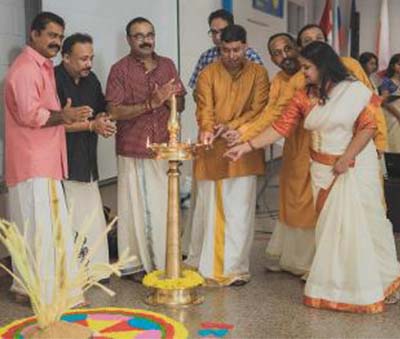 Men, women, children and youth dressed in traditional attire, from across the state of Connecticut came together to celebrate their culture, traditions, and fellowship during the annual Onam celebrations organized by Malayalee Association of Southern Connecticut (MASCONN) at Madison Middle School, Trumbull, CT on Saturday, September 18th, 2021.
Men, women, children and youth dressed in traditional attire, from across the state of Connecticut came together to celebrate their culture, traditions, and fellowship during the annual Onam celebrations organized by Malayalee Association of Southern Connecticut (MASCONN) at Madison Middle School, Trumbull, CT on Saturday, September 18th, 2021. “MASCONN an offshoot of the natural growth of the Indian-American especially Malayalee Community in the southern Connecticut region,” said Sujanan Nair, President of MASCON, in his welcome address.
“MASCONN an offshoot of the natural growth of the Indian-American especially Malayalee Community in the southern Connecticut region,” said Sujanan Nair, President of MASCON, in his welcome address. Participants were dressed in their traditional attire. The most traditional costume for the men of Kerala is the “Mundu” which is mostly white in colour. It is worn tightly at the waist with a knot and comes down till the feet. Women following Hinduism wear a blouse and mundu known as “Mundu neriyathu.” Children were seen elegantly in mundus, shirts, sarees and salwar.
Participants were dressed in their traditional attire. The most traditional costume for the men of Kerala is the “Mundu” which is mostly white in colour. It is worn tightly at the waist with a knot and comes down till the feet. Women following Hinduism wear a blouse and mundu known as “Mundu neriyathu.” Children were seen elegantly in mundus, shirts, sarees and salwar. The celebration of Onam festival provides them with a perfect opportunity to encourage the new generation of children of Indian origin to witness, learn and appreciate these rich traditions, even while it offers the first generation NRIs to stay connected and cherish the rich cultural heritage they hold so dear to them Malayalee Association of Southern Connecticut (MASCONN) which was formed less than ten years ago, the cultural extravaganza was in many ways “reliving the culture and traditions” and “cherishing the past with a view to pass it on to the future generation.”
The celebration of Onam festival provides them with a perfect opportunity to encourage the new generation of children of Indian origin to witness, learn and appreciate these rich traditions, even while it offers the first generation NRIs to stay connected and cherish the rich cultural heritage they hold so dear to them Malayalee Association of Southern Connecticut (MASCONN) which was formed less than ten years ago, the cultural extravaganza was in many ways “reliving the culture and traditions” and “cherishing the past with a view to pass it on to the future generation.”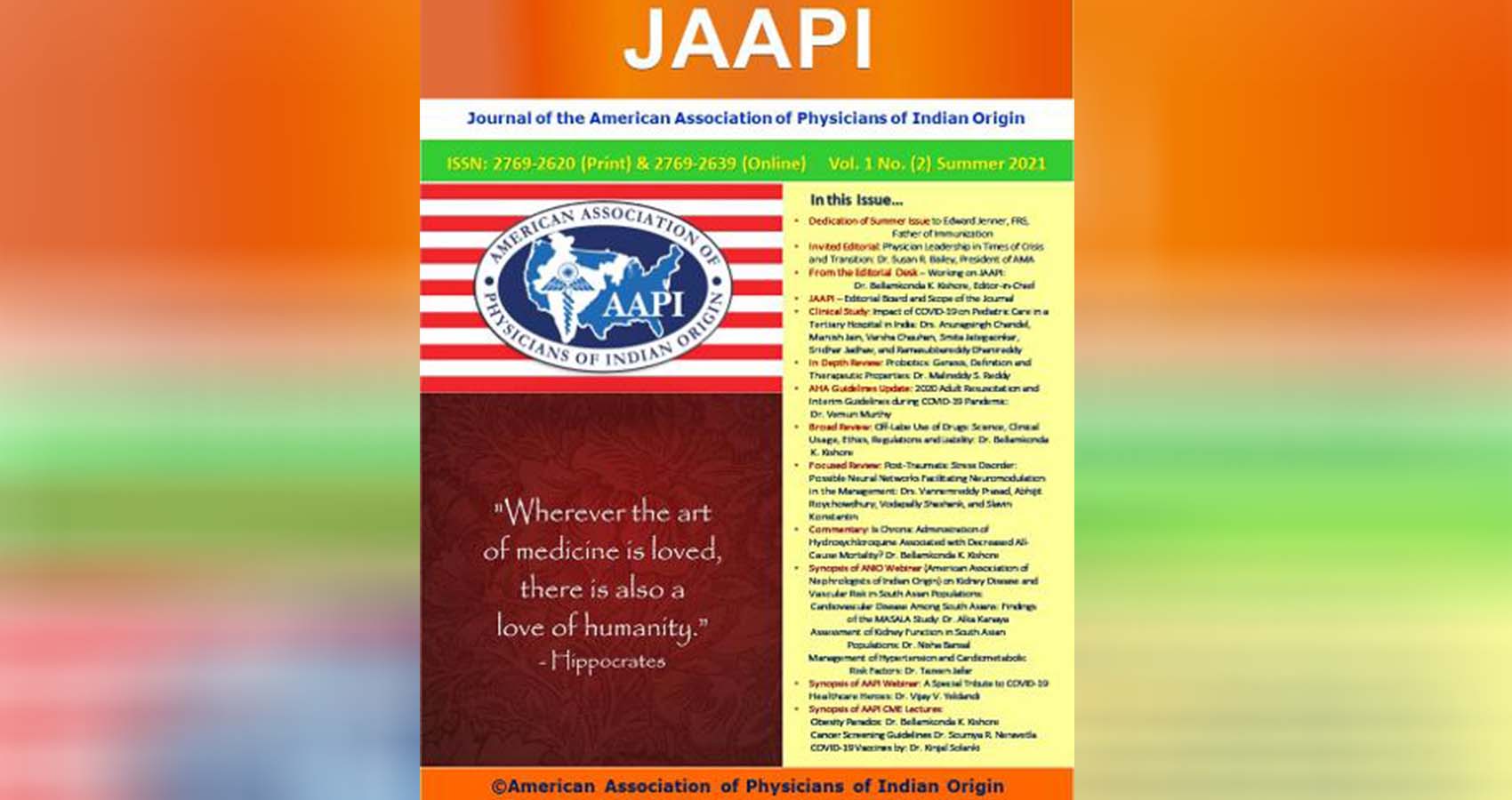
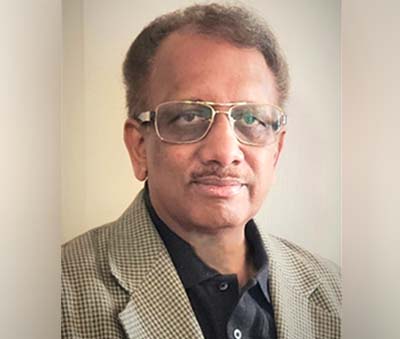 Dr. Anupama Gotimukula, President of AAPI while congratulating the Editorial Team of JAAPI said, “This is the fruit of our teamwork and it’s a good opportunity for the members of AAPI to contribute scientific articles, and make it better as we move on. JAAPI is a peer-reviewed medical and health journal published by the AAPI. In line with the vision and mission of AAPI, JAAPI is dedicated to facilitate physicians to excel in patient care, teaching and research, and thus pursue their aspirations in professional and community affairs. JAAPI is open to contributions from physicians and scientists of all backgrounds and from all over the world.” In his introductory note, the Founding Editor-in-Chief of the peer-reviewed JAAPI, Dr. Bellamkonda K. Kishore, who is an outstanding academician, innovator, and entrepreneur, writes, “ We are pleased to present you the Summer issue of peer-reviewed JAAPI. It is made possible with the unconditional support of AAPI President Dr. Anupama Gotimukula and the Executive Committee Members, the relentless work of Members of the JAAPI Editorial Board, Editorial Advisors, and Reviewers as well as Ms. Vijaya Kodali, the Chief Operations Officer of AAPI.”
Dr. Anupama Gotimukula, President of AAPI while congratulating the Editorial Team of JAAPI said, “This is the fruit of our teamwork and it’s a good opportunity for the members of AAPI to contribute scientific articles, and make it better as we move on. JAAPI is a peer-reviewed medical and health journal published by the AAPI. In line with the vision and mission of AAPI, JAAPI is dedicated to facilitate physicians to excel in patient care, teaching and research, and thus pursue their aspirations in professional and community affairs. JAAPI is open to contributions from physicians and scientists of all backgrounds and from all over the world.” In his introductory note, the Founding Editor-in-Chief of the peer-reviewed JAAPI, Dr. Bellamkonda K. Kishore, who is an outstanding academician, innovator, and entrepreneur, writes, “ We are pleased to present you the Summer issue of peer-reviewed JAAPI. It is made possible with the unconditional support of AAPI President Dr. Anupama Gotimukula and the Executive Committee Members, the relentless work of Members of the JAAPI Editorial Board, Editorial Advisors, and Reviewers as well as Ms. Vijaya Kodali, the Chief Operations Officer of AAPI.” “This is a historical milestone in the annals of AAPI. The foundation for this milestone was laid one year ago in February 2020 by our visionary leaders, Drs. Sudhakar Jonnalagadda and Suresh Reddy,” said Dr. Kishore, said. Describing the vision and the efforts that have given shape to the launching of JAAPI, Dr. Kishore said, “A Peer Review Journal needs group synergy and cultivation of the culture of peer-review process and publication. It is like agriculture – crop after crop. But the very fact that we are able to assemble a passionate and diligent team of editorial board members, and developed the required group synergy and culture bringing out the journal as planned, itself is a sign that AAPI has reached a level of academic maturity, capability and perfection.”
“This is a historical milestone in the annals of AAPI. The foundation for this milestone was laid one year ago in February 2020 by our visionary leaders, Drs. Sudhakar Jonnalagadda and Suresh Reddy,” said Dr. Kishore, said. Describing the vision and the efforts that have given shape to the launching of JAAPI, Dr. Kishore said, “A Peer Review Journal needs group synergy and cultivation of the culture of peer-review process and publication. It is like agriculture – crop after crop. But the very fact that we are able to assemble a passionate and diligent team of editorial board members, and developed the required group synergy and culture bringing out the journal as planned, itself is a sign that AAPI has reached a level of academic maturity, capability and perfection.”
 Affiliated with various US medical organizations and institutions, the soft-spoken Dr. Murthy is a Resuscitation Educator and Researcher, Advisor to Resuscitation Training Centers, Champion of Community Cardiopulmonary Resuscitation (CPR), and a Leader of US Organized Medicine. His Mission has been “Saving Lives” in Sudden Cardiac Arrests and common heart issues.
Affiliated with various US medical organizations and institutions, the soft-spoken Dr. Murthy is a Resuscitation Educator and Researcher, Advisor to Resuscitation Training Centers, Champion of Community Cardiopulmonary Resuscitation (CPR), and a Leader of US Organized Medicine. His Mission has been “Saving Lives” in Sudden Cardiac Arrests and common heart issues. The Founder of Chicago Medical Society’s Community CPR Project Saving More Illinois Lives through Education (SMILE,) Dr. Murthy, takes upon himself the life-long mission of saving lives through effective preventive measures. He says, “Almost one in three among South Asians may die from heart disease before 65 years of age.”
The Founder of Chicago Medical Society’s Community CPR Project Saving More Illinois Lives through Education (SMILE,) Dr. Murthy, takes upon himself the life-long mission of saving lives through effective preventive measures. He says, “Almost one in three among South Asians may die from heart disease before 65 years of age.” Dr. Murthy served the American Heart Association in different capacities. Such as National and International Faculty, Member of the International Committee, and Advisor to AHA International Training Centers, Also as AHA Liaison to Medical Organizations in the USA too. He co-chaired programs at the AHA Scientific Sessions and delivered Resuscitation-based lectures at prestigious US medical institutions.
Dr. Murthy served the American Heart Association in different capacities. Such as National and International Faculty, Member of the International Committee, and Advisor to AHA International Training Centers, Also as AHA Liaison to Medical Organizations in the USA too. He co-chaired programs at the AHA Scientific Sessions and delivered Resuscitation-based lectures at prestigious US medical institutions.
 Stanley won his 18th District Assembly seat in a Special Election in January 2021, becoming the first South Asian to represent Middlesex County in the New Jersey Legislature. Stanley defeated fellow Democrat, Edison Councilman Joe Coyle by a vote of 189-136, a 58%-42% margin, according to the Middlesex County Democratic Organization. The seat became vacant when former Assemblywoman Nancy Pinkin resigned after being sworn in as the new Middlesex County Clerk.Endorsed by the Middlesex County Democratic Organization, Assemblyman Stanley was sworn in on January 27th, 2021. Stanley serves as a member of the
Stanley won his 18th District Assembly seat in a Special Election in January 2021, becoming the first South Asian to represent Middlesex County in the New Jersey Legislature. Stanley defeated fellow Democrat, Edison Councilman Joe Coyle by a vote of 189-136, a 58%-42% margin, according to the Middlesex County Democratic Organization. The seat became vacant when former Assemblywoman Nancy Pinkin resigned after being sworn in as the new Middlesex County Clerk.Endorsed by the Middlesex County Democratic Organization, Assemblyman Stanley was sworn in on January 27th, 2021. Stanley serves as a member of the  Stanley was born in the State of Karnataka, India and immigrated to Brooklyn, NY at a young age. For the last 21 years, he has called East Brunswick his home. While living there, he has worked in the finance industry as a title and life insurance agent, as well as a mortgage broker. Stanley is a proud father of three children and has been actively involved in the Middlesex County community, previously serving as a Trustee of the Lighthouse Christian Fellowship Church in East Brunswick and as President of the Fox Meadow Condominium Association. State Sen. Patrick Diegnan (D-South Plainfield) was among those who had supported the then East Brunswick Councilman Sterley Stanley for the Assembly Seat. “I’m supporting Sterley Stanley,” he said. “He’s a good guy and he works with me all the time.” At a February 8th meeting, the East Brunswick town council honored Stanley’s four years of local service. At the meeting, Stanley stated that one of his proudest achievements as Council President was helping to ensure that the governing body functioned as a cohesive unit. “We might have had differences of opinion and we have differences in the way we solve things, but at the end of the day, we all got together and did what was best for the Township,” Stanley said. “I feel honored now to not just represent East Brunswick, but the whole 18th District, and all seven towns that are there,” he said.
Stanley was born in the State of Karnataka, India and immigrated to Brooklyn, NY at a young age. For the last 21 years, he has called East Brunswick his home. While living there, he has worked in the finance industry as a title and life insurance agent, as well as a mortgage broker. Stanley is a proud father of three children and has been actively involved in the Middlesex County community, previously serving as a Trustee of the Lighthouse Christian Fellowship Church in East Brunswick and as President of the Fox Meadow Condominium Association. State Sen. Patrick Diegnan (D-South Plainfield) was among those who had supported the then East Brunswick Councilman Sterley Stanley for the Assembly Seat. “I’m supporting Sterley Stanley,” he said. “He’s a good guy and he works with me all the time.” At a February 8th meeting, the East Brunswick town council honored Stanley’s four years of local service. At the meeting, Stanley stated that one of his proudest achievements as Council President was helping to ensure that the governing body functioned as a cohesive unit. “We might have had differences of opinion and we have differences in the way we solve things, but at the end of the day, we all got together and did what was best for the Township,” Stanley said. “I feel honored now to not just represent East Brunswick, but the whole 18th District, and all seven towns that are there,” he said.
 The spectrum of these ailments is wide and deep, with many tricky “masqueraders” in the mix creating confusion, potential misdiagnoses, and faulty or poor treatment, and causing immeasurable suffering for millions of people. Dr. Ruchi Gupta, a world-renowned researcher and physician on the front lines of this silent epidemic, in her first book, shares revolutionary research from her lab to address the entire spectrum of food-related health conditions.
The spectrum of these ailments is wide and deep, with many tricky “masqueraders” in the mix creating confusion, potential misdiagnoses, and faulty or poor treatment, and causing immeasurable suffering for millions of people. Dr. Ruchi Gupta, a world-renowned researcher and physician on the front lines of this silent epidemic, in her first book, shares revolutionary research from her lab to address the entire spectrum of food-related health conditions. The book has won excellent reviews from well-known authors. David Perlmutter, MD, Fellow, American College of Nutrition, author, #1 New York Times bestseller Grain Brain and Brain Wash, wrote of the book: “Food Without Fear explores how our individual uniqueness plays into how we respond to the information that our food choices purvey. And the dichotomy between “good” and “bad” foods is explored through the lenses of both leading edge science as well as our food-related responses. Both these data sets empower the reader with tools to optimize food choices and pave the way for a healthier life.”
The book has won excellent reviews from well-known authors. David Perlmutter, MD, Fellow, American College of Nutrition, author, #1 New York Times bestseller Grain Brain and Brain Wash, wrote of the book: “Food Without Fear explores how our individual uniqueness plays into how we respond to the information that our food choices purvey. And the dichotomy between “good” and “bad” foods is explored through the lenses of both leading edge science as well as our food-related responses. Both these data sets empower the reader with tools to optimize food choices and pave the way for a healthier life.”
 “FOOD WITHOUT FEAR: Identify, Prevent, and Treat Food Allergies, Intolerances, and Sensitivities,” a newly released book by Dr. Ruchi Gupta, an young and talented Indian American, illuminates what she has coined the food reaction spectrum—a revolutionary way to look at food-related conditions—and offers a new approach to managing adverse responses to food with a practical plan to end the misery and enjoy eating with ease.
“FOOD WITHOUT FEAR: Identify, Prevent, and Treat Food Allergies, Intolerances, and Sensitivities,” a newly released book by Dr. Ruchi Gupta, an young and talented Indian American, illuminates what she has coined the food reaction spectrum—a revolutionary way to look at food-related conditions—and offers a new approach to managing adverse responses to food with a practical plan to end the misery and enjoy eating with ease. Dr. Gupta is world-renowned for her groundbreaking research in the areas of food allergy and asthma epidemiology, most notably for her research on the prevalence of pediatric and adult food allergy in the United States. She has also significantly contributed to academic research in the areas of food allergy prevention, socioeconomic disparities in care, and the daily management of these conditions. Dr. Gupta is the author of The Food Allergy Experience, has written and co-authored over 150 peer-reviewed research manuscripts, and has had her work featured on major TV networks and in print media.
Dr. Gupta is world-renowned for her groundbreaking research in the areas of food allergy and asthma epidemiology, most notably for her research on the prevalence of pediatric and adult food allergy in the United States. She has also significantly contributed to academic research in the areas of food allergy prevention, socioeconomic disparities in care, and the daily management of these conditions. Dr. Gupta is the author of The Food Allergy Experience, has written and co-authored over 150 peer-reviewed research manuscripts, and has had her work featured on major TV networks and in print media.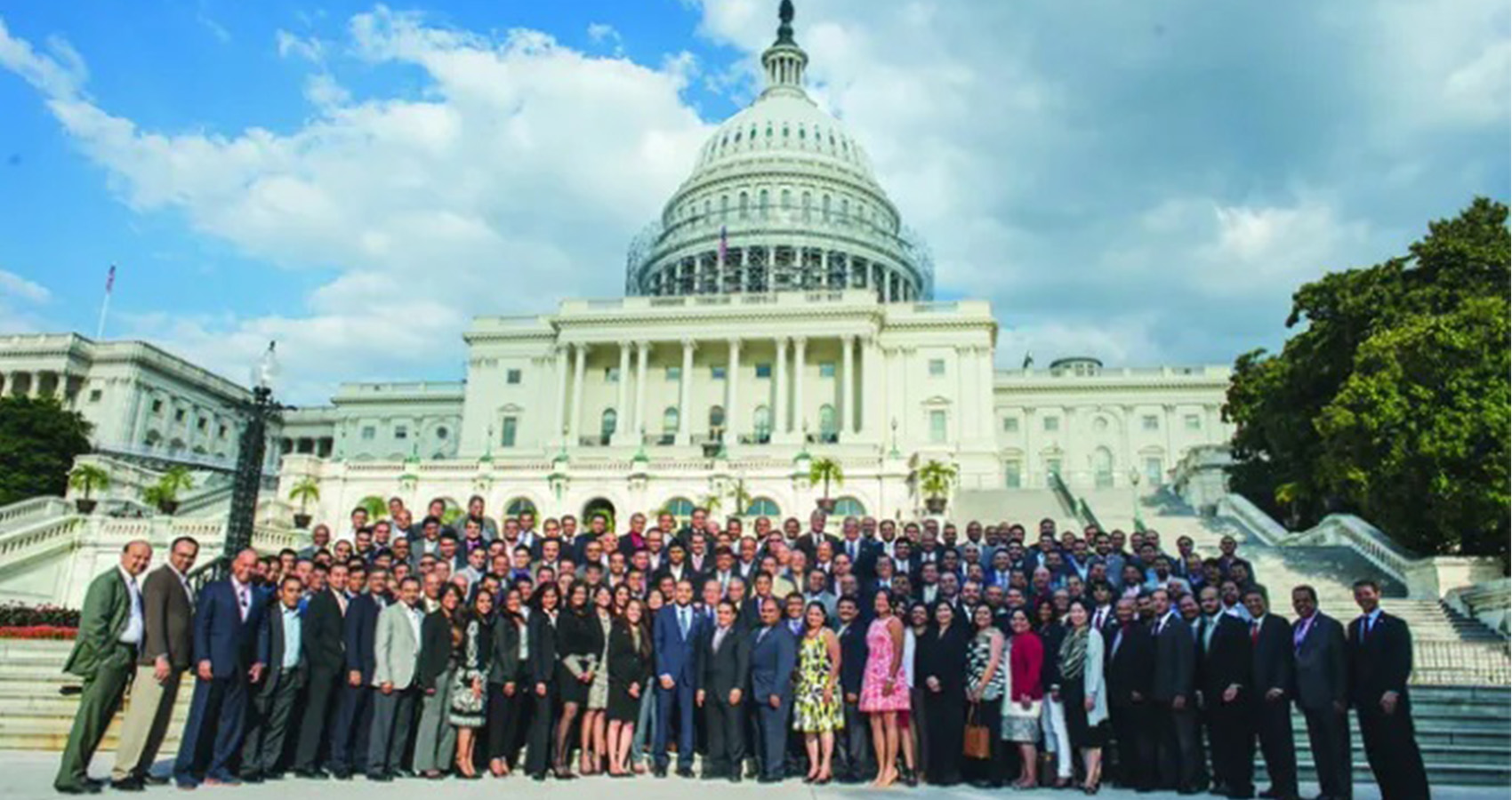
 In all Indian Americans own and operate 3.1 million guestrooms, and 2.2 million direct impact jobs. The study’s topline results were presented to AAHOA Members during the general session on the first day of the 2021 AAHOA Convention & Trade Show at the Kay Bailey Hutchison Convention Center Dallas on August 3rd.
In all Indian Americans own and operate 3.1 million guestrooms, and 2.2 million direct impact jobs. The study’s topline results were presented to AAHOA Members during the general session on the first day of the 2021 AAHOA Convention & Trade Show at the Kay Bailey Hutchison Convention Center Dallas on August 3rd. With the ownership of the majority hotel industry, the economic impact and industry influence of AAHOA’s nearly 20,000 Members, is very impressive. “This study gives us the clearest picture to date about the scale, reach, and economic impact that AAHOA Members have in the United States,” said AAHOA Chairman Biran Patel. “It is remarkable how far AAHOA Members have come since the association’s founding in 1989 when a small group of hoteliers banded together to fight discrimination. That commitment to helping hoteliers grow their businesses and realize the American Dream is reflected in the impressive numbers revealed today. We are proud of what our Members have accomplished and remain committed to being the foremost resource and advocate for America’s hotel owners.”
With the ownership of the majority hotel industry, the economic impact and industry influence of AAHOA’s nearly 20,000 Members, is very impressive. “This study gives us the clearest picture to date about the scale, reach, and economic impact that AAHOA Members have in the United States,” said AAHOA Chairman Biran Patel. “It is remarkable how far AAHOA Members have come since the association’s founding in 1989 when a small group of hoteliers banded together to fight discrimination. That commitment to helping hoteliers grow their businesses and realize the American Dream is reflected in the impressive numbers revealed today. We are proud of what our Members have accomplished and remain committed to being the foremost resource and advocate for America’s hotel owners.”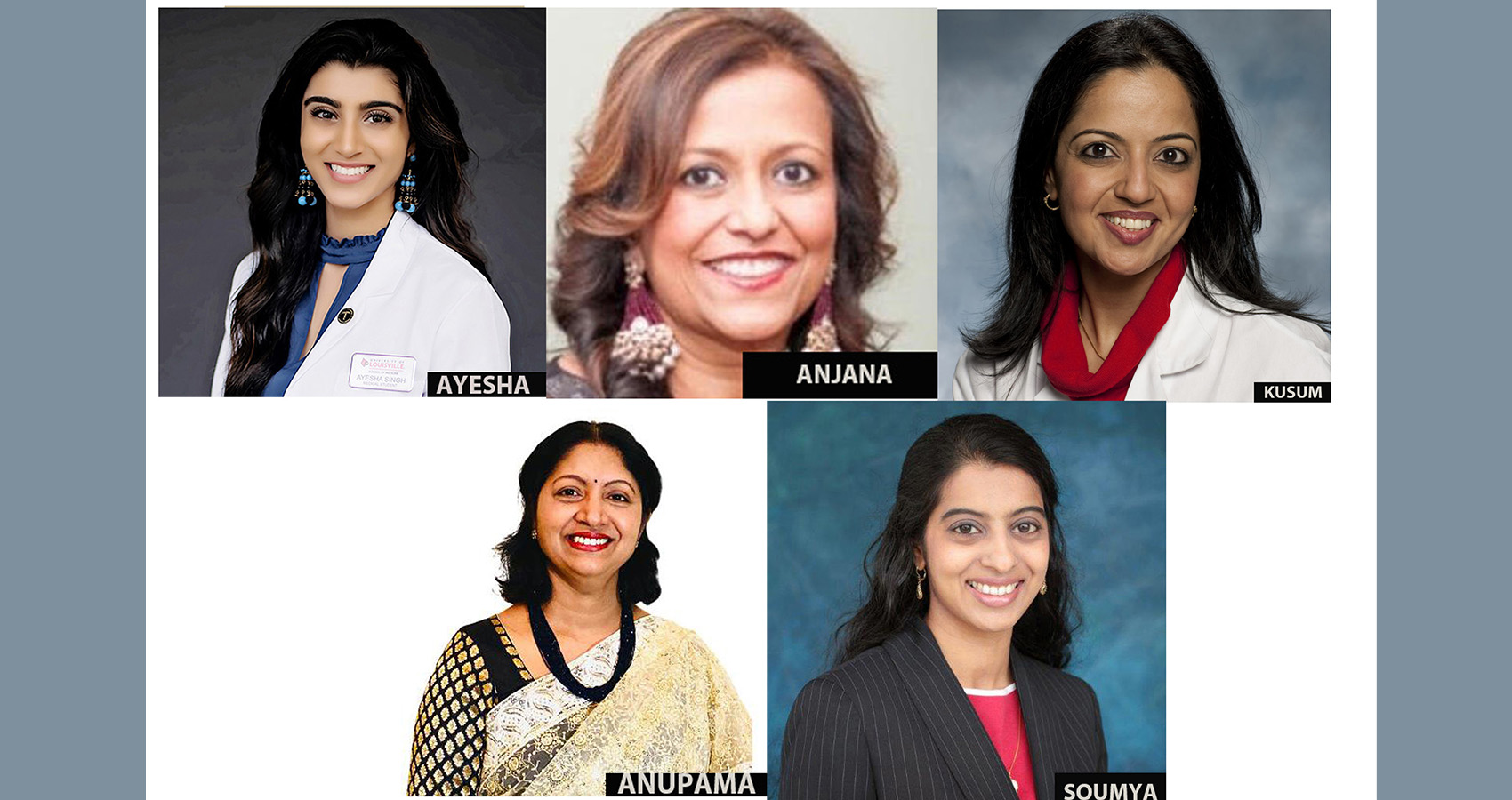
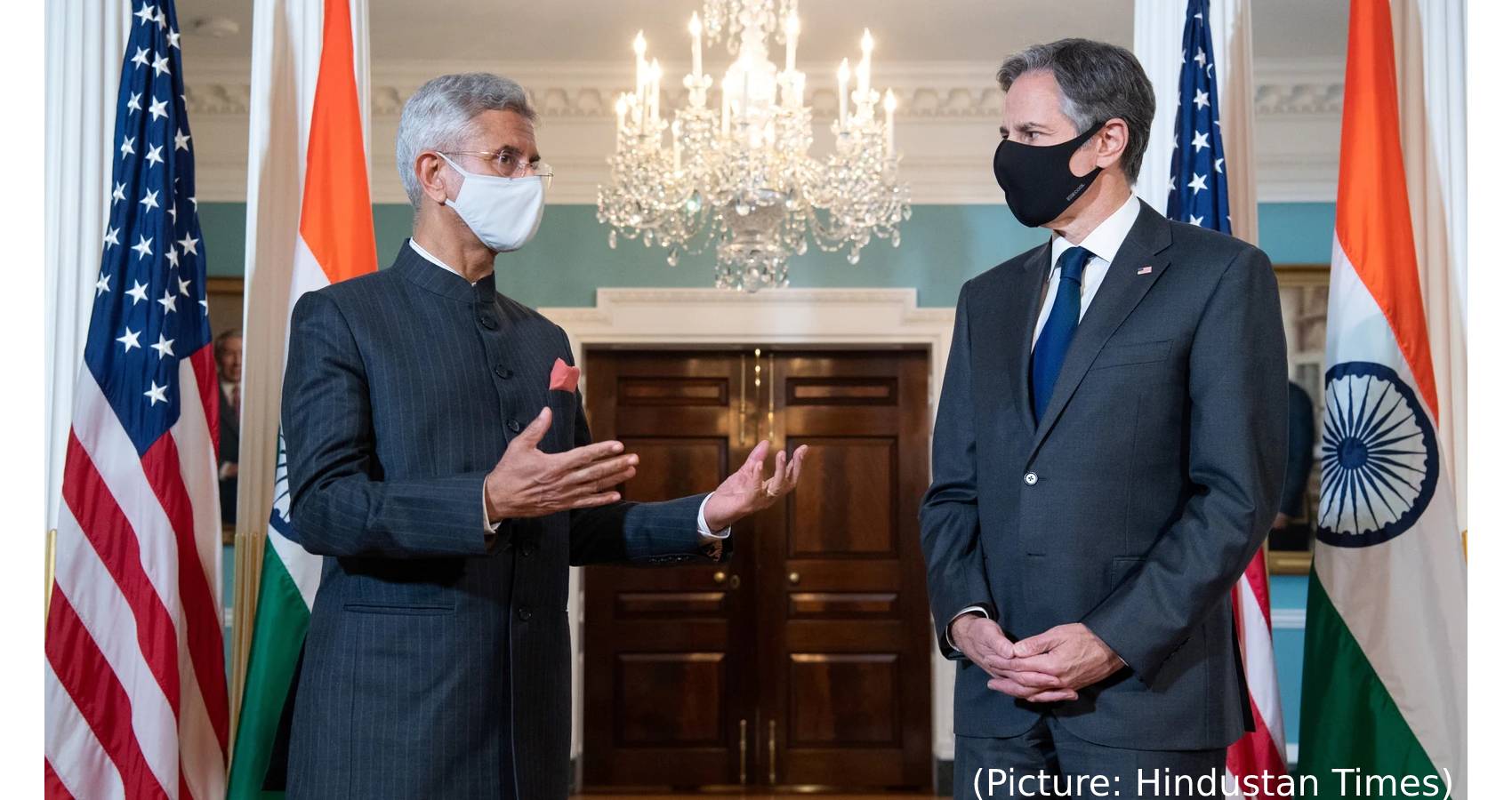
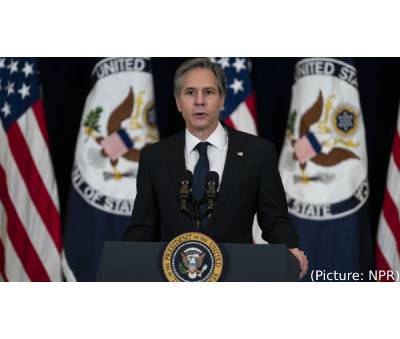 Blinken arrived in India on July 27th to discuss strengthening Indo-Pacific engagement, seen as a counter to China, as well as New Delhi’s recent human rights record and other issues. Blinken’s visit included meetings with Prime Minister Narendra Modi and senior officials on Wednesday, and was held just days after his No. 2 diplomat, Wendy Sherman, was in China for
Blinken arrived in India on July 27th to discuss strengthening Indo-Pacific engagement, seen as a counter to China, as well as New Delhi’s recent human rights record and other issues. Blinken’s visit included meetings with Prime Minister Narendra Modi and senior officials on Wednesday, and was held just days after his No. 2 diplomat, Wendy Sherman, was in China for 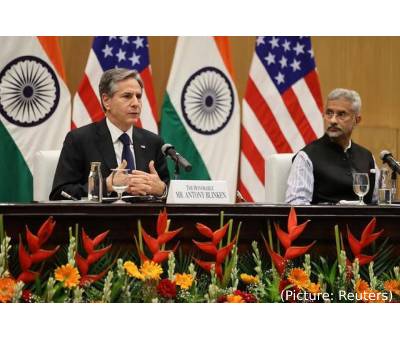 Jaishankar said he made three points to Blinken, including the fact that the “quest for a more perfect union applies as much to the Indian democracy as it does to the American one”.Ahead of Blinken’s visit, India’s
Jaishankar said he made three points to Blinken, including the fact that the “quest for a more perfect union applies as much to the Indian democracy as it does to the American one”.Ahead of Blinken’s visit, India’s 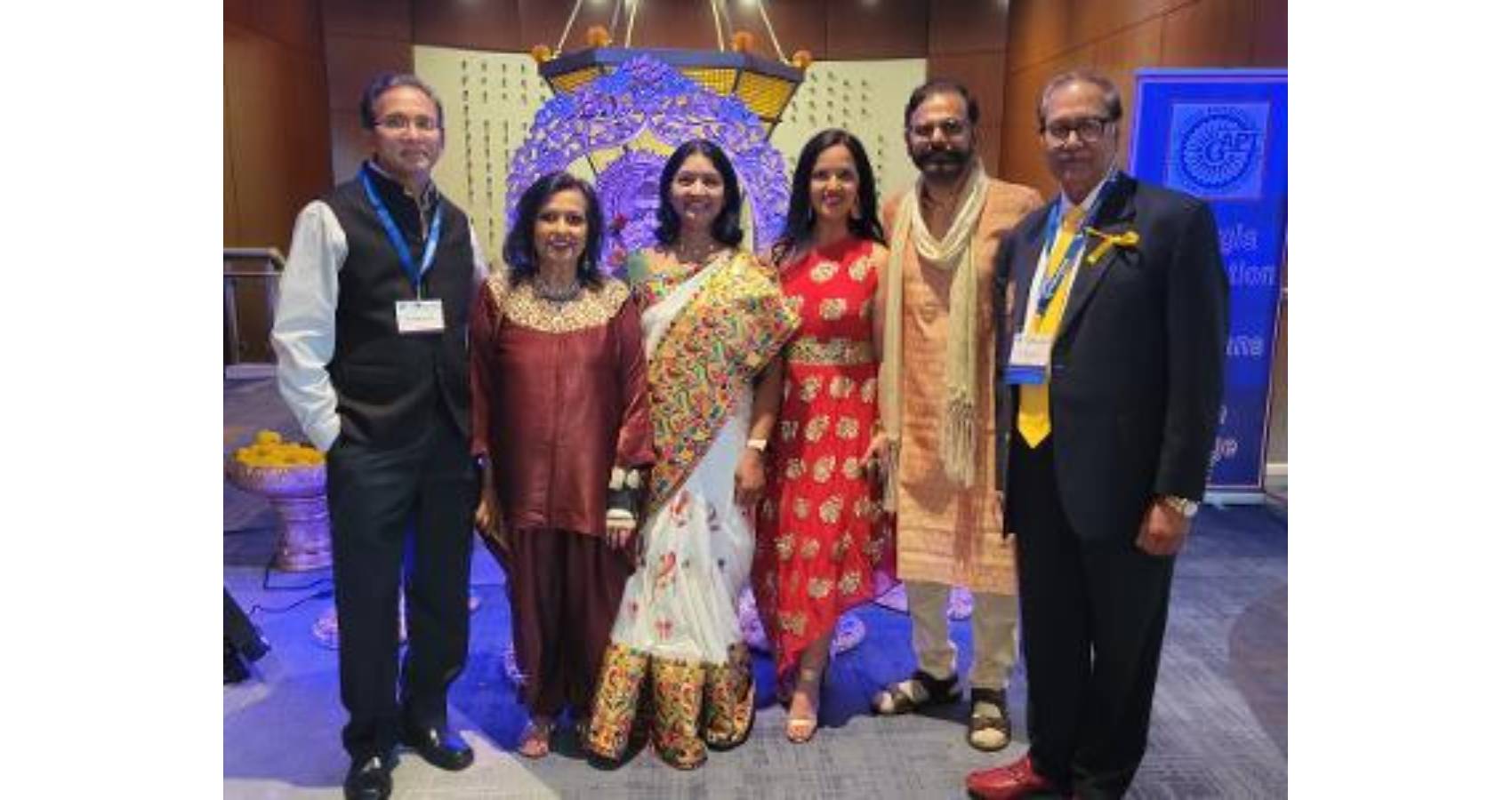
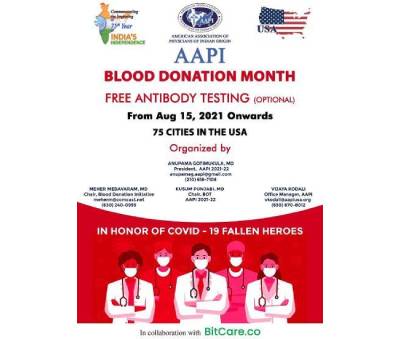 Dr. Kusum Punjabi the Chair of Board of Trustees of AAPI, who is the youngest to date to be holding this position in AAPI’s 40 years long history and serving patients in the Emergency Department, said “As the pandemic has exhausted all the resources, especially the lifesaving and much needed Blood across the nation and the world, AAPI is in the forefront, once again, spreading the message for the need to donate blood and save lives.”
Dr. Kusum Punjabi the Chair of Board of Trustees of AAPI, who is the youngest to date to be holding this position in AAPI’s 40 years long history and serving patients in the Emergency Department, said “As the pandemic has exhausted all the resources, especially the lifesaving and much needed Blood across the nation and the world, AAPI is in the forefront, once again, spreading the message for the need to donate blood and save lives.”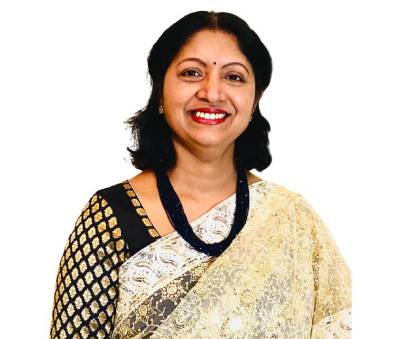 Dr. Krishan Kumar, a pediatric emergency medicine physician in East Meadow, New York and is affiliated with multiple hospitals in the area, quoting studies done on the need and usefulness of Blood said, “Blood donation helps save lives. In fact, every two seconds of every day, someone needs blood. Since blood cannot be manufactured outside the body and has a limited shelf life, the supply must constantly be replenished by generous blood donors.” The growing influence of physicians of Indian heritage is evident, as increasingly physicians of Indian origin hold critical positions in the healthcare, academic, research and administrative positions across the nation. We the physicians of Indian origin are proud of our great achievements and contributions to our motherland, India, our adopted land, the US and in a very significant way to the transformation of the Indo-US relations.
Dr. Krishan Kumar, a pediatric emergency medicine physician in East Meadow, New York and is affiliated with multiple hospitals in the area, quoting studies done on the need and usefulness of Blood said, “Blood donation helps save lives. In fact, every two seconds of every day, someone needs blood. Since blood cannot be manufactured outside the body and has a limited shelf life, the supply must constantly be replenished by generous blood donors.” The growing influence of physicians of Indian heritage is evident, as increasingly physicians of Indian origin hold critical positions in the healthcare, academic, research and administrative positions across the nation. We the physicians of Indian origin are proud of our great achievements and contributions to our motherland, India, our adopted land, the US and in a very significant way to the transformation of the Indo-US relations.
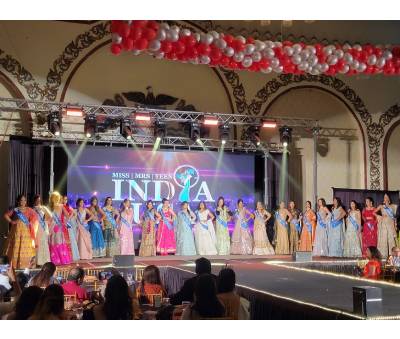 Vaidehi Dongre, 25, a graduate of University of Michigan with International Business as Major, currently employed as Business Development Manager with New Zealand Trade Commission, won the coveted Miss India USA 2021 Pageant on Friday, July 16th at Royal Alberts Palace, Edison, NJ. Organized by the New York based India Festival Committee (IFC) and chaired by Neelam & Dharmatma Saran, this is the longest running Indian pageant outside of India.” I am overwhelmed with the great response this year, said Dharmatma Saran, “with a record number of 61 contestants representing 30 states from across the United States.”
Vaidehi Dongre, 25, a graduate of University of Michigan with International Business as Major, currently employed as Business Development Manager with New Zealand Trade Commission, won the coveted Miss India USA 2021 Pageant on Friday, July 16th at Royal Alberts Palace, Edison, NJ. Organized by the New York based India Festival Committee (IFC) and chaired by Neelam & Dharmatma Saran, this is the longest running Indian pageant outside of India.” I am overwhelmed with the great response this year, said Dharmatma Saran, “with a record number of 61 contestants representing 30 states from across the United States.”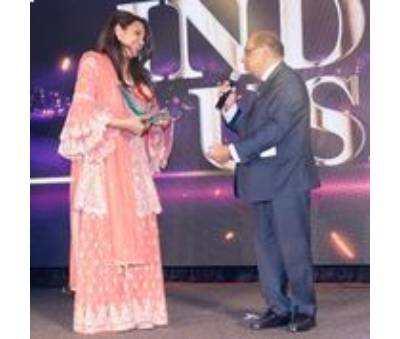 Sonal Dua, 36, from North Carolina won the Mrs Talented Title; Mrs Congeniality was Mohana Namle, 35, from Connecticut. Harshada Patil Fegade, 32 walked away with the Mrs Catwalk Title. Mrs Photogenic was Aparna Chakravarty, 55 from Florida; Mrs Popularity was Swathy Vimalkumar, 32 of Connecticut, and Mrs Chairman Professional was Sheetal Rana, 36 from New York. Amelia Mallareddy from North Carolina was declared Miss Beautiful Face, while Miss Catwalk was Mira Kasari from North Carolina. Rishika Pal of Massachusetts took the
Sonal Dua, 36, from North Carolina won the Mrs Talented Title; Mrs Congeniality was Mohana Namle, 35, from Connecticut. Harshada Patil Fegade, 32 walked away with the Mrs Catwalk Title. Mrs Photogenic was Aparna Chakravarty, 55 from Florida; Mrs Popularity was Swathy Vimalkumar, 32 of Connecticut, and Mrs Chairman Professional was Sheetal Rana, 36 from New York. Amelia Mallareddy from North Carolina was declared Miss Beautiful Face, while Miss Catwalk was Mira Kasari from North Carolina. Rishika Pal of Massachusetts took the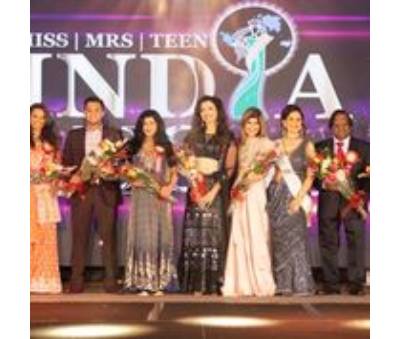 Diana Hayden, a popular Indian actress from Bollywood and Miss World 1997 was the Chief Guest. Shruthi Bekal, Mrs India USA 2019 and Tarna Kaur, Mrs India Worldwide 2019 elegantly emceed the pageant. Kim Kunari, former Miss India USA 2019 and Easha Kode, the first ever Miss Teen India USA were emcees for the pre-pageant event on July 15th. Nishi Bahl was the choreographer assisted by Shilpa Jhurani. This year’s pageant was presented by Yash Pandya and supported by TV Asia and Royal Albert’s Palace. Yash Pandya, Albert Jassani and H R Shah sashed the winners at the pageant.
Diana Hayden, a popular Indian actress from Bollywood and Miss World 1997 was the Chief Guest. Shruthi Bekal, Mrs India USA 2019 and Tarna Kaur, Mrs India Worldwide 2019 elegantly emceed the pageant. Kim Kunari, former Miss India USA 2019 and Easha Kode, the first ever Miss Teen India USA were emcees for the pre-pageant event on July 15th. Nishi Bahl was the choreographer assisted by Shilpa Jhurani. This year’s pageant was presented by Yash Pandya and supported by TV Asia and Royal Albert’s Palace. Yash Pandya, Albert Jassani and H R Shah sashed the winners at the pageant.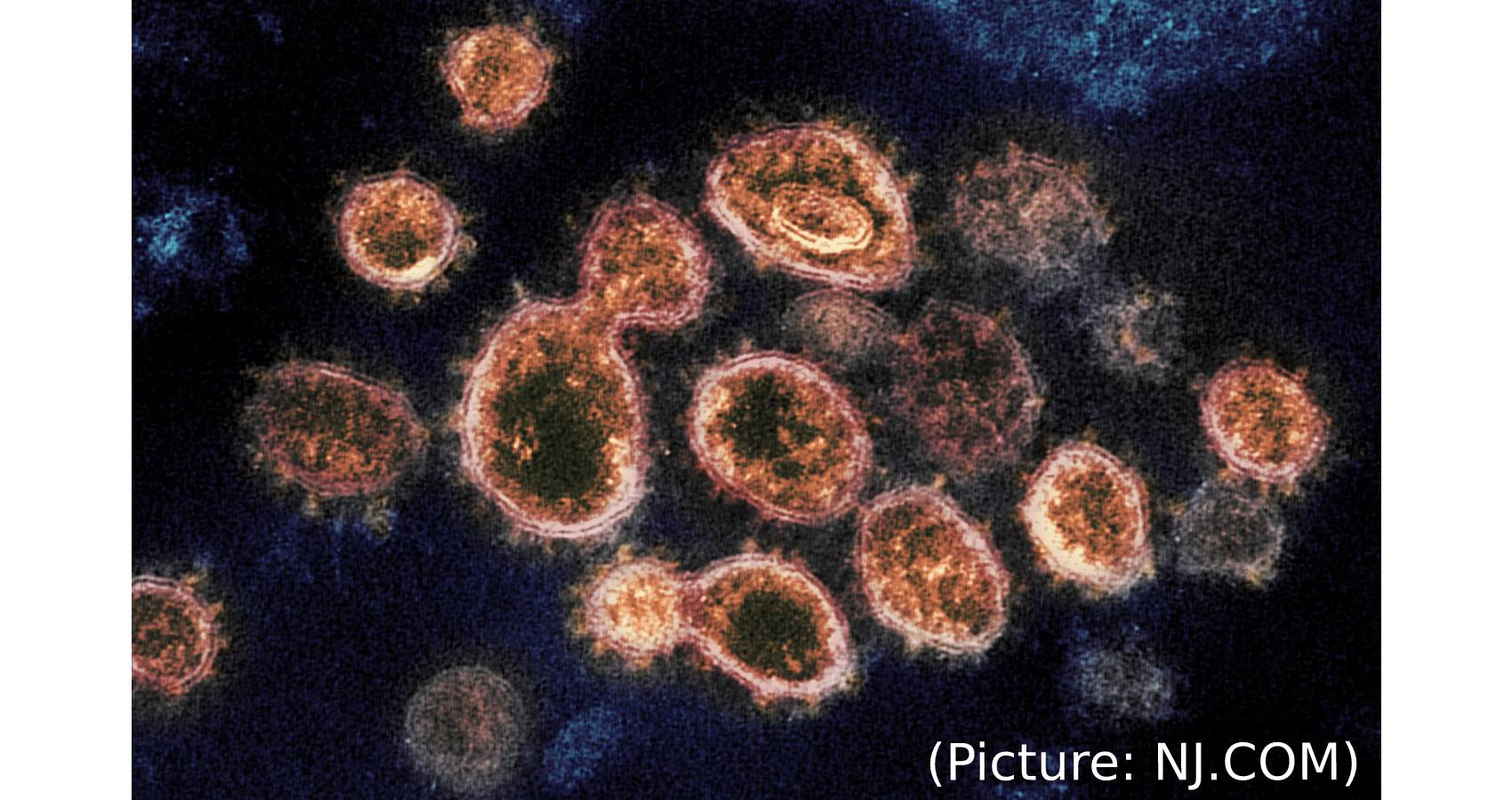
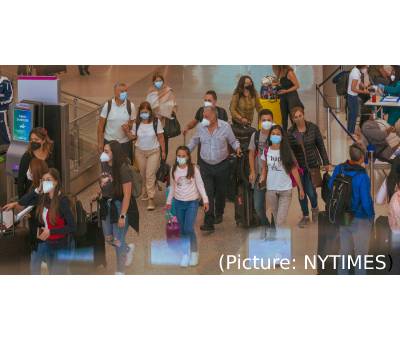 Angela Rasmussen, a virologist and research scientist at the Vaccine and Infectious Disease Organization at the University of Saskatchewan has pointed to a compelling preprint study out of China recently that showed people who were exposed to the Delta variant got sick fast. The study has found that people infected with the Delta variant are shedding way more virus, which could explain why it’s so contagious. Rasmussen says the good news is that it still transmits in the same way as the original strain, so all of those mitigation tools like masking and handwashing and social distancing – all of those still work to block Delta. And the vaccines are still highly effective against this variant.
Angela Rasmussen, a virologist and research scientist at the Vaccine and Infectious Disease Organization at the University of Saskatchewan has pointed to a compelling preprint study out of China recently that showed people who were exposed to the Delta variant got sick fast. The study has found that people infected with the Delta variant are shedding way more virus, which could explain why it’s so contagious. Rasmussen says the good news is that it still transmits in the same way as the original strain, so all of those mitigation tools like masking and handwashing and social distancing – all of those still work to block Delta. And the vaccines are still highly effective against this variant.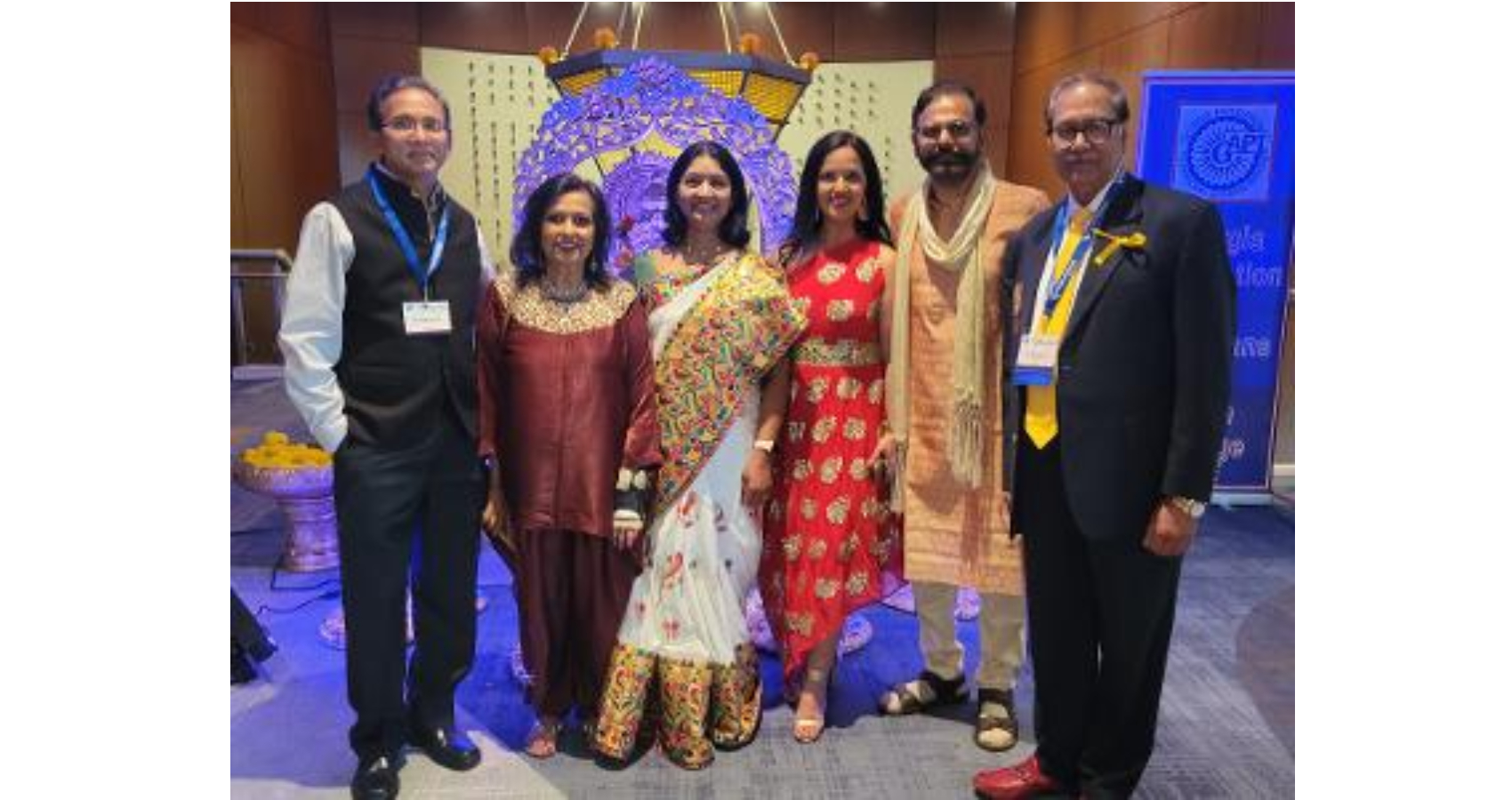
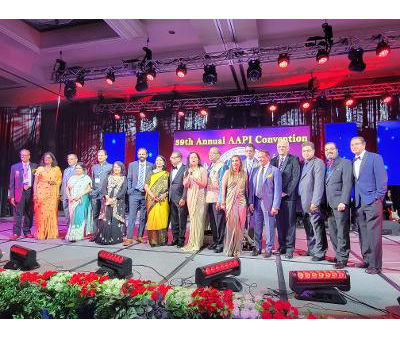
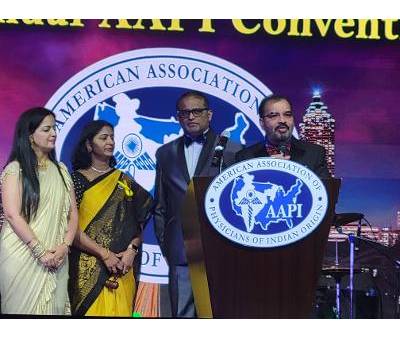 Dr. Kusum Punjabi, a very young and energetic leader of AAPI, assumed office as the Chair of Board of Trustees of AAPI on July 4th. The youngest to date to be holding this position in AAPI’s 40 years long history and the first person to go to medical school in the USA, Dr. Punjabi completed her undergraduate degree from Rutgers University in Biology and Economics and graduated with high honors as a Henry Rutgers Scholar. She, then completed MD/MBA program from Rutgers Robert Wood Johnson Medical School and Rutgers Business School.
Dr. Kusum Punjabi, a very young and energetic leader of AAPI, assumed office as the Chair of Board of Trustees of AAPI on July 4th. The youngest to date to be holding this position in AAPI’s 40 years long history and the first person to go to medical school in the USA, Dr. Punjabi completed her undergraduate degree from Rutgers University in Biology and Economics and graduated with high honors as a Henry Rutgers Scholar. She, then completed MD/MBA program from Rutgers Robert Wood Johnson Medical School and Rutgers Business School.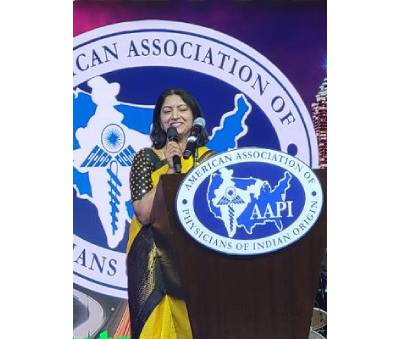 A recipient of several Community Service/Awards, Dr. Kathula wants to “Make AAPI a mainstream organization and work on issues affecting physicians including physician shortage, burnout, and credentialing, while leveraging the strength of 100,000 doctors at legislative level.” Another area, he wants to work is to “Encourage and engage next generation/young physicians in AAPI activities. While working closely with other physician organizations such as AMA.”
A recipient of several Community Service/Awards, Dr. Kathula wants to “Make AAPI a mainstream organization and work on issues affecting physicians including physician shortage, burnout, and credentialing, while leveraging the strength of 100,000 doctors at legislative level.” Another area, he wants to work is to “Encourage and engage next generation/young physicians in AAPI activities. While working closely with other physician organizations such as AMA.”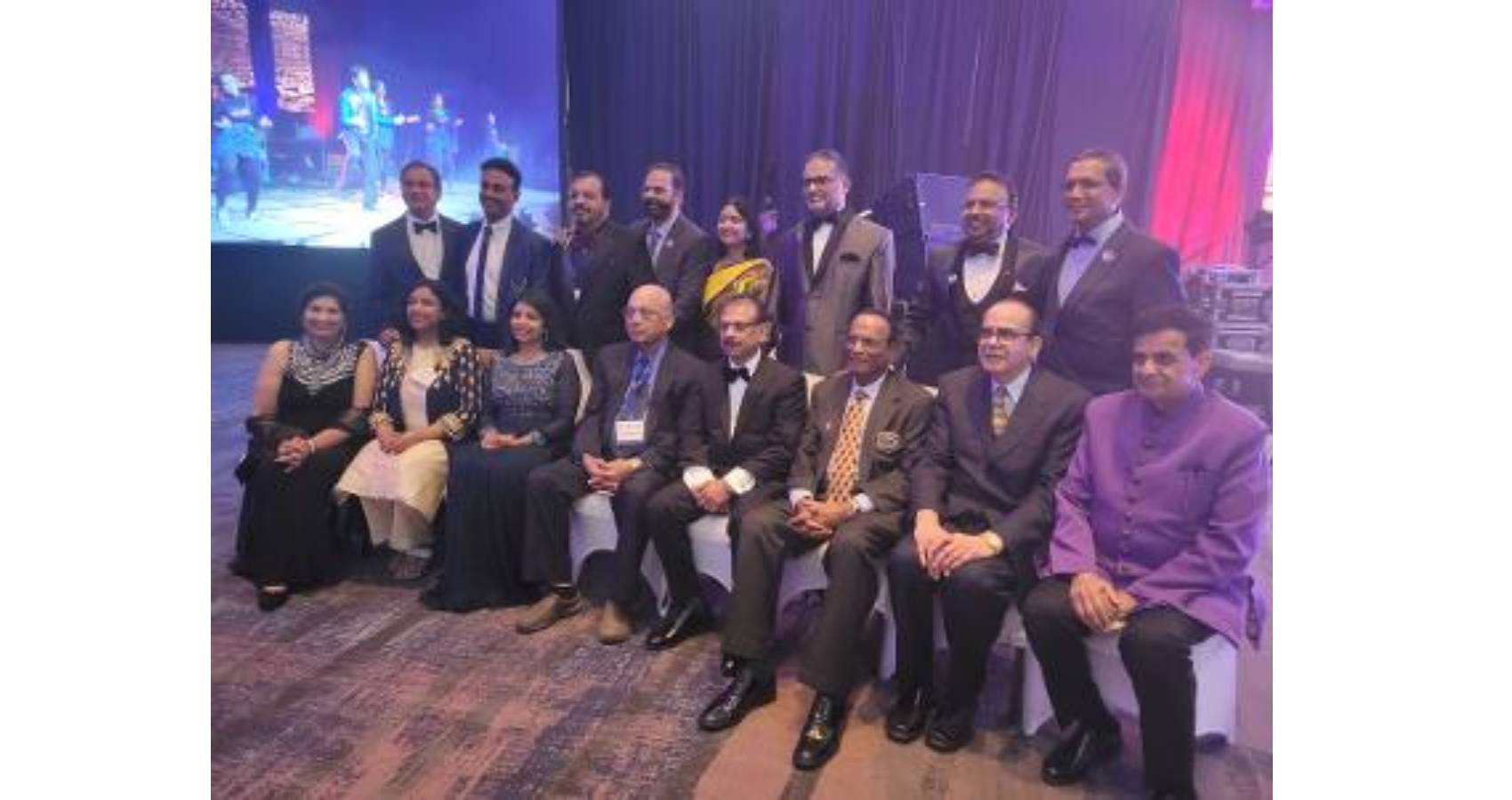
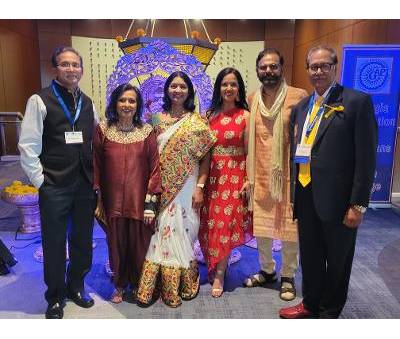 Dr. Jonnalagadda, who had assumed office a year ago during a virtual convention, told the AAPI delegates, “Despite the Covid pandemic and the many challenges AAPI had to face, “I am proud of the many accomplishments under my leadership. I am grateful for the immense and life changing moments, probably the best of my life ever, that came with my association with and leading AAPI.” Describing how his own life has changed over the past years, he said, “Working with many physicians motivated me to be a better physician myself. I understood the higher meaning of being a physician, especially even more now during the COVID pandemic. AAPI has given me so much — networking, advocacy, and education — and I am honored to serve this noble organization. I sincerely appreciate the trust you placed in me as the President of AAPI, and I am deeply committed to continue to work for you.”
Dr. Jonnalagadda, who had assumed office a year ago during a virtual convention, told the AAPI delegates, “Despite the Covid pandemic and the many challenges AAPI had to face, “I am proud of the many accomplishments under my leadership. I am grateful for the immense and life changing moments, probably the best of my life ever, that came with my association with and leading AAPI.” Describing how his own life has changed over the past years, he said, “Working with many physicians motivated me to be a better physician myself. I understood the higher meaning of being a physician, especially even more now during the COVID pandemic. AAPI has given me so much — networking, advocacy, and education — and I am honored to serve this noble organization. I sincerely appreciate the trust you placed in me as the President of AAPI, and I am deeply committed to continue to work for you.”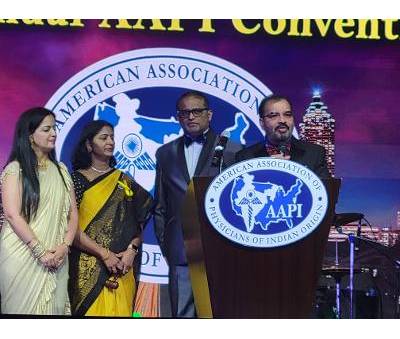 Dr. Jonnalagadda enumerated several programs under his leadership AAPI had undertaken in the past one year. “AAPI and the Charitable Foundation has several programs in India. Under my leadership with the pioneering efforts of Dr. SurenderPurohit, Chairman of AAPI CF, we have been able to strengthen the programs benefitting our motherland, India.” AAPI has been actively involved in community awareness programs like Obesity prevention, sharing medical knowledge at the weekly webinars on team building activities such as the Share a Blanket program, medical education programs such as CPR training, and educating the public and creating awareness on healthcare issues through ZeeTV and ITV Gold, NDTV, BBC, and CNN. Almost all the ethnic publications from coast to coast across the US and several leading publications in India have run timely stories on AAPI‘s several initiatives and programs.
Dr. Jonnalagadda enumerated several programs under his leadership AAPI had undertaken in the past one year. “AAPI and the Charitable Foundation has several programs in India. Under my leadership with the pioneering efforts of Dr. SurenderPurohit, Chairman of AAPI CF, we have been able to strengthen the programs benefitting our motherland, India.” AAPI has been actively involved in community awareness programs like Obesity prevention, sharing medical knowledge at the weekly webinars on team building activities such as the Share a Blanket program, medical education programs such as CPR training, and educating the public and creating awareness on healthcare issues through ZeeTV and ITV Gold, NDTV, BBC, and CNN. Almost all the ethnic publications from coast to coast across the US and several leading publications in India have run timely stories on AAPI‘s several initiatives and programs. AAPI has raised over $ 5 Million towards Covid relief funds for India and has purchased, shipped and coordinated with local authorities the supply and distribution of medical supplies to several parts of India. AAPI has shipped over a thousand Oxygen generators, masks, PPPs and essential supplies, and our pipeline will continue until the pandemic is overcome. As with anyone else, our doctors believe that they can best carry out our service to God through our service to our fellow humans.
AAPI has raised over $ 5 Million towards Covid relief funds for India and has purchased, shipped and coordinated with local authorities the supply and distribution of medical supplies to several parts of India. AAPI has shipped over a thousand Oxygen generators, masks, PPPs and essential supplies, and our pipeline will continue until the pandemic is overcome. As with anyone else, our doctors believe that they can best carry out our service to God through our service to our fellow humans.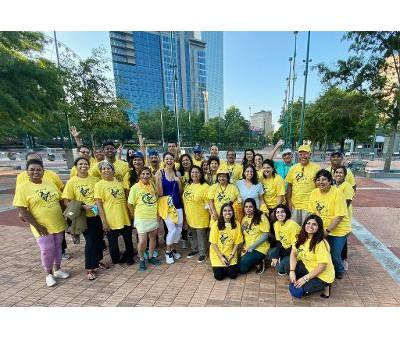 Delivering a spiritual discourse at the Convention, SadhviBhagawatiSaraswati, Author of “Hollywood to the Himalayas” led the AAPI delegates into an experience of peace and serenity. In her keynote address, Sadhviji inspired the participants to engage in the scholarly exchange of medical advances, to develop health policy agendas, and to encourage legislative priorities professionals in the field of medicine. She emphasized the important and critical connection between mind and body by saying “As the Bhagavad Gita reminds us: the mind is the cause of all problems and the mind is, therefore, the solution.” She offered them a “Mantra” which she called, CURED, where C stands for Connections – Connect with your inner self; U stands for Understand that you are a tool in the hands of God; R stands for Reconnect with your inner self day in and day out; E stands for Equanimity – stay balanced in all you do; and, D stands for “Dhanyavad or Devotion” that is being grateful which will lead one to enjoy happiness kin life.
Delivering a spiritual discourse at the Convention, SadhviBhagawatiSaraswati, Author of “Hollywood to the Himalayas” led the AAPI delegates into an experience of peace and serenity. In her keynote address, Sadhviji inspired the participants to engage in the scholarly exchange of medical advances, to develop health policy agendas, and to encourage legislative priorities professionals in the field of medicine. She emphasized the important and critical connection between mind and body by saying “As the Bhagavad Gita reminds us: the mind is the cause of all problems and the mind is, therefore, the solution.” She offered them a “Mantra” which she called, CURED, where C stands for Connections – Connect with your inner self; U stands for Understand that you are a tool in the hands of God; R stands for Reconnect with your inner self day in and day out; E stands for Equanimity – stay balanced in all you do; and, D stands for “Dhanyavad or Devotion” that is being grateful which will lead one to enjoy happiness kin life.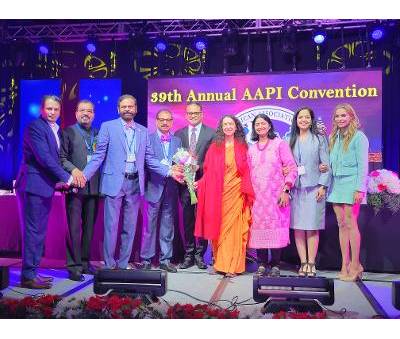 Dr. Sudhir Parikh, CEO of Parikh Media introduced the keynote speaker, AnandibenMafatbhai Patel, an Indian politician serving as the 28th and current Governor of Uttar Pradesh. She also served as Governor of Madhya Pradesh. She has served as the former Chief Minister of Gujarat. She was the first female chief minister of the state, he said. In her virtual address, she congratulated AAPI for organizing the convention and thanked them for their selfless services to India, the US and the humanity. Dr. Bobby Mukkamala, Chair of BOT at American Medical Association shared with nostalgia his long association with AAPI, growing up as a child and now, be leading the largest Medical Association in the US. Aaishwariya A Gulani, Valedictorian from The International Bolles School and a 3rd year Medical Student having held leadership roles from academia as recognized by the United Nations to community service globally as the reigning Miss India USA participated in the Fashion Show.
Dr. Sudhir Parikh, CEO of Parikh Media introduced the keynote speaker, AnandibenMafatbhai Patel, an Indian politician serving as the 28th and current Governor of Uttar Pradesh. She also served as Governor of Madhya Pradesh. She has served as the former Chief Minister of Gujarat. She was the first female chief minister of the state, he said. In her virtual address, she congratulated AAPI for organizing the convention and thanked them for their selfless services to India, the US and the humanity. Dr. Bobby Mukkamala, Chair of BOT at American Medical Association shared with nostalgia his long association with AAPI, growing up as a child and now, be leading the largest Medical Association in the US. Aaishwariya A Gulani, Valedictorian from The International Bolles School and a 3rd year Medical Student having held leadership roles from academia as recognized by the United Nations to community service globally as the reigning Miss India USA participated in the Fashion Show.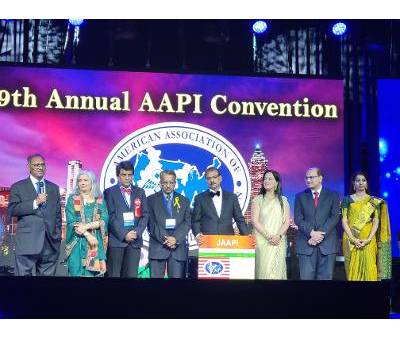 The concluding day of the convention had the usual pomp and show displayed in music and dance by the local organizing committee of the Convention headed by Dr. SreeniGangasani, who and his team were praised for their hardwork, dedication and creative ideas in putting together aan amazing convention in less than three months. “We are delighted to have been able to plan and organize the convention in record time,” said Dr. Gangasani. Calling it a historic convention, the Cardiologist from Atlanta said, “For the first time ever, we had to stop registration as we had reached the required number of participants for the convention, disappointing many who wanted to come and join the annual meet. Thank you for joining the AAPI community as we celebrate the victory of science over calamity while paying tribute to all the fallen healthcare workers including some from AAPI family. We also want to show the world that we can start socializing with precautions once you are vaccinated,” added Dr. Gangasani.
The concluding day of the convention had the usual pomp and show displayed in music and dance by the local organizing committee of the Convention headed by Dr. SreeniGangasani, who and his team were praised for their hardwork, dedication and creative ideas in putting together aan amazing convention in less than three months. “We are delighted to have been able to plan and organize the convention in record time,” said Dr. Gangasani. Calling it a historic convention, the Cardiologist from Atlanta said, “For the first time ever, we had to stop registration as we had reached the required number of participants for the convention, disappointing many who wanted to come and join the annual meet. Thank you for joining the AAPI community as we celebrate the victory of science over calamity while paying tribute to all the fallen healthcare workers including some from AAPI family. We also want to show the world that we can start socializing with precautions once you are vaccinated,” added Dr. Gangasani.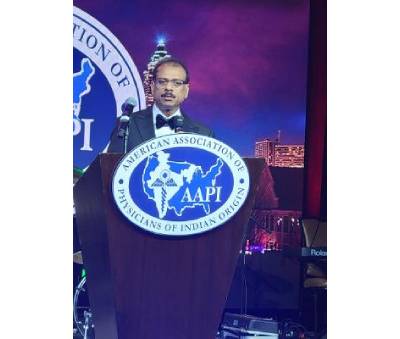 AAPI recognized the current Executive Committee Members, BOT members and several others who have worked hard to make the vision and mission of AAPI come alive. Prominent among them are: Dr. Radhu Agrawal was bestowed with AAPI Lifetime Achievement Award; AAPI Most Distinguished Physician Award was given to Dr. DhanireddyRamasubbareddy; AAPI Most Distinguished Service Award was given to Dr. Suresh Gupta; AAPI Most Distinguished YPS Award went to Dr. Purvi Parikh; and, AAPI Most Distinguished Community Service was bestowed on Dr. Sujatha Reddy. Dr. Raghu Lolabhattu, Convention Vice Chair shared with the delegates about how in a matter of less than three months the Atlanta Chapter has put together a fabulous convention. He later on called on stage every member of the convention committee, while Dr. Lonnalagadda and Dr. Gangasani recognized them with a plaque. The past Presidents of were called on state on the 2nd night’s gala and were recognized for their leadership and continued guidance.
AAPI recognized the current Executive Committee Members, BOT members and several others who have worked hard to make the vision and mission of AAPI come alive. Prominent among them are: Dr. Radhu Agrawal was bestowed with AAPI Lifetime Achievement Award; AAPI Most Distinguished Physician Award was given to Dr. DhanireddyRamasubbareddy; AAPI Most Distinguished Service Award was given to Dr. Suresh Gupta; AAPI Most Distinguished YPS Award went to Dr. Purvi Parikh; and, AAPI Most Distinguished Community Service was bestowed on Dr. Sujatha Reddy. Dr. Raghu Lolabhattu, Convention Vice Chair shared with the delegates about how in a matter of less than three months the Atlanta Chapter has put together a fabulous convention. He later on called on stage every member of the convention committee, while Dr. Lonnalagadda and Dr. Gangasani recognized them with a plaque. The past Presidents of were called on state on the 2nd night’s gala and were recognized for their leadership and continued guidance.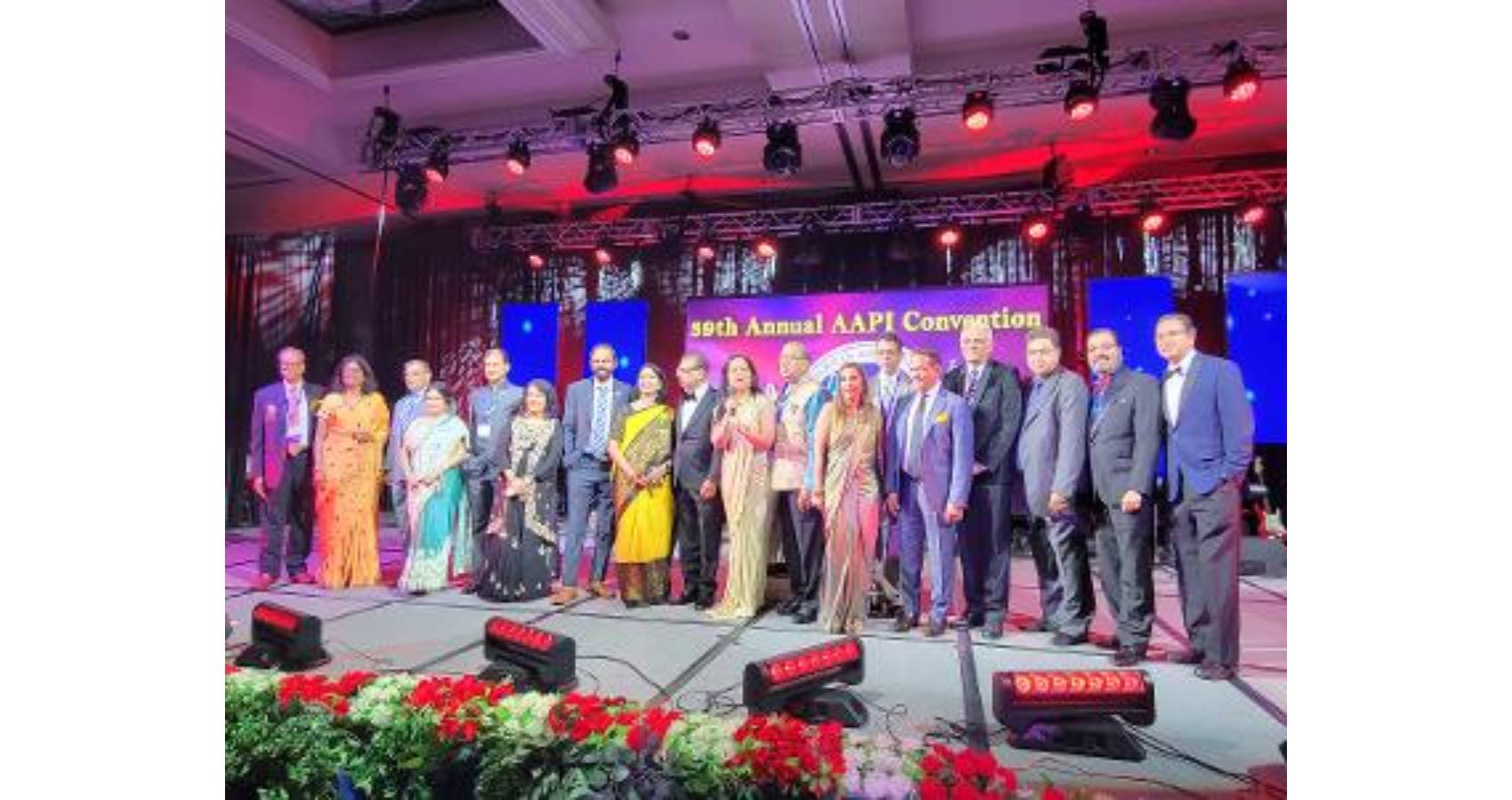
 In her inaugural address after she was administered the oath of Office, Dr. Gotimukula reminded the AAPI members about our origin. “We came to the US pursuing the American Dream. Through hard work and a bit of luck, most of us achieved that dream and have become successful and caring doctors who play a crucial role in the American healthcare system. We serve patients. Raise money for local causes. Contribute to our education system and improve the lives of millions of Americans. We joined AAPI to socialize and meet others like us and in that journey learned that through this wonderful organization, we were able to make a bigger impact with the many academic, philanthropic and social initiatives.”
In her inaugural address after she was administered the oath of Office, Dr. Gotimukula reminded the AAPI members about our origin. “We came to the US pursuing the American Dream. Through hard work and a bit of luck, most of us achieved that dream and have become successful and caring doctors who play a crucial role in the American healthcare system. We serve patients. Raise money for local causes. Contribute to our education system and improve the lives of millions of Americans. We joined AAPI to socialize and meet others like us and in that journey learned that through this wonderful organization, we were able to make a bigger impact with the many academic, philanthropic and social initiatives.”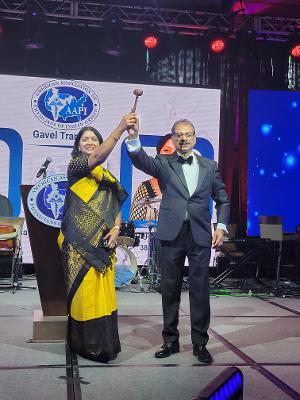 A resident of San Antonio, TX, Dr.Gotimukula is a board certified Pediatric Anesthesiologist, practicing since 2007, is affiliated with Christus Santa Rosa, Baptist and Methodist Healthcare systems in San Antonio. After graduating with distinction from Kakatiya Medical College, NTR University of Health Sciences in India, she did Residency at University of Miami & University of Illinois, and Fellowship in Pediatric Anesthesiology at University of Michigan.
A resident of San Antonio, TX, Dr.Gotimukula is a board certified Pediatric Anesthesiologist, practicing since 2007, is affiliated with Christus Santa Rosa, Baptist and Methodist Healthcare systems in San Antonio. After graduating with distinction from Kakatiya Medical College, NTR University of Health Sciences in India, she did Residency at University of Miami & University of Illinois, and Fellowship in Pediatric Anesthesiology at University of Michigan.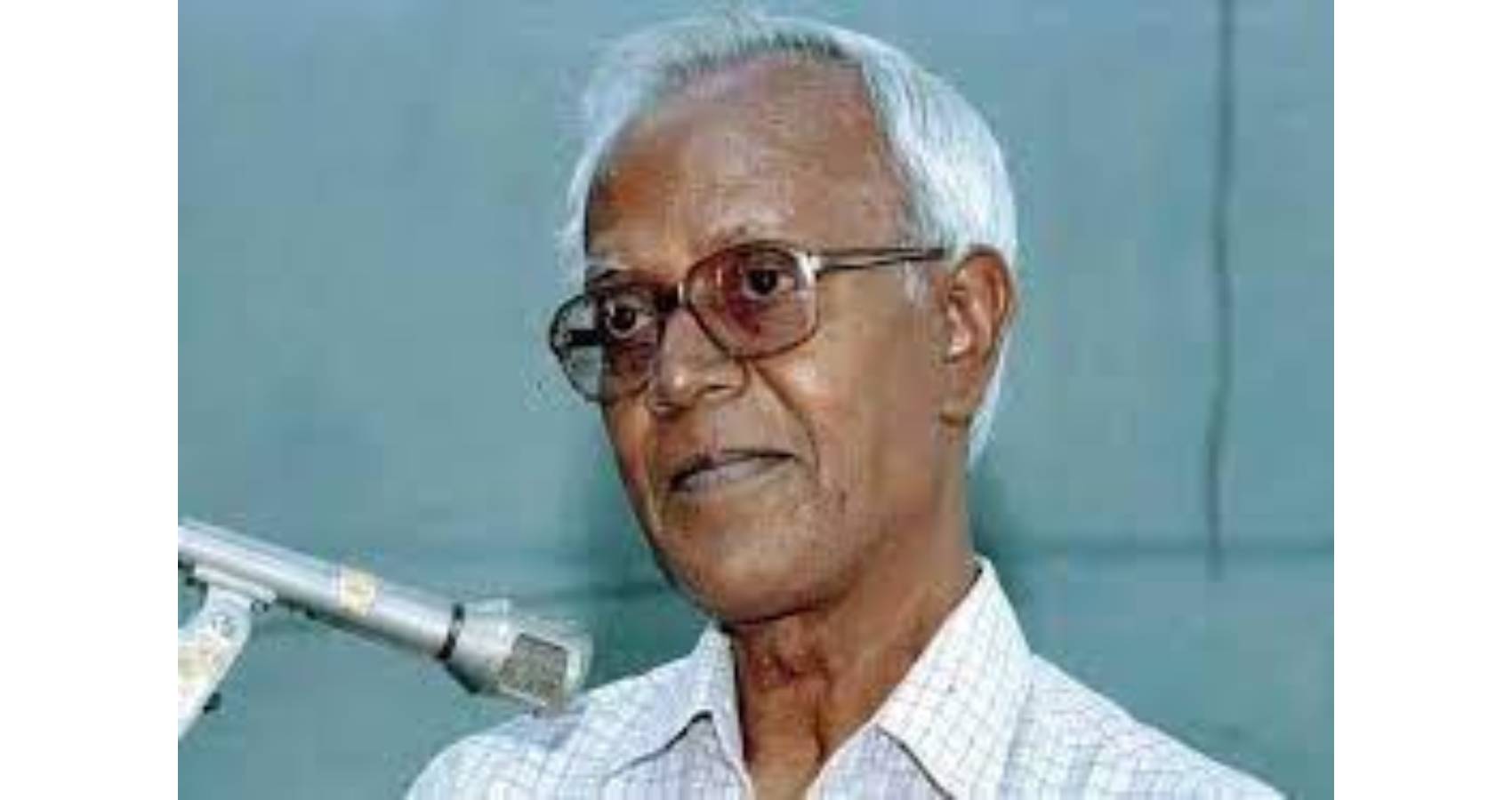
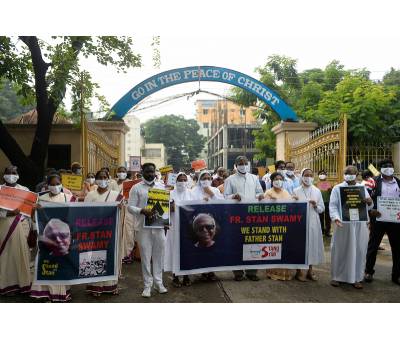 Dr. Stanislaus D’Souza SJ, the Jesuit Provincial of India, said: “With a deep sense of pain, anguish and hope we have surrendered Fr Stan Swamy, aged 84, to his eternal abode.”The funeral service and Mass was led by Father Arun De Souza, Jesuit provincial of
Dr. Stanislaus D’Souza SJ, the Jesuit Provincial of India, said: “With a deep sense of pain, anguish and hope we have surrendered Fr Stan Swamy, aged 84, to his eternal abode.”The funeral service and Mass was led by Father Arun De Souza, Jesuit provincial of 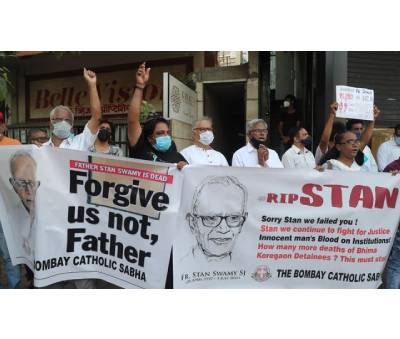 Archbishop Felix Toppo of Ranchi and Auxiliary Bishop Theodore Mascarenhas. “The ‘caged parrot’ now sings in heaven but its blood is on our hands,” they wrote, “May the hand of God intervene to bring justice to all innocent victims of insensitivity, vindictiveness and injustice. We have lost Fr. Stan Swamy but we still hope in the God of justice,” they added.The Jamshedpur Jesuit Province, to which Father Swamy belonged, also expressed “a deep sense of pain, anguish and hope” at the death of the “servant in mission of justice and reconciliation”. In a Facebook post, Father Jerome Cutinha noted that the “author of life” had given Father Swamy “a mission to work among the Advasis [indigenous], Dalits [downtrodden] and other marginalized communities so that the poor may have life and life to the full, with dignity and honour”. “The Society of Jesus [Jesuits], at this moment, recommits itself to take forward the legacy of Fr. Stan in hits mission of justice and reconciliation,” Father Cutinha wrote.
Archbishop Felix Toppo of Ranchi and Auxiliary Bishop Theodore Mascarenhas. “The ‘caged parrot’ now sings in heaven but its blood is on our hands,” they wrote, “May the hand of God intervene to bring justice to all innocent victims of insensitivity, vindictiveness and injustice. We have lost Fr. Stan Swamy but we still hope in the God of justice,” they added.The Jamshedpur Jesuit Province, to which Father Swamy belonged, also expressed “a deep sense of pain, anguish and hope” at the death of the “servant in mission of justice and reconciliation”. In a Facebook post, Father Jerome Cutinha noted that the “author of life” had given Father Swamy “a mission to work among the Advasis [indigenous], Dalits [downtrodden] and other marginalized communities so that the poor may have life and life to the full, with dignity and honour”. “The Society of Jesus [Jesuits], at this moment, recommits itself to take forward the legacy of Fr. Stan in hits mission of justice and reconciliation,” Father Cutinha wrote.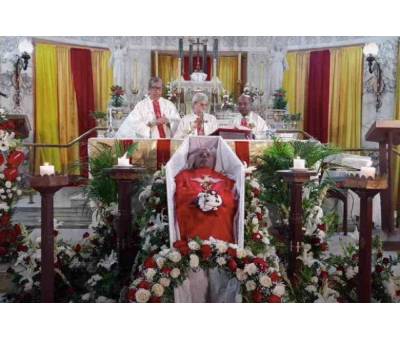 India’s caste system was officially abolished in 1950, but the 2,000-year-old social hierarchy imposed on people by birth still exists in many aspects of life. The caste system categorizes Hindus at birth, defining their place in society, what jobs they can do and who they can marry. In October last year, Swamy was arrested and charged under the country’s anti-terrorism laws, which critics have described as draconian.
India’s caste system was officially abolished in 1950, but the 2,000-year-old social hierarchy imposed on people by birth still exists in many aspects of life. The caste system categorizes Hindus at birth, defining their place in society, what jobs they can do and who they can marry. In October last year, Swamy was arrested and charged under the country’s anti-terrorism laws, which critics have described as draconian.

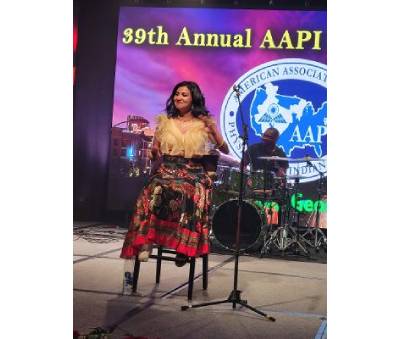 Dr. Smitha Lodha, widow of Dr. Ajay Lodha addressed the AAPI members, thanking them for their support as the late President of AAPI suffered Covid related complications and succumbed to the deadly virus. She praised AAPI and the medical fraternity for their courage and selfless service to bring health and well being to millions across the US and around the world.
Dr. Smitha Lodha, widow of Dr. Ajay Lodha addressed the AAPI members, thanking them for their support as the late President of AAPI suffered Covid related complications and succumbed to the deadly virus. She praised AAPI and the medical fraternity for their courage and selfless service to bring health and well being to millions across the US and around the world.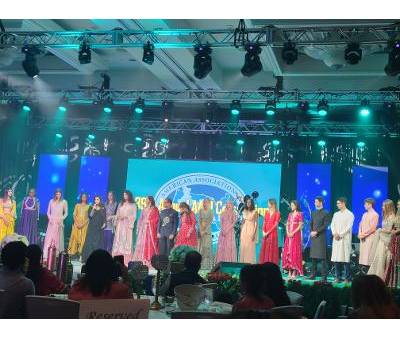 After inaugurating the Convention with traditional prayers and blessings by Hindu Priests, Congressman Buddy Carter, representing the 1st District in Georgia, said, “If there is anything that the COVID-19 pandemic laid bare it is that our country is too dependent on foreign sources of critical pharmaceutical and medical supplies. I reintroduced bipartisan, bicameral legislation to retake control of America’s health care supply chain. For America’s national security, the legislation incentivizes the domestic manufacturing of drugs and other medical supplies to make the U.S. supply chain less dependent on foreign countries like China.” The only pharmacist in the US Congress, Rep. Carter referred to how the middlemen hike up the prize of drugs by upto 47% in the US, and urged the AAPI fraternity to advocate for more patient-centered care.
After inaugurating the Convention with traditional prayers and blessings by Hindu Priests, Congressman Buddy Carter, representing the 1st District in Georgia, said, “If there is anything that the COVID-19 pandemic laid bare it is that our country is too dependent on foreign sources of critical pharmaceutical and medical supplies. I reintroduced bipartisan, bicameral legislation to retake control of America’s health care supply chain. For America’s national security, the legislation incentivizes the domestic manufacturing of drugs and other medical supplies to make the U.S. supply chain less dependent on foreign countries like China.” The only pharmacist in the US Congress, Rep. Carter referred to how the middlemen hike up the prize of drugs by upto 47% in the US, and urged the AAPI fraternity to advocate for more patient-centered care.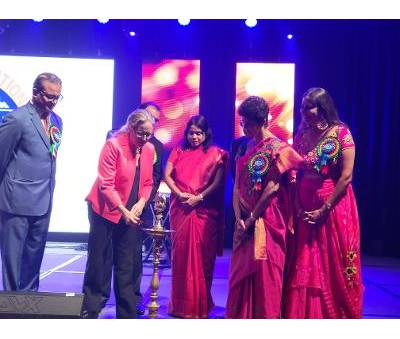 Dr. Kulkarni spoke about the many programs and plans offered by the Government of India to alleviate the sufferings of the people of India during the pandemic. Dr. Kulkarni stressed the importance of Indo-US Strategic Alliance, especially in the health sector, while pointing out India’s contributions providing the world with quality drugs for cheaper prizes.
Dr. Kulkarni spoke about the many programs and plans offered by the Government of India to alleviate the sufferings of the people of India during the pandemic. Dr. Kulkarni stressed the importance of Indo-US Strategic Alliance, especially in the health sector, while pointing out India’s contributions providing the world with quality drugs for cheaper prizes.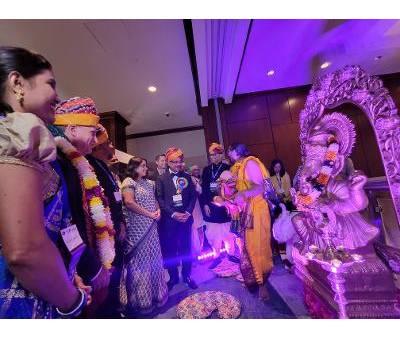
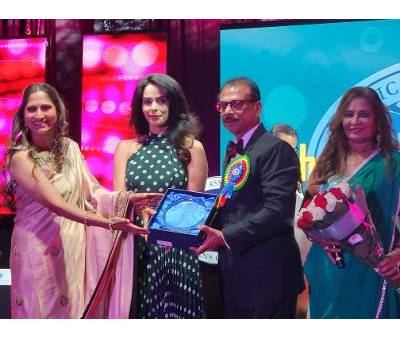 The Women’s Forum led by Drs. Anjana Samadhar, Uma Jonnalagadda, and Udaya Shivangi featured eminent women leaders, including Keisha Lance Bottoms, Mayor of Atlanta, Dr. Swati Kulkarni, India’s Consular General in Atlanta, Prof. Amita Sehgal, Professor of Neuroscience at UPENN, Dr. Nahid Bhadella, Director of Center for Emerging Infectious Diseases Policy & Reasearch; and, Dr. Mona Khanna, Emmy Award Winning Journalist.
The Women’s Forum led by Drs. Anjana Samadhar, Uma Jonnalagadda, and Udaya Shivangi featured eminent women leaders, including Keisha Lance Bottoms, Mayor of Atlanta, Dr. Swati Kulkarni, India’s Consular General in Atlanta, Prof. Amita Sehgal, Professor of Neuroscience at UPENN, Dr. Nahid Bhadella, Director of Center for Emerging Infectious Diseases Policy & Reasearch; and, Dr. Mona Khanna, Emmy Award Winning Journalist.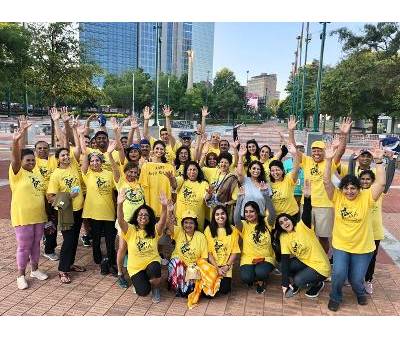 Her advice for younger generation if they want to follow her, Sherawat said, “If you want to be an actress, I would say, start with your dance training and relaxing training.”
Her advice for younger generation if they want to follow her, Sherawat said, “If you want to be an actress, I would say, start with your dance training and relaxing training.”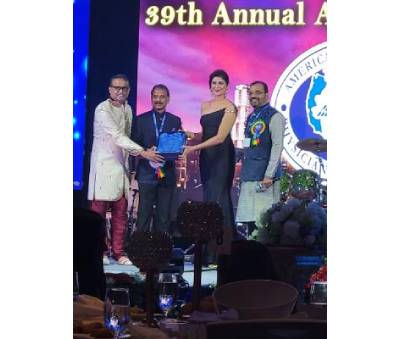 During the nearly 2 hours long live performance. She showcased the influences of her Indian-American heritage to create music that is refreshingly unique and contemporary, seamlessly fusing together the intricacies of Indian music with elements of electronic and hip-hop for an undeniably catchy sound.
During the nearly 2 hours long live performance. She showcased the influences of her Indian-American heritage to create music that is refreshingly unique and contemporary, seamlessly fusing together the intricacies of Indian music with elements of electronic and hip-hop for an undeniably catchy sound.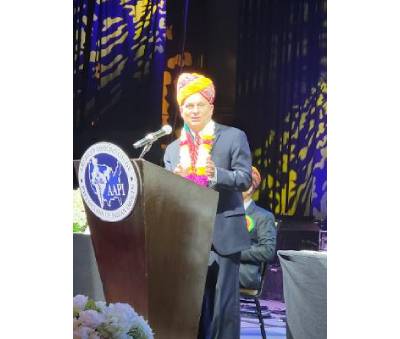 Known to be a leading ethnic medical organization that represents nearly 100,000 physicians and fellows of Indian Origin in the US, and being their voice and providing a forum to its members to collectively work together to meet their diverse needs, AAPI members are proud to contribute to the wellbeing of their motherland India and their adopted land, the United States. The convention is forum to network, share knowledge and thoughts, and thus, enrich one another, and rededicate ourselves for the health and wellbeing of all peoples of the world. For more details, please visit:
Known to be a leading ethnic medical organization that represents nearly 100,000 physicians and fellows of Indian Origin in the US, and being their voice and providing a forum to its members to collectively work together to meet their diverse needs, AAPI members are proud to contribute to the wellbeing of their motherland India and their adopted land, the United States. The convention is forum to network, share knowledge and thoughts, and thus, enrich one another, and rededicate ourselves for the health and wellbeing of all peoples of the world. For more details, please visit: 
 At the meetings with the US leaders, Jaishankar discussed vaccine cooperation, contemporary security challenges, support for efficient and robust supply chain, among others. While there was no readout after the meetings, sources said that vaccine cooperation was one of the key areas of conversation between the two sides.Jaishankar’s in-person meetings come days after US President Joe Biden announced that the US will begin shipping 20 million doses of Pfizer-BioNTech, Moderna, and Johnson & Johnson’s Covid-19 vaccines to unspecified needy countries by June-end, in addition to 60 million shots of AstraZeneca.
At the meetings with the US leaders, Jaishankar discussed vaccine cooperation, contemporary security challenges, support for efficient and robust supply chain, among others. While there was no readout after the meetings, sources said that vaccine cooperation was one of the key areas of conversation between the two sides.Jaishankar’s in-person meetings come days after US President Joe Biden announced that the US will begin shipping 20 million doses of Pfizer-BioNTech, Moderna, and Johnson & Johnson’s Covid-19 vaccines to unspecified needy countries by June-end, in addition to 60 million shots of AstraZeneca. “Our people-to-people ties and our values are the foundation of the US-India partnership and will help us end the pandemic, lead on climate, and support a free and open Indo-Pacific,” Sullivan wrote on Twitter after the meeting. After his meeting with US Trade Representative Katherine Tai, Jaishankar tweeted: “Welcomed her positive stance on IPR (Intellectual Property Rights) issues & support for efficient and robust supply chains.”Jaishankar said that he had a “warm meeting” with US Defense Secretary Lloyd Austin, during which they discussed further developing strategic and defense partnership between the two countries and exchanged views on “contemporary security challenges”.
“Our people-to-people ties and our values are the foundation of the US-India partnership and will help us end the pandemic, lead on climate, and support a free and open Indo-Pacific,” Sullivan wrote on Twitter after the meeting. After his meeting with US Trade Representative Katherine Tai, Jaishankar tweeted: “Welcomed her positive stance on IPR (Intellectual Property Rights) issues & support for efficient and robust supply chains.”Jaishankar said that he had a “warm meeting” with US Defense Secretary Lloyd Austin, during which they discussed further developing strategic and defense partnership between the two countries and exchanged views on “contemporary security challenges”.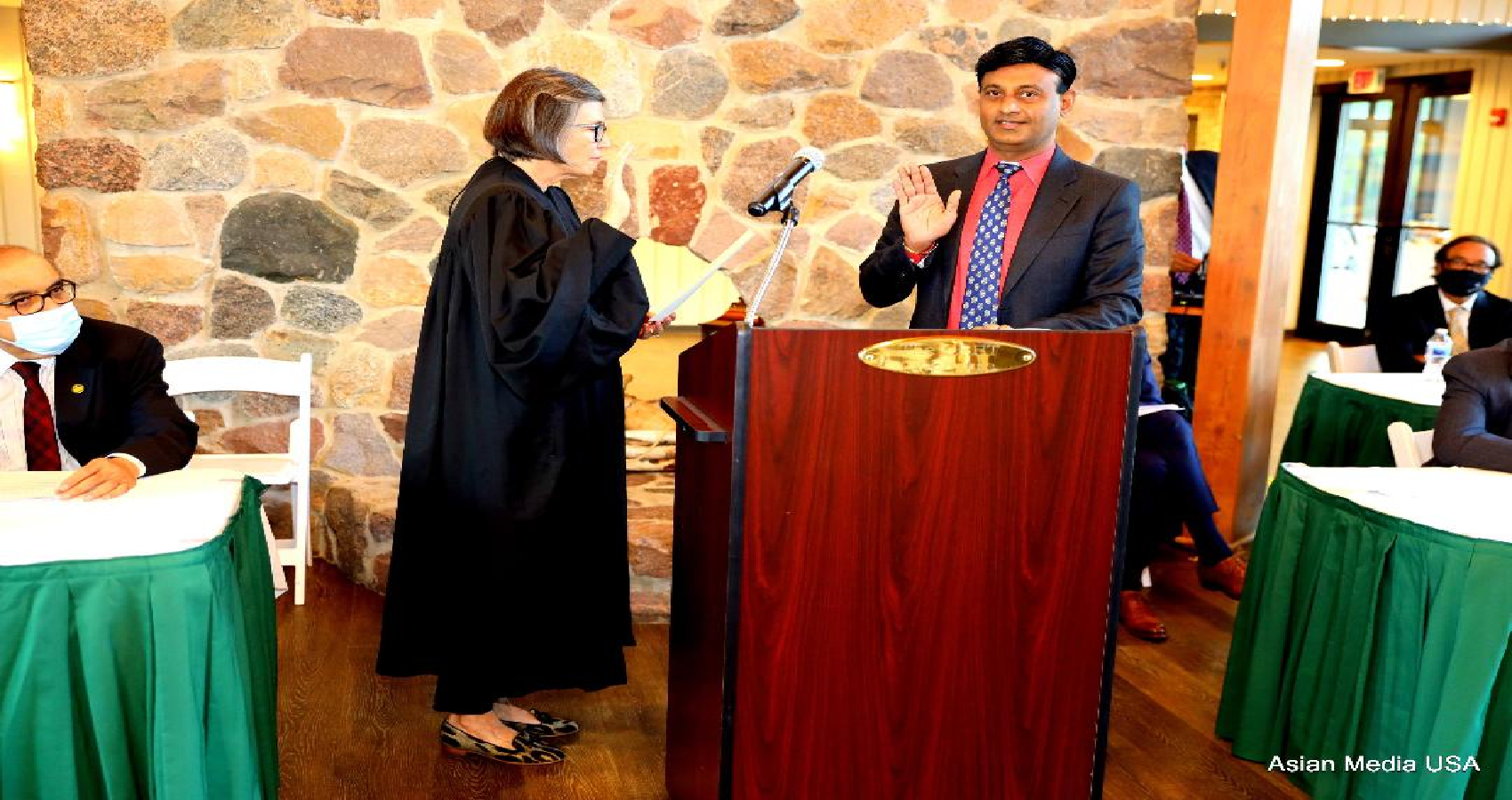
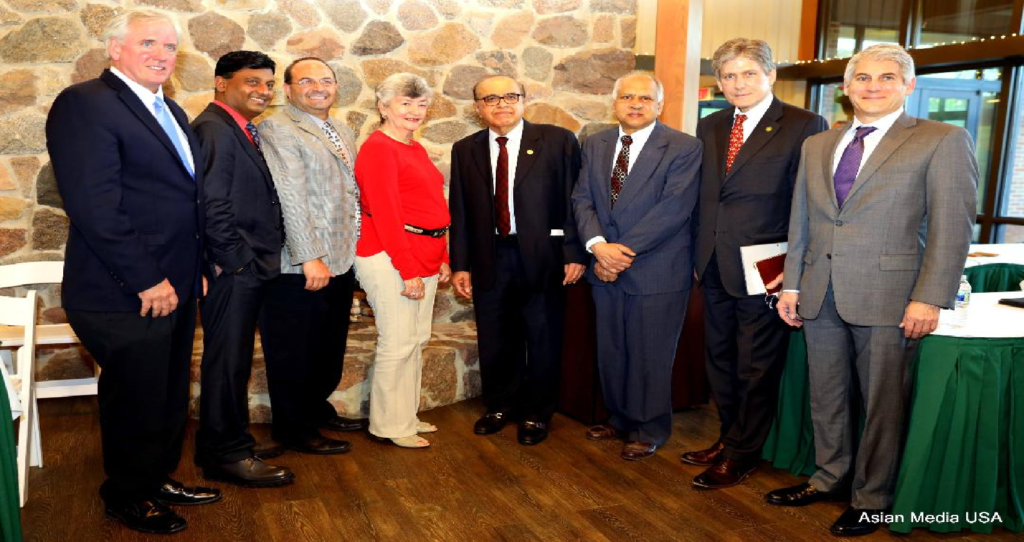 In his acceptance speech, Dr. Reddy said, “As a practicing physician, I will use my training and experiences to ensure that appropriate and effective health policies are approved by the board and implemented by our village staff. There are many expert doctors and medical professionals in our community. I will find ways to engage them through informal work groups or more formal committees if needed to ensure the safety of our residents.”
In his acceptance speech, Dr. Reddy said, “As a practicing physician, I will use my training and experiences to ensure that appropriate and effective health policies are approved by the board and implemented by our village staff. There are many expert doctors and medical professionals in our community. I will find ways to engage them through informal work groups or more formal committees if needed to ensure the safety of our residents.”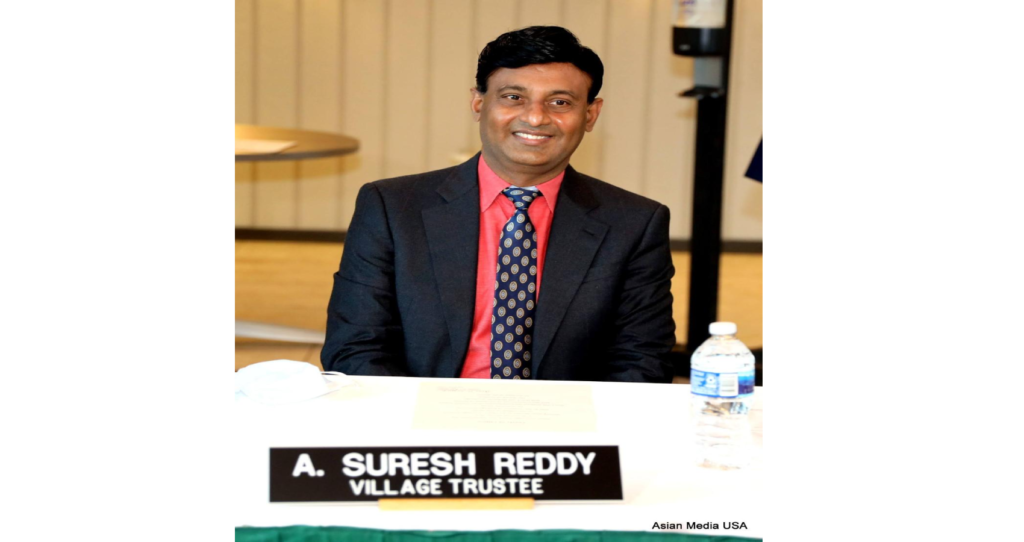 Having a population of nearly 10,000 people, the city of Oak Brook is located 15 miles west of the
Having a population of nearly 10,000 people, the city of Oak Brook is located 15 miles west of the 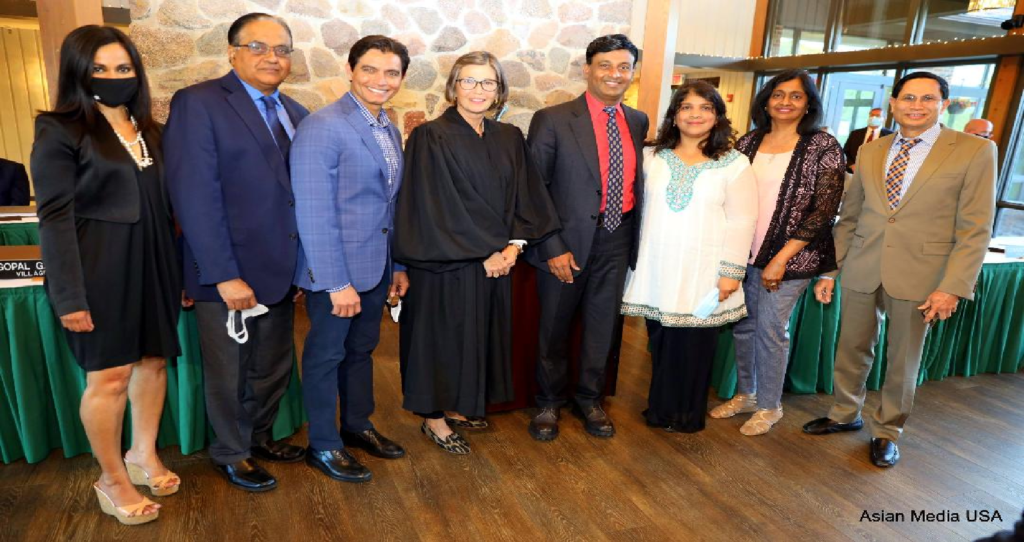 A dynamic leader, Dr. Reddy has devoted a greater part of his life to numerous initiates within the United States , in addition to serving his people back in India, As part of his community service, Dr. Reddy has facilitated and organized numerous health camps and workshops, with special emphasis on CPR training , obesity prevention in conjunction with Chicago Medical Society.
A dynamic leader, Dr. Reddy has devoted a greater part of his life to numerous initiates within the United States , in addition to serving his people back in India, As part of his community service, Dr. Reddy has facilitated and organized numerous health camps and workshops, with special emphasis on CPR training , obesity prevention in conjunction with Chicago Medical Society.
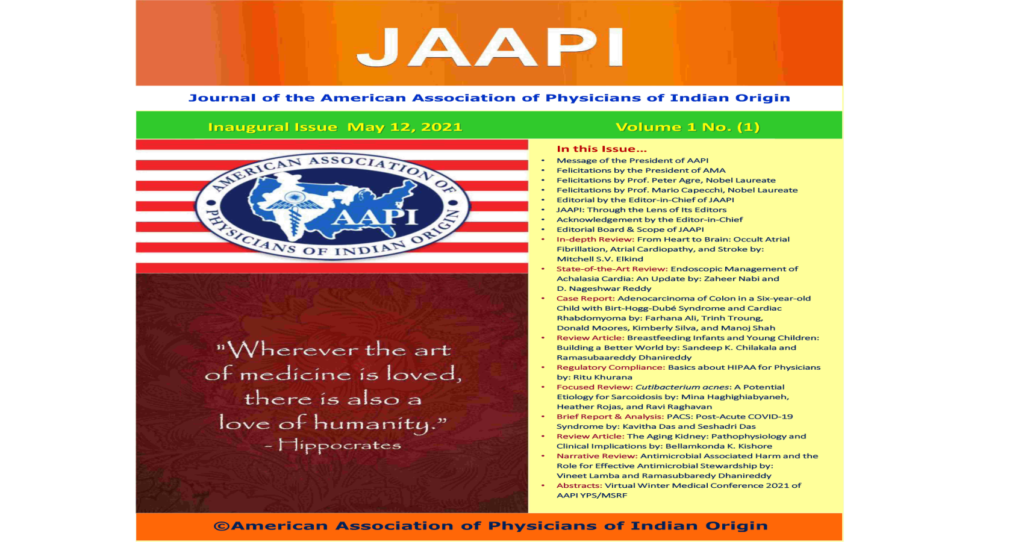 Dr. Susan R. Bailey, President of American Medication Association (AMA), who was the Chief Guest and Distinguished speaker at the launch event, inaugurated JAAPI on Wednesday, May 12, 2021 during a solemn virtual ceremony, attended by hundreds of AAPI members and supporters from around the nation.Dr. Susan R. Bailey, while inaugurating JAAPI said, “It’s my pleasure to celebrate the launch of JAAPI. On behalf of AMA we congratulate AAPI for this new initiative, which will be a great source of medical education. We applaud you and looking forward to reading your great contributions in the years to come.”
Dr. Susan R. Bailey, President of American Medication Association (AMA), who was the Chief Guest and Distinguished speaker at the launch event, inaugurated JAAPI on Wednesday, May 12, 2021 during a solemn virtual ceremony, attended by hundreds of AAPI members and supporters from around the nation.Dr. Susan R. Bailey, while inaugurating JAAPI said, “It’s my pleasure to celebrate the launch of JAAPI. On behalf of AMA we congratulate AAPI for this new initiative, which will be a great source of medical education. We applaud you and looking forward to reading your great contributions in the years to come.”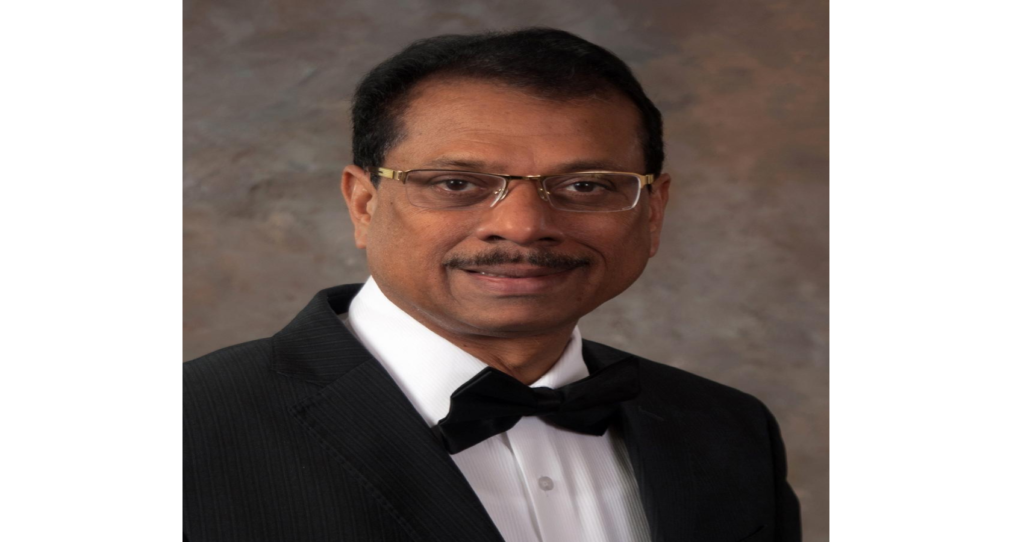 “Physician Leadership In Times of Crisis & Transition” was the theme of an hour long CME presented by Dr. Bailey at the conclusion of the JAAPI launch ceremony. The insightful and practically oriented CME was organized by American Association of Physicians of Indian Origin, in affiliation with Chicago Medical Society and in association with Indian American Medical Association of Illinois IAMA (IL.)
“Physician Leadership In Times of Crisis & Transition” was the theme of an hour long CME presented by Dr. Bailey at the conclusion of the JAAPI launch ceremony. The insightful and practically oriented CME was organized by American Association of Physicians of Indian Origin, in affiliation with Chicago Medical Society and in association with Indian American Medical Association of Illinois IAMA (IL.)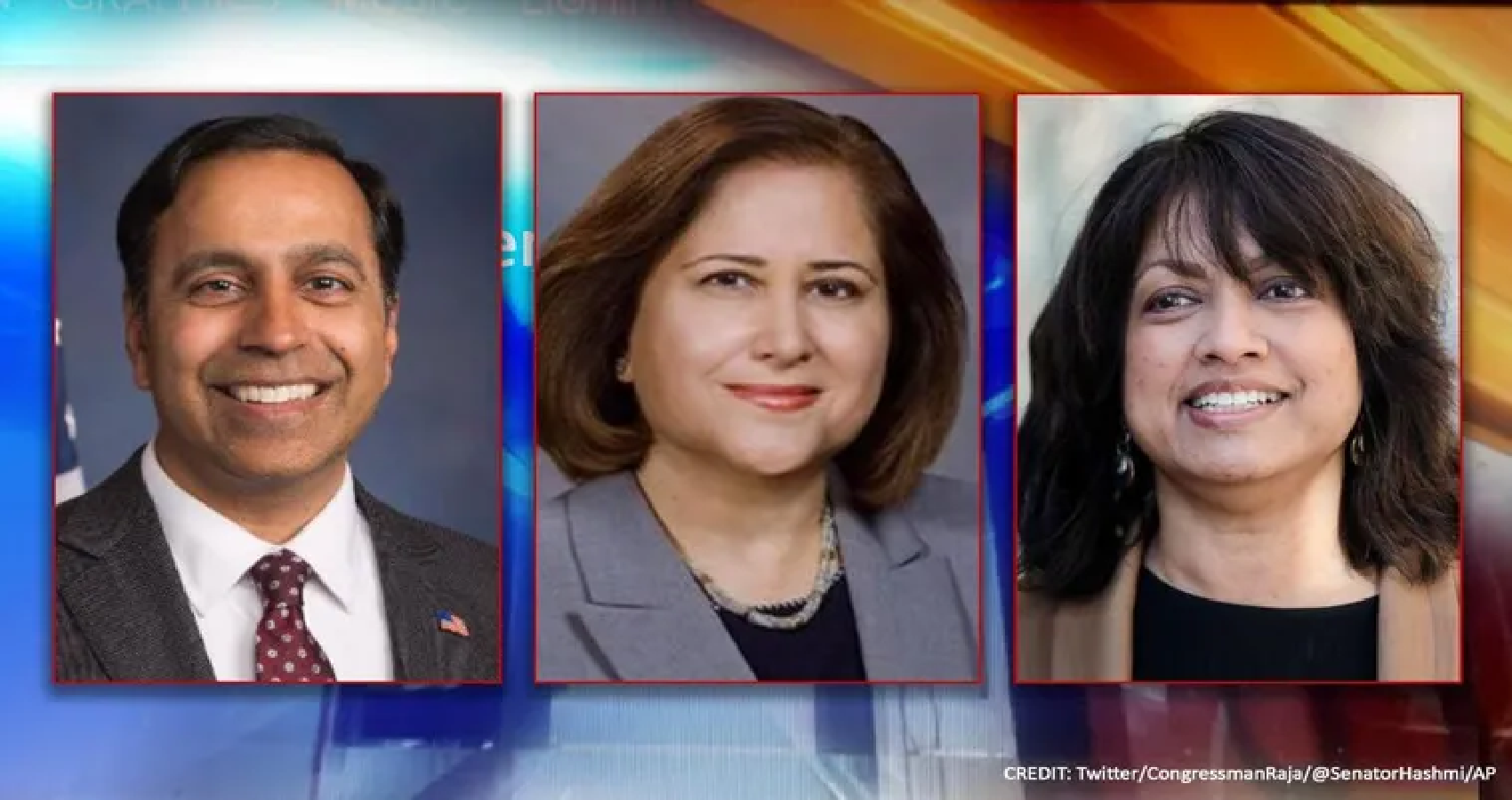
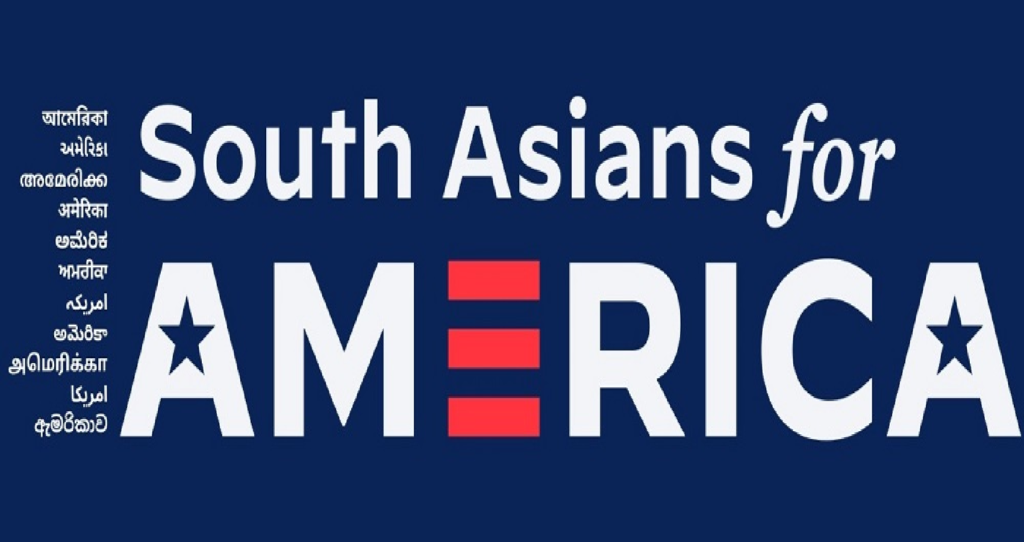 The new organization aims to harness the momentum of its grassroots efforts during the 2020 election, which propelled President Joe Biden and Vice President Kamala Harris to the White House, and flipped the Senate with the wins of Democrats Jon Ossoff and Raphael Warnock in Georgia. SAFA is now aiming to get behind Democratic candidates in the House and Senate who are contesting in the 2022 midterm election.
The new organization aims to harness the momentum of its grassroots efforts during the 2020 election, which propelled President Joe Biden and Vice President Kamala Harris to the White House, and flipped the Senate with the wins of Democrats Jon Ossoff and Raphael Warnock in Georgia. SAFA is now aiming to get behind Democratic candidates in the House and Senate who are contesting in the 2022 midterm election.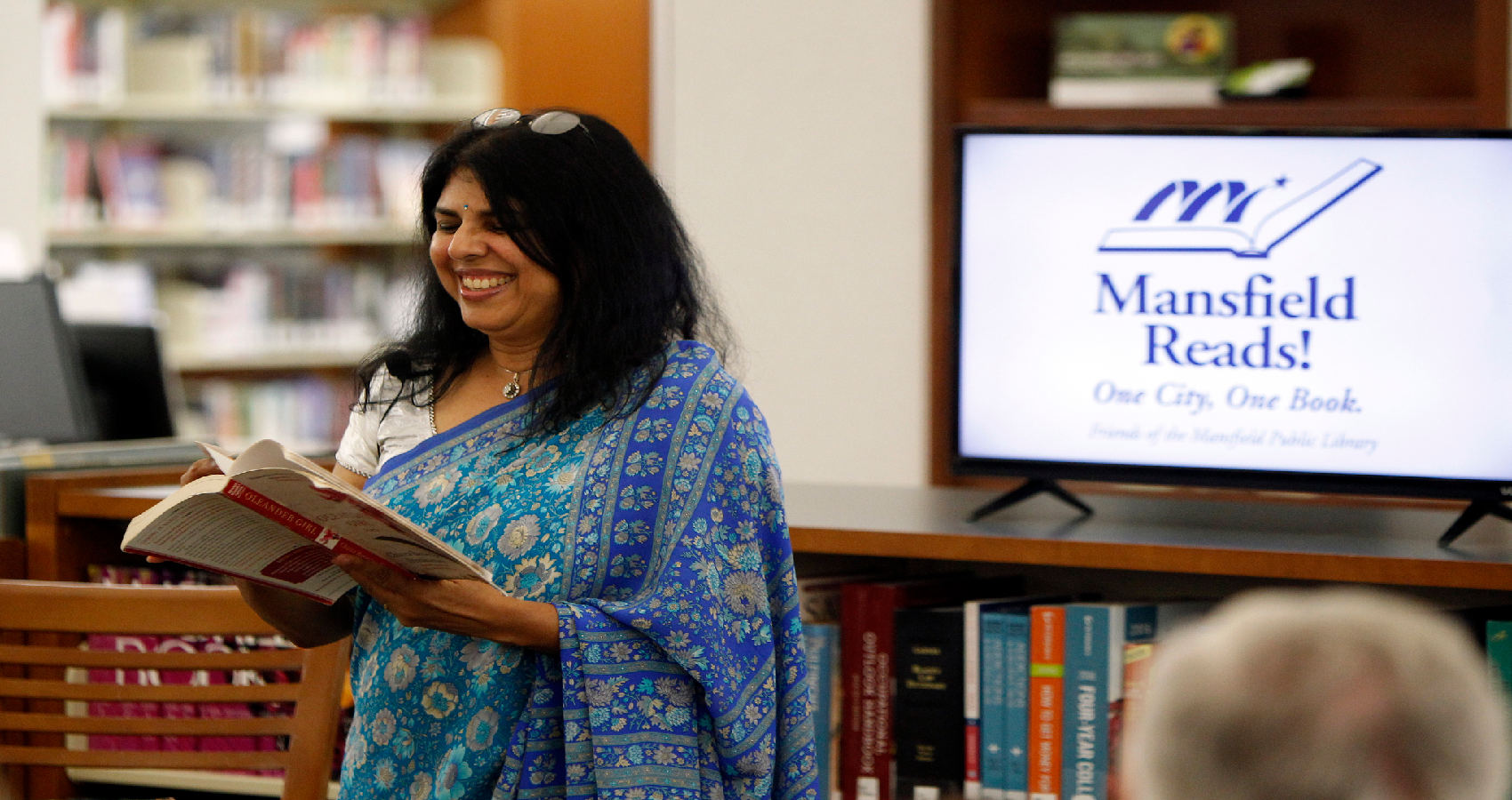
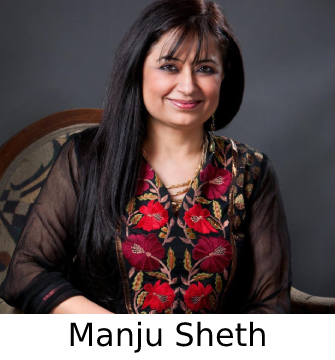 Ms. Banerjee is an award-winning and bestselling author, poet, activist and teacher of writing. Her work has been published in over 50 magazines, including the
Ms. Banerjee is an award-winning and bestselling author, poet, activist and teacher of writing. Her work has been published in over 50 magazines, including the 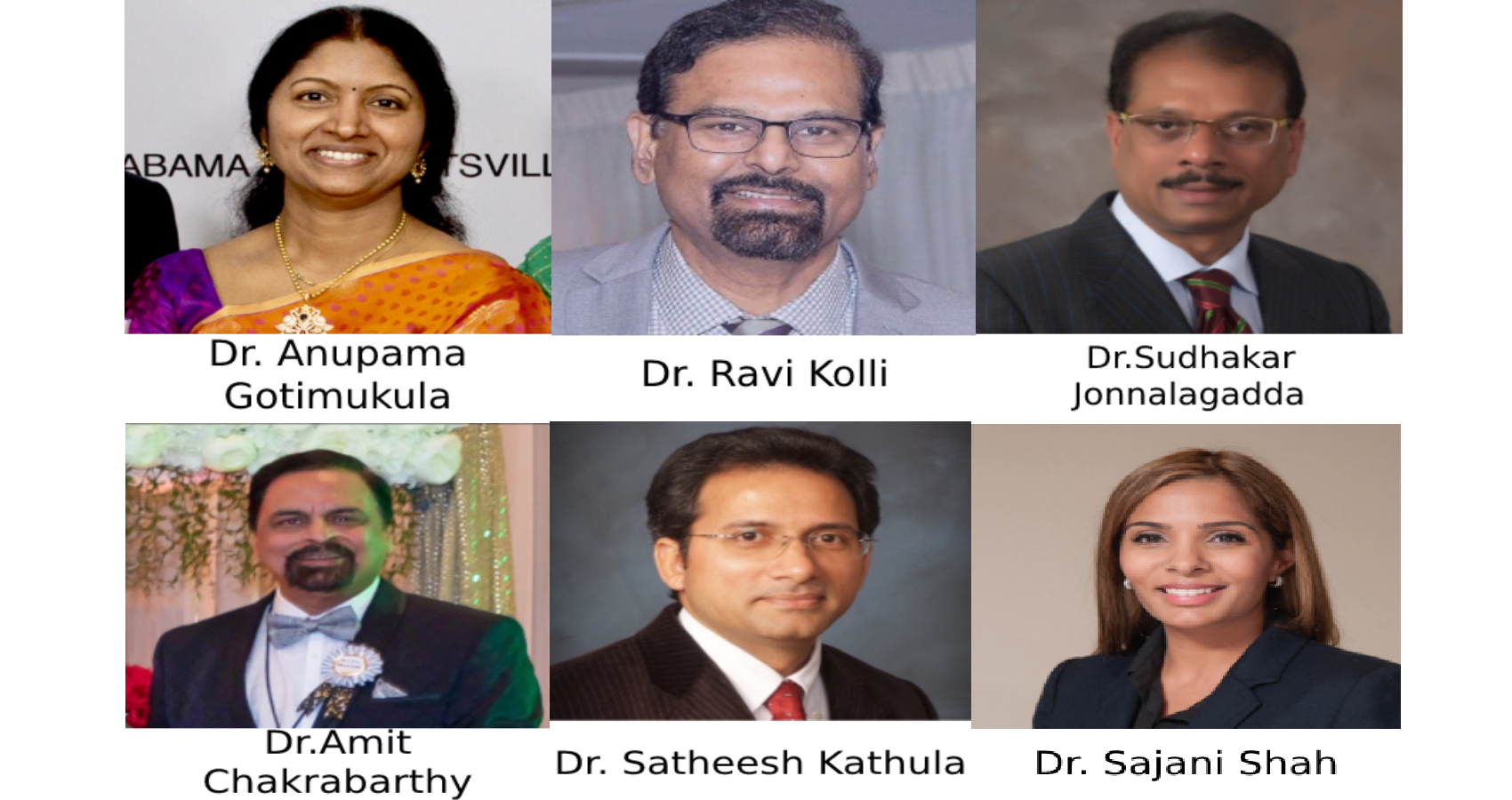
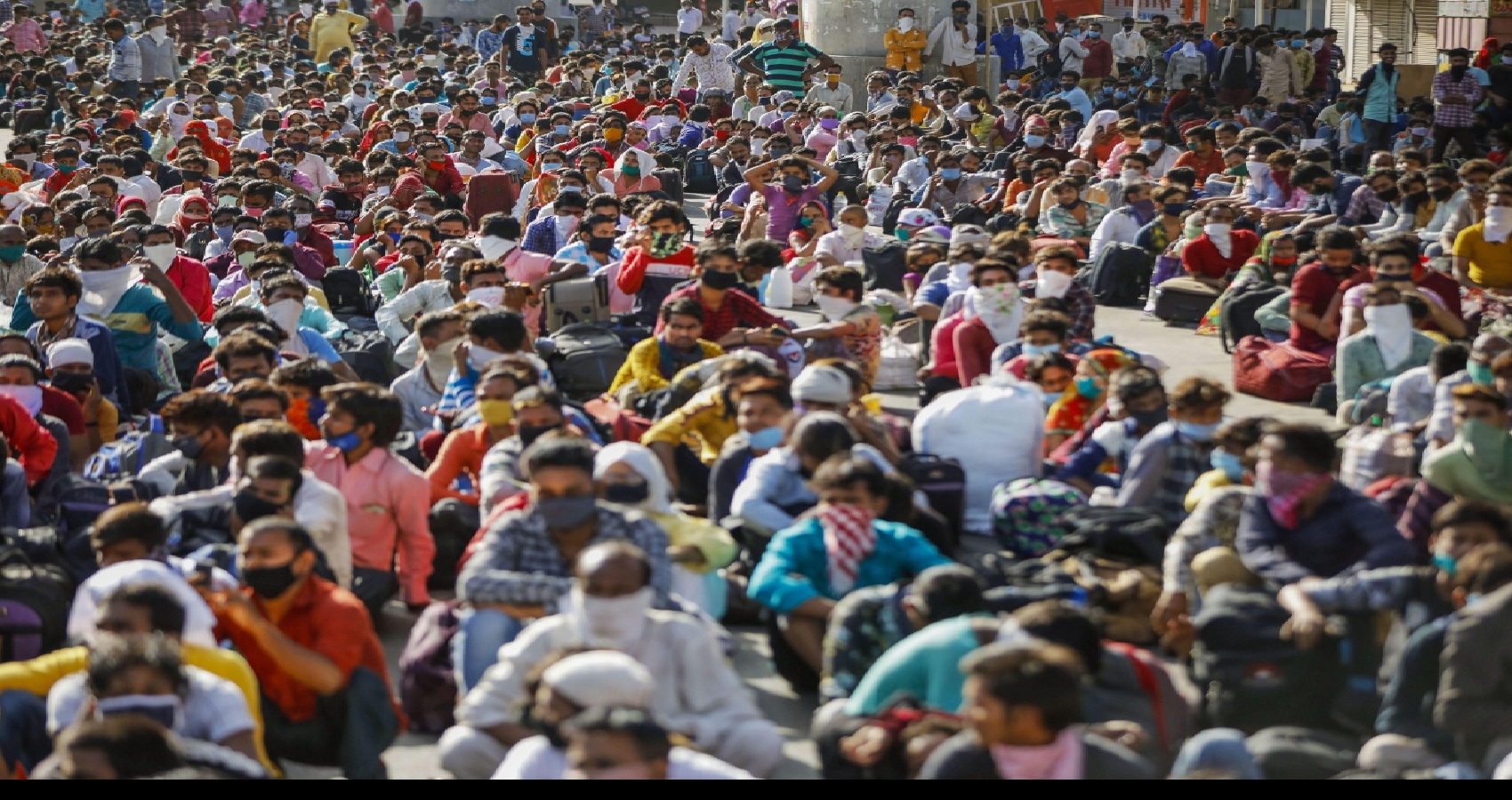
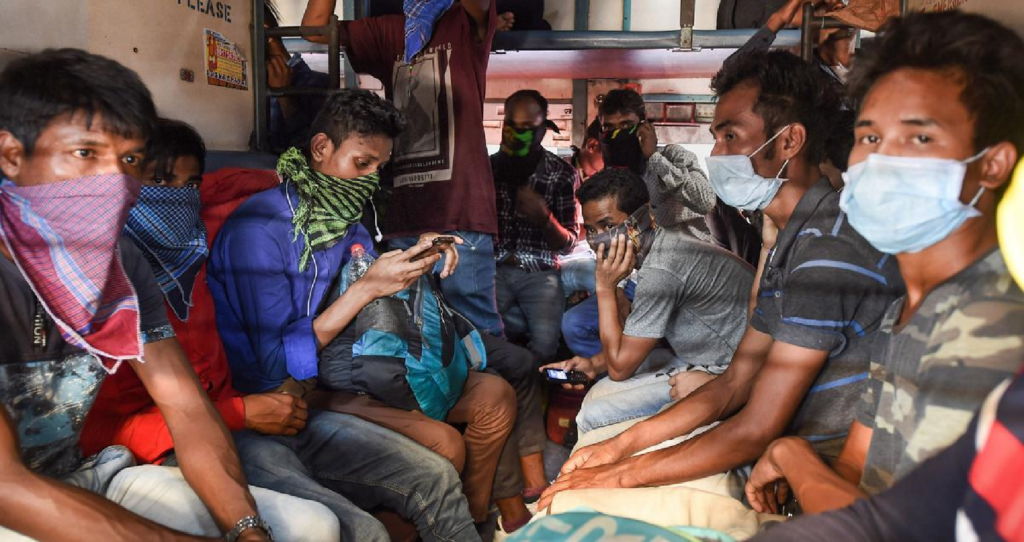 “India is in the ICU and those who put her there now spend their time trying to shift the blame. The change from ‘victory’ over Covid to gasping for oxygen began in the last week of January this year when the Prime Minister proudly declared that India had not only defeated the
“India is in the ICU and those who put her there now spend their time trying to shift the blame. The change from ‘victory’ over Covid to gasping for oxygen began in the last week of January this year when the Prime Minister proudly declared that India had not only defeated the 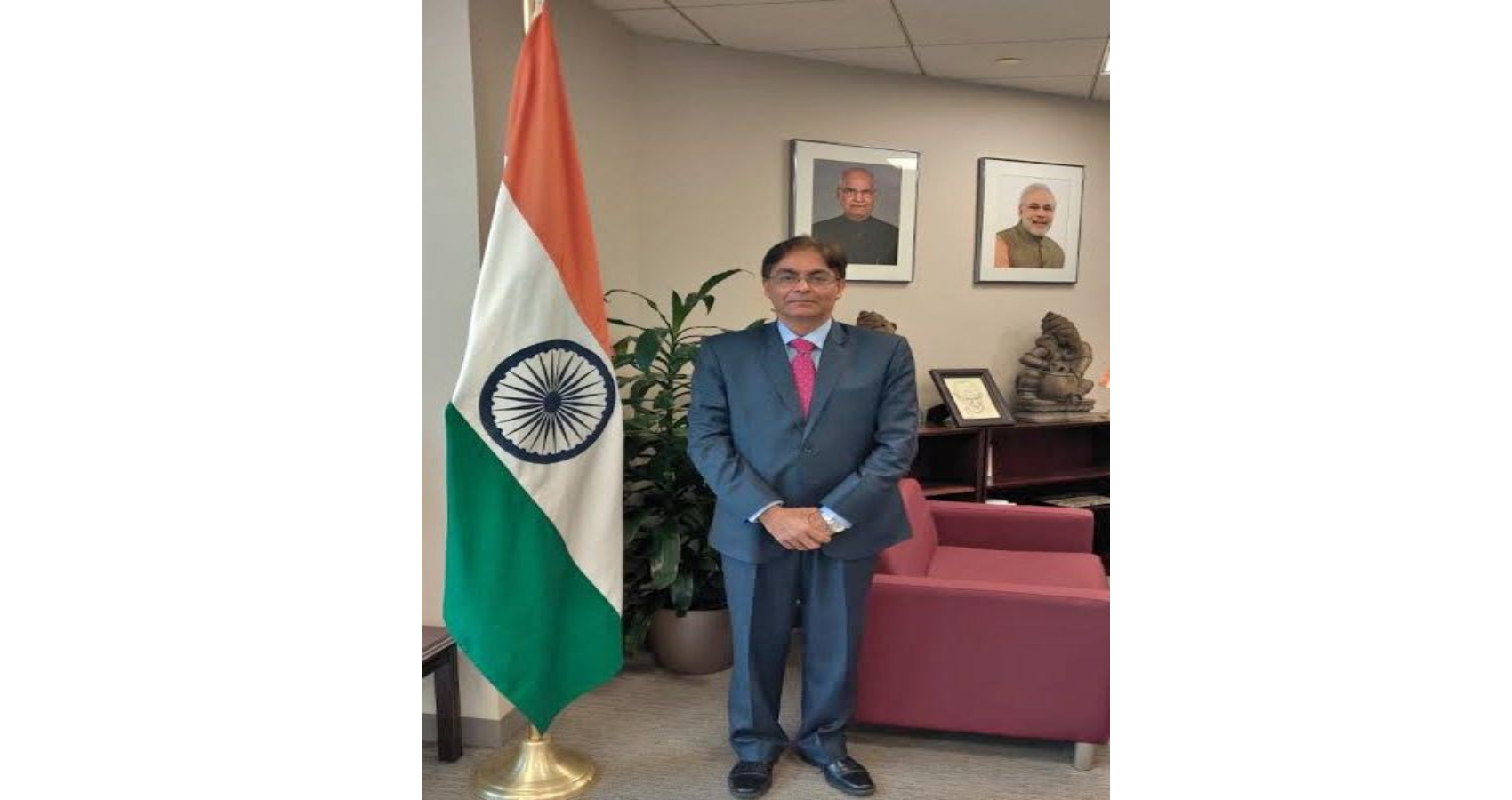

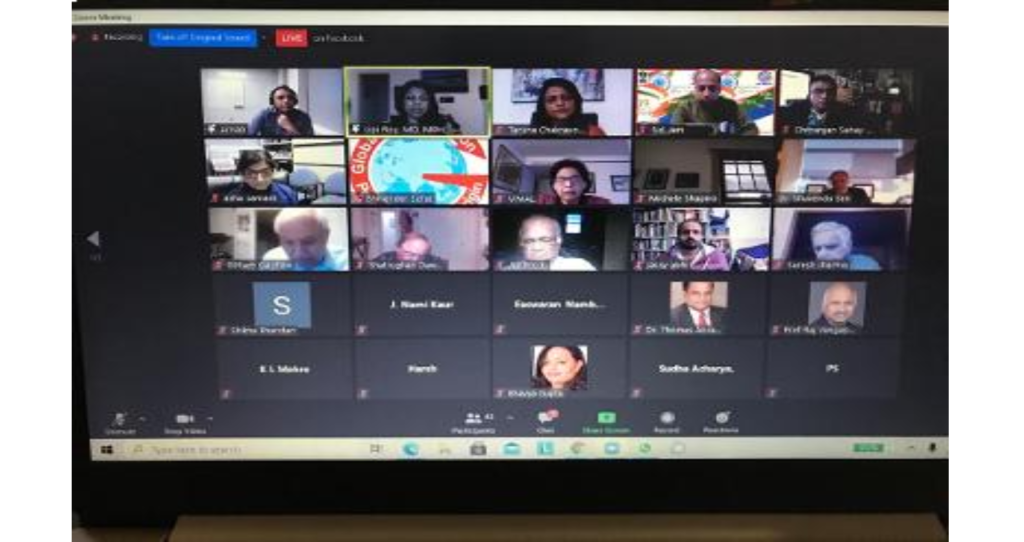 In his address, Dr. Shuvendu Sen, an Ambassador of the New Jersey Re-entry Commission, who contributes to the behavioral and medical health of the formerly incarcerated female population, and a best-selling author of the book, Why Buddha Never Had Alzheimer’s: A Holistic Treatment Approach through Meditation, Yoga and the Arts, thanked GOPIO for its contributions to enhance Indian values and for the many accomplishments. Dr. Sen reminded the audience that “This is not the first time it has happened. The world has experienced similar calamities, changing our well structures lifestyles. We have seen it time and time again. However, whenever we have been hurt, humanity is tremendously powerful to resurface from the dust.”
In his address, Dr. Shuvendu Sen, an Ambassador of the New Jersey Re-entry Commission, who contributes to the behavioral and medical health of the formerly incarcerated female population, and a best-selling author of the book, Why Buddha Never Had Alzheimer’s: A Holistic Treatment Approach through Meditation, Yoga and the Arts, thanked GOPIO for its contributions to enhance Indian values and for the many accomplishments. Dr. Sen reminded the audience that “This is not the first time it has happened. The world has experienced similar calamities, changing our well structures lifestyles. We have seen it time and time again. However, whenever we have been hurt, humanity is tremendously powerful to resurface from the dust.”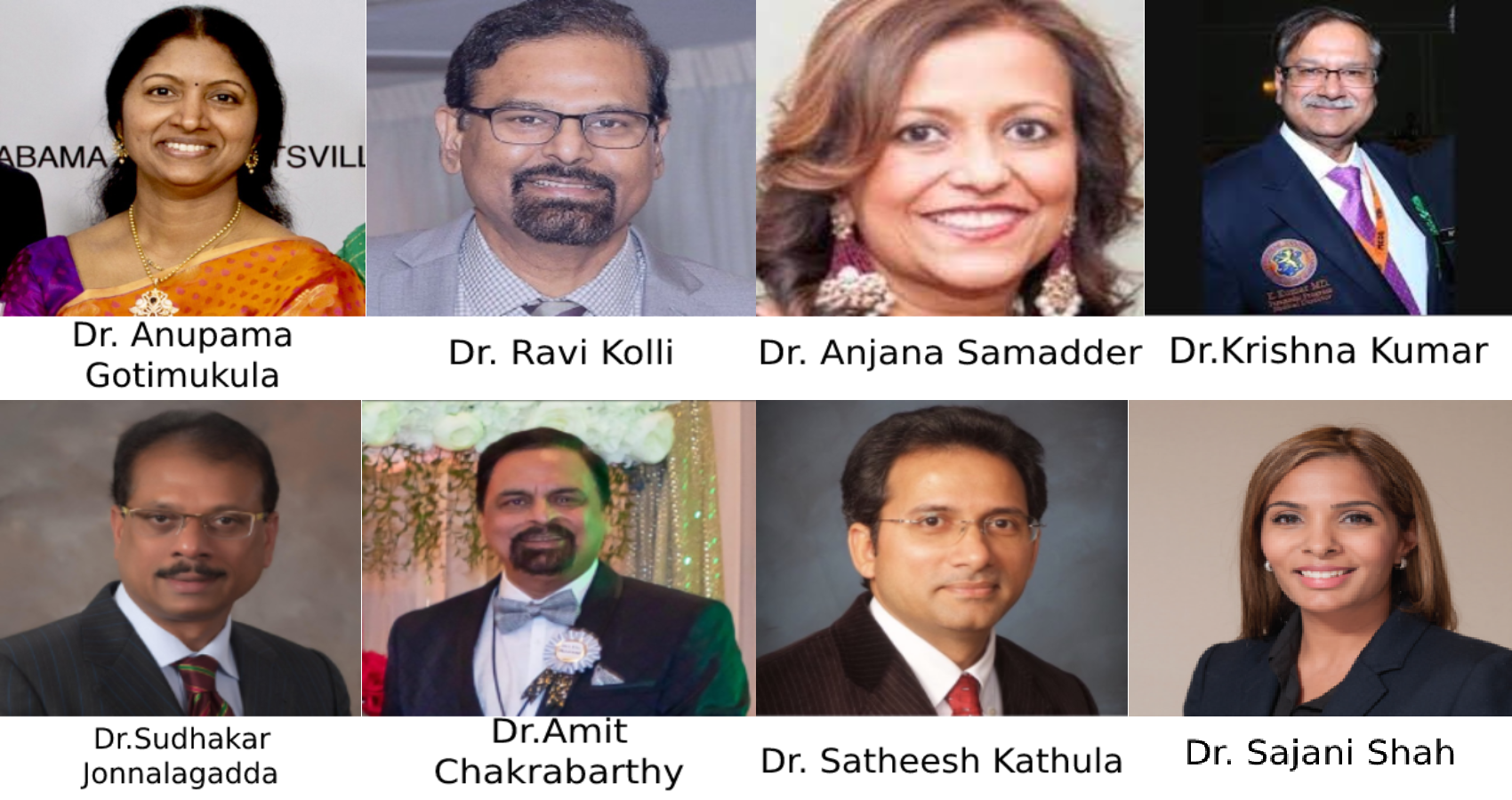
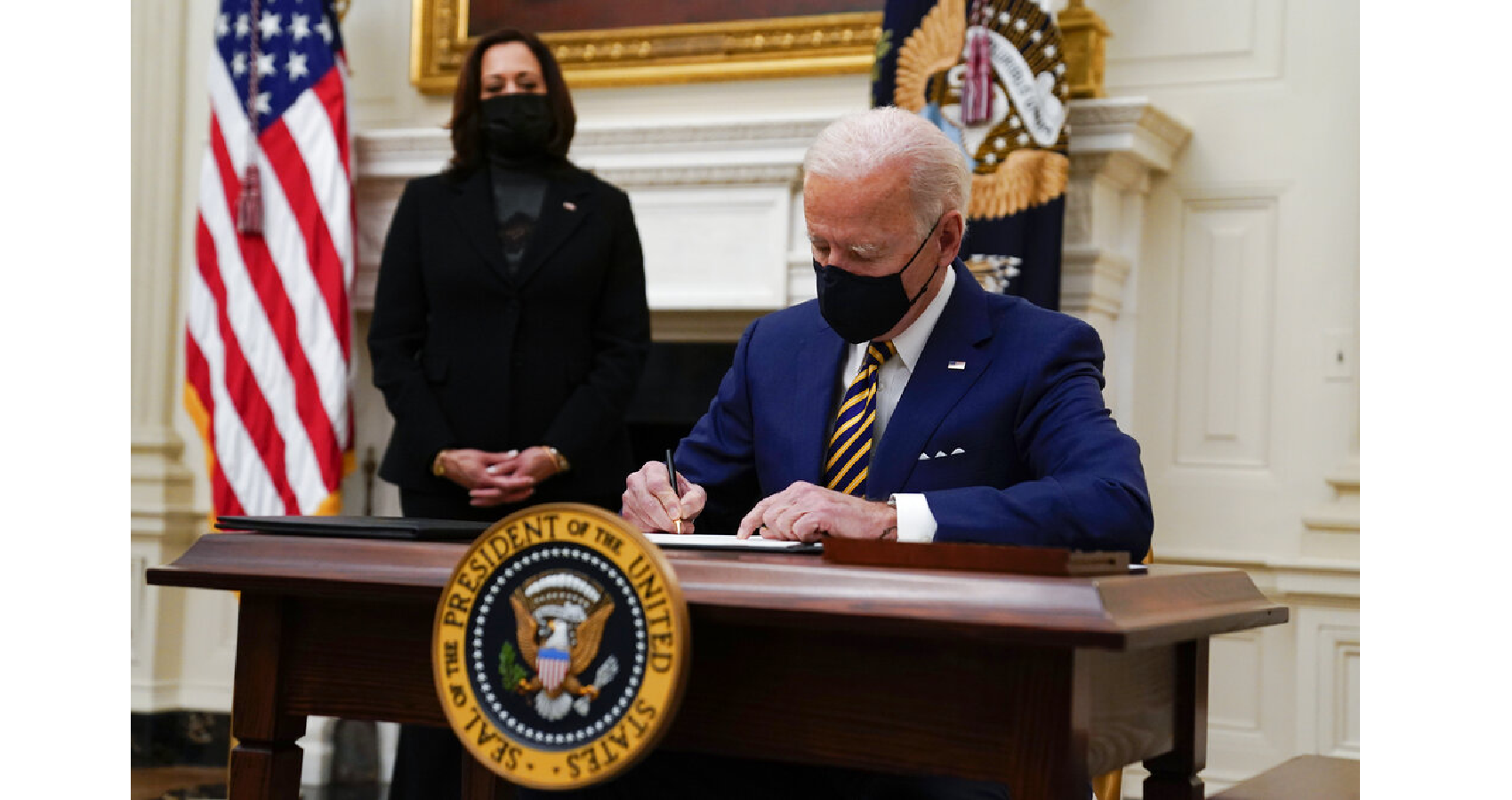
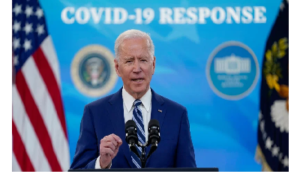 Biden also renewed calls for Americans to wear masks, framing the choice as a “patriotic duty.” “I need the American people do their part as well. Mask up, mask up. It’s a patriotic duty. It’s the only way we ever get back to normal,” he said. With a nod to the role of the private sector, Biden also suggested businesses should also require the use of masks. “The failure to take this virus seriously precisely what got us to this mess in the first place, risk more cases, more deaths,” he said.
Biden also renewed calls for Americans to wear masks, framing the choice as a “patriotic duty.” “I need the American people do their part as well. Mask up, mask up. It’s a patriotic duty. It’s the only way we ever get back to normal,” he said. With a nod to the role of the private sector, Biden also suggested businesses should also require the use of masks. “The failure to take this virus seriously precisely what got us to this mess in the first place, risk more cases, more deaths,” he said.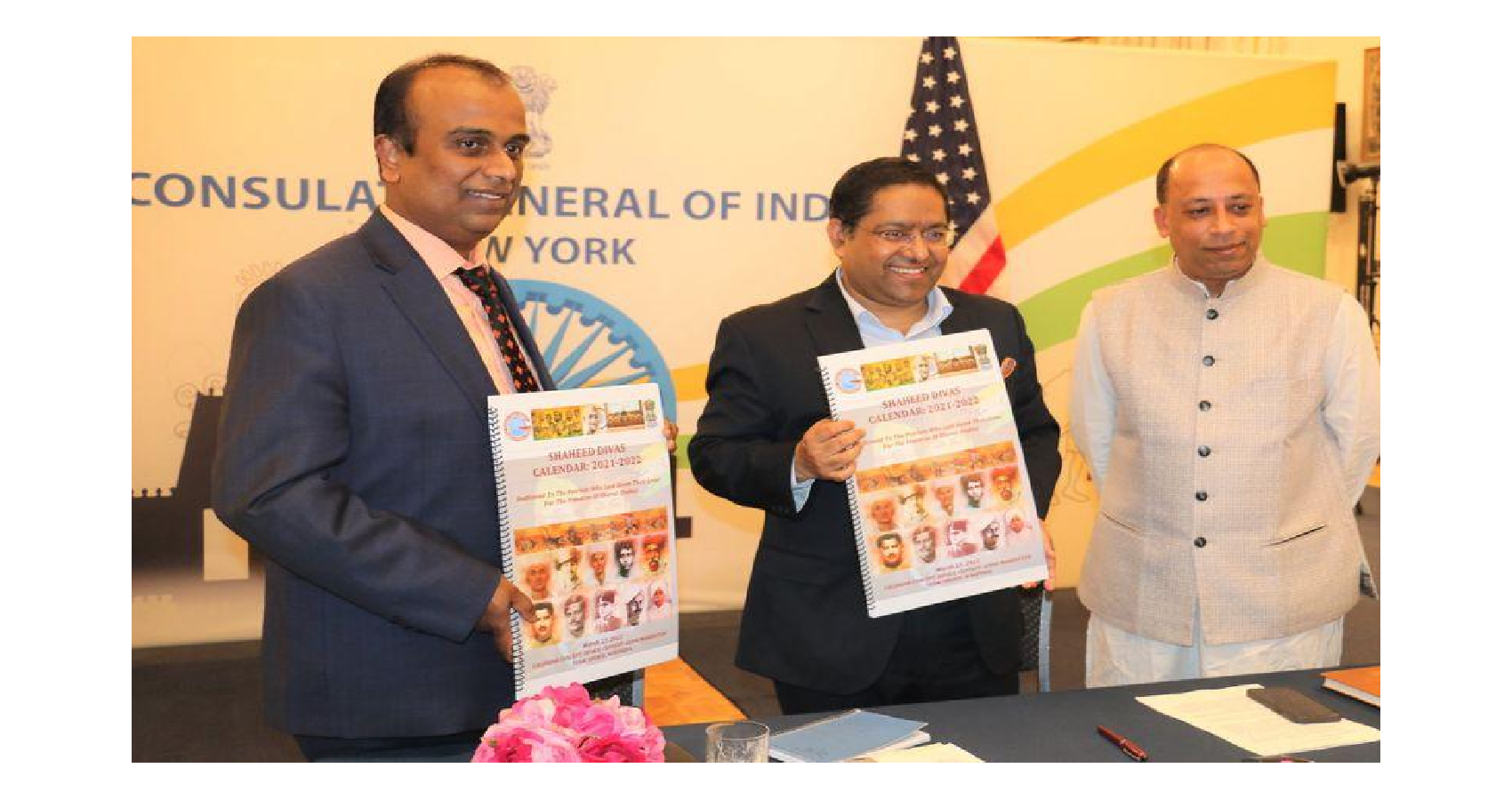
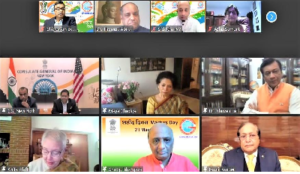 Consul General Jaiswal, in his address, commended GOPIO Manhattan for organizing the event and several others, honoring India and Indians. “Today is the Red Letter Day in the history of India,” the Indian diplomat with over three decades of diplomatic services around the world, told the hundreds of community leaders from around several continents who joined the celebration. “We honor today the legendary freedom fighters, recalling their bravery and love for our motherland.” Describing today’s celebrations as unique, Ambassador Jaiswal recalled the founding of the
Consul General Jaiswal, in his address, commended GOPIO Manhattan for organizing the event and several others, honoring India and Indians. “Today is the Red Letter Day in the history of India,” the Indian diplomat with over three decades of diplomatic services around the world, told the hundreds of community leaders from around several continents who joined the celebration. “We honor today the legendary freedom fighters, recalling their bravery and love for our motherland.” Describing today’s celebrations as unique, Ambassador Jaiswal recalled the founding of the 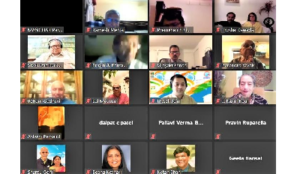 In 1913 Lala Har Dayal formed the Ghadar Party to organize a rebellion against the British government of India. He fled to Switzerland and then to Berlin, where he tried to foment an anti-British rising in northwestern India. After the German defeat in World War I, Har Dayal settled in Stockholm as a professor of Indian Philosophy and wrote Forty-Four Months in Germany and Turkey. He moved to the USA in the late 1920s and became a Professor of Sanskrit at the University of California, Berkeley.
In 1913 Lala Har Dayal formed the Ghadar Party to organize a rebellion against the British government of India. He fled to Switzerland and then to Berlin, where he tried to foment an anti-British rising in northwestern India. After the German defeat in World War I, Har Dayal settled in Stockholm as a professor of Indian Philosophy and wrote Forty-Four Months in Germany and Turkey. He moved to the USA in the late 1920s and became a Professor of Sanskrit at the University of California, Berkeley.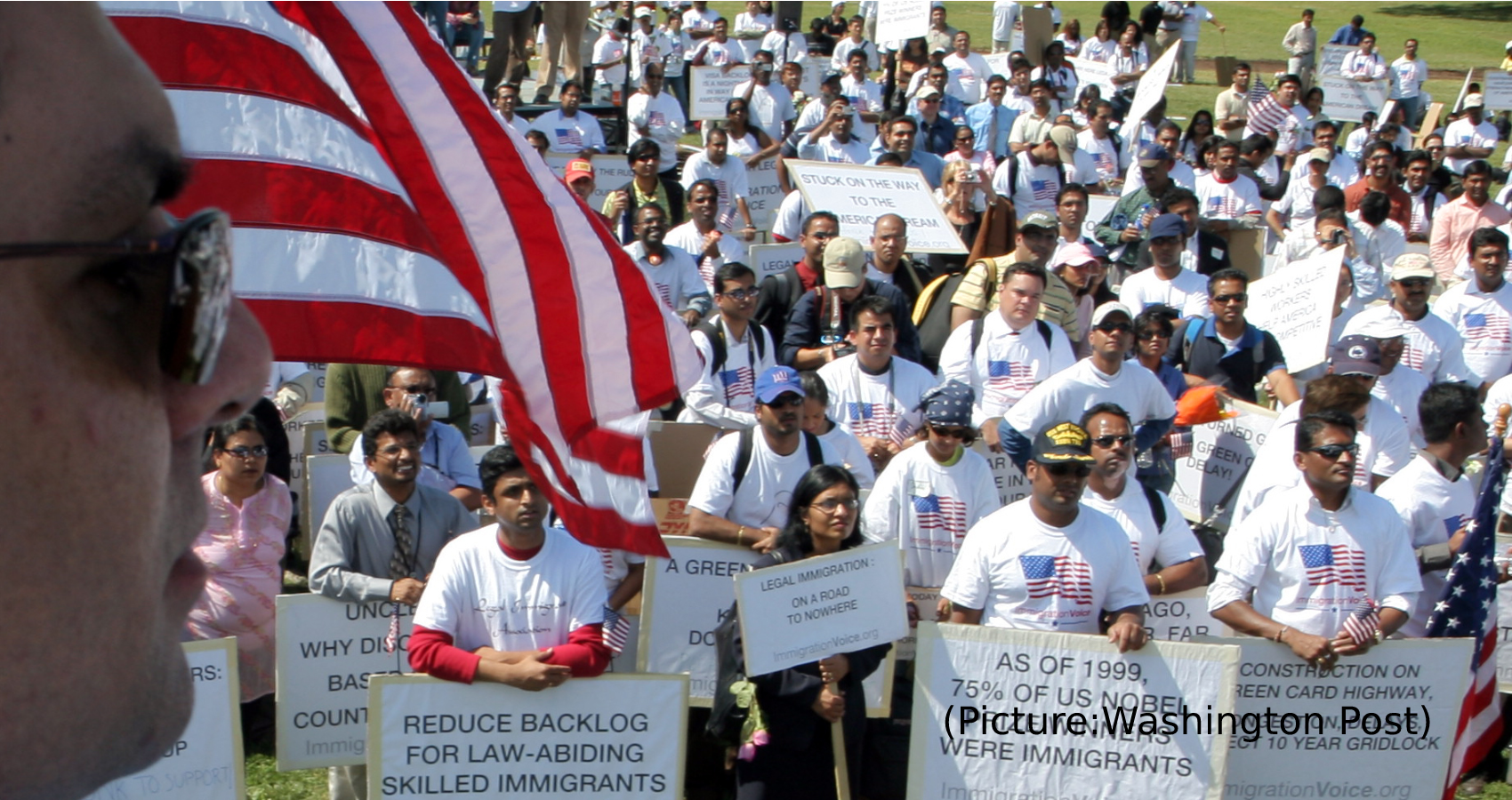
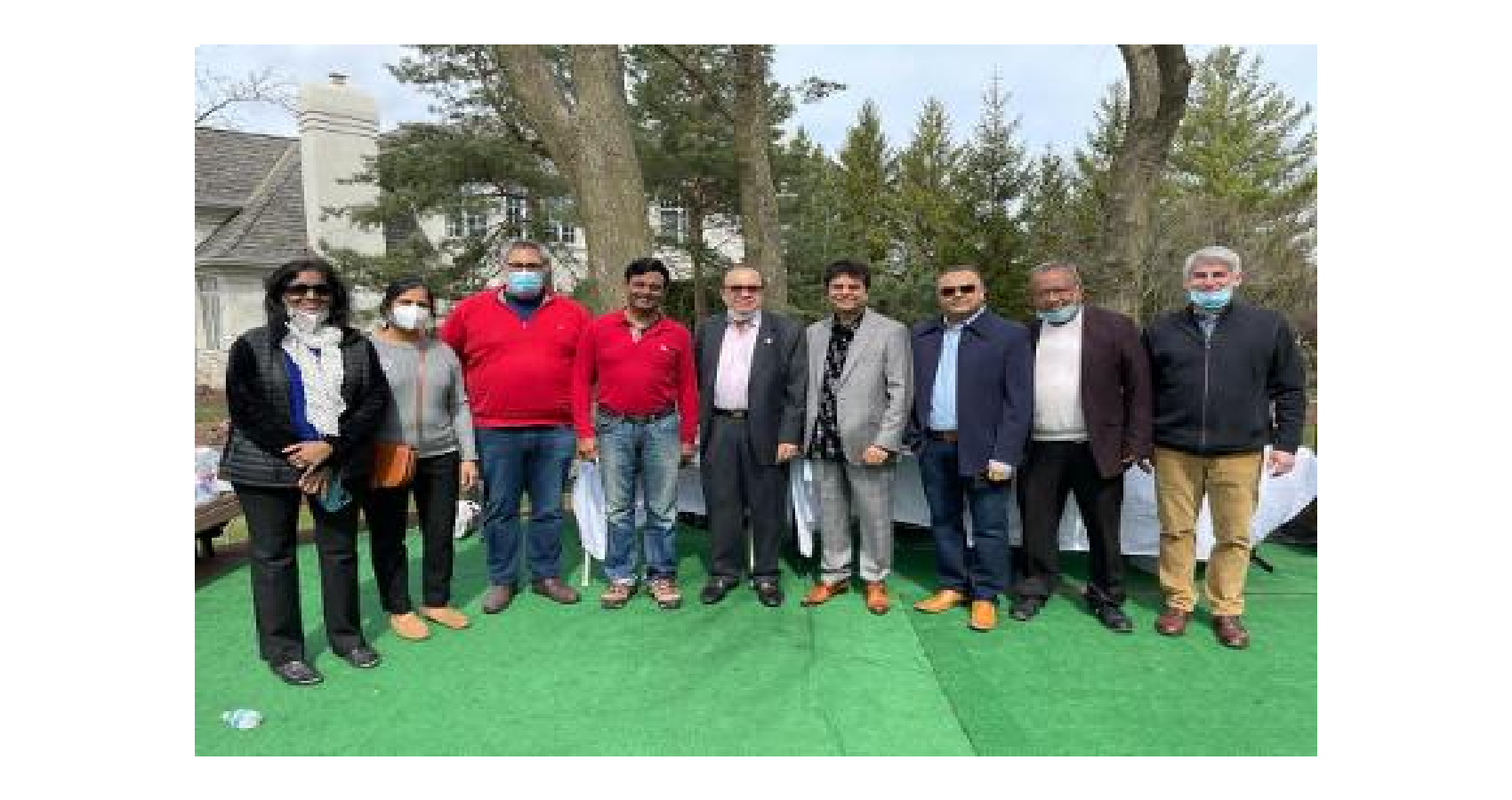
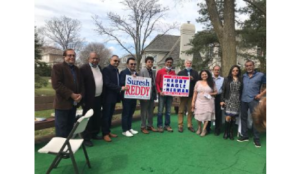 Dr. Reddy comes with immense experiences and proven leadership. Dr. Reddy grew up in the suburbs of Hyderabad in Southern India. A financial conservator, Dr. Reddy always had a passion for “uniting and bringing people together.” Recalling his childhood, the dynamic leader says, “It all started during my childhood with bringing neighborhood kids together to play “gully cricket” and also bringing people together in college to organize events, demonstrations, and educational tours. Bringing opposing parties to the table for resolving issues has always been my strong strength since my schooling days.”
Dr. Reddy comes with immense experiences and proven leadership. Dr. Reddy grew up in the suburbs of Hyderabad in Southern India. A financial conservator, Dr. Reddy always had a passion for “uniting and bringing people together.” Recalling his childhood, the dynamic leader says, “It all started during my childhood with bringing neighborhood kids together to play “gully cricket” and also bringing people together in college to organize events, demonstrations, and educational tours. Bringing opposing parties to the table for resolving issues has always been my strong strength since my schooling days.”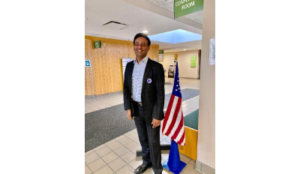 What motivates him to take on yet another challenging role for the betterment of the community? “My mantra is: If you don’t lead, someone else will lead you. If you don’t pick the right leader, the wrong leader will pick you, and as my good friend US Congressman Raja Says, and if you are not on the table, you will be on the menu
What motivates him to take on yet another challenging role for the betterment of the community? “My mantra is: If you don’t lead, someone else will lead you. If you don’t pick the right leader, the wrong leader will pick you, and as my good friend US Congressman Raja Says, and if you are not on the table, you will be on the menu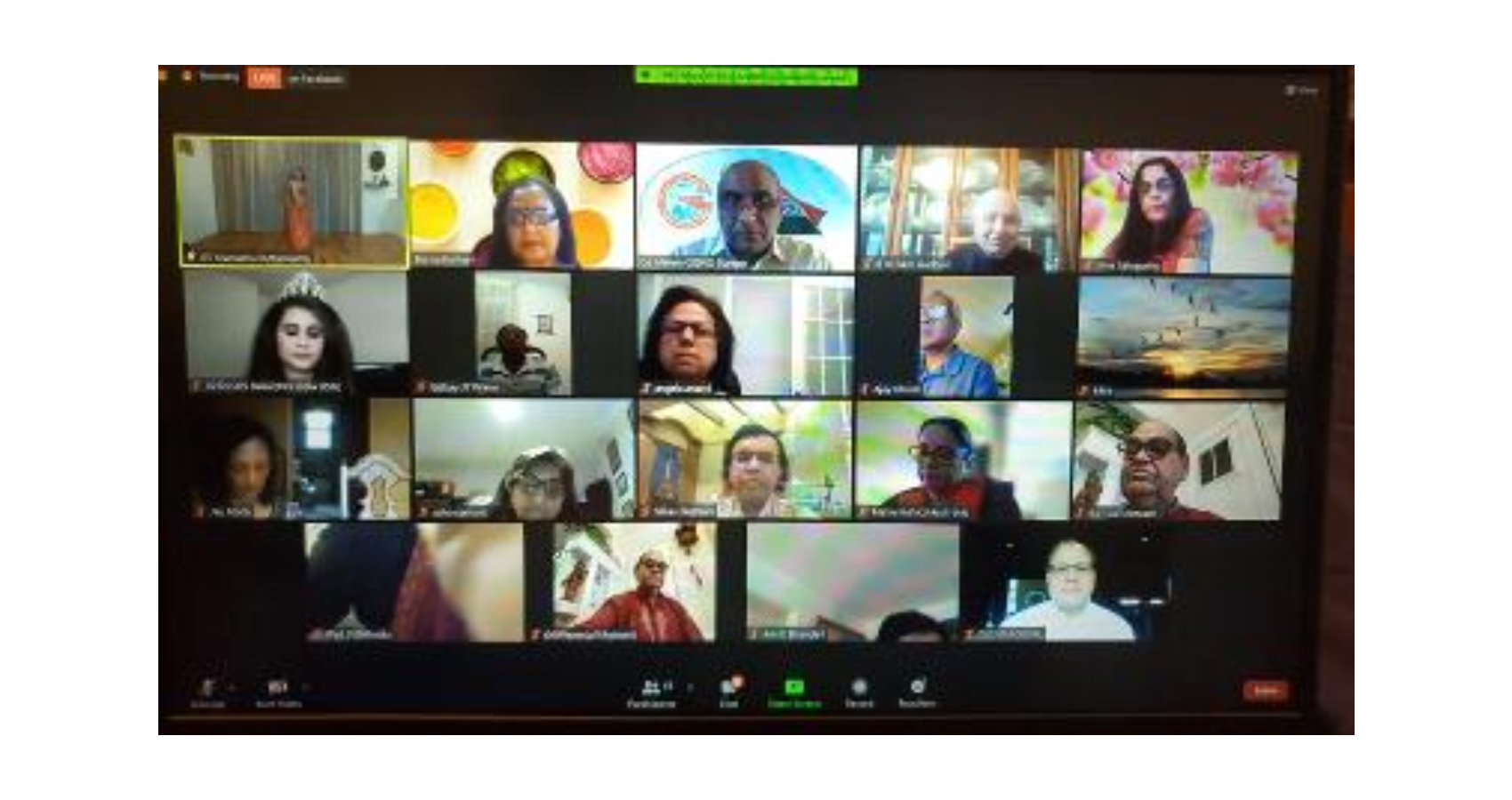
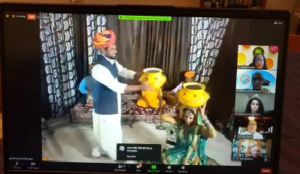 Holi has become known as India’s most vivid, joyous-festival. Holi is being celebrated in the Indian subcontinent for centuries, with poems documenting celebrations dating back to the 4th century CE. It marks the beginning of spring after a long winter, symbolic of the triumph of good over evil. It is celebrated in March, corresponding to the Hindu calendar month of Phalguna. On the eve of the festival, large pyres are lit in many parts of India to signify the burning of evil spirits. People often throw wood, dried leaves and twigs into bonfires, Ambassador Jaiswal explained.
Holi has become known as India’s most vivid, joyous-festival. Holi is being celebrated in the Indian subcontinent for centuries, with poems documenting celebrations dating back to the 4th century CE. It marks the beginning of spring after a long winter, symbolic of the triumph of good over evil. It is celebrated in March, corresponding to the Hindu calendar month of Phalguna. On the eve of the festival, large pyres are lit in many parts of India to signify the burning of evil spirits. People often throw wood, dried leaves and twigs into bonfires, Ambassador Jaiswal explained.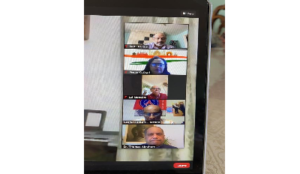 “The vibrancy of colors is something that brings in a lot of positivity in our lives and Holi being the festival of colors is actually a day worth rejoicing,” Motwani said. “Holi is considered as one of the most revered and celebrated festivals of India and it is celebrated in almost every part of India, transcending every region, and people of all faiths, including Hindus, Muslims, Sikhs, Christians, Parsees, Buddhists, and Jains. It represents the uniqueness of Indian culture as we, from all backgrounds stand united to welcome Spring, as Mother Nature breathes freshness into our lives and that of every living creature on Earth. Welcome to each and every one of you and wishing you and your families A VERY HAPPY HOLI!”
“The vibrancy of colors is something that brings in a lot of positivity in our lives and Holi being the festival of colors is actually a day worth rejoicing,” Motwani said. “Holi is considered as one of the most revered and celebrated festivals of India and it is celebrated in almost every part of India, transcending every region, and people of all faiths, including Hindus, Muslims, Sikhs, Christians, Parsees, Buddhists, and Jains. It represents the uniqueness of Indian culture as we, from all backgrounds stand united to welcome Spring, as Mother Nature breathes freshness into our lives and that of every living creature on Earth. Welcome to each and every one of you and wishing you and your families A VERY HAPPY HOLI!”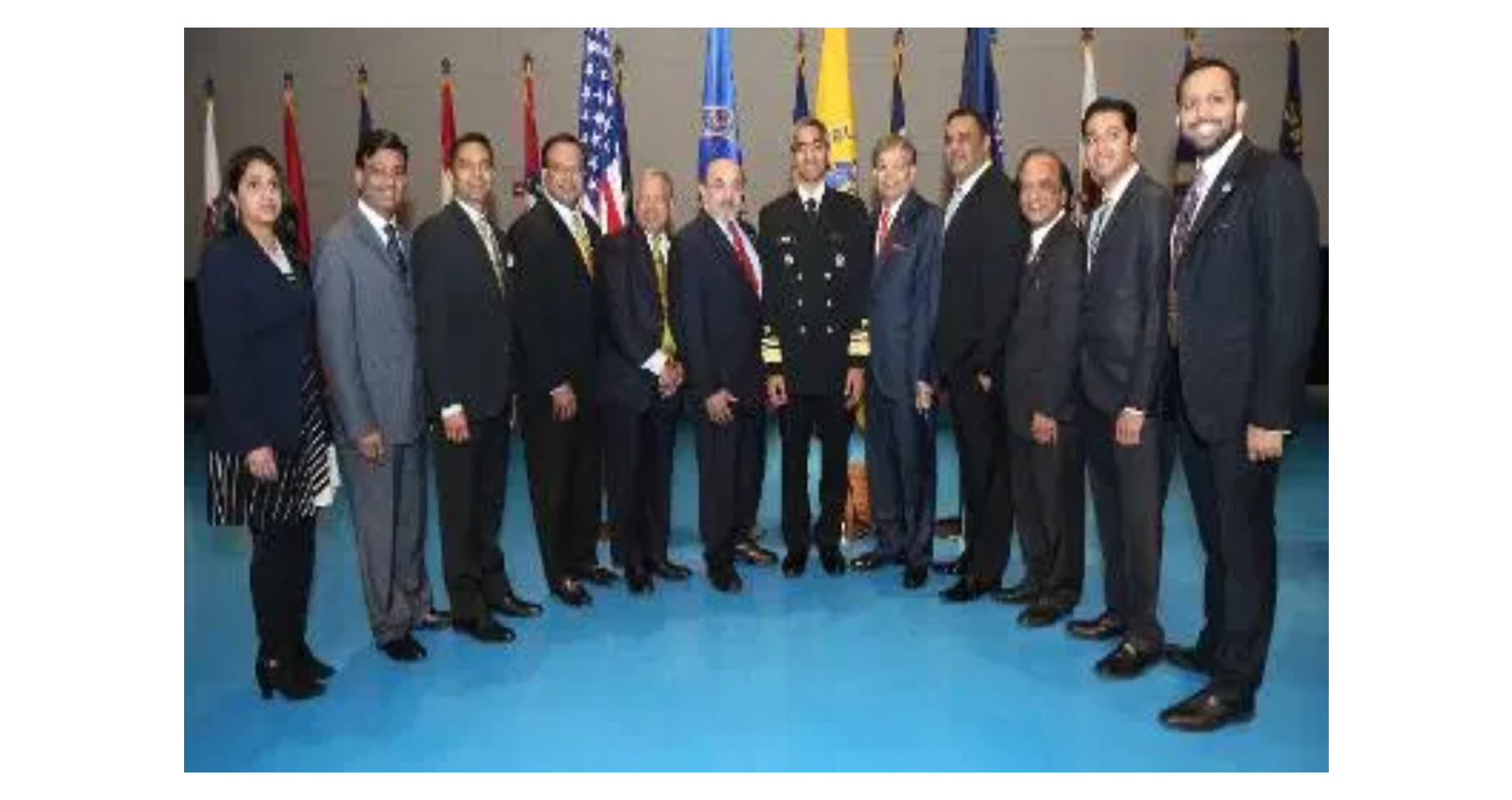
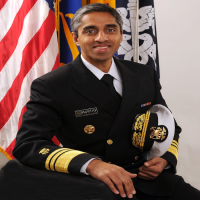 “Dr. Vivek Murthy represents the next generation of Indian American physicians,” Dr. Amit Chakrabarty, Secretary of AAPI said. “Dr. Murthy was America’s youngest-ever top doctor, and he was also the first surgeon general of Indian-American descent, when appointed by President Barack Obama in 2014. Now that he has been confirmed by the Senate, Dr. Murthy will play a key role in the administration’s response to many daunting healthcare issues, including the pandemic that has taken the lives of hundreds of thousands of Americans.”
“Dr. Vivek Murthy represents the next generation of Indian American physicians,” Dr. Amit Chakrabarty, Secretary of AAPI said. “Dr. Murthy was America’s youngest-ever top doctor, and he was also the first surgeon general of Indian-American descent, when appointed by President Barack Obama in 2014. Now that he has been confirmed by the Senate, Dr. Murthy will play a key role in the administration’s response to many daunting healthcare issues, including the pandemic that has taken the lives of hundreds of thousands of Americans.”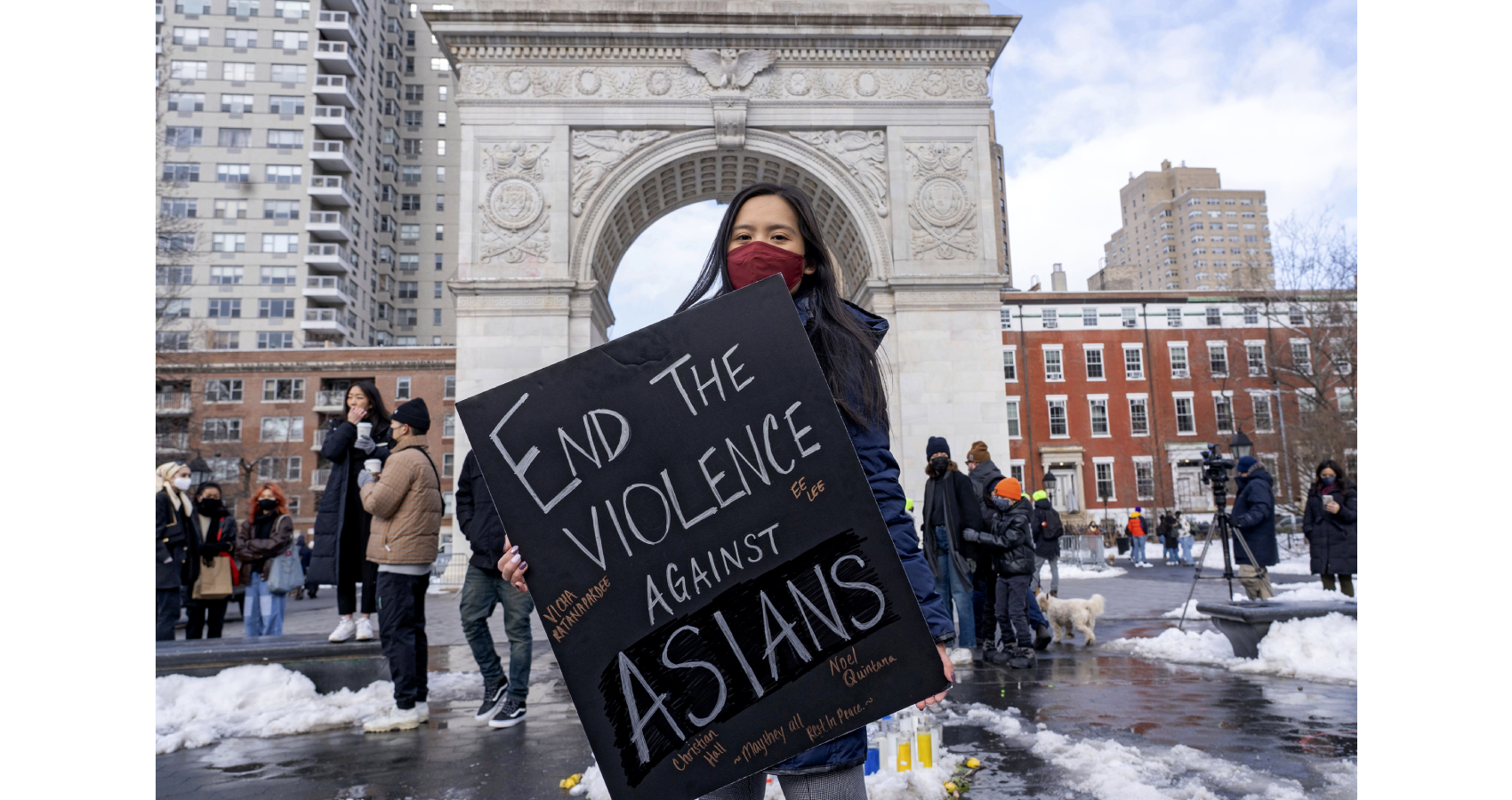
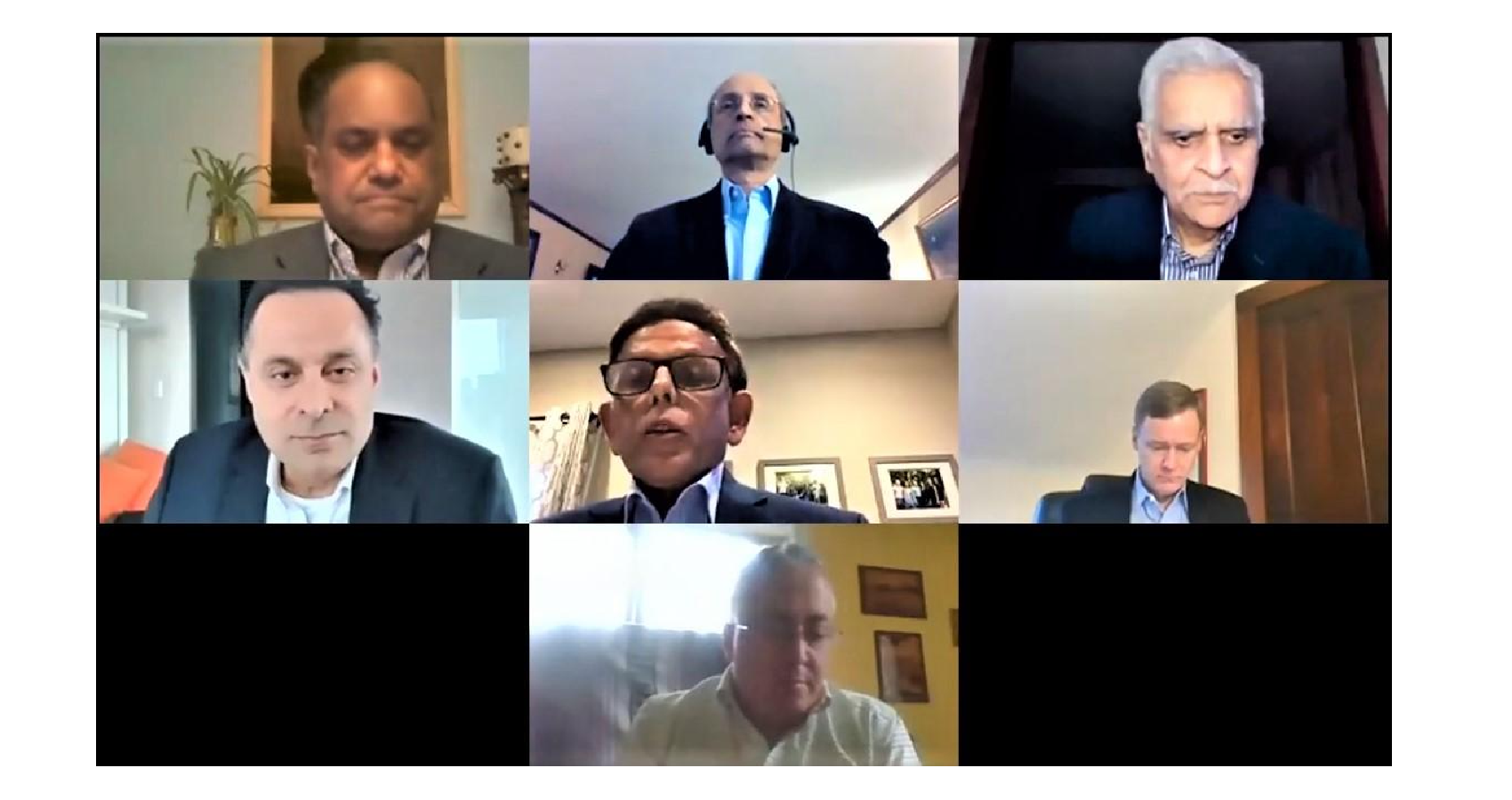
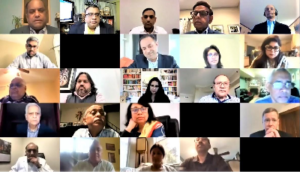 Representing the most impacted Hotel/Hospitality, Shelly Nichani, President, Infinity Hospitality Group, Stamford, CT, said, while the industry has been severely affected by the pandemic, “financial help from the Federal government has helped much, without which it would have been catastrophic.” While stating that the hospitality industry in CT has been doing overall very well, but the pandemic has halted the path to progress. He was optimistic that with the vaccines and state help, the industry will return to normal soon.
Representing the most impacted Hotel/Hospitality, Shelly Nichani, President, Infinity Hospitality Group, Stamford, CT, said, while the industry has been severely affected by the pandemic, “financial help from the Federal government has helped much, without which it would have been catastrophic.” While stating that the hospitality industry in CT has been doing overall very well, but the pandemic has halted the path to progress. He was optimistic that with the vaccines and state help, the industry will return to normal soon.

